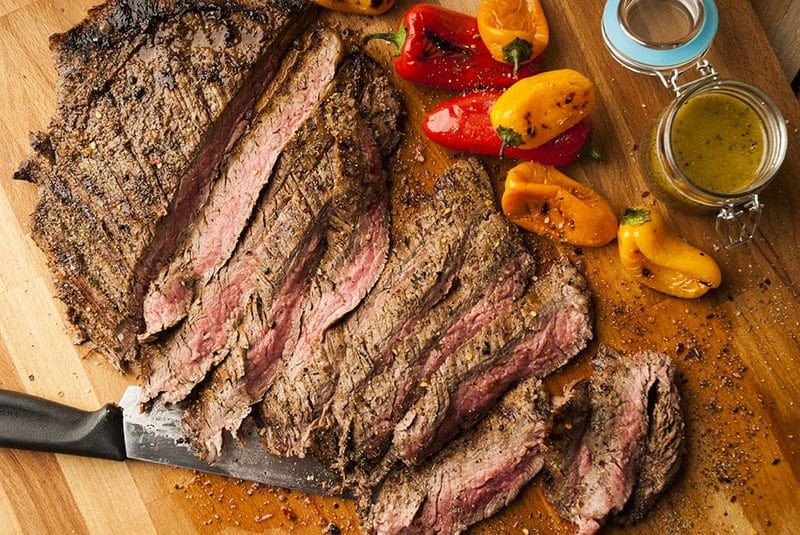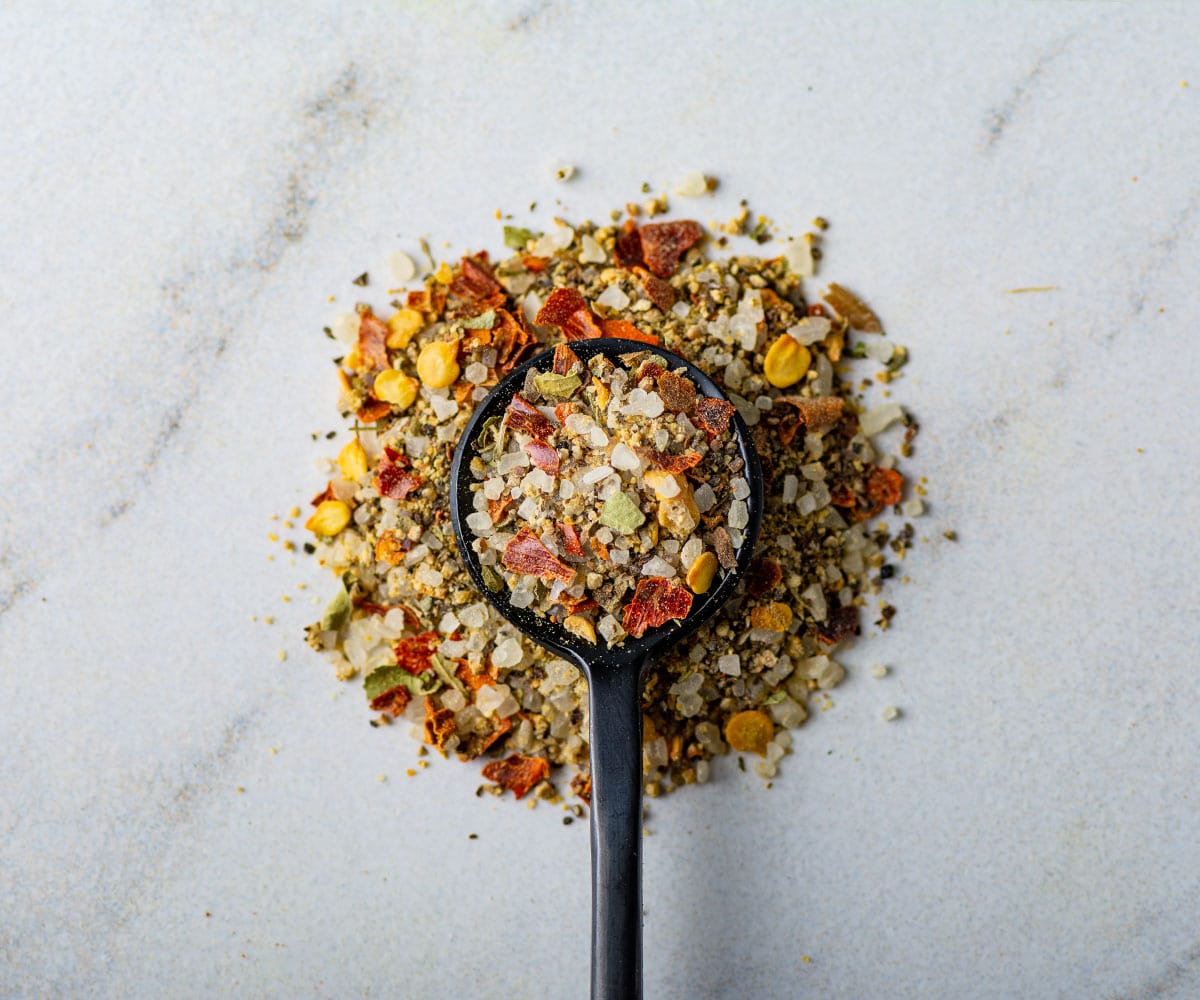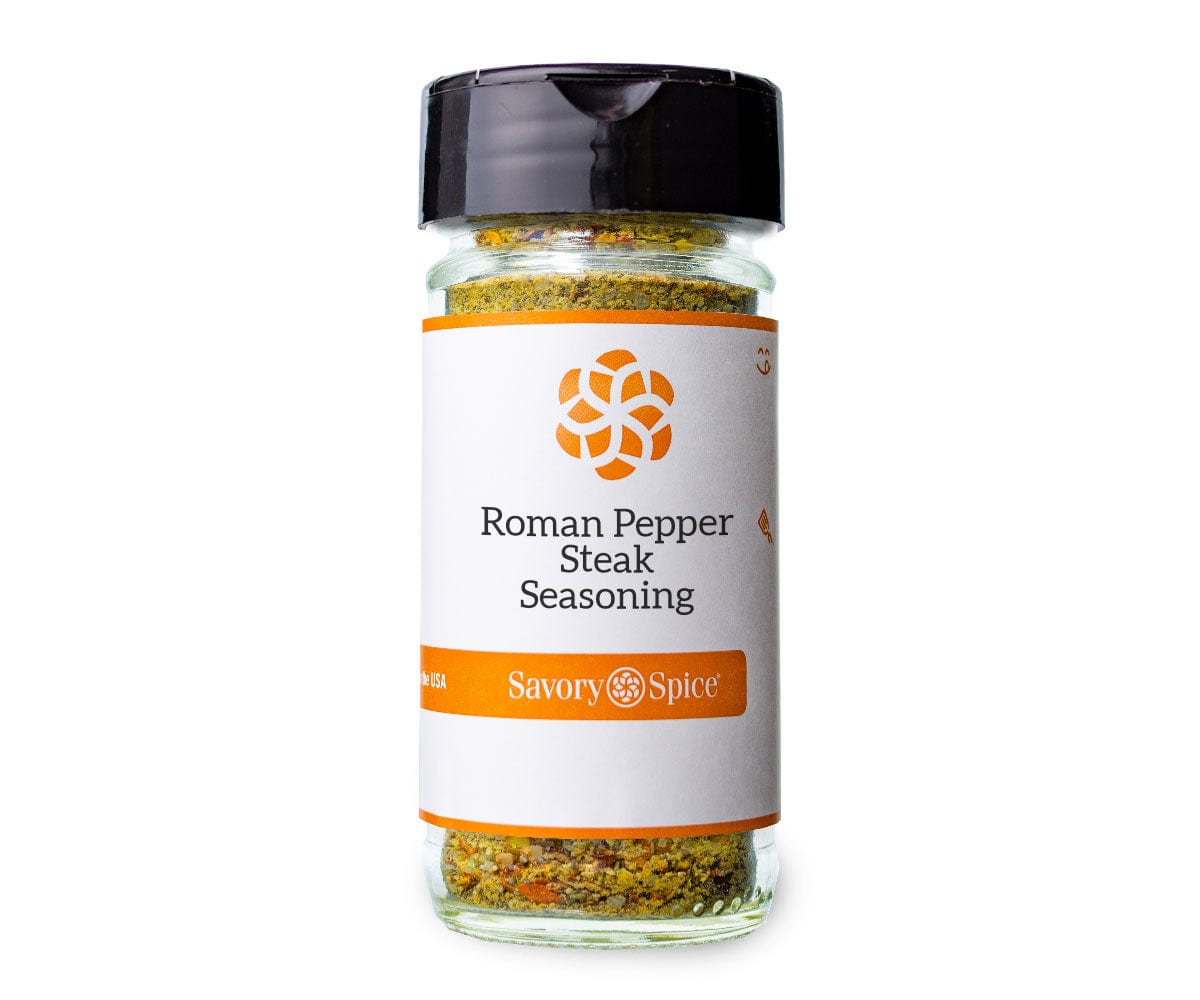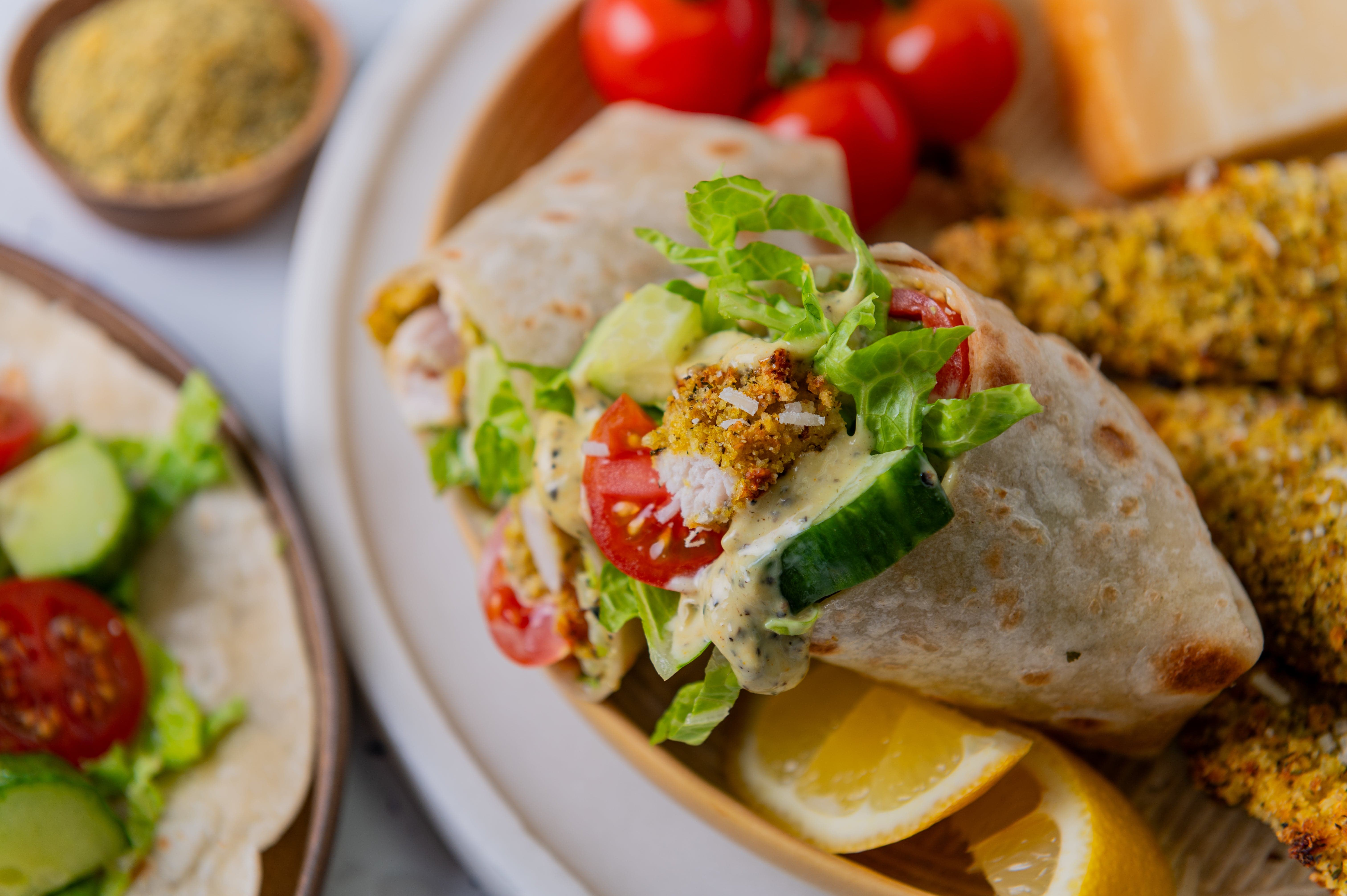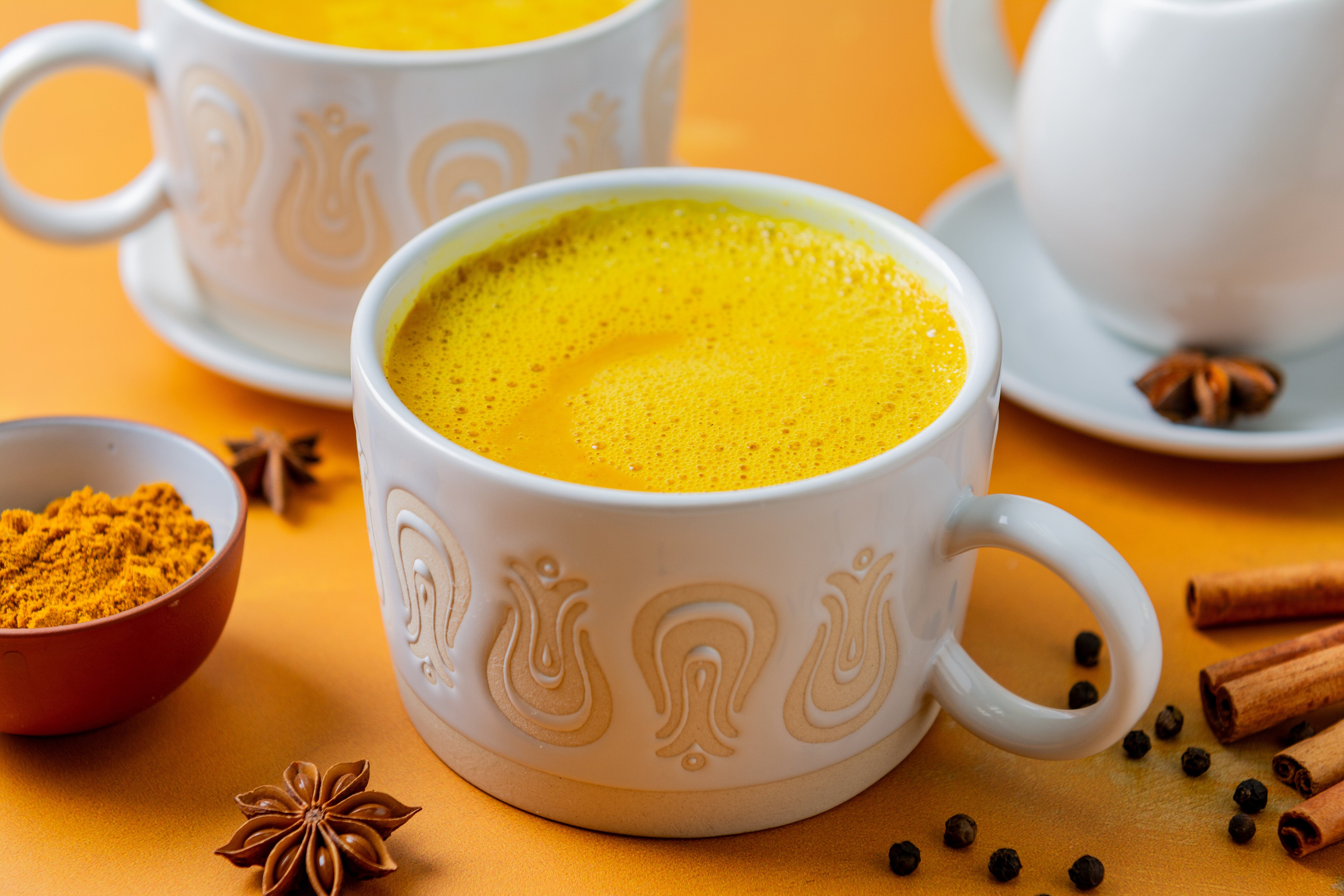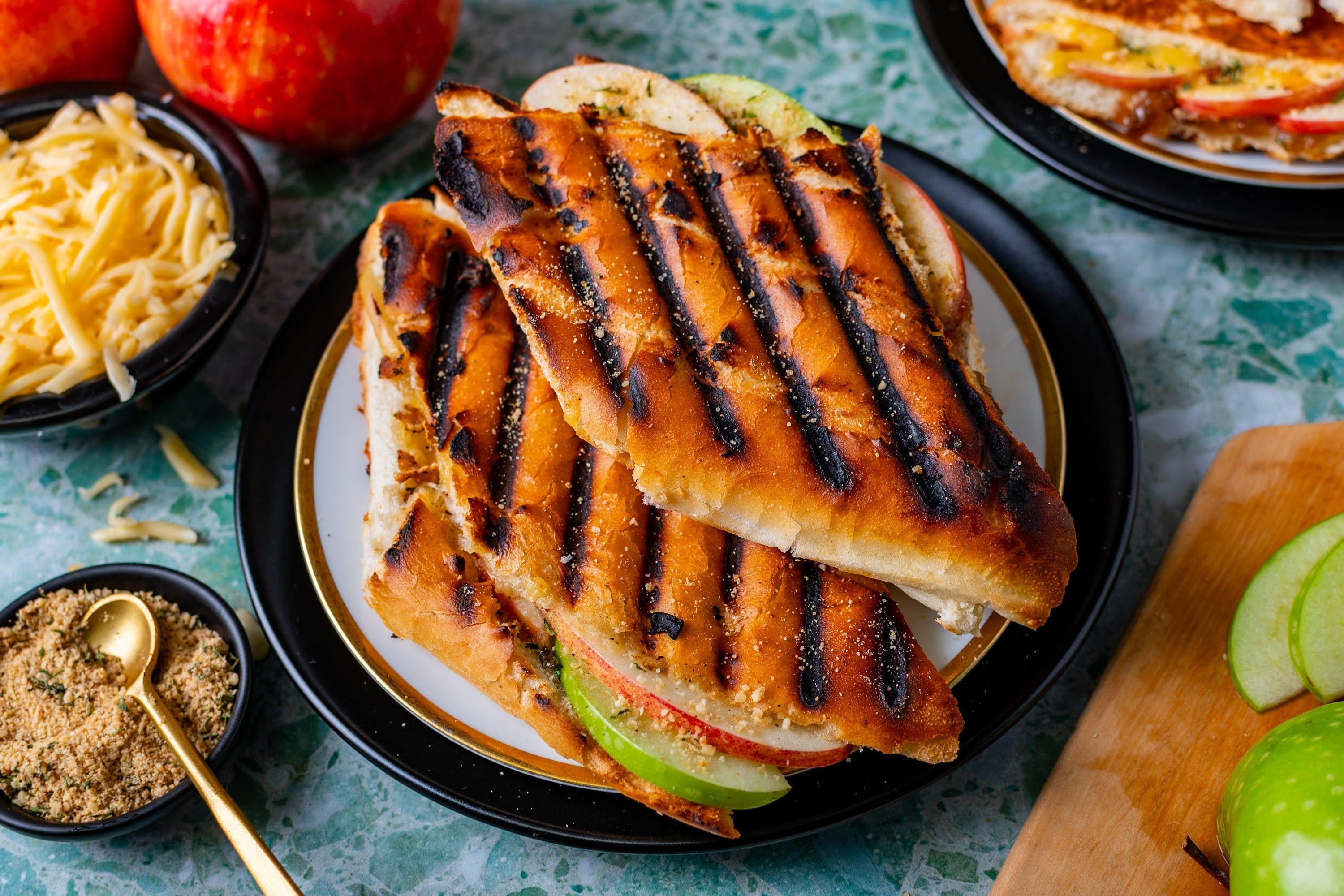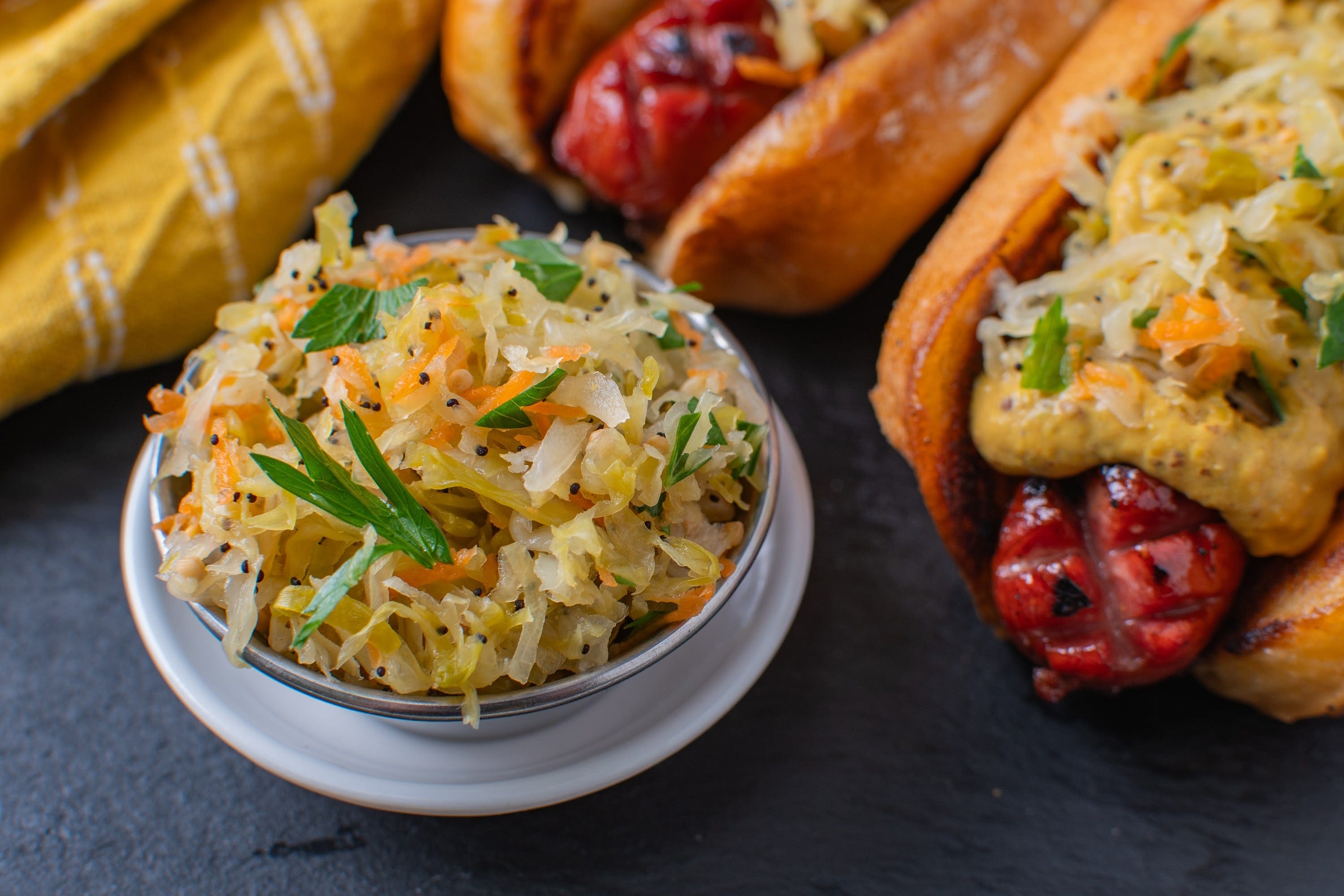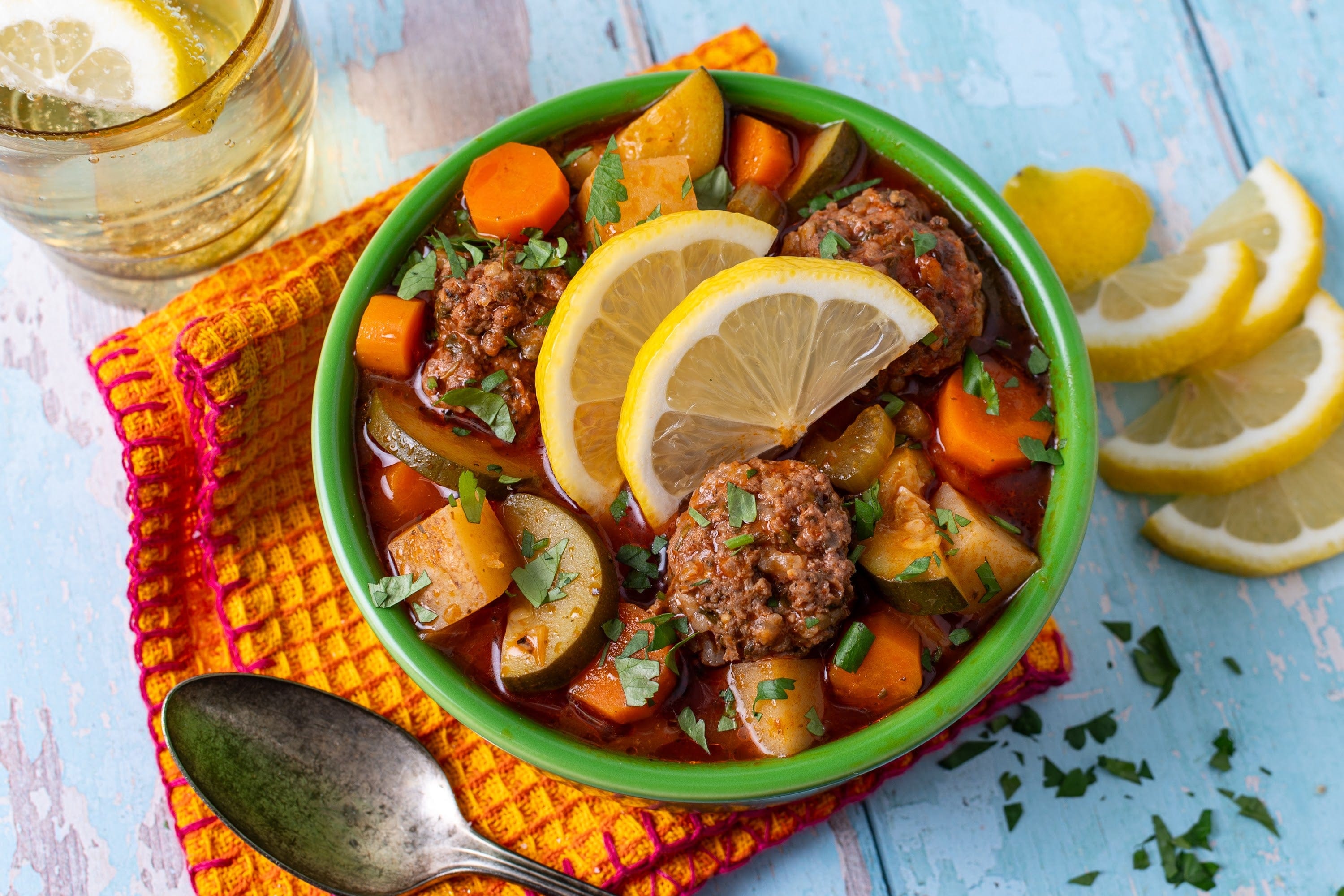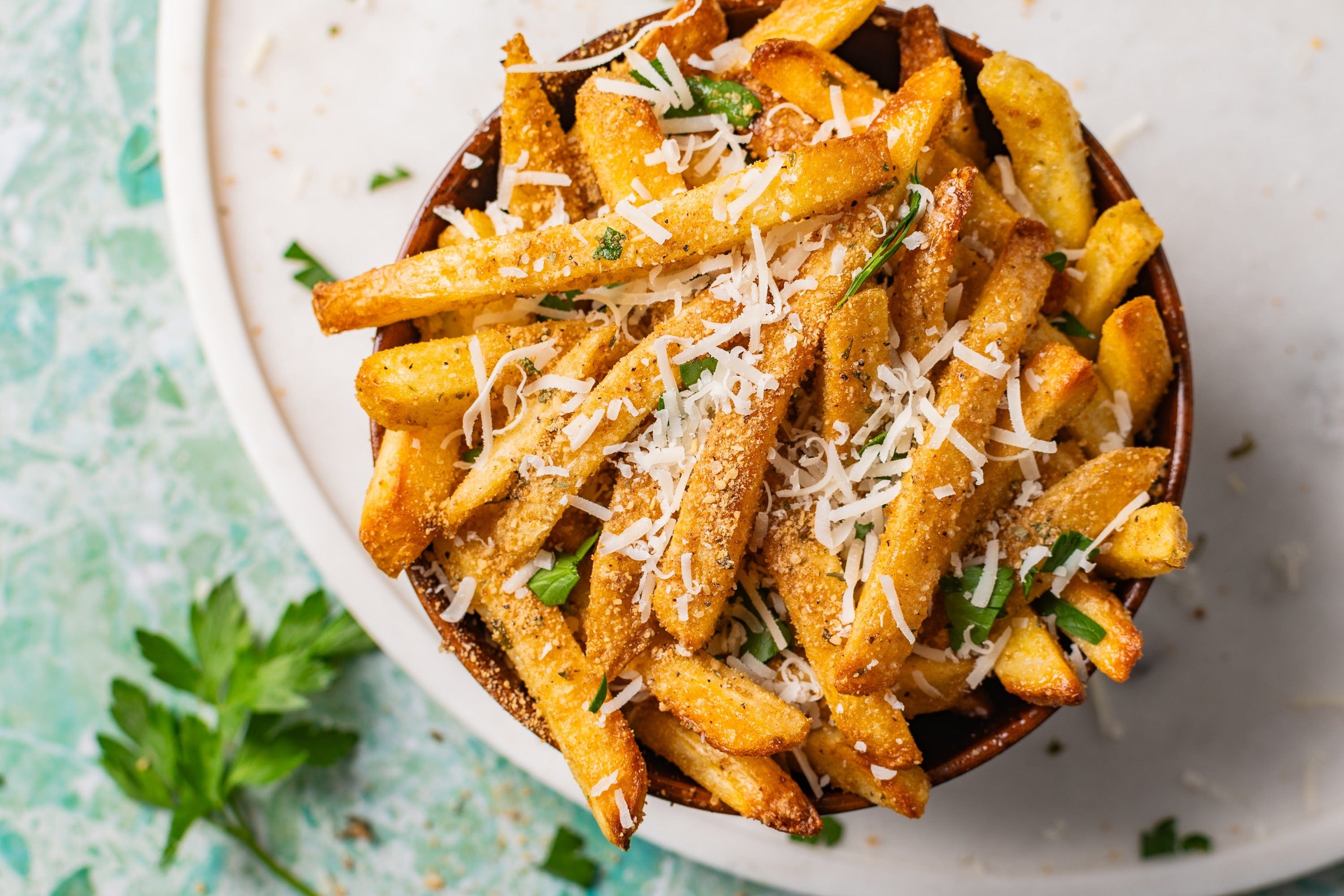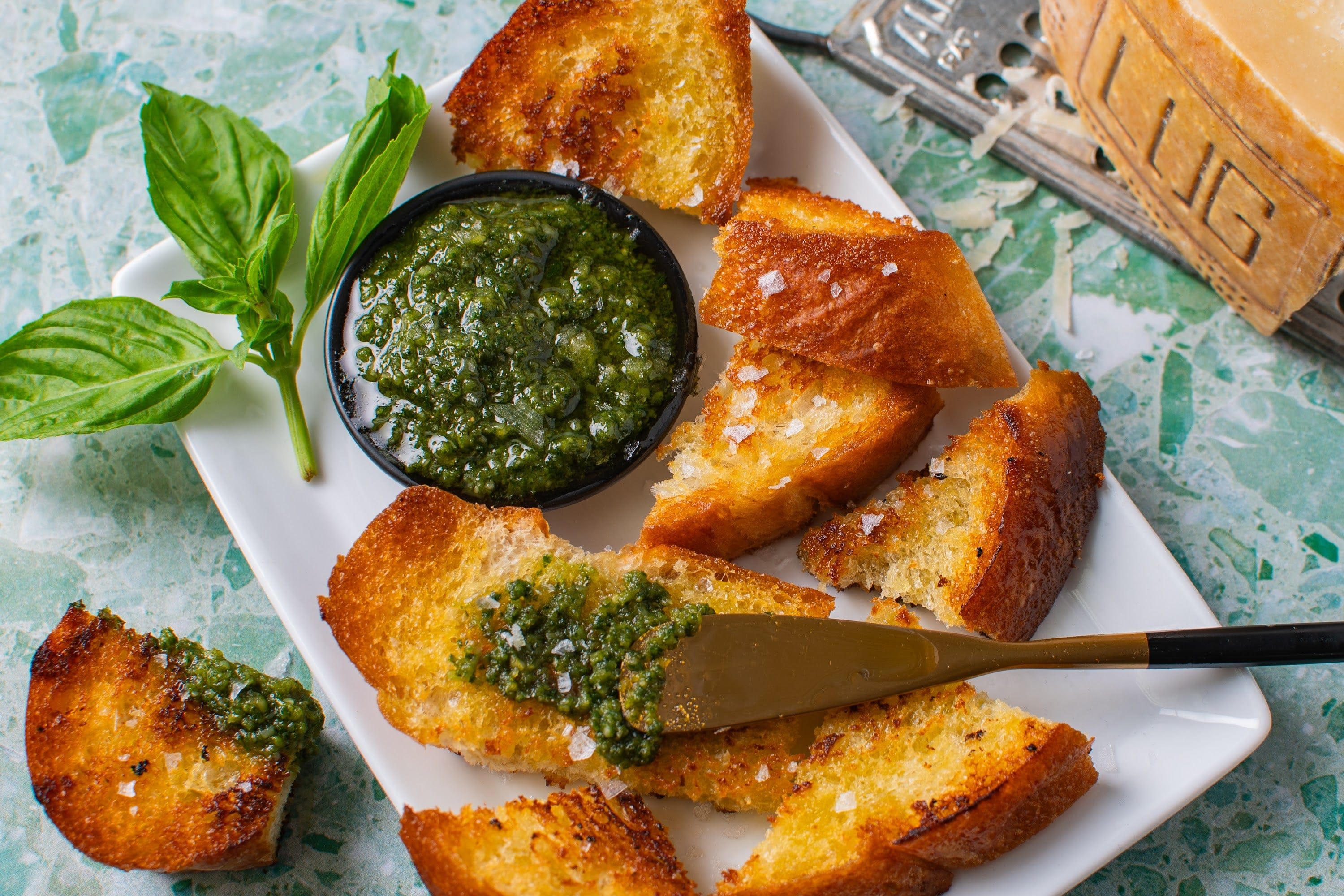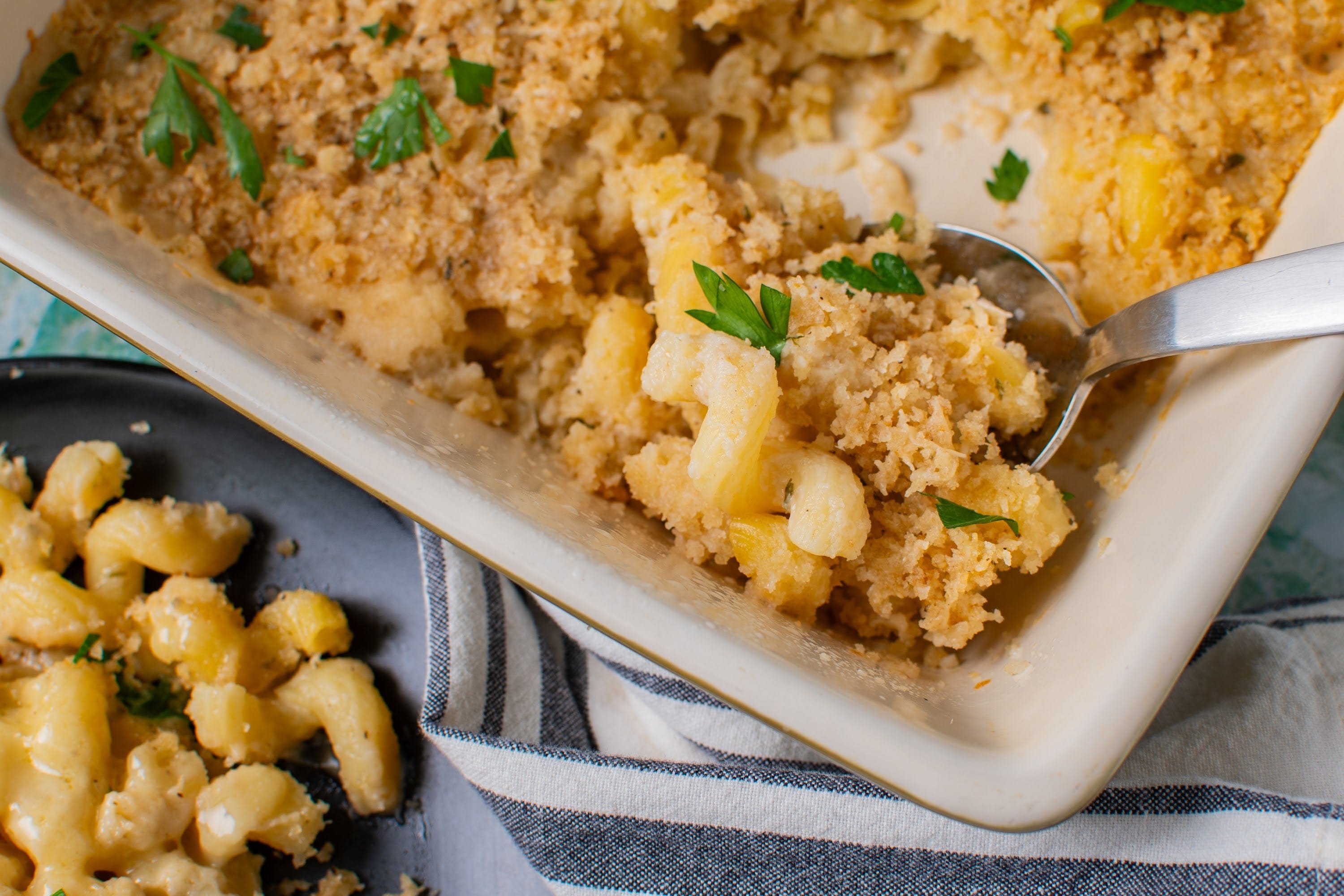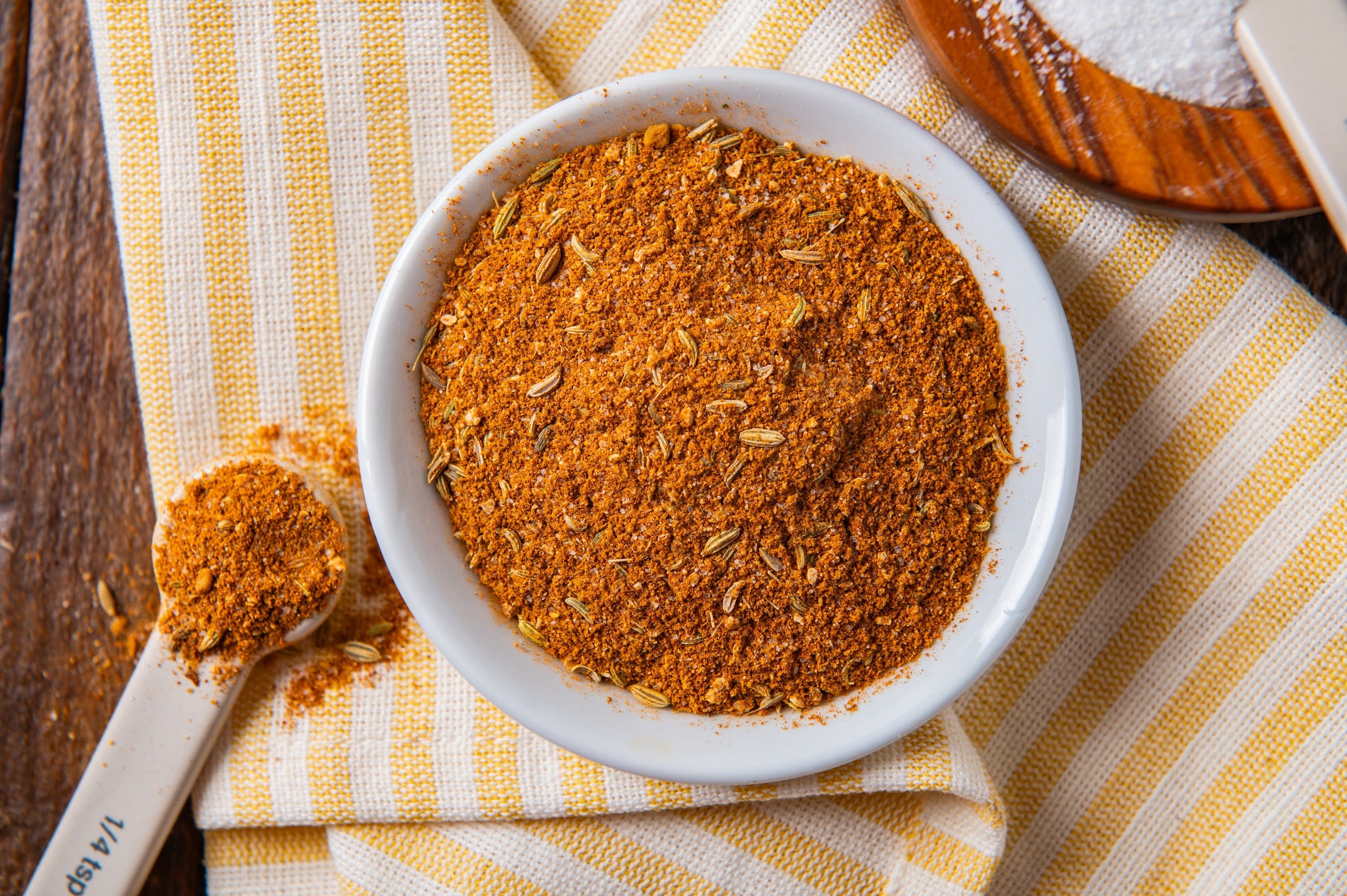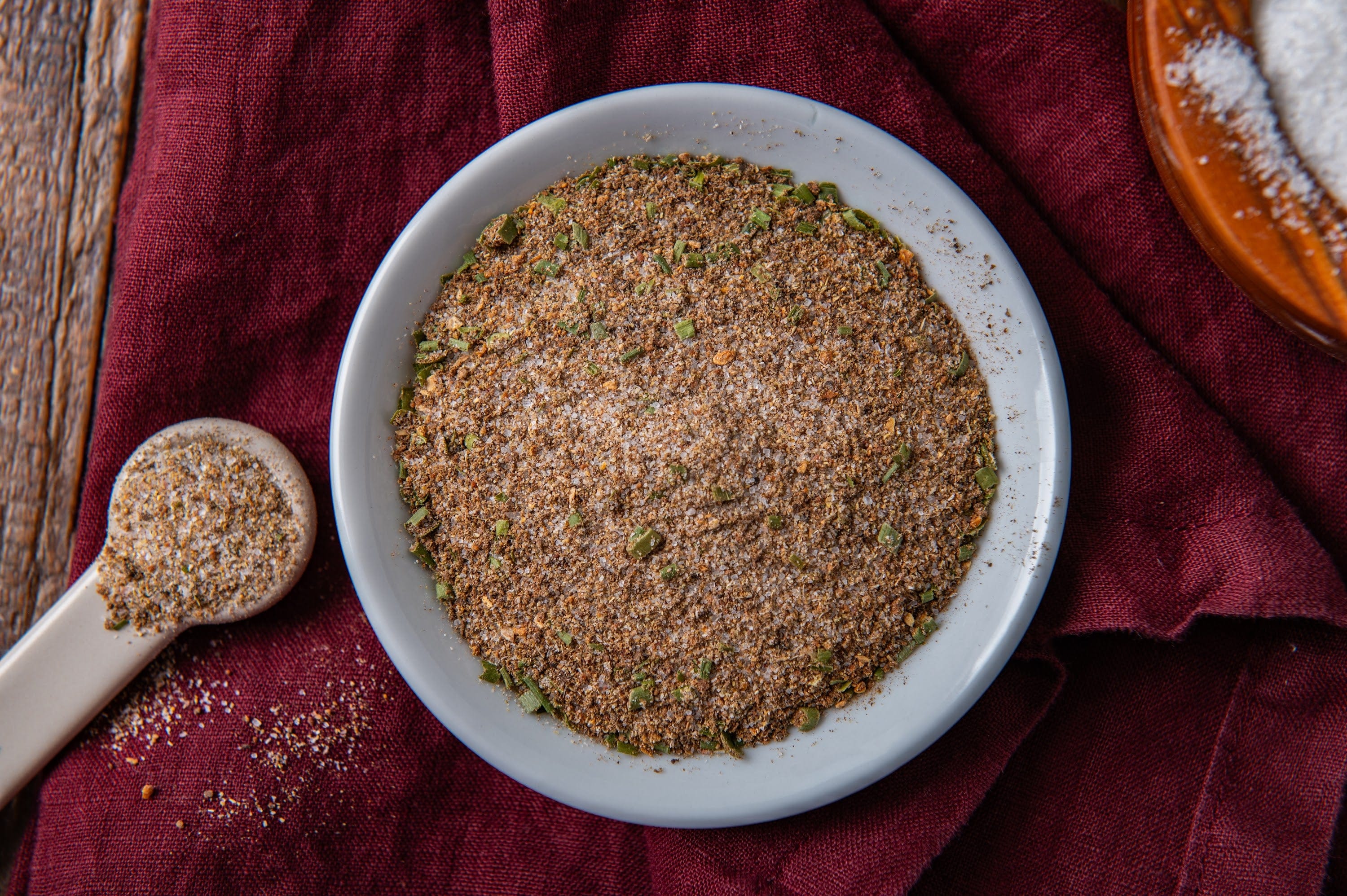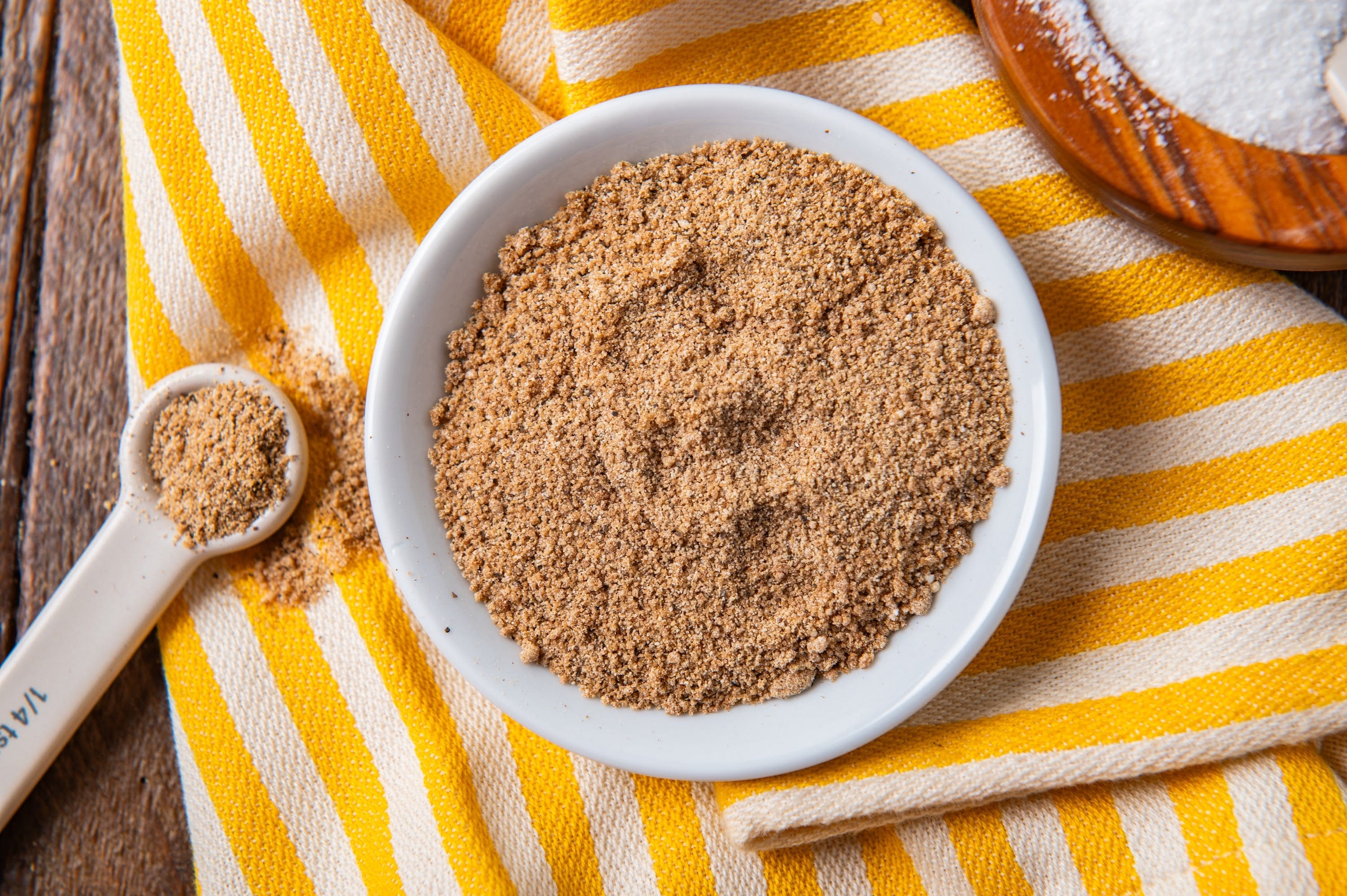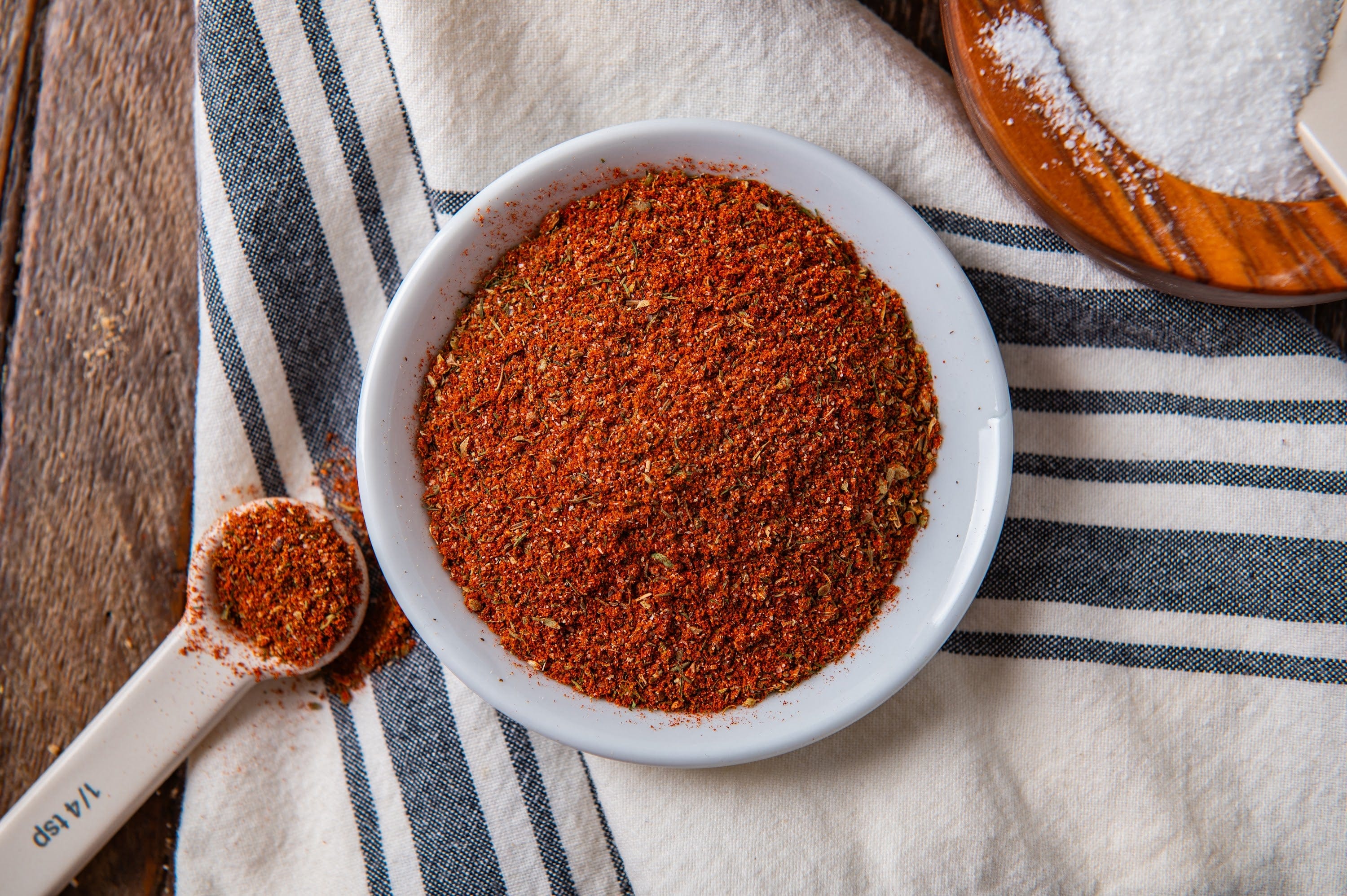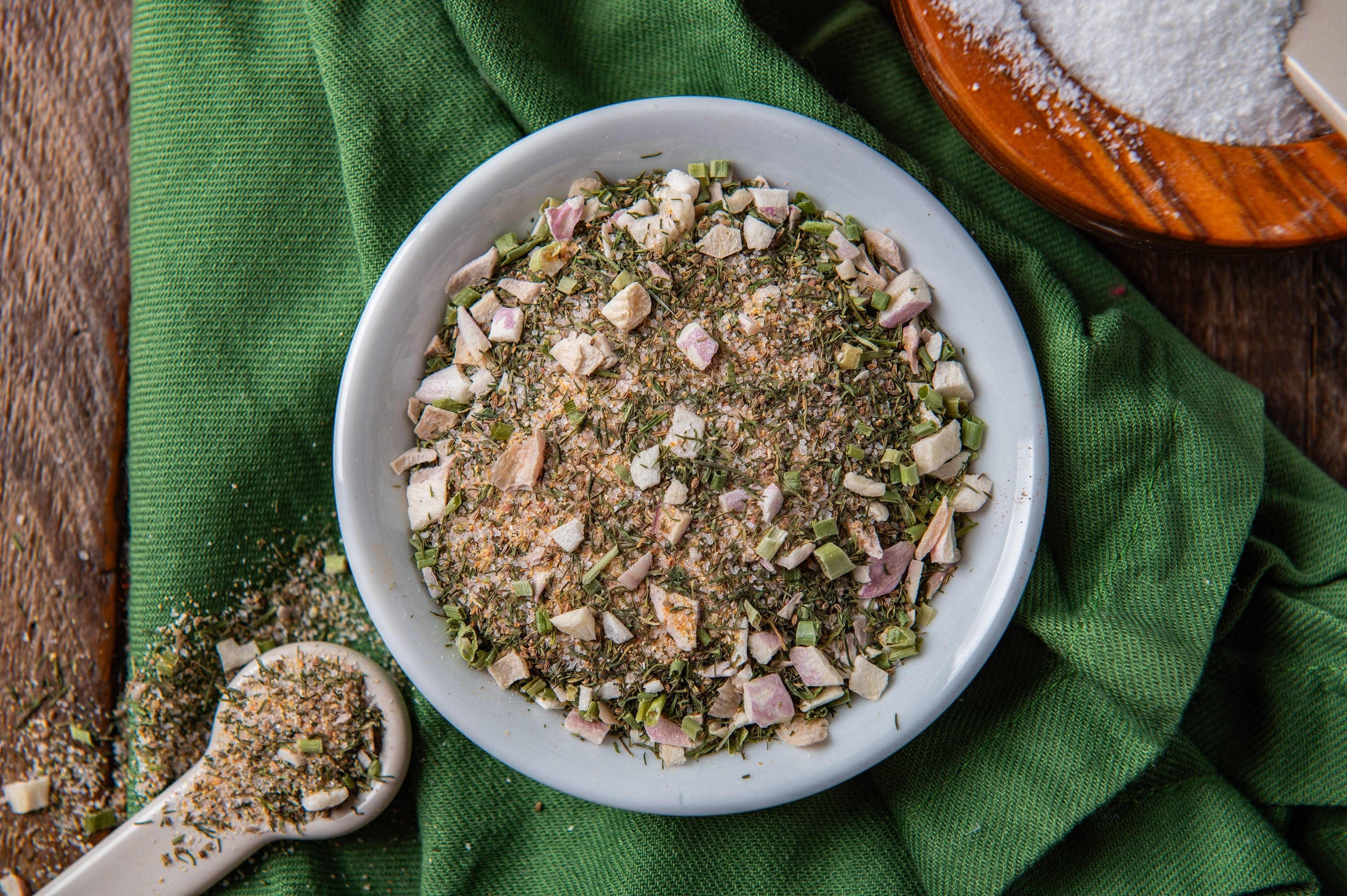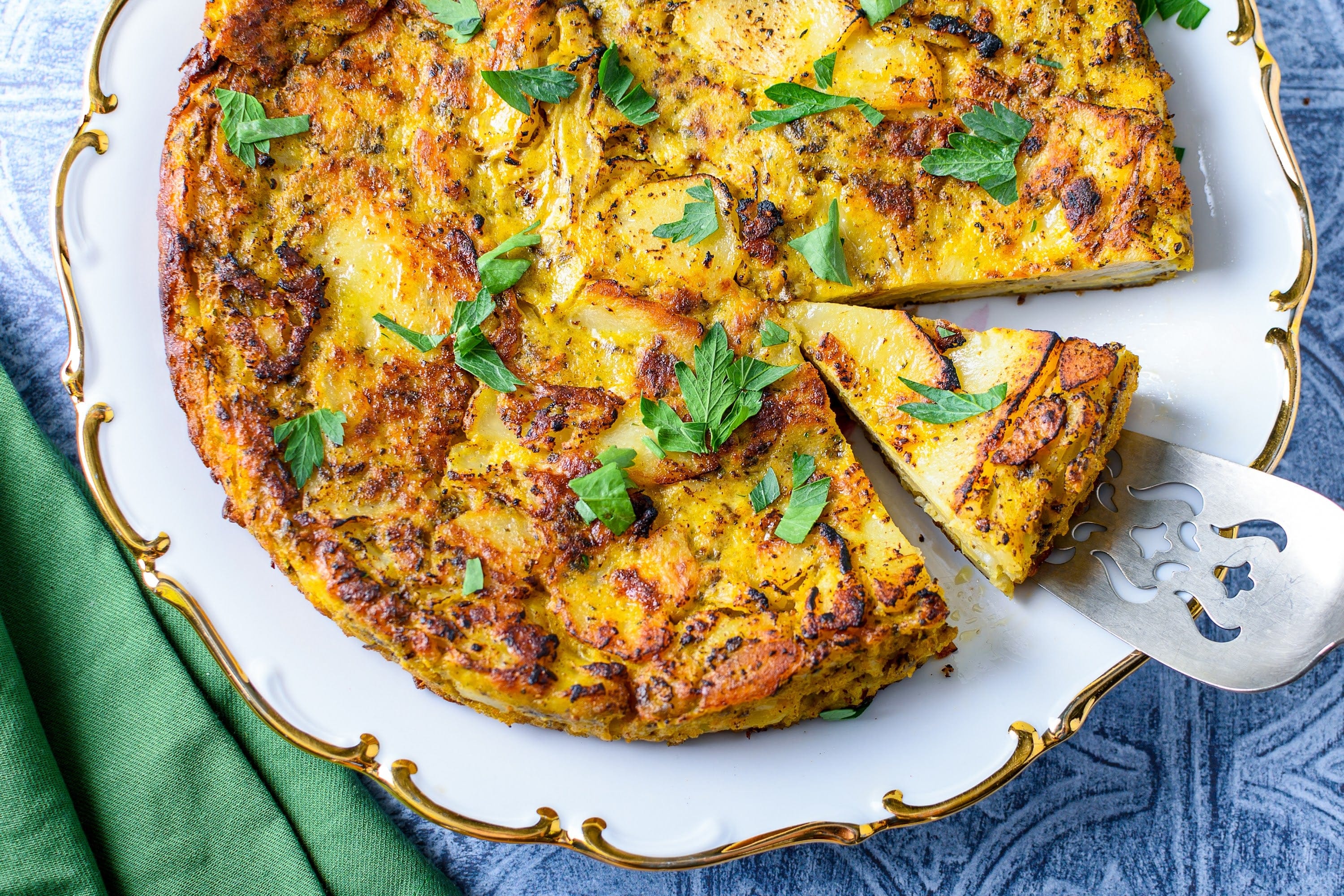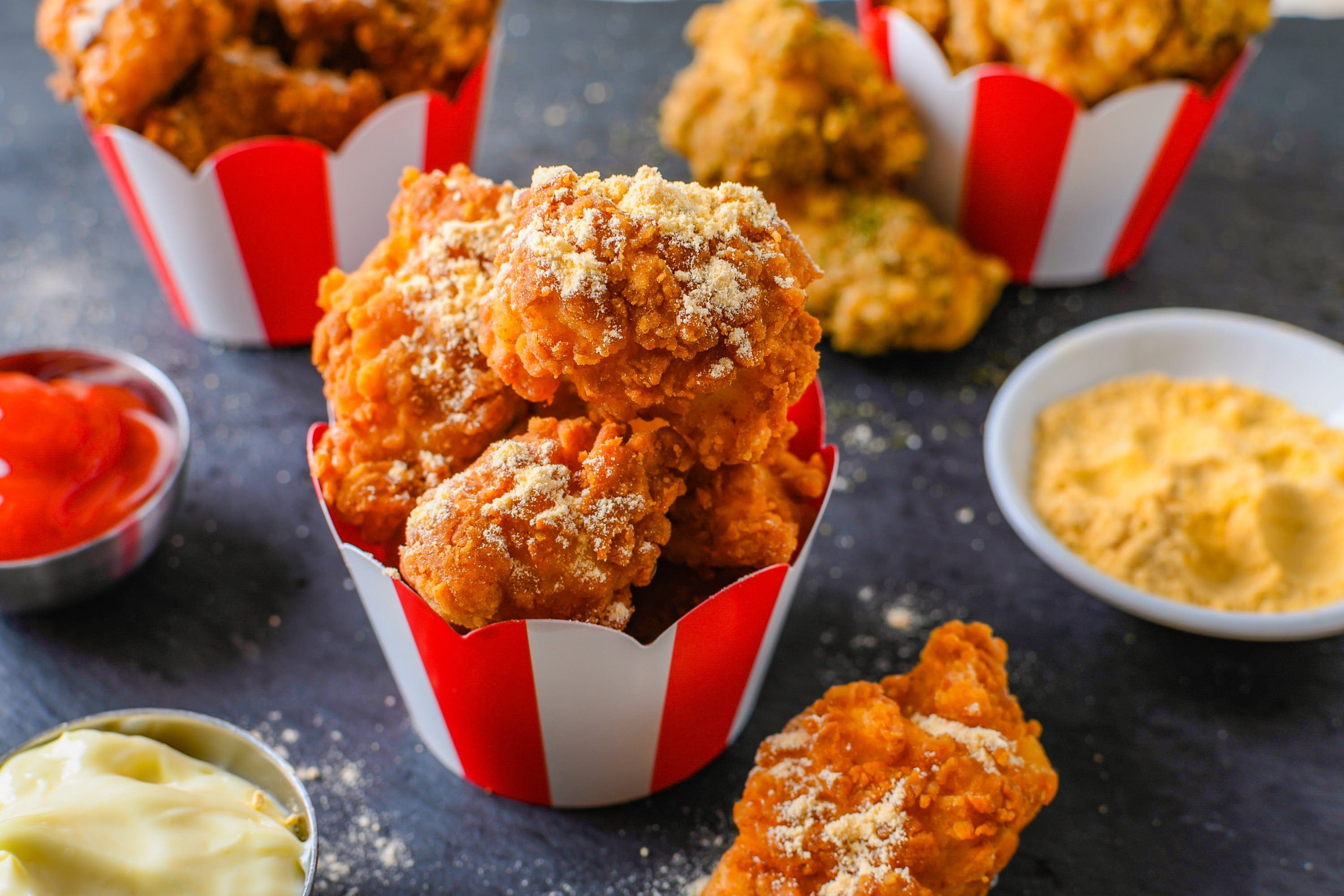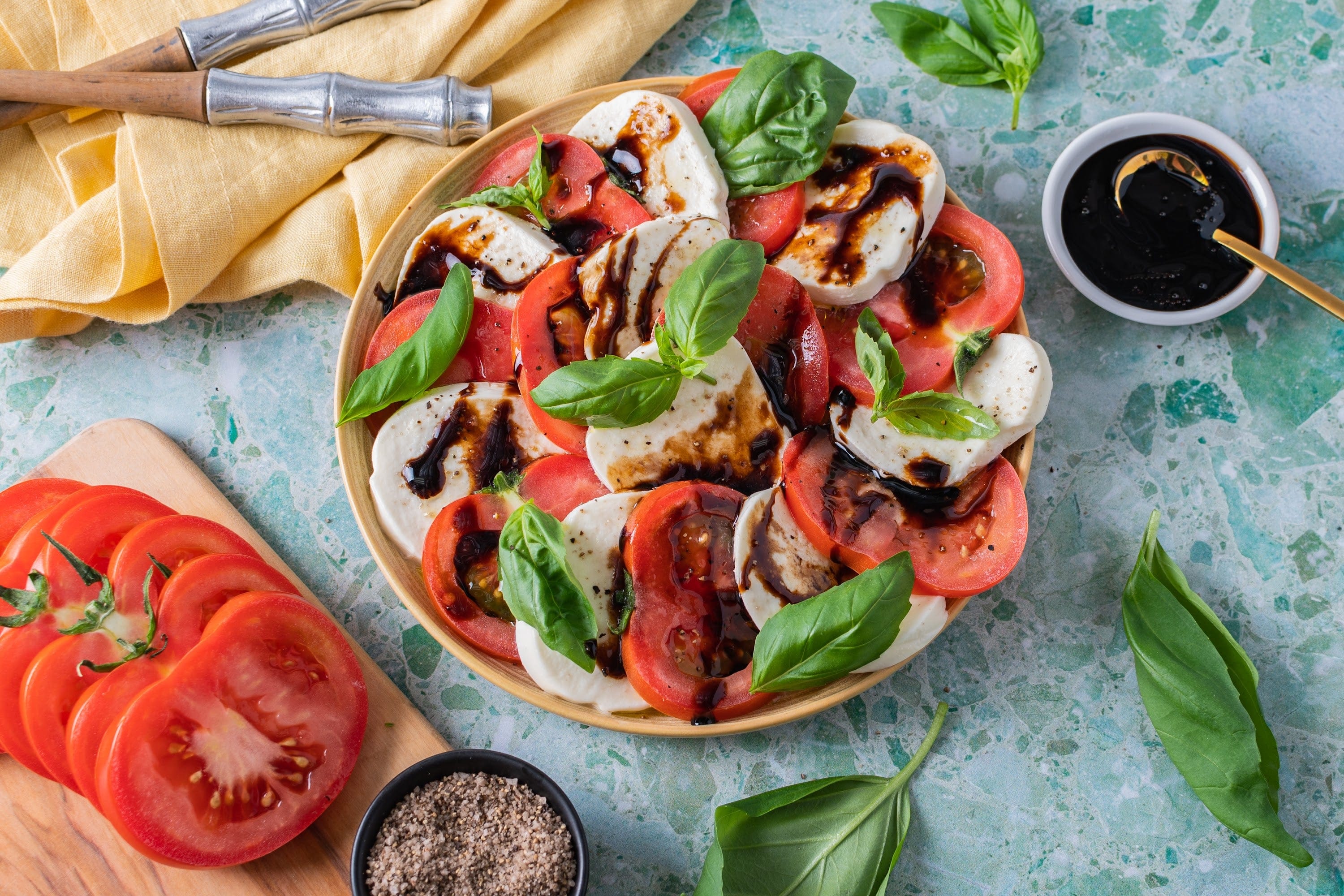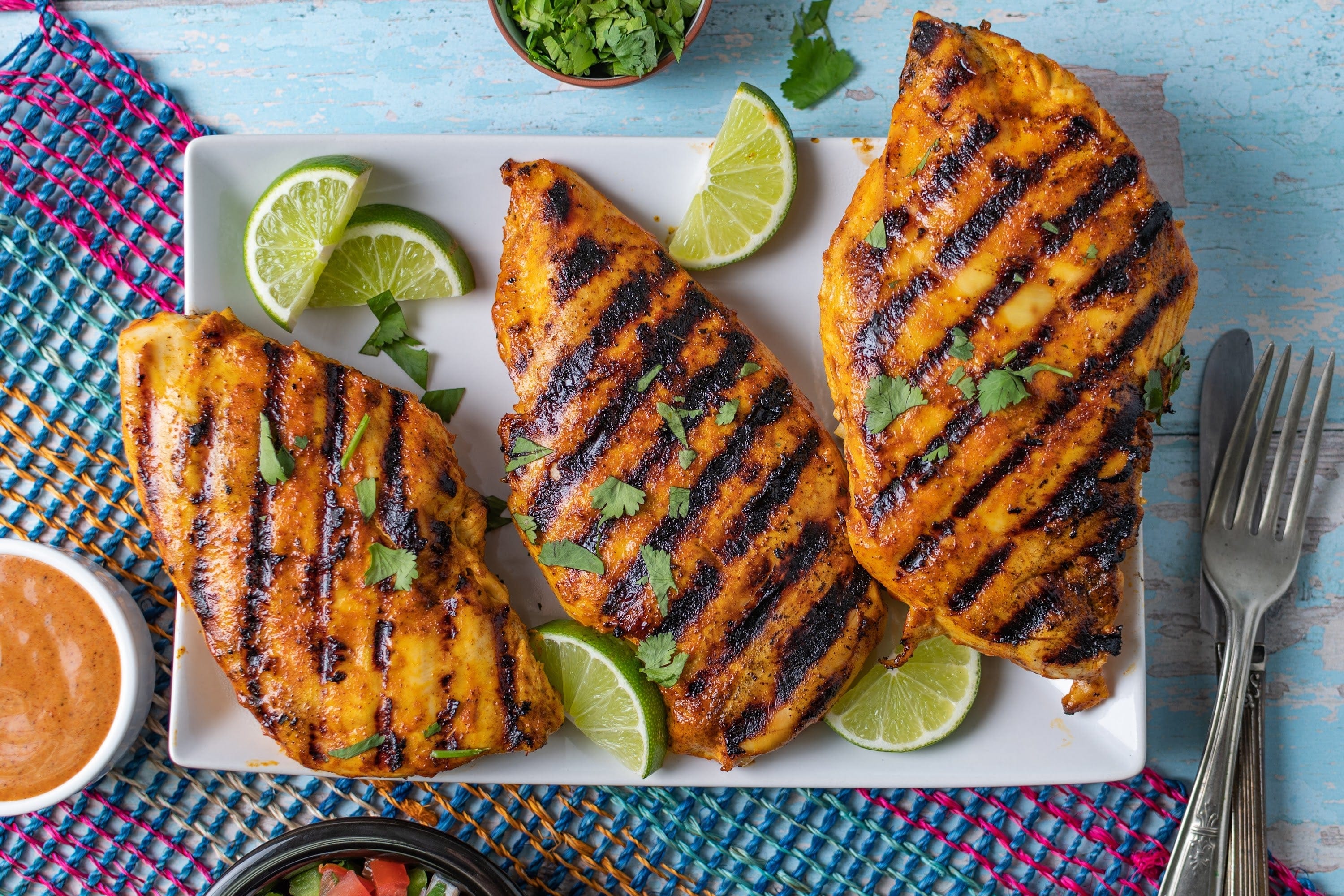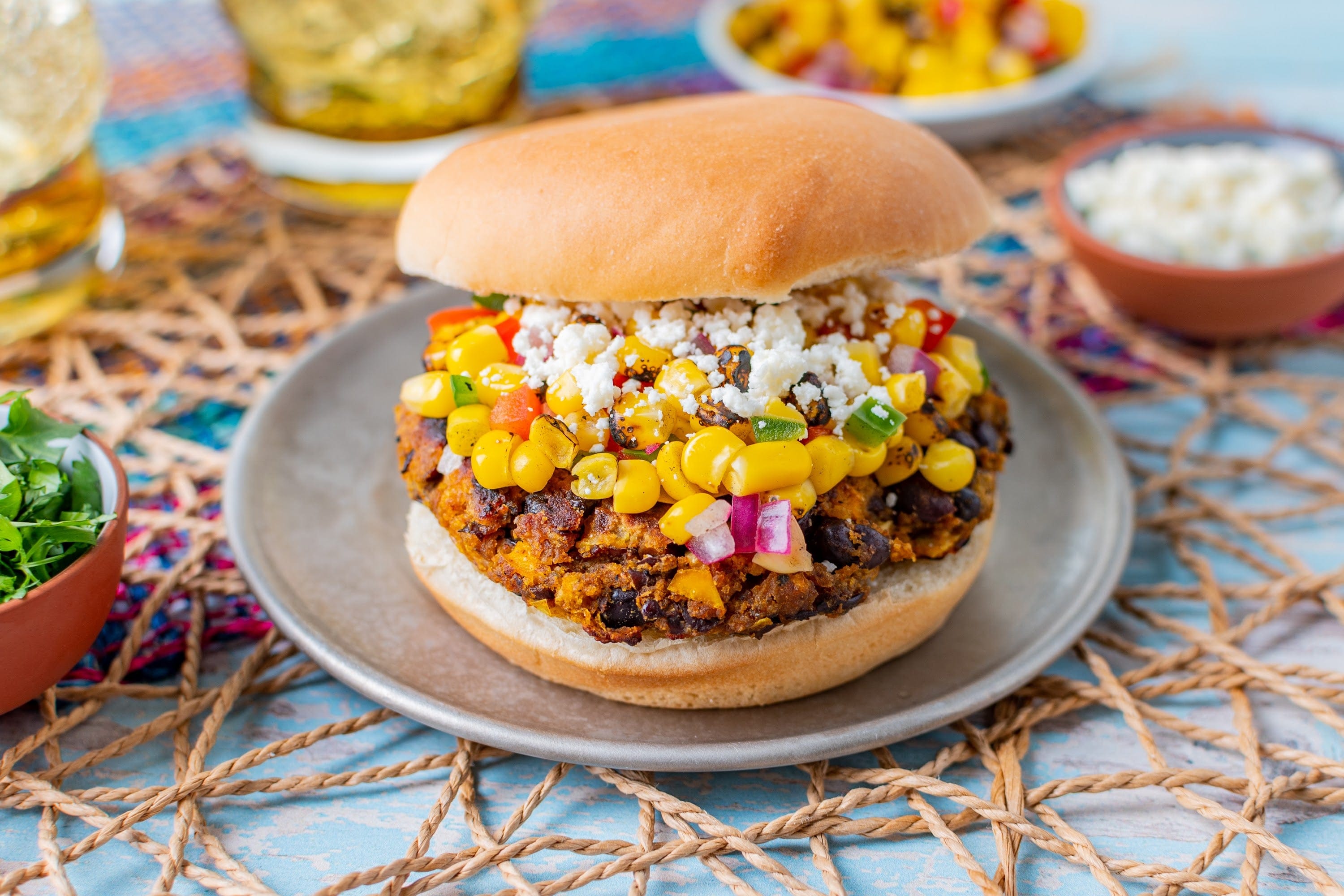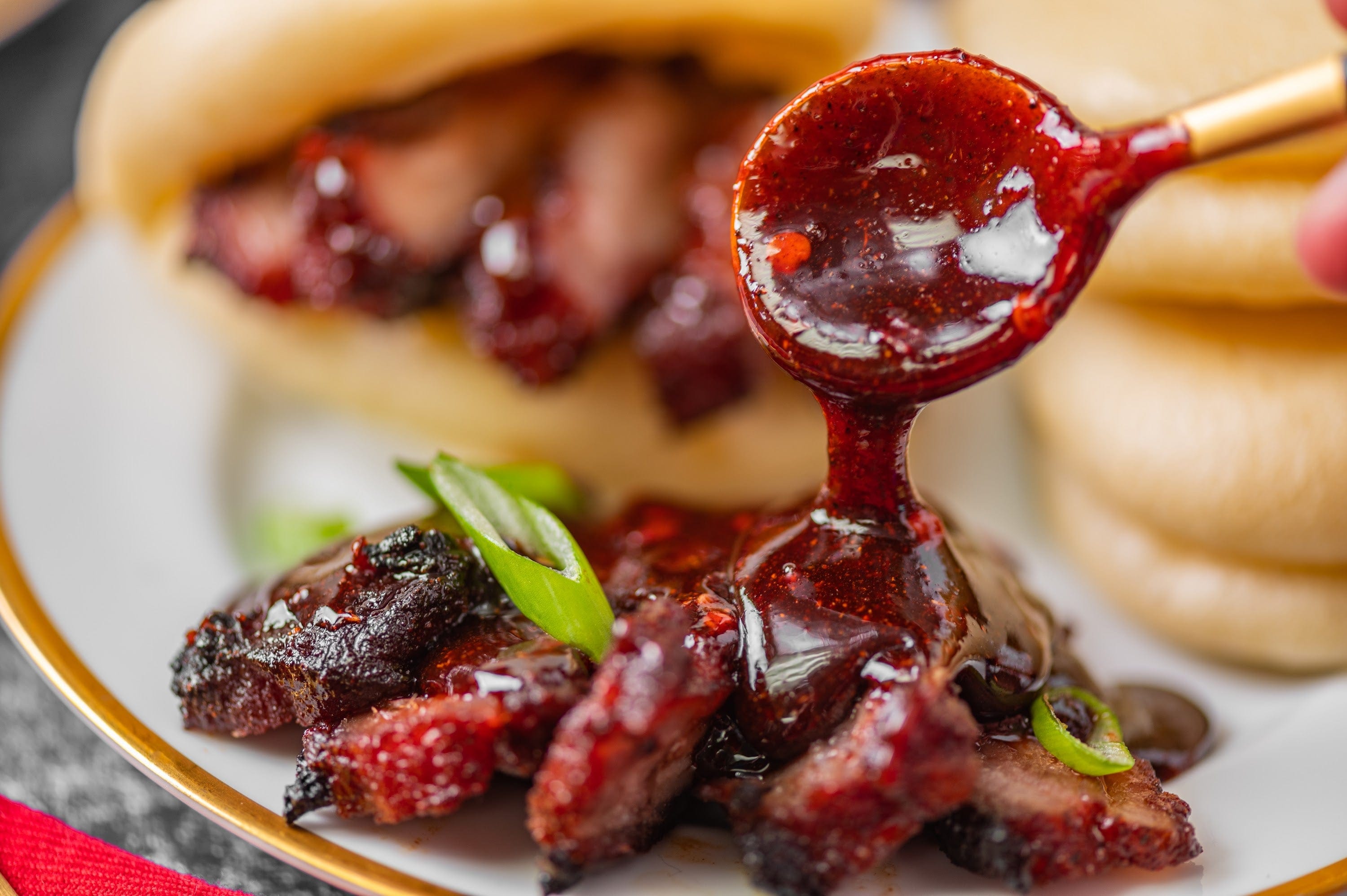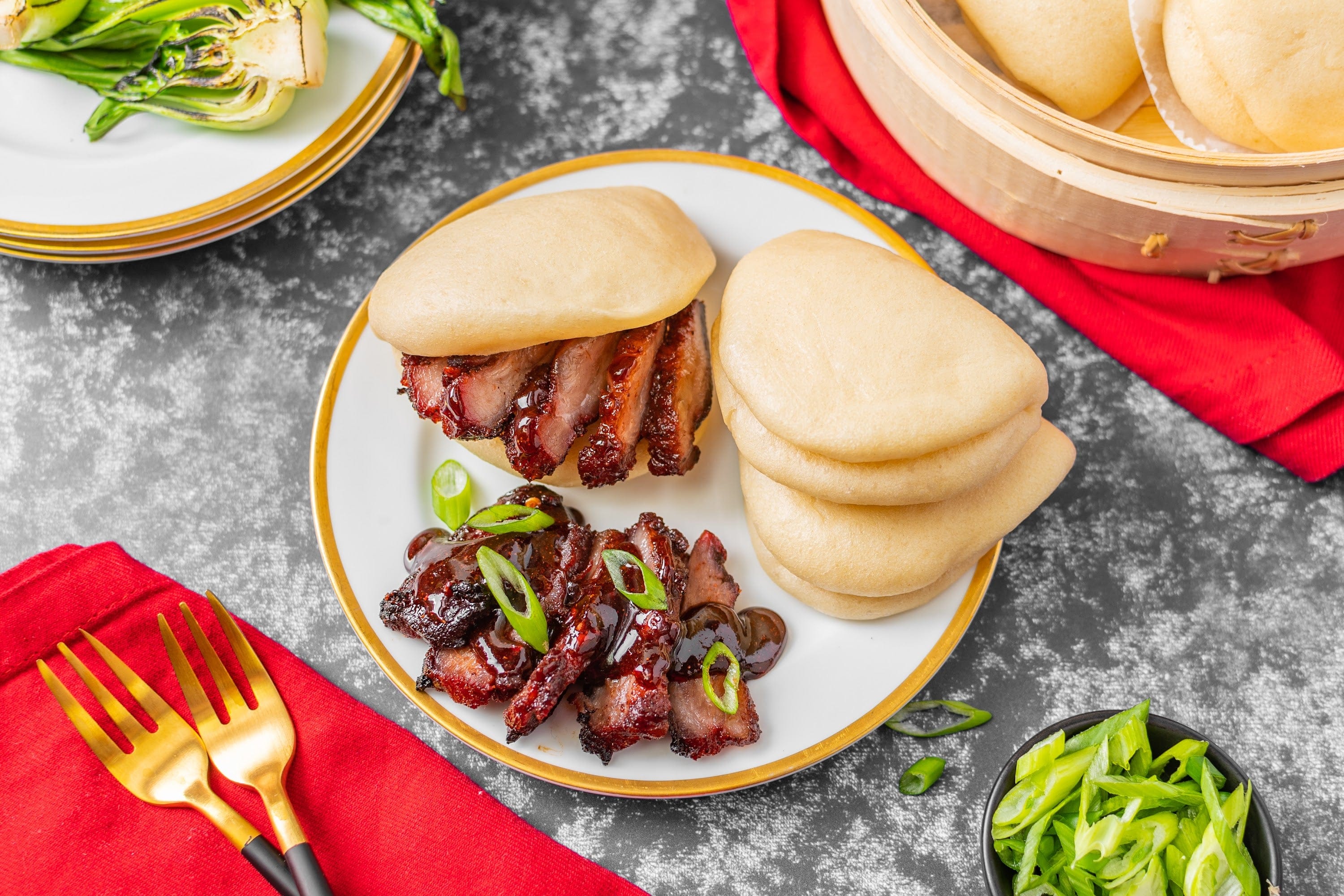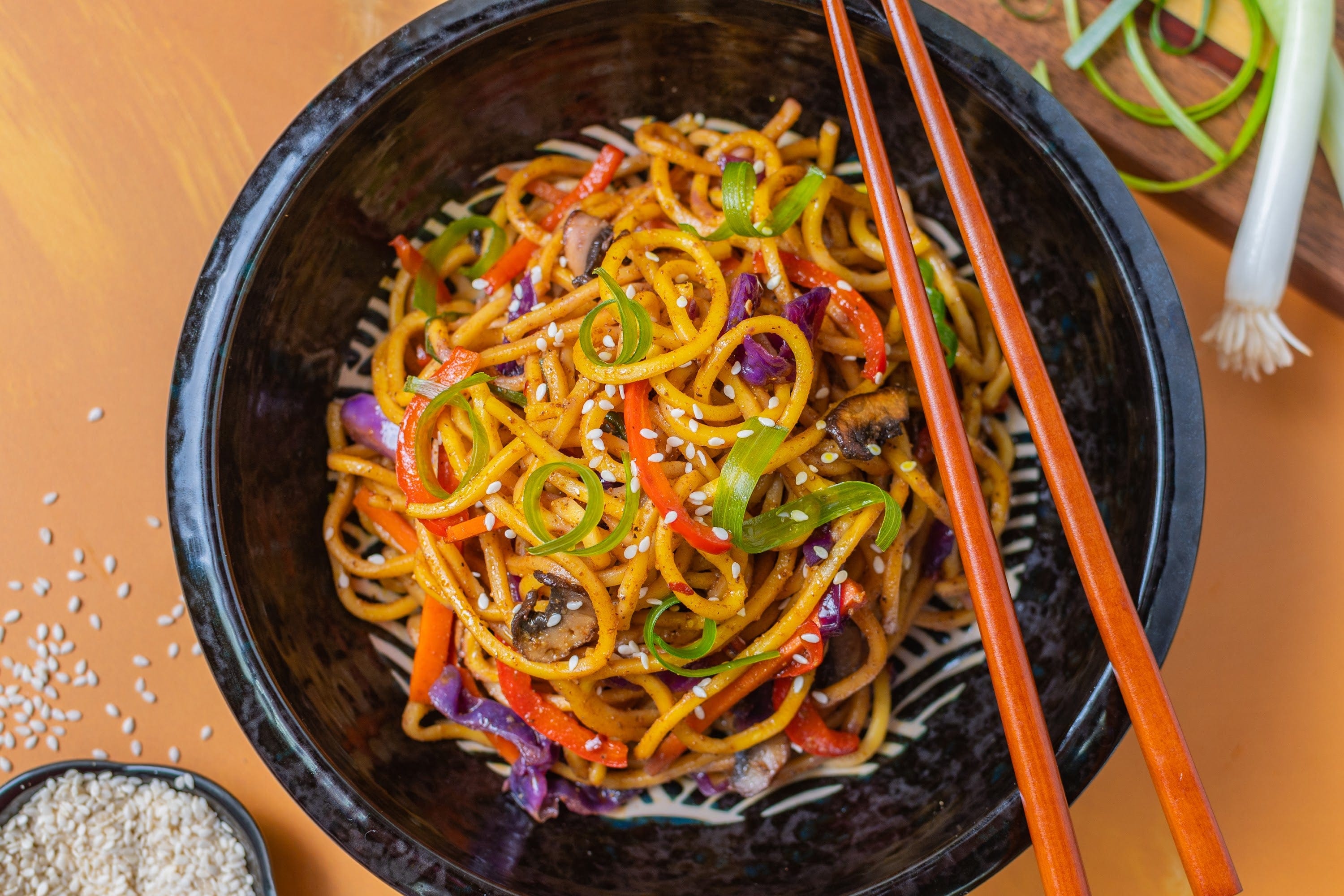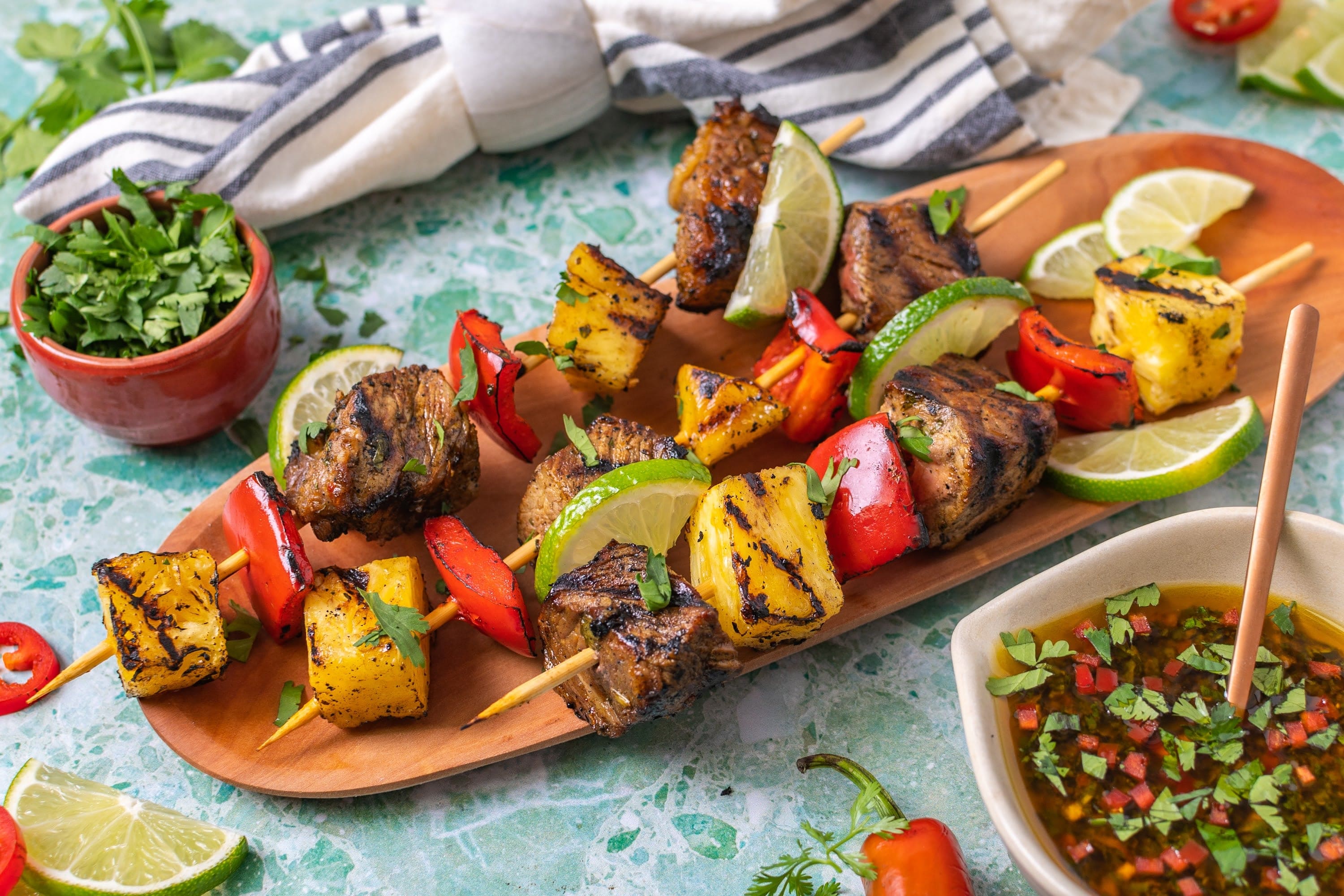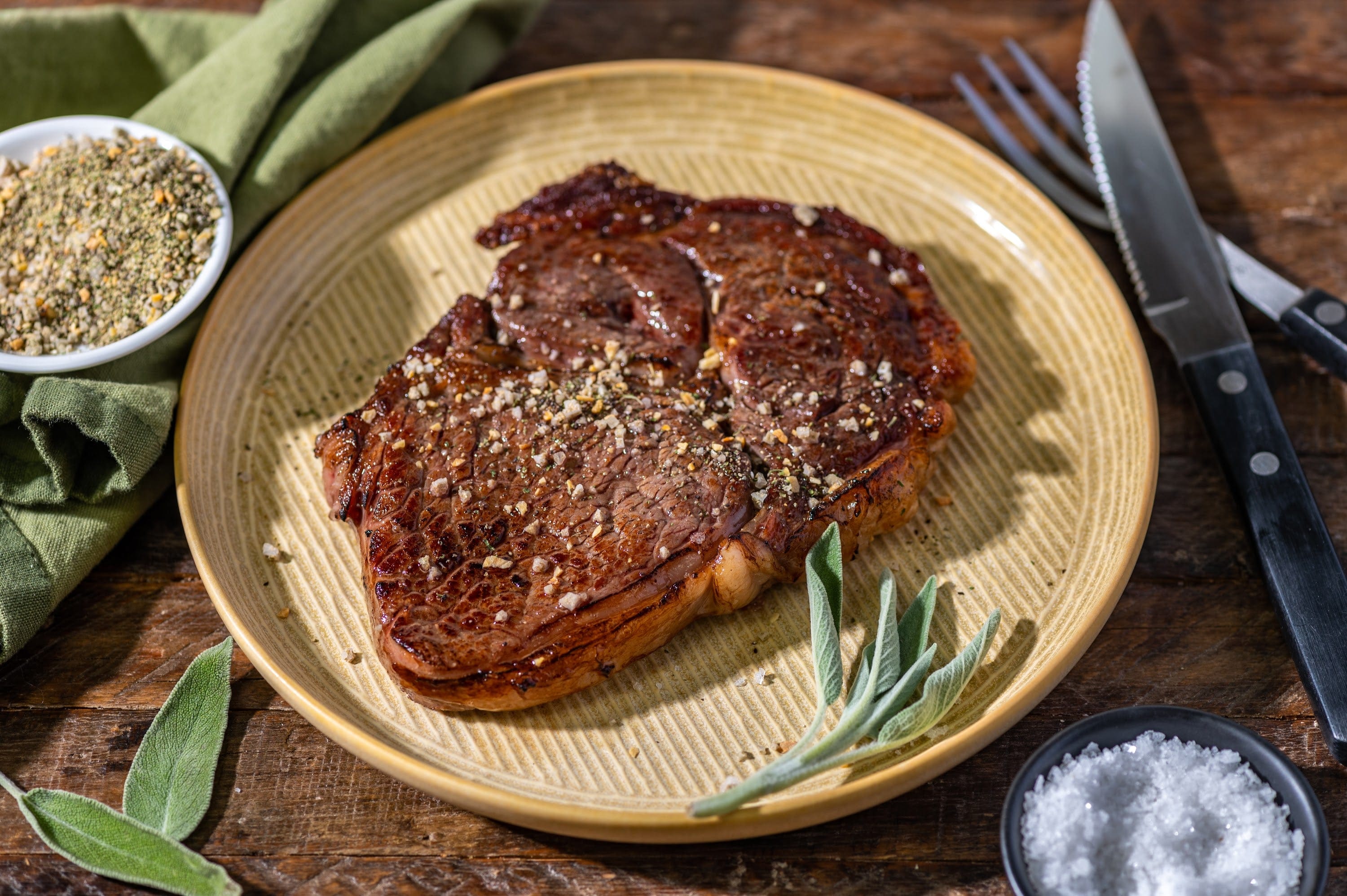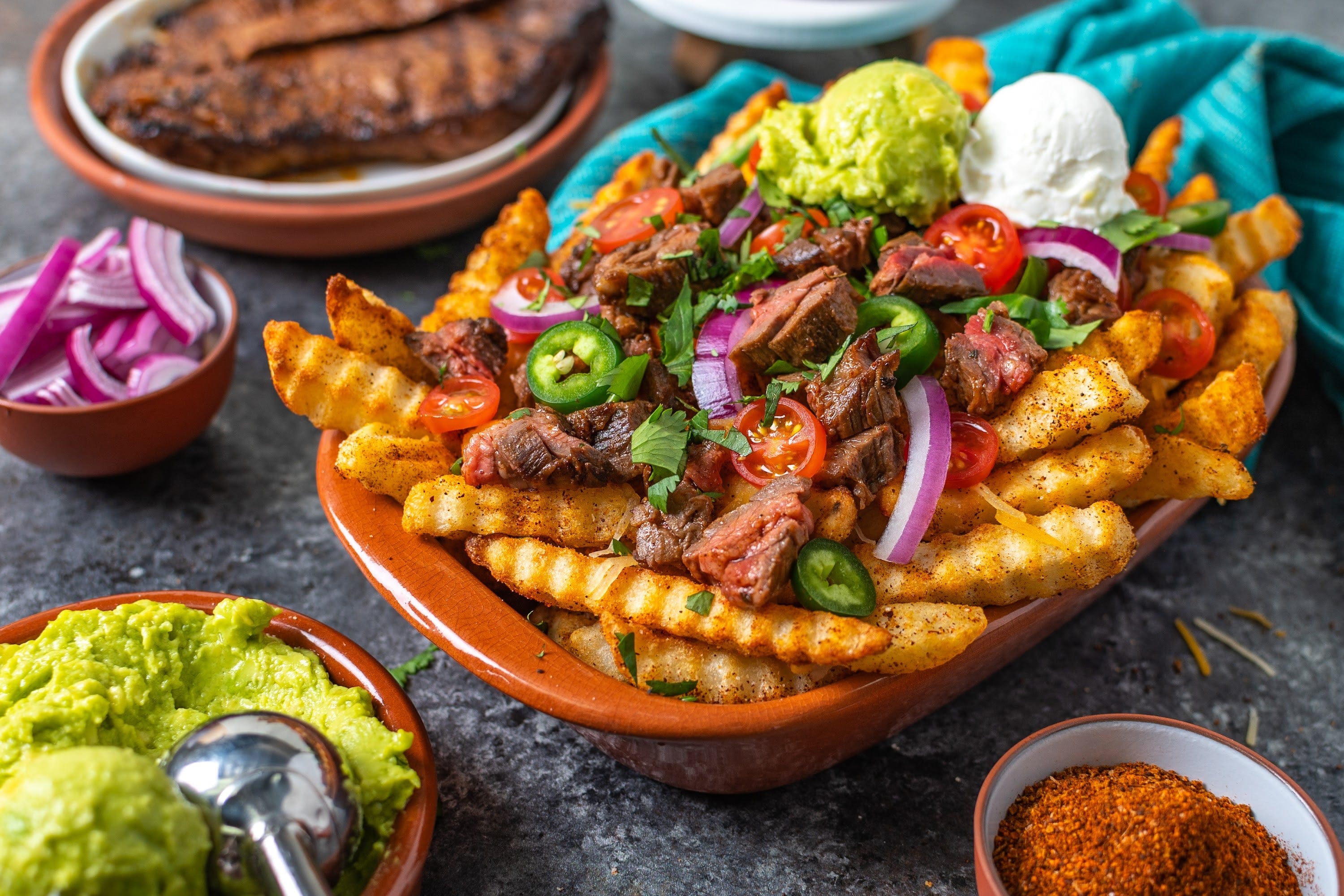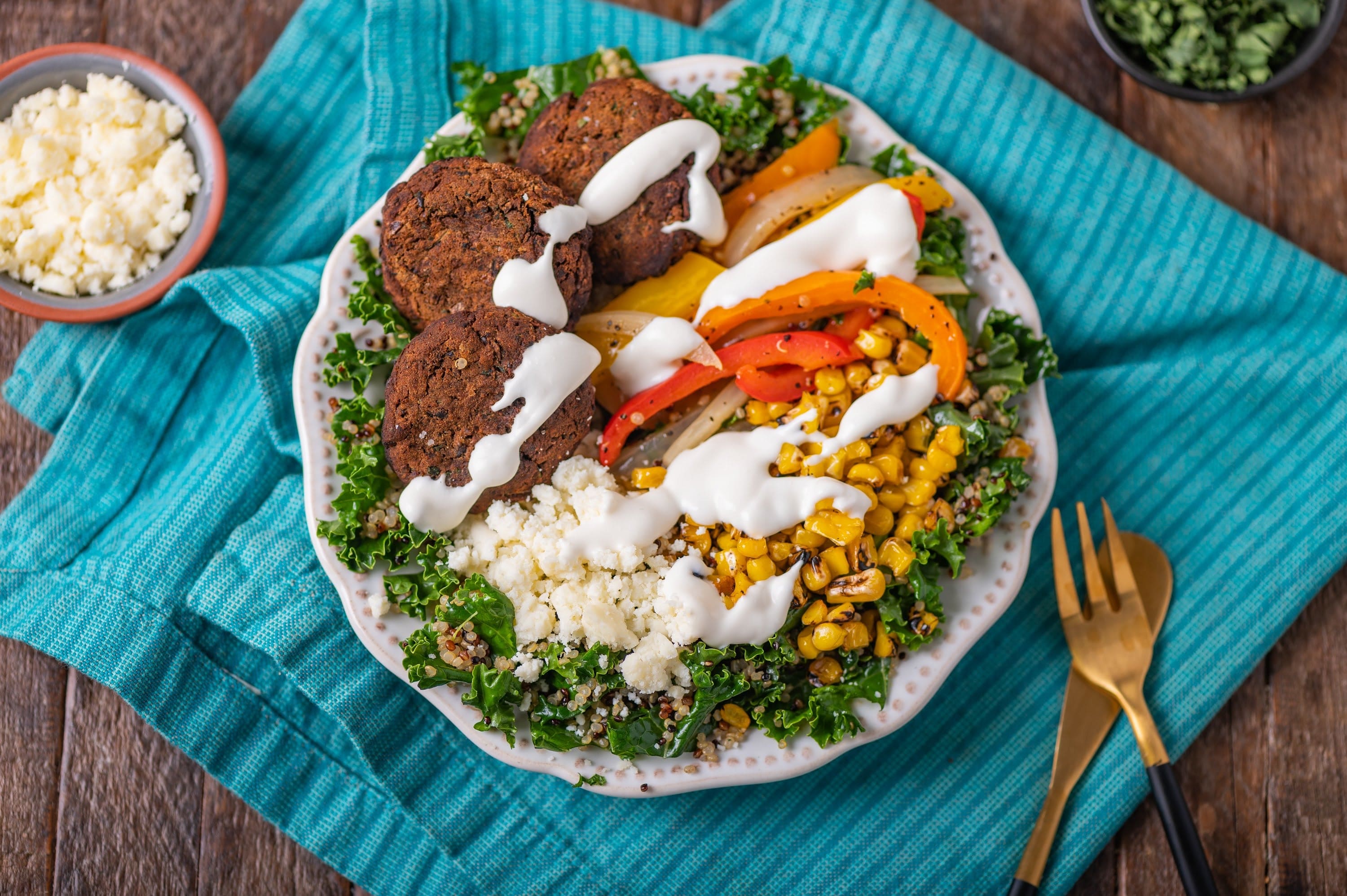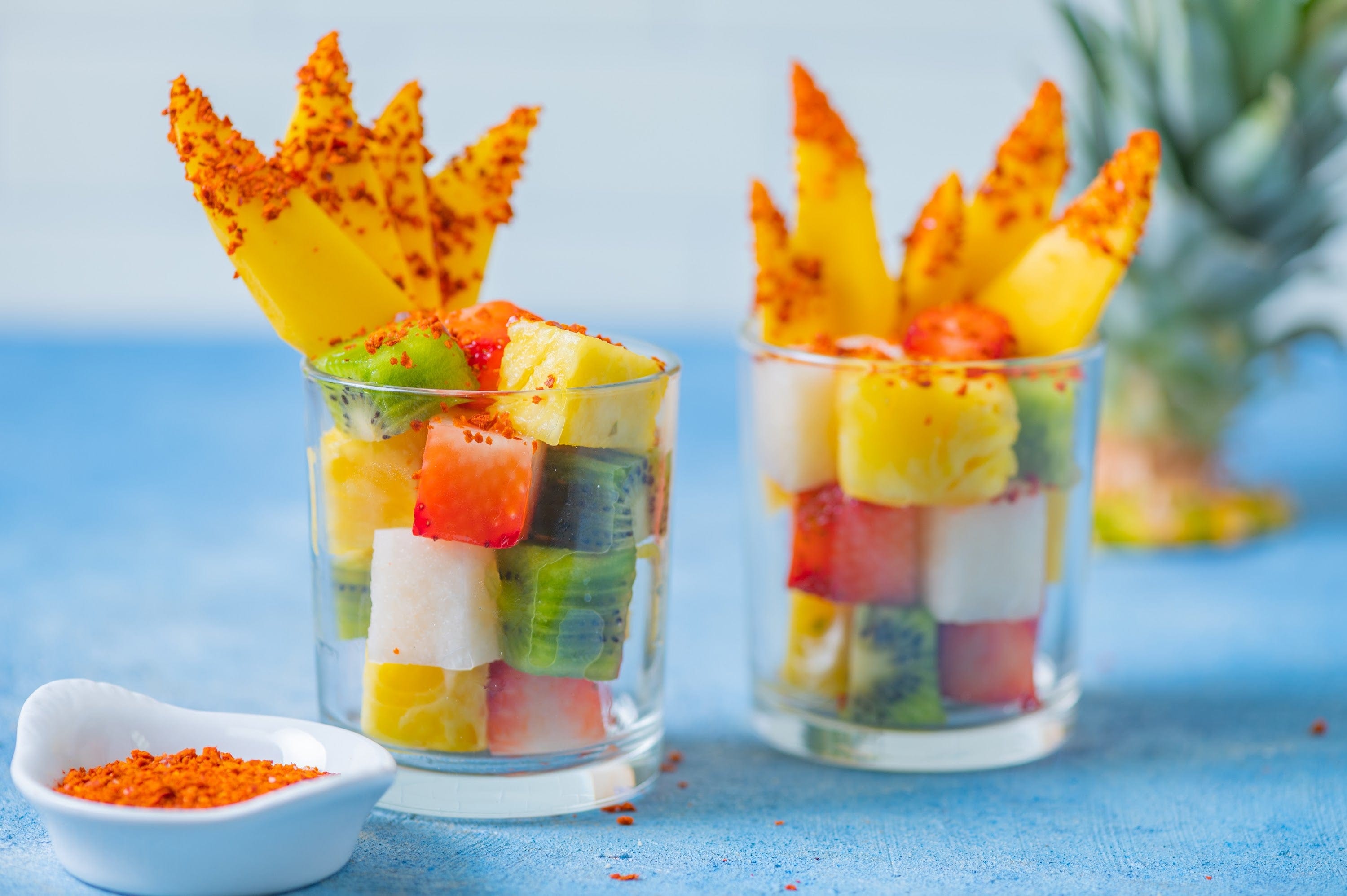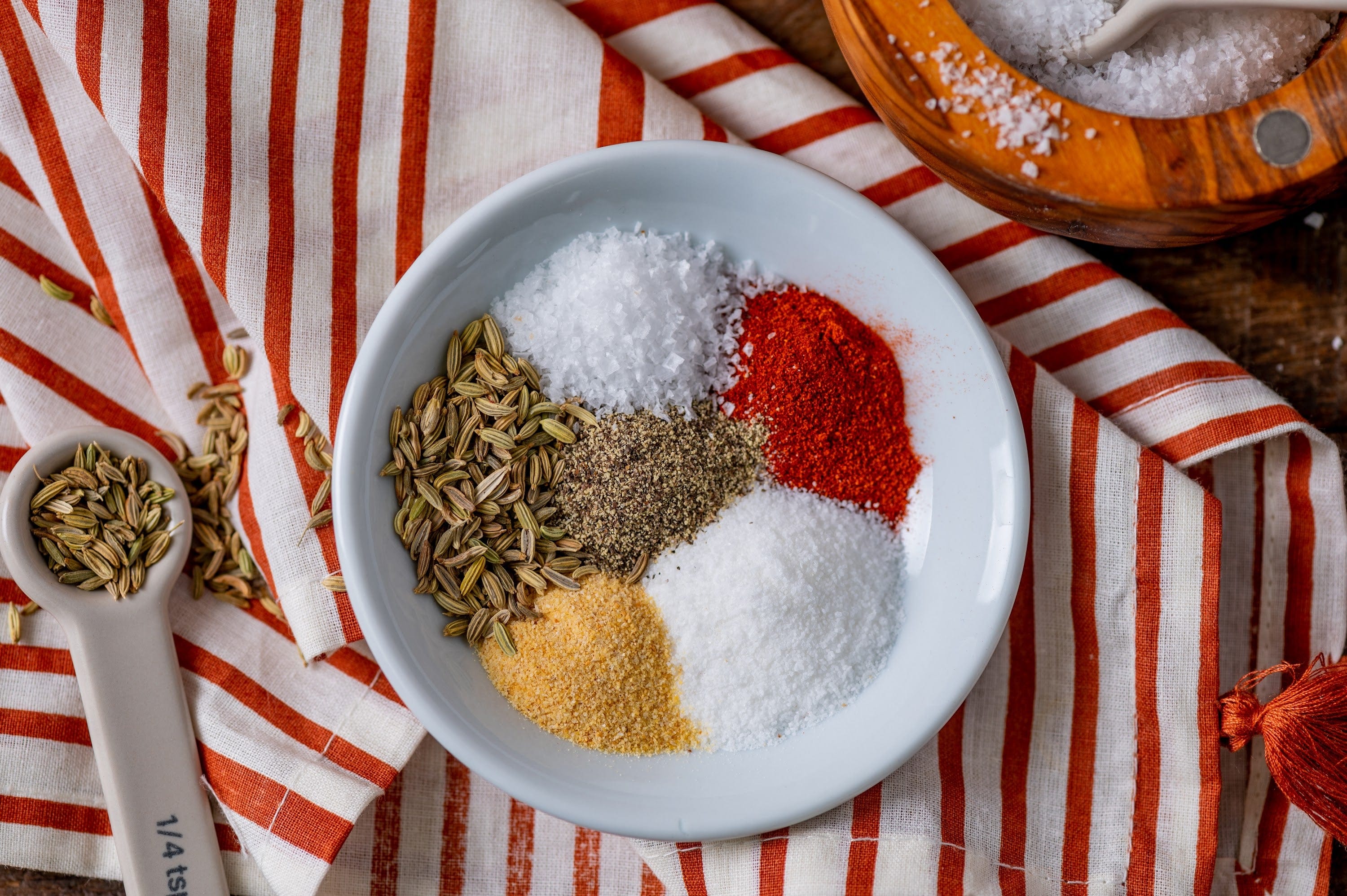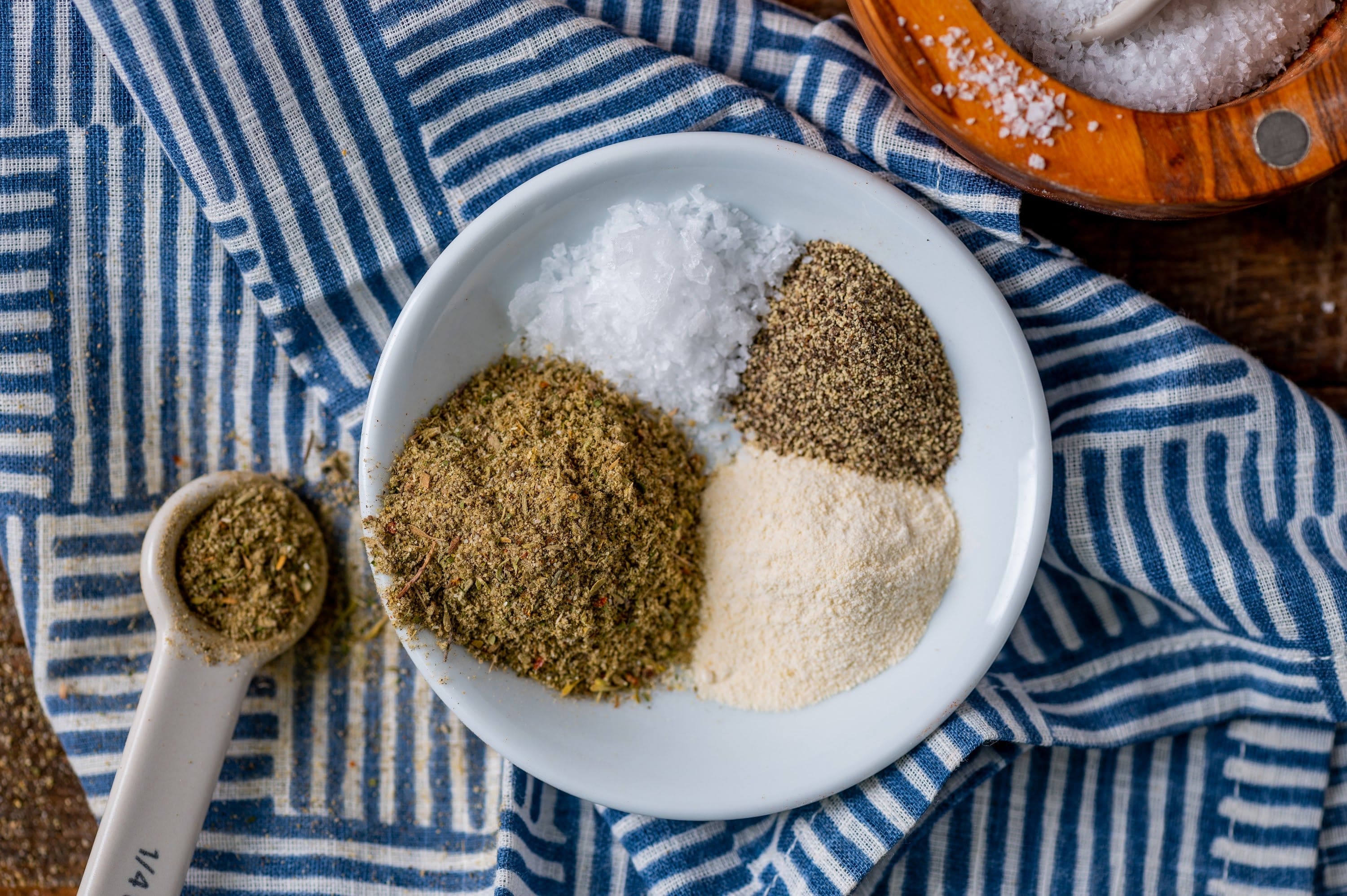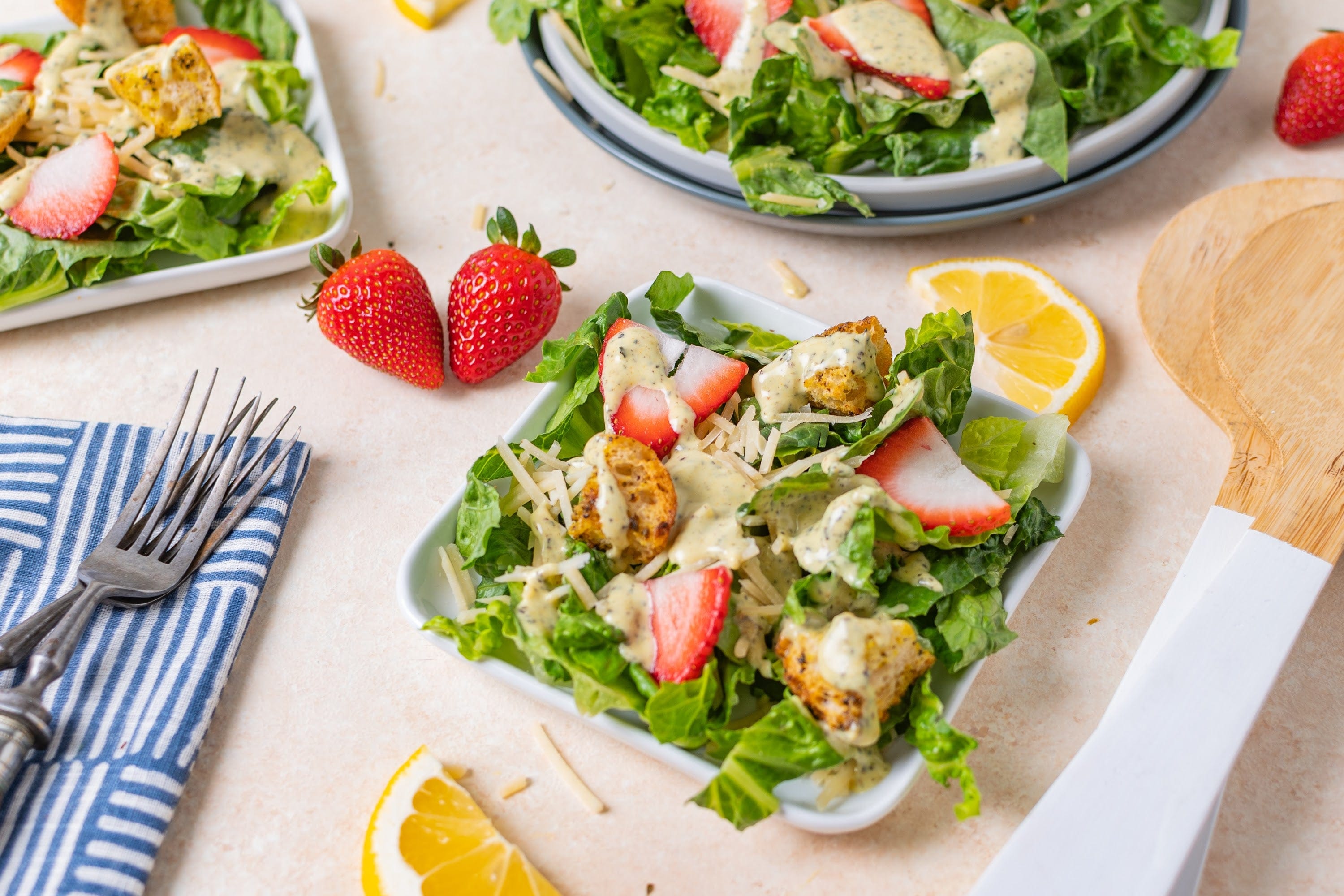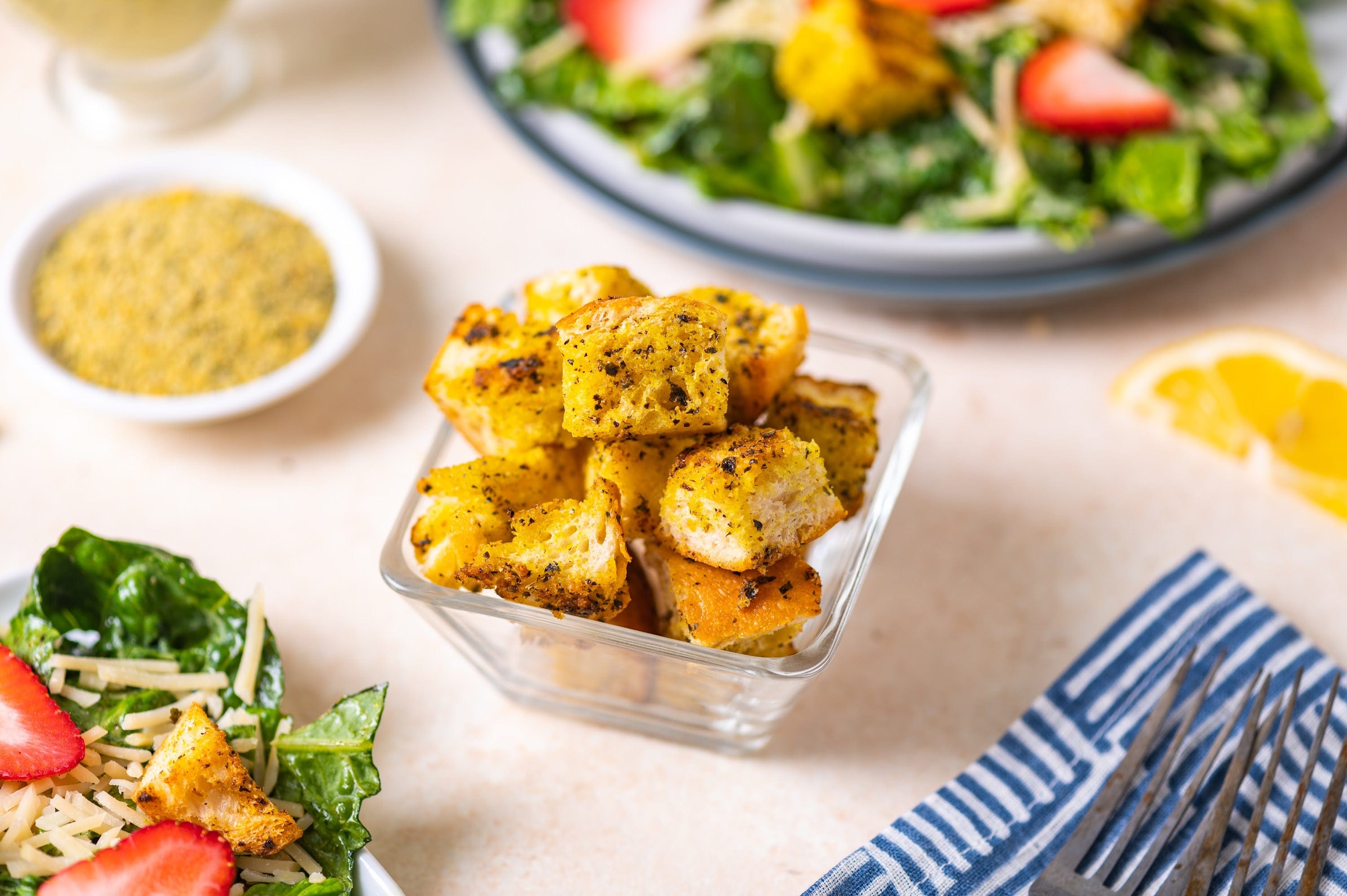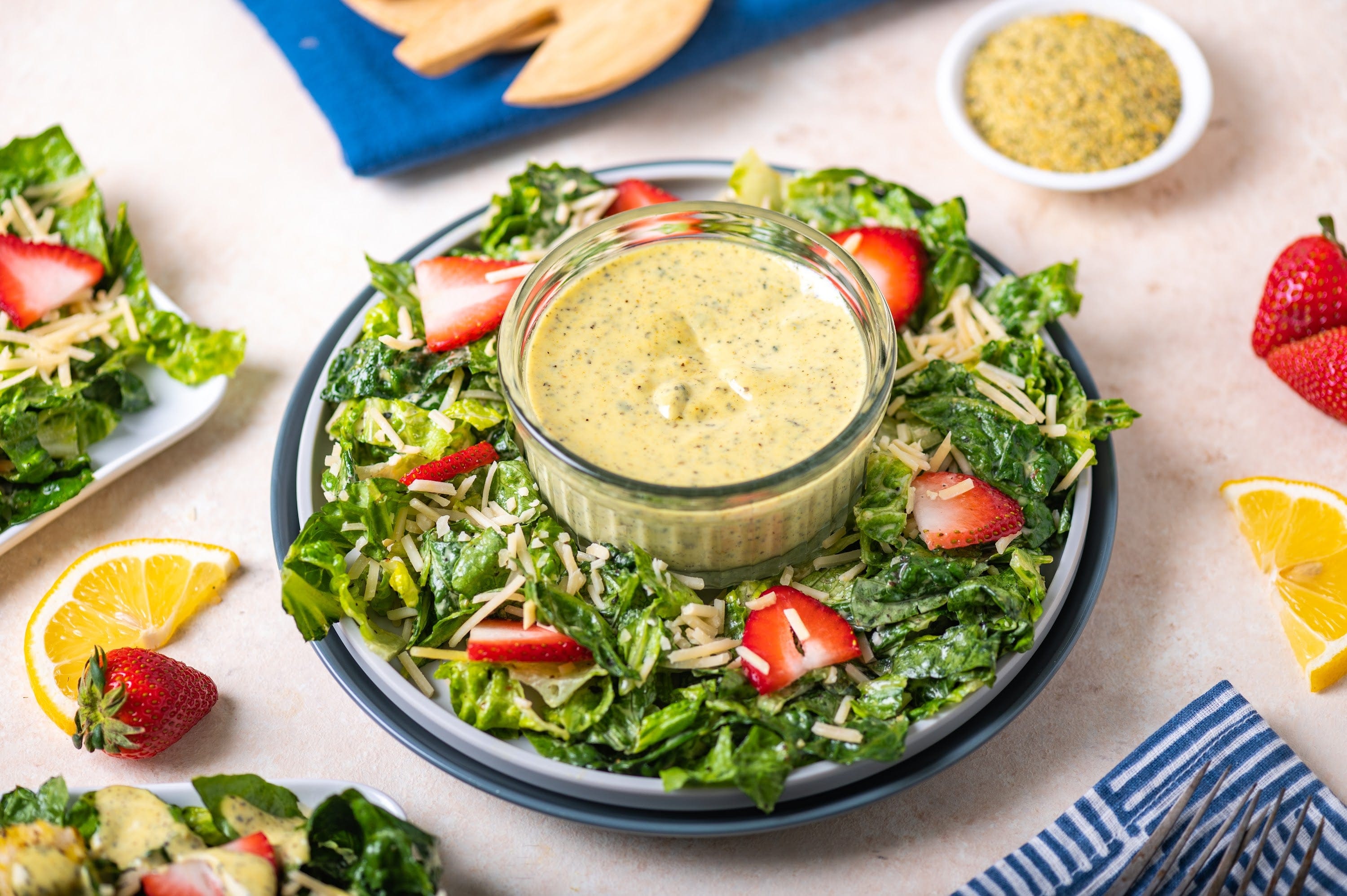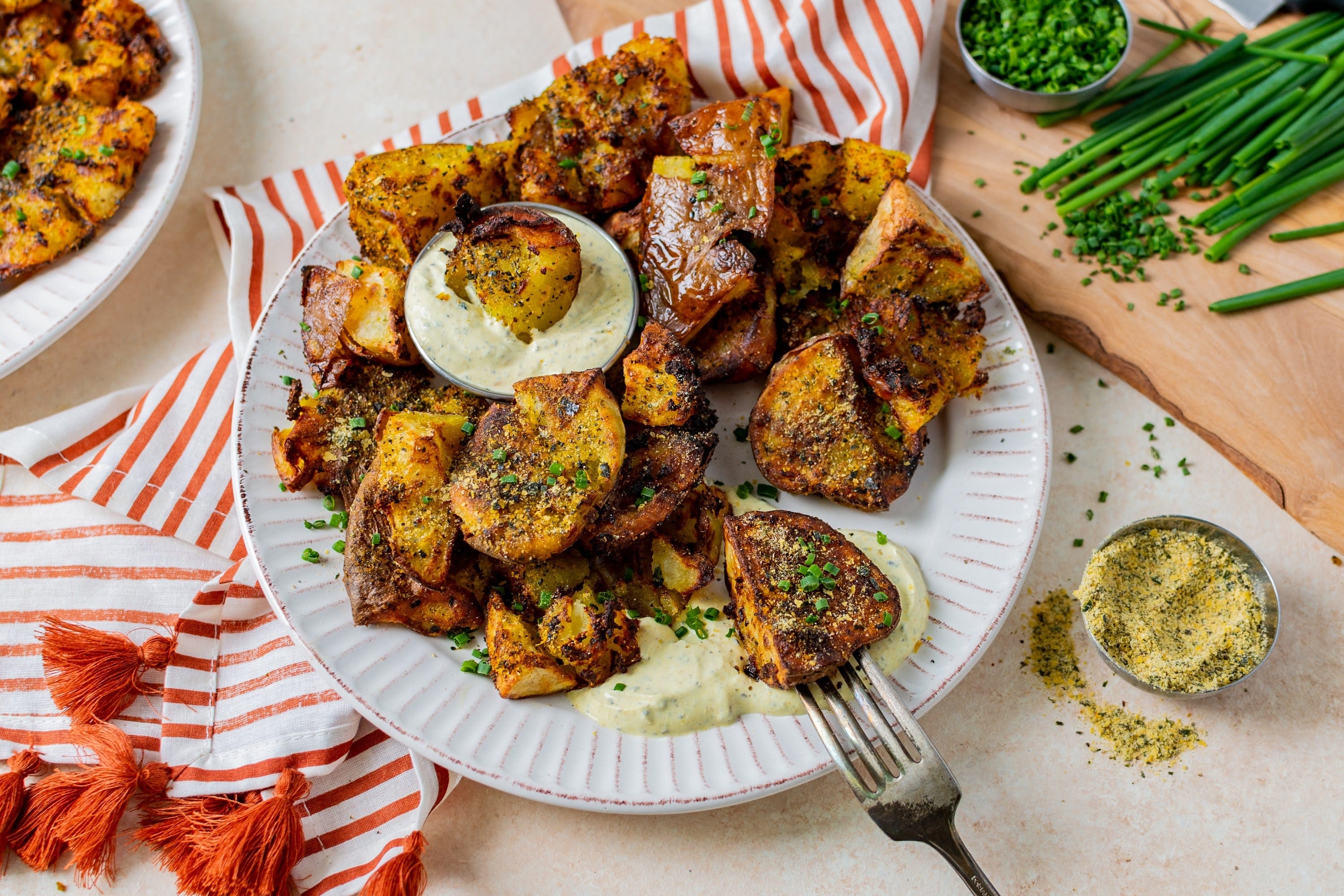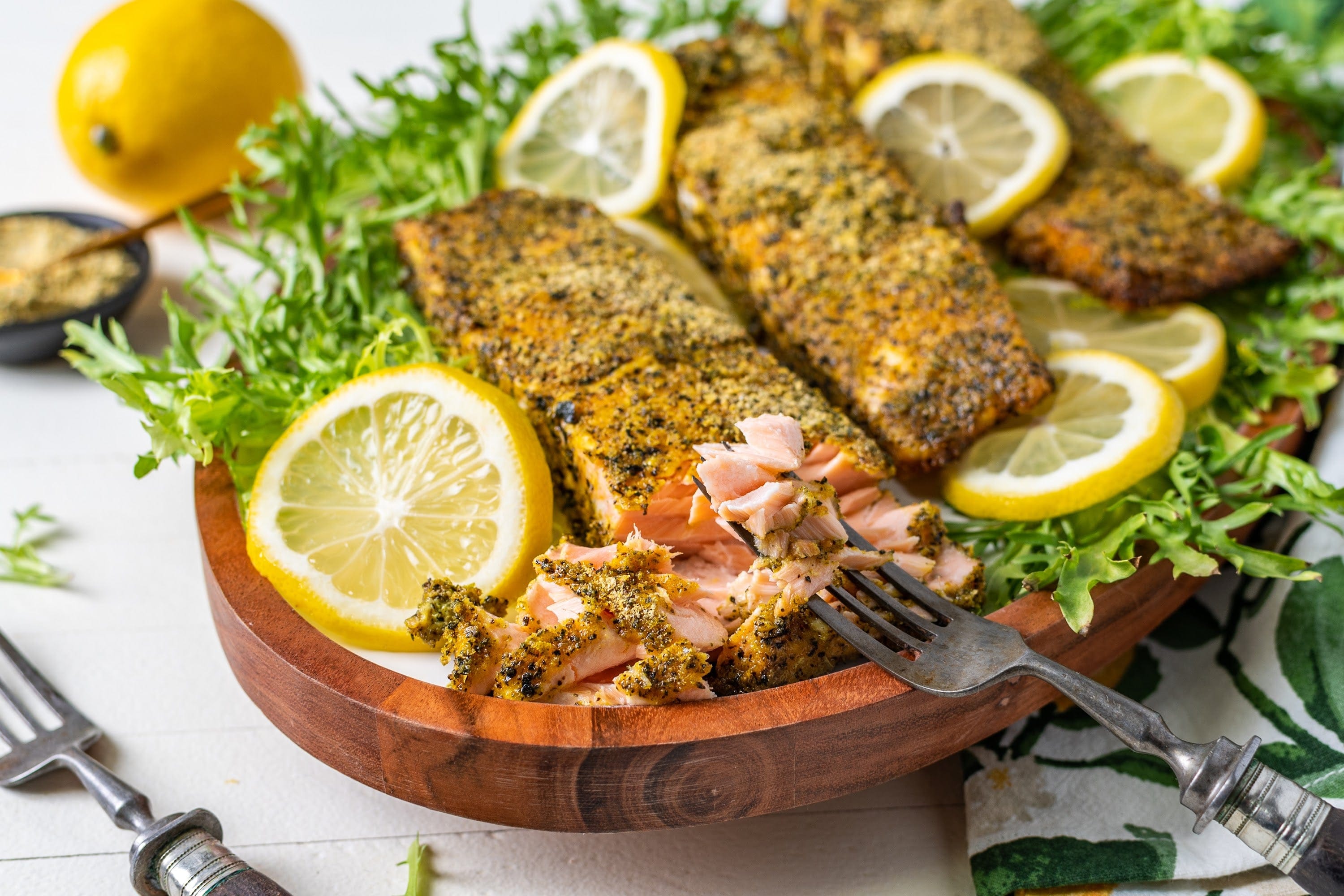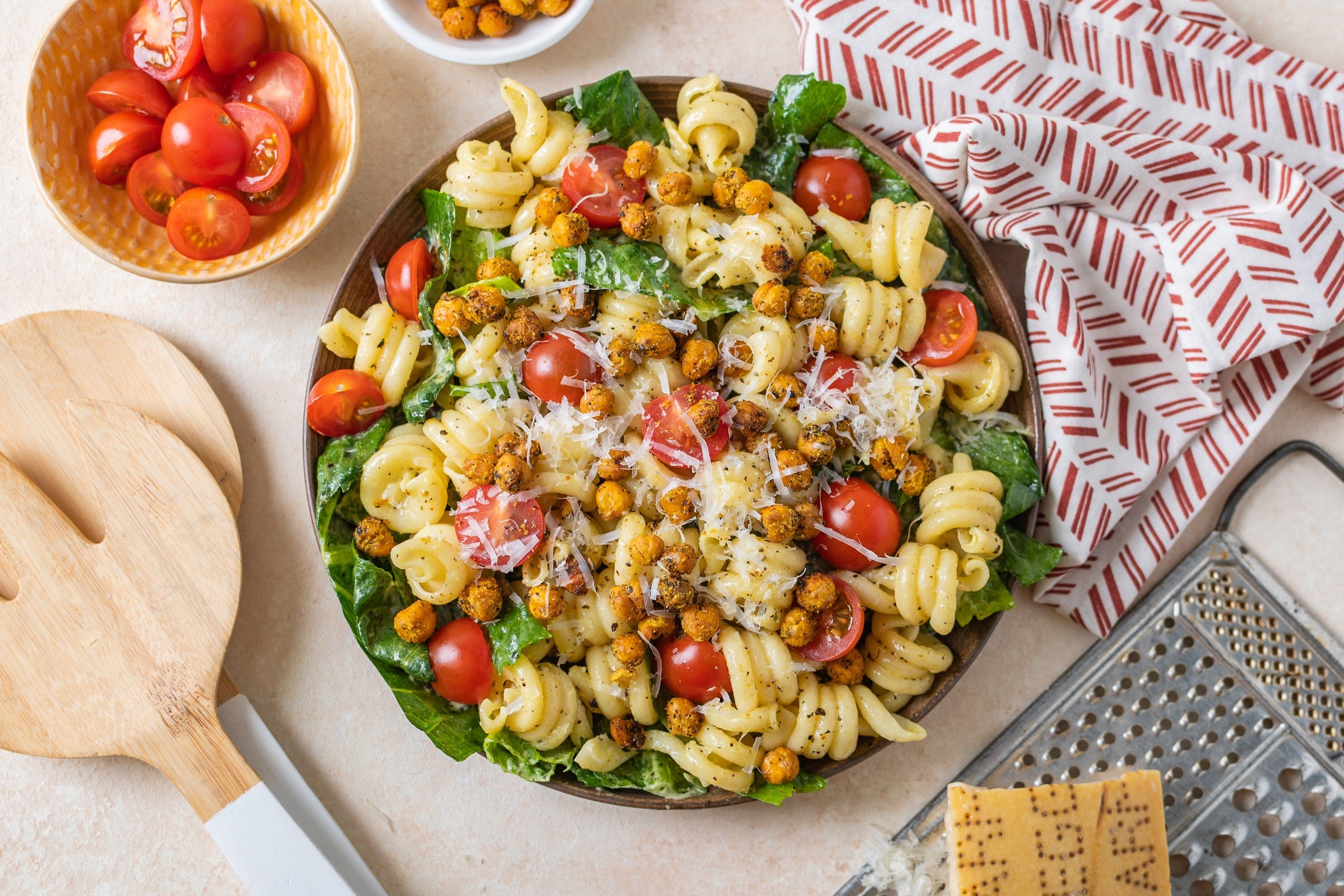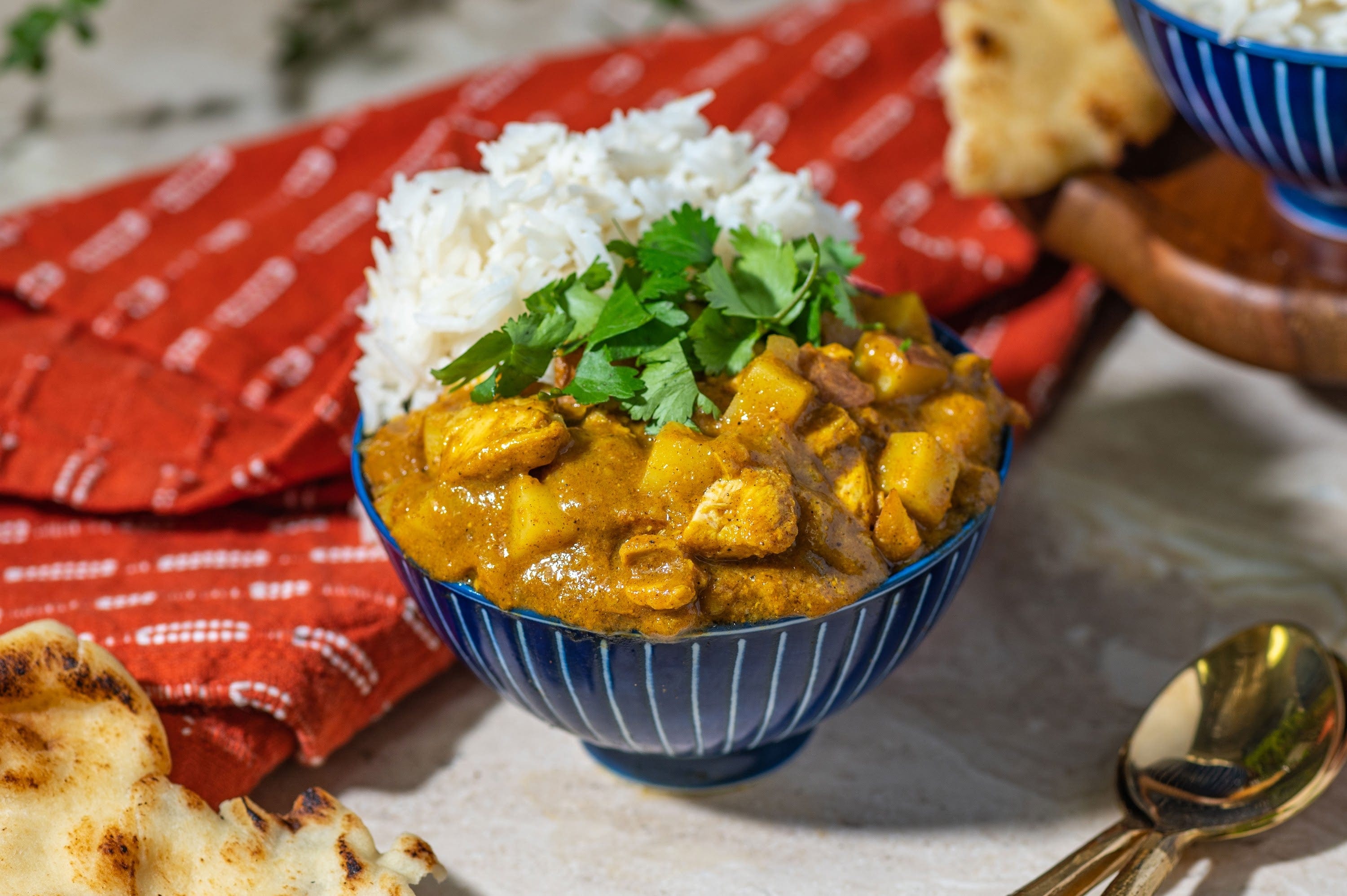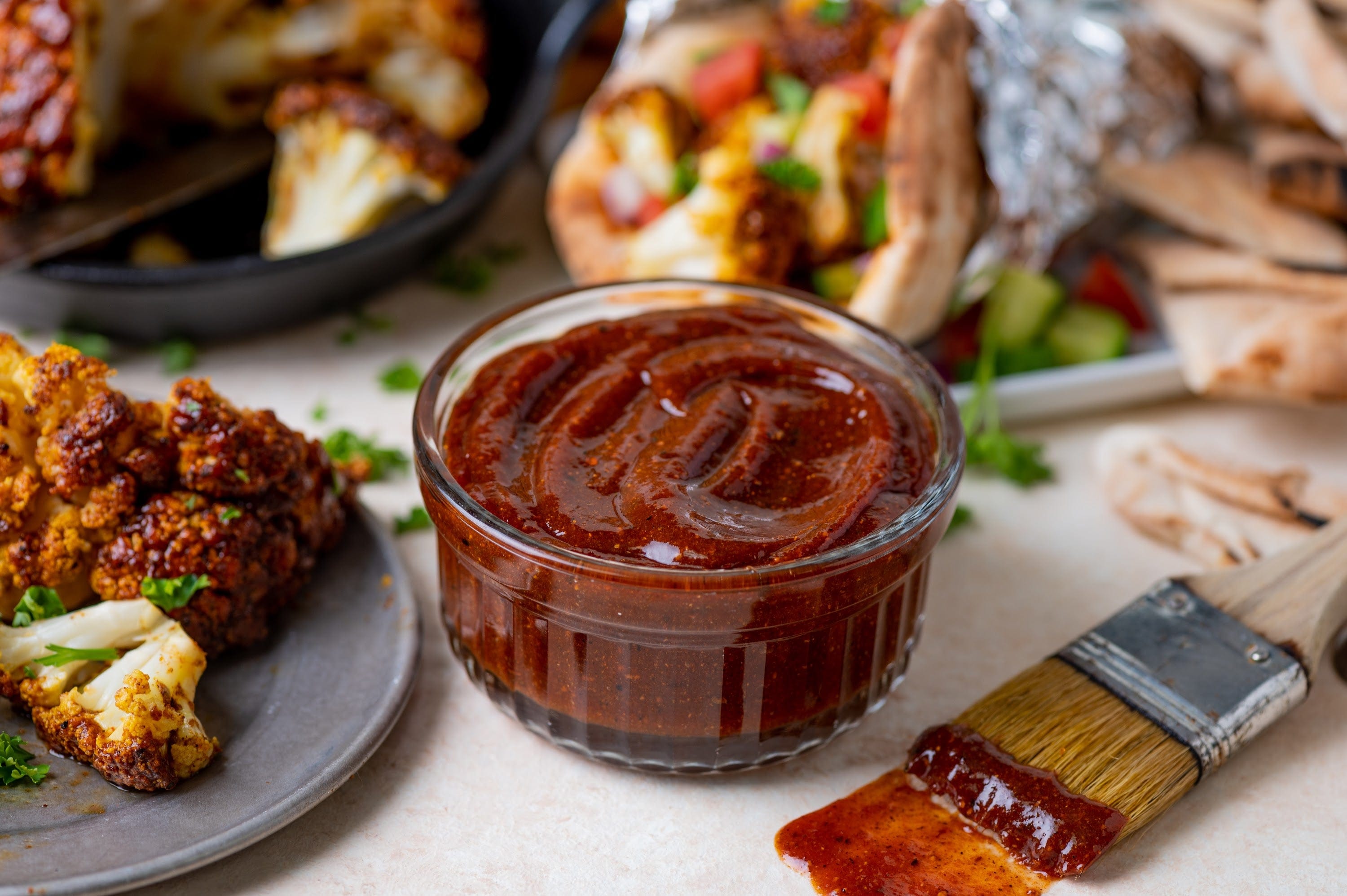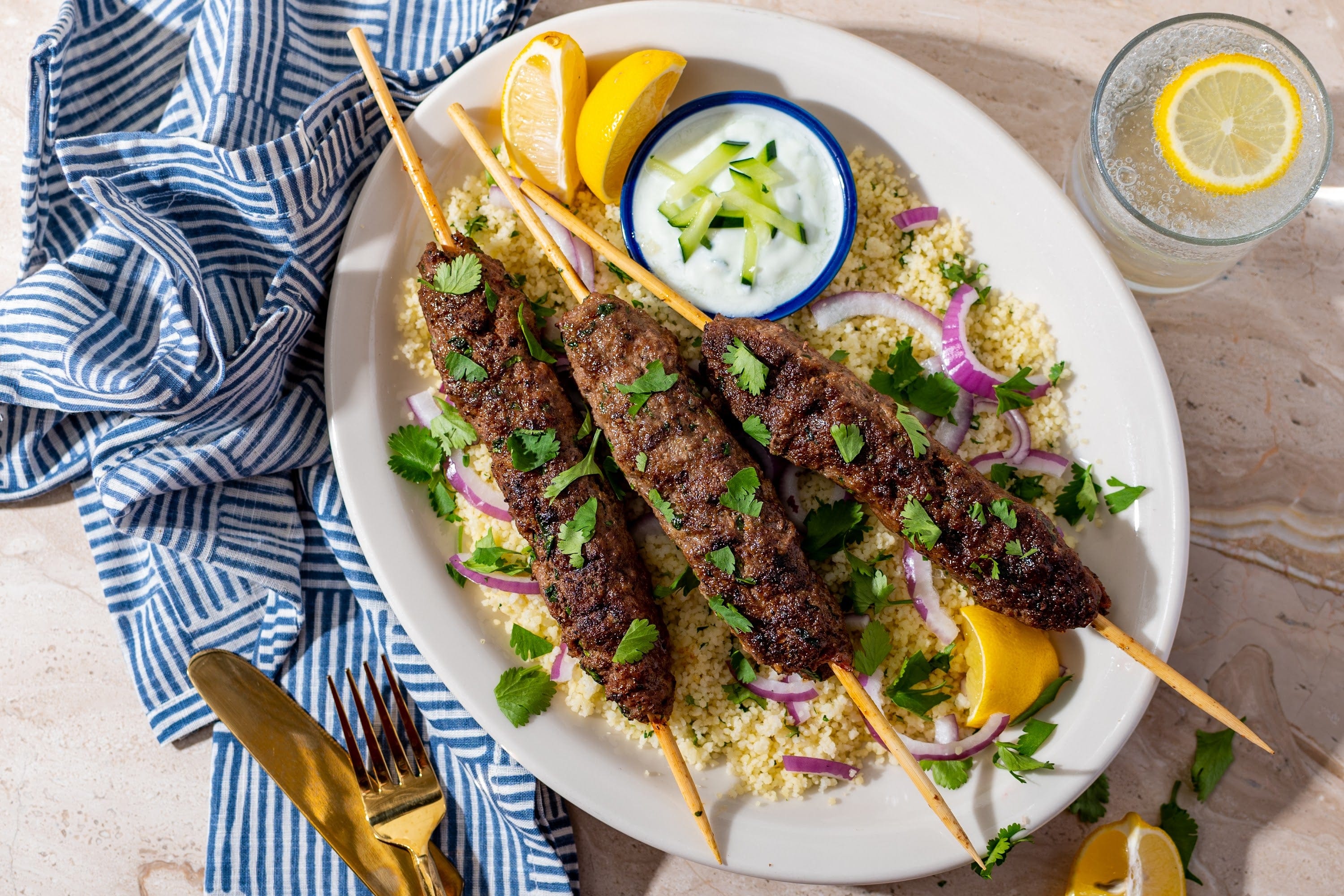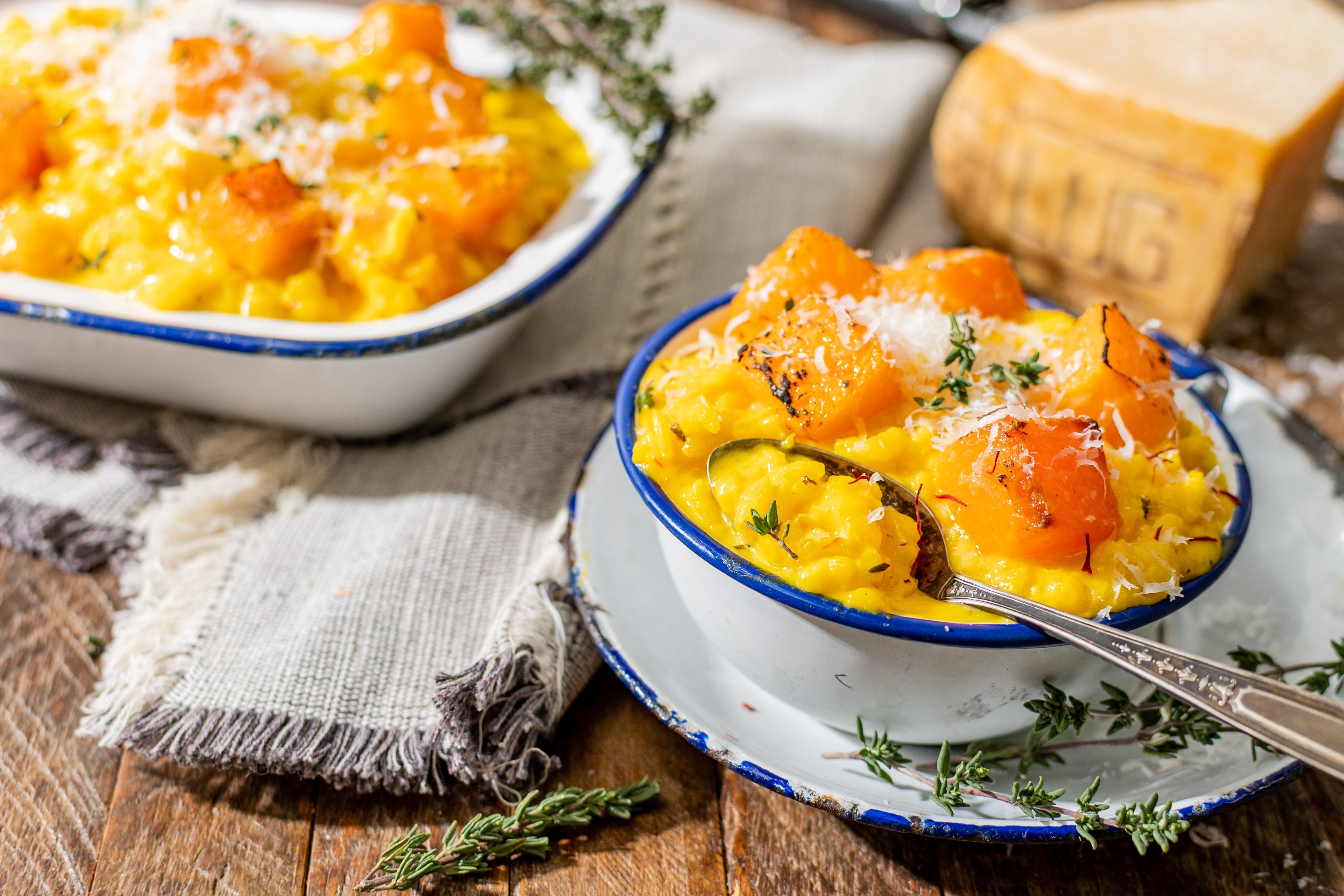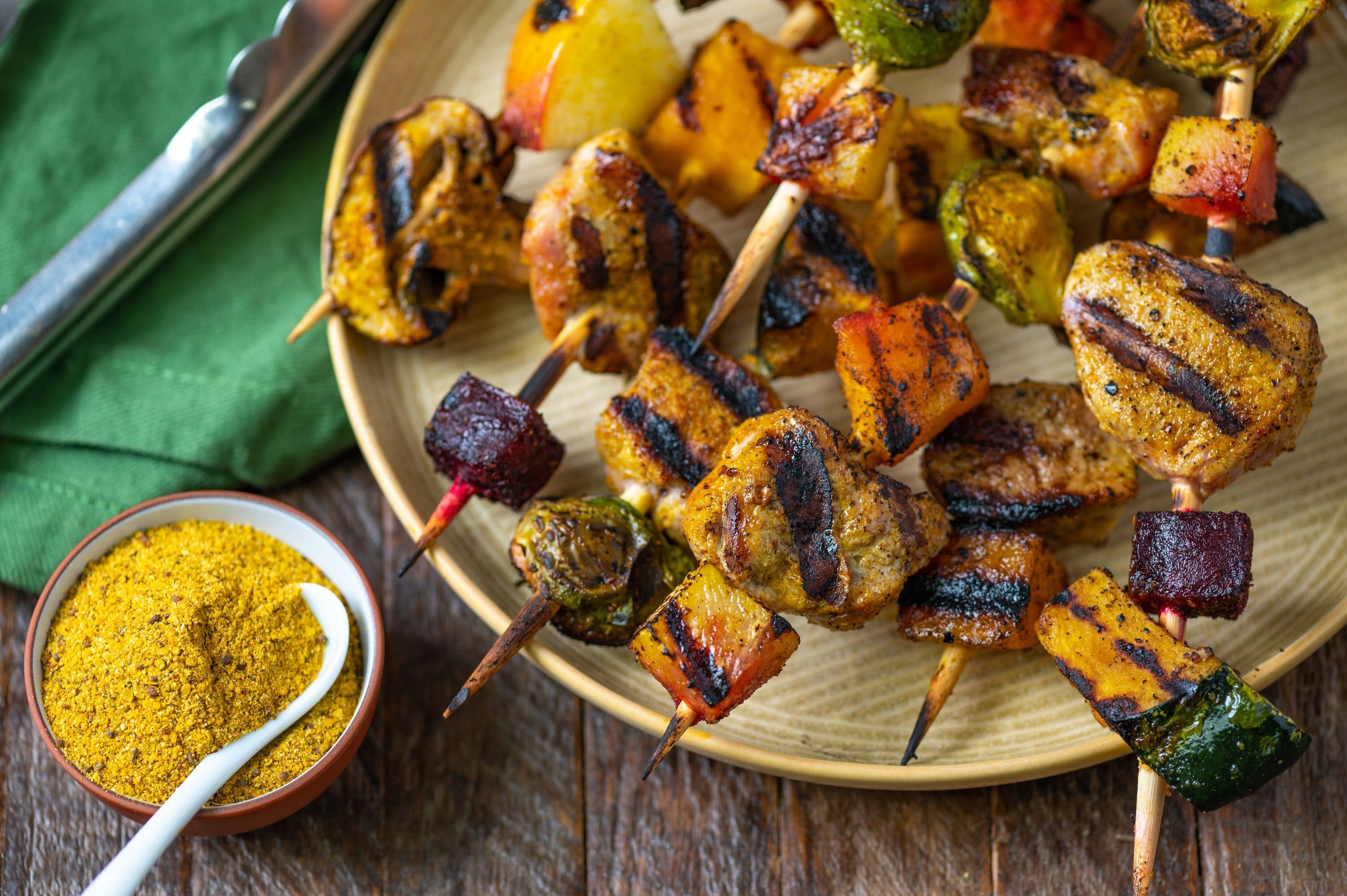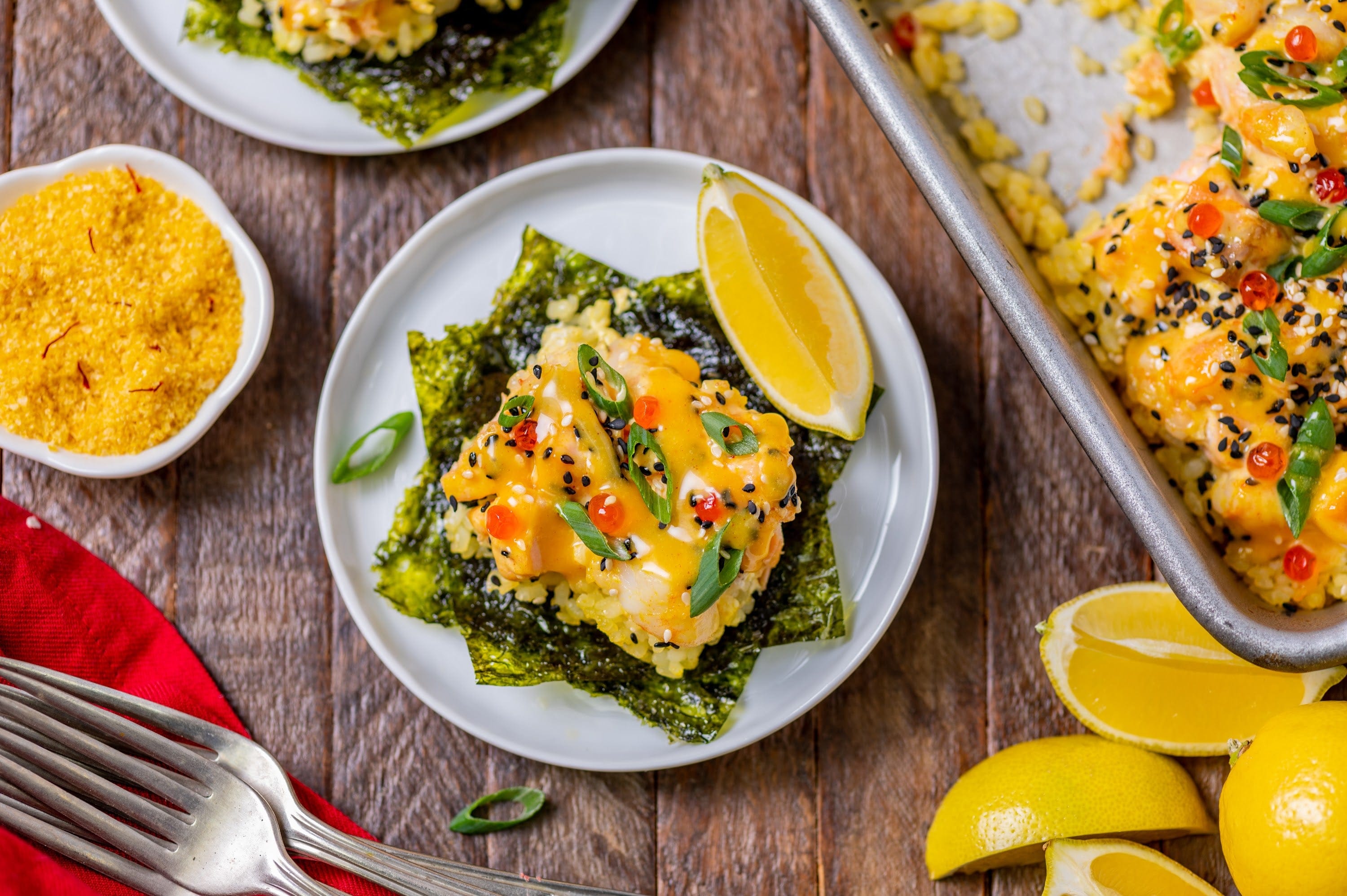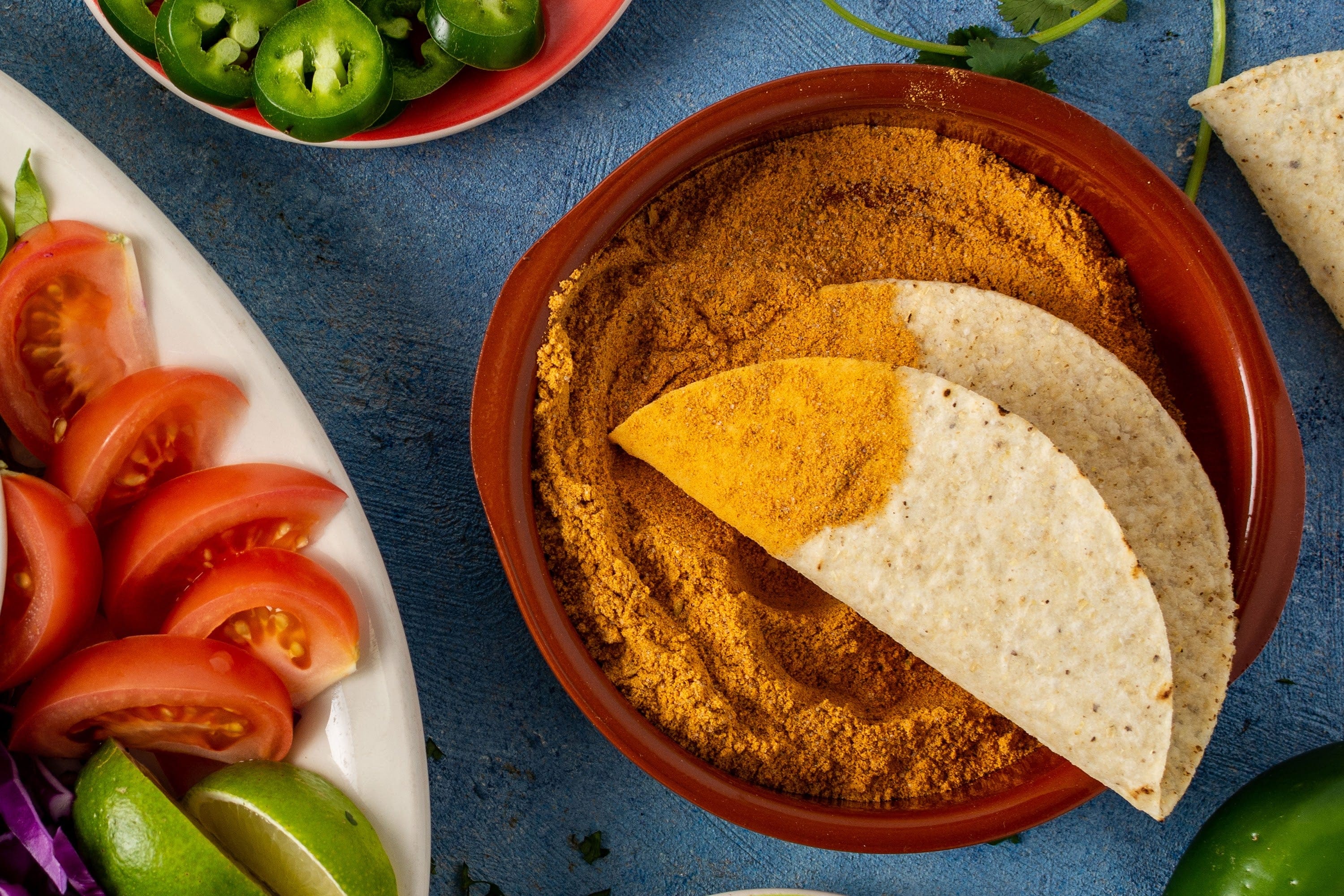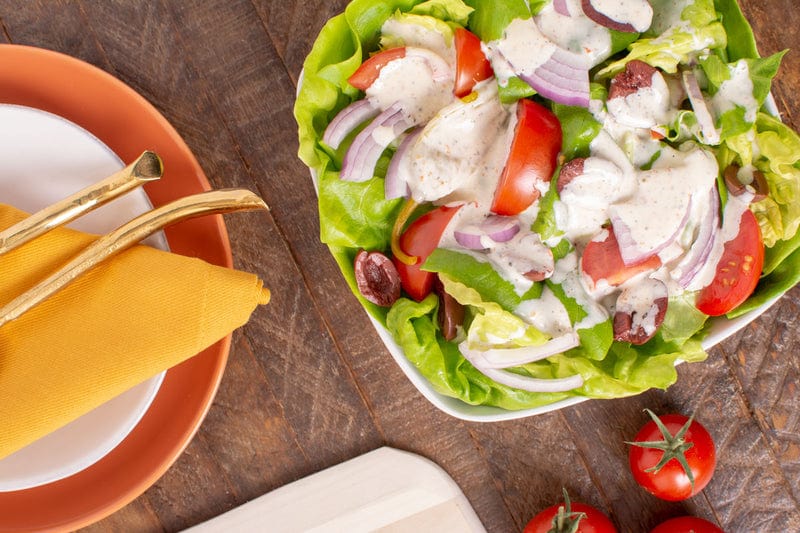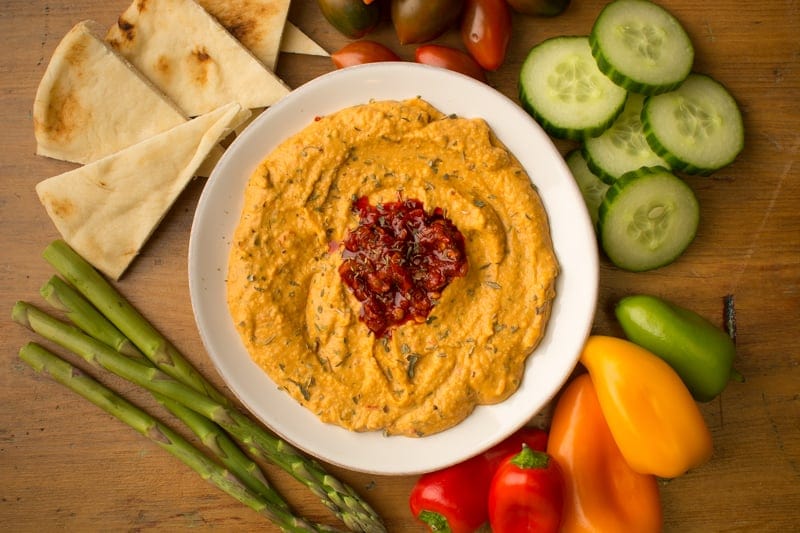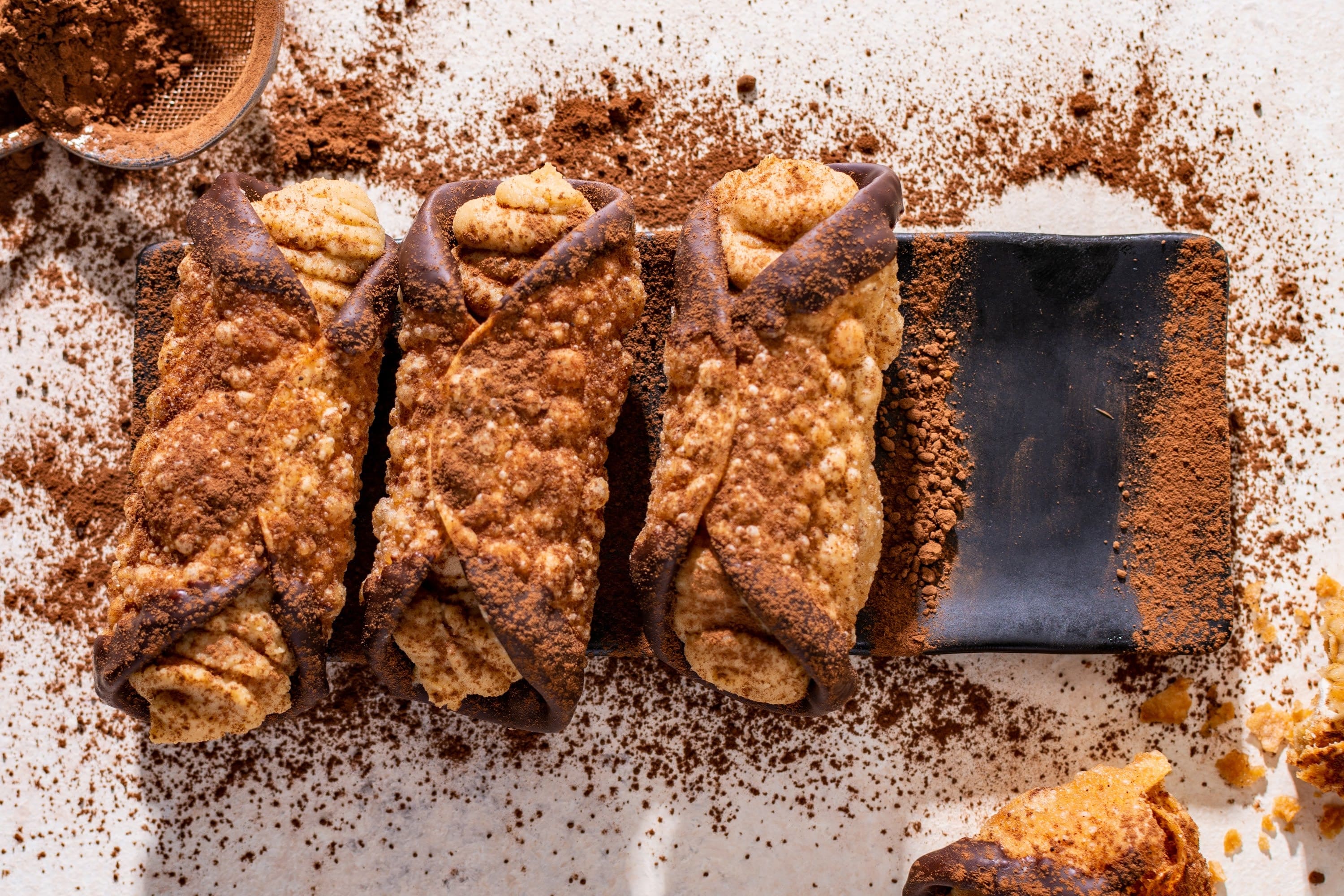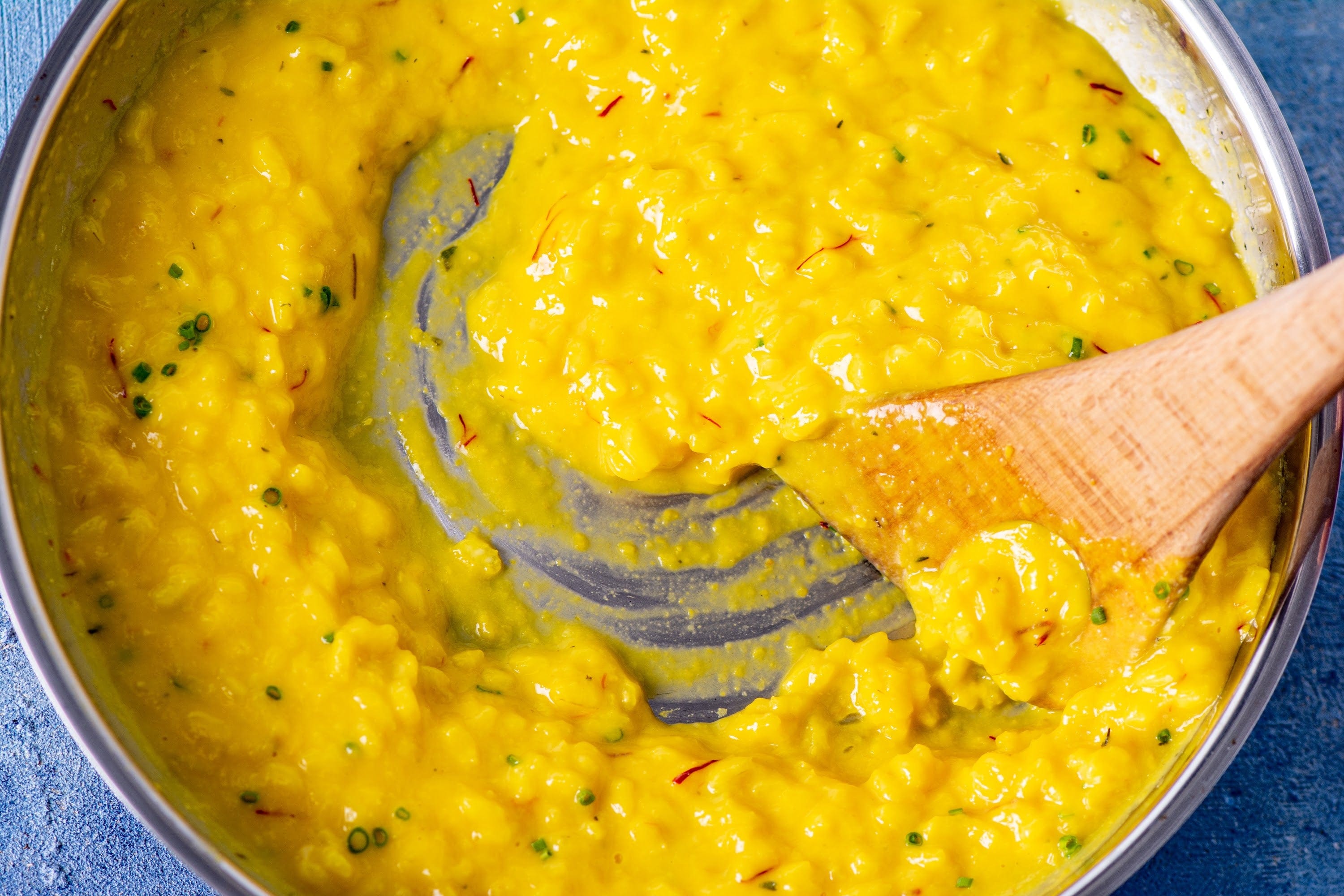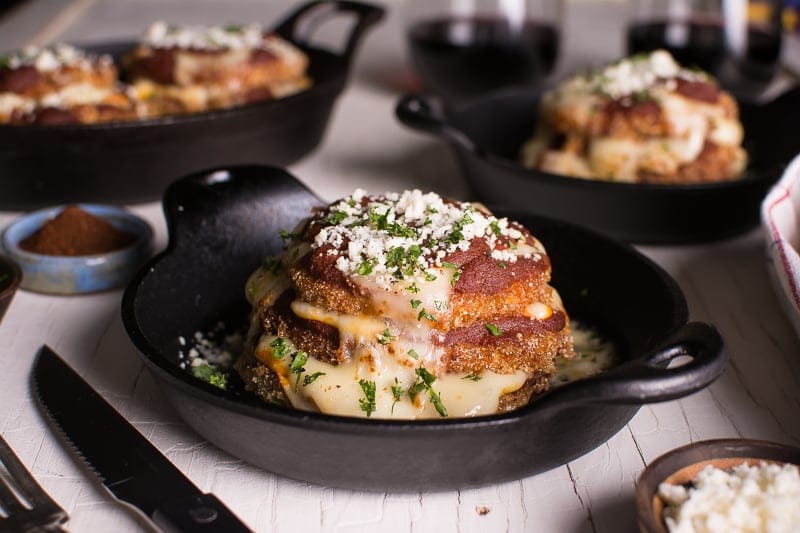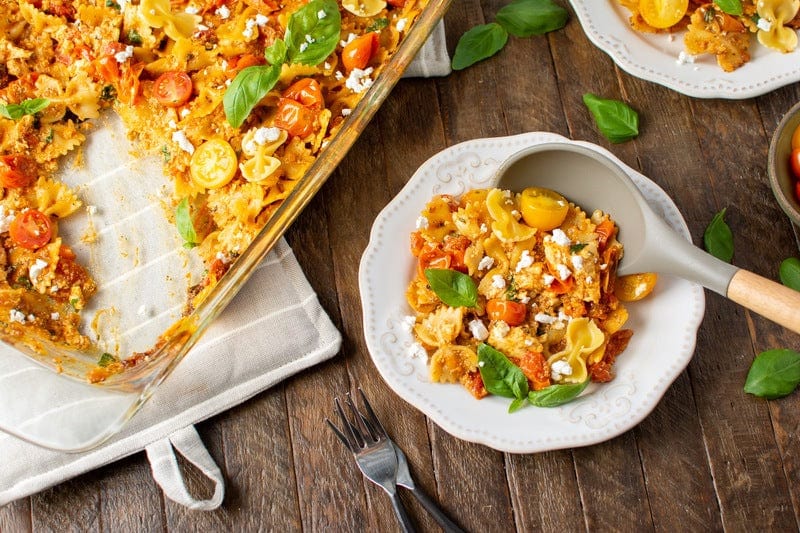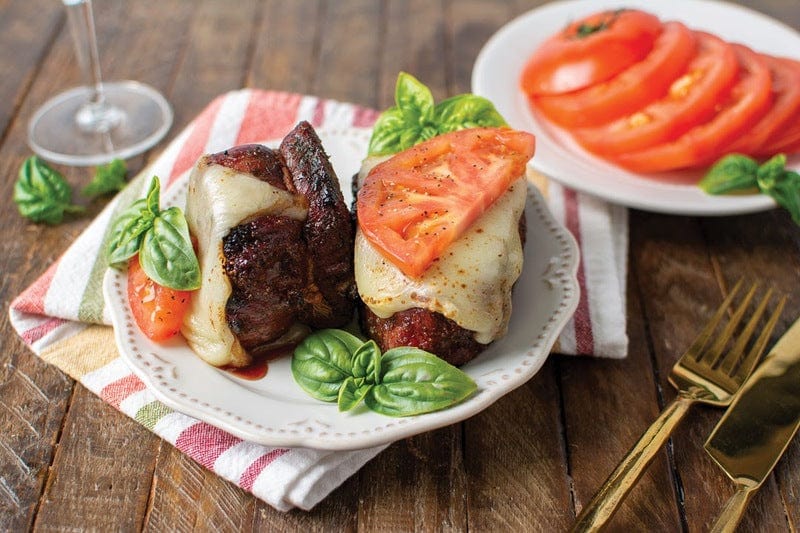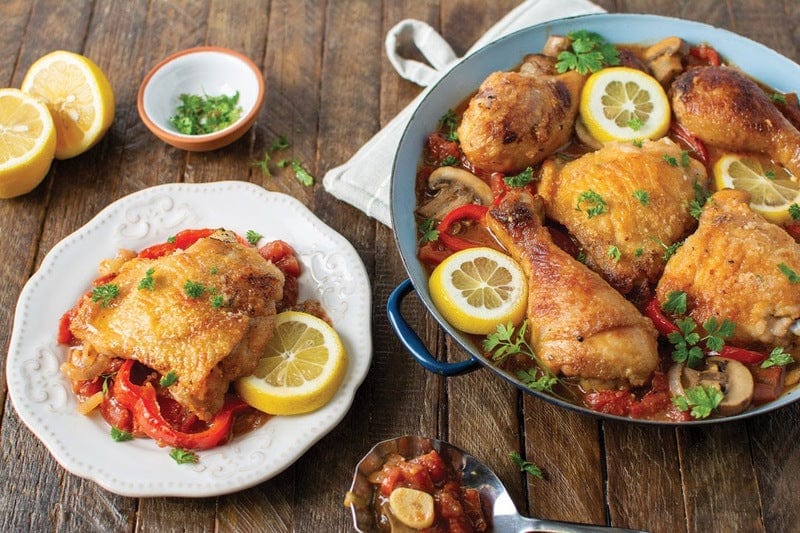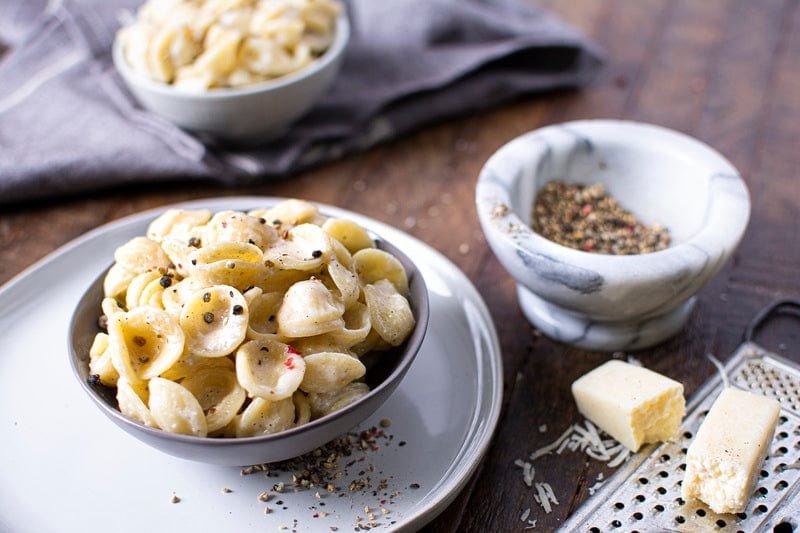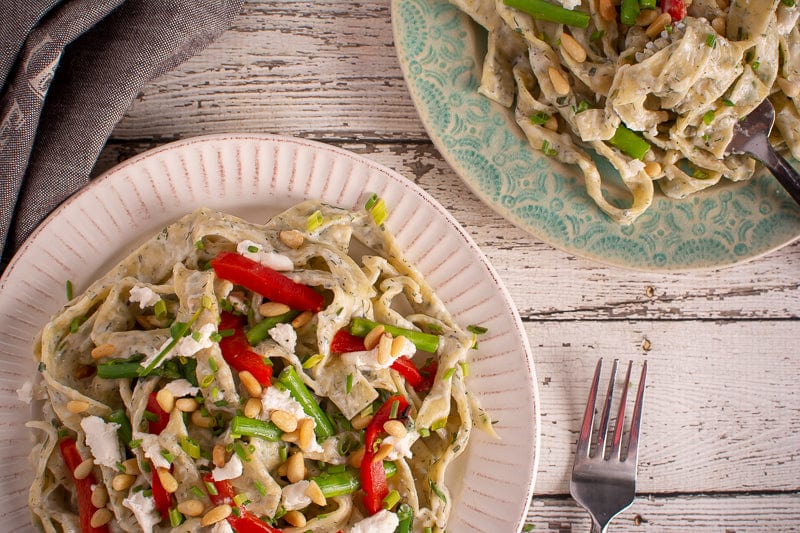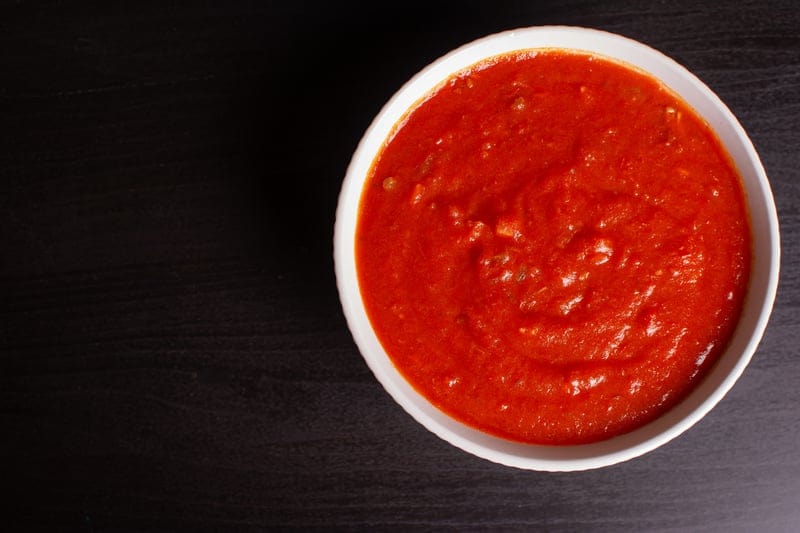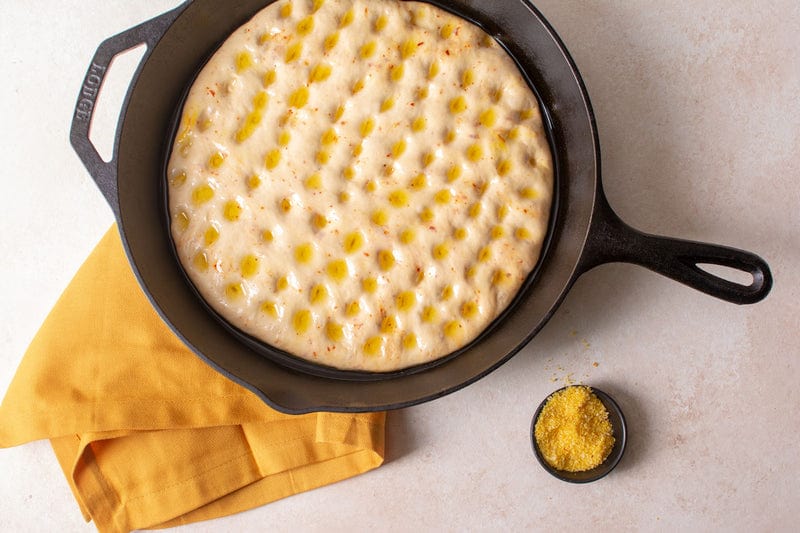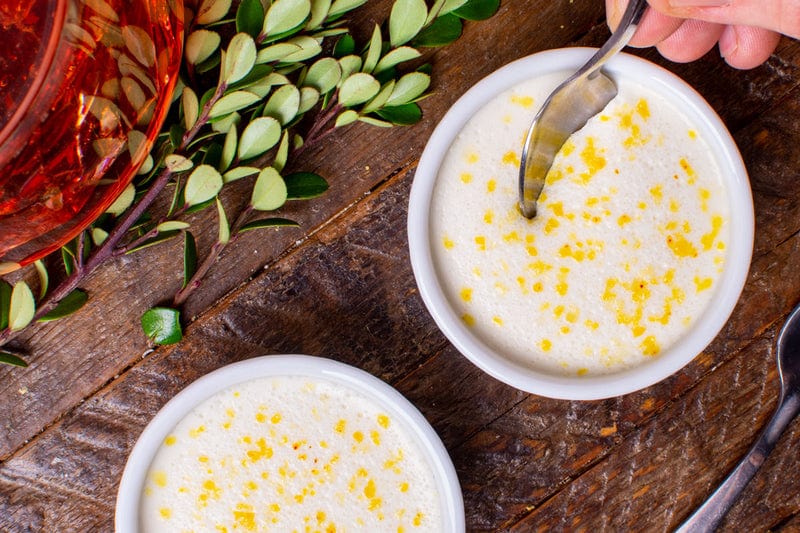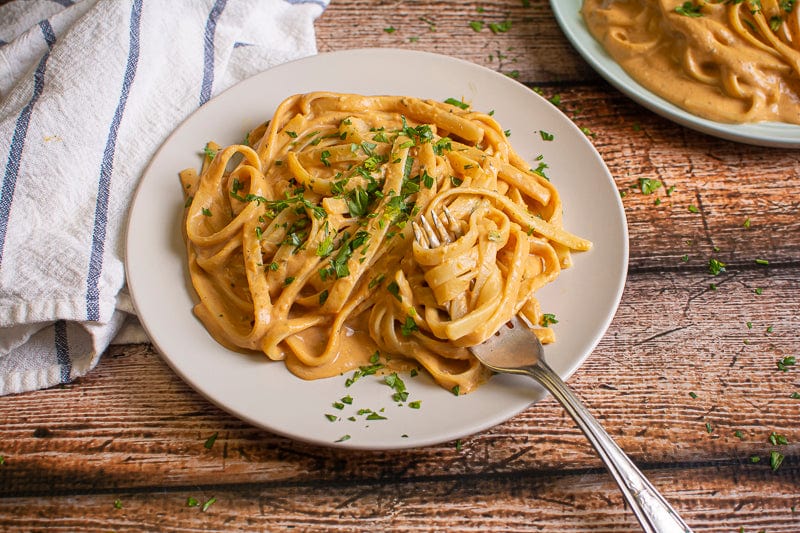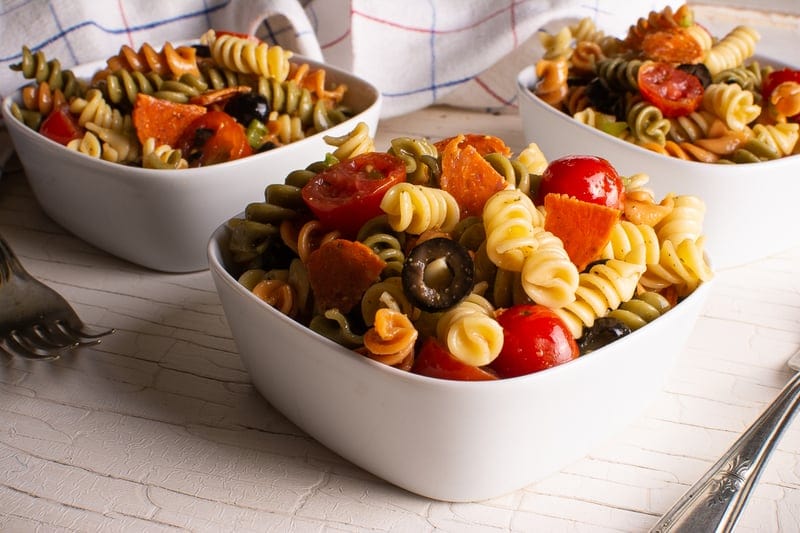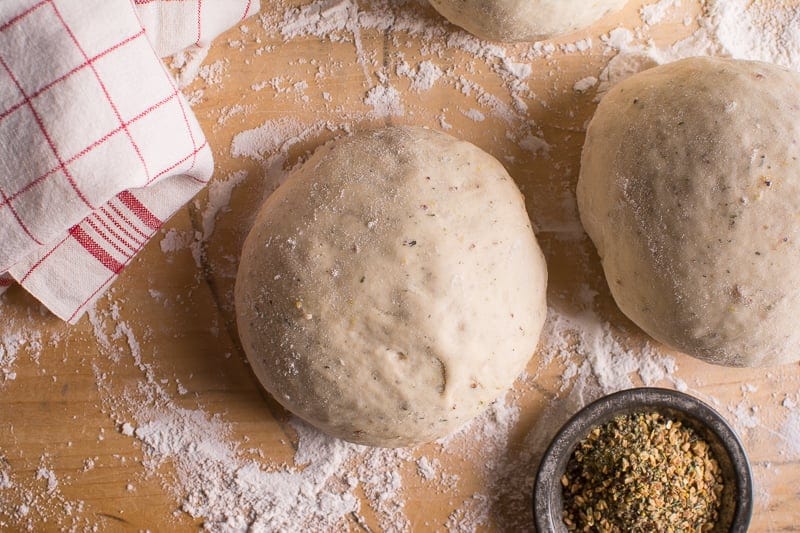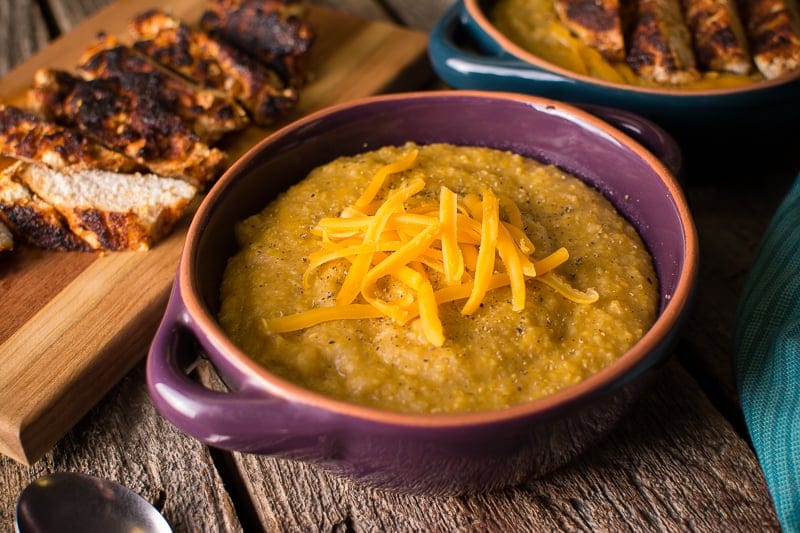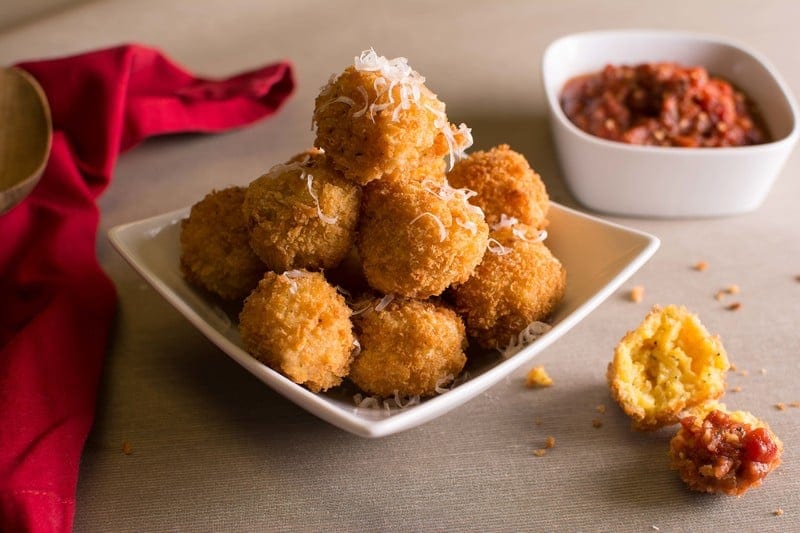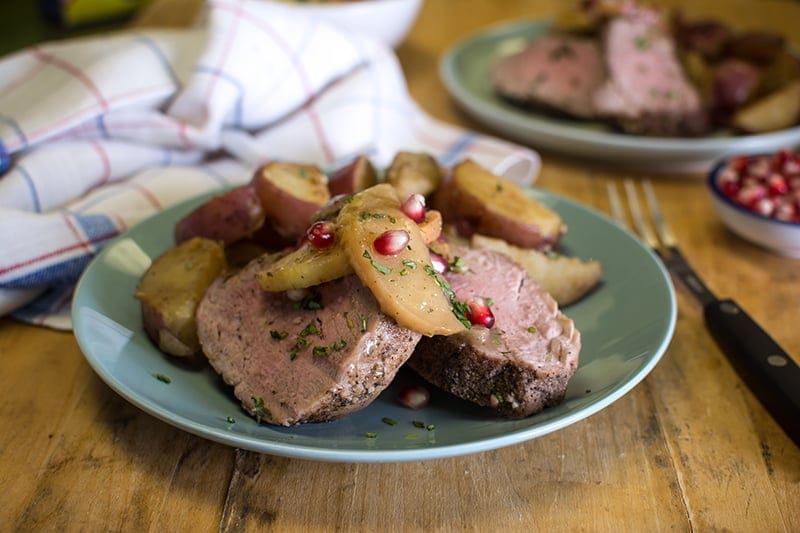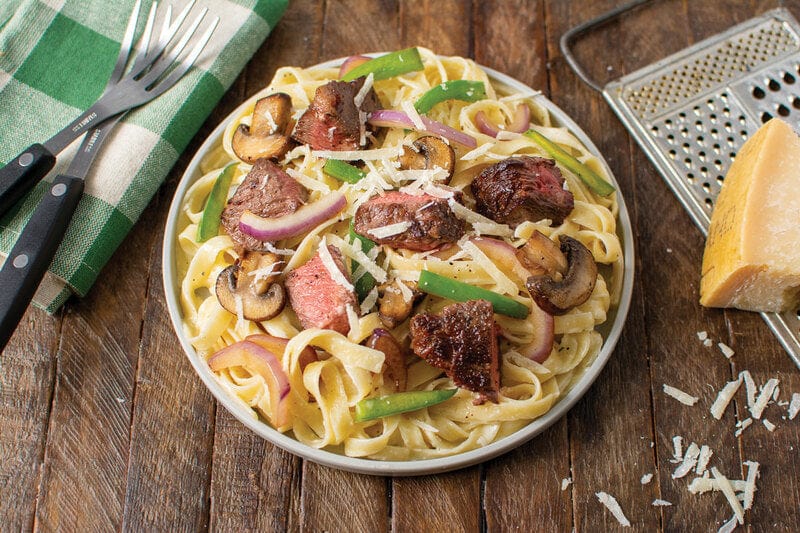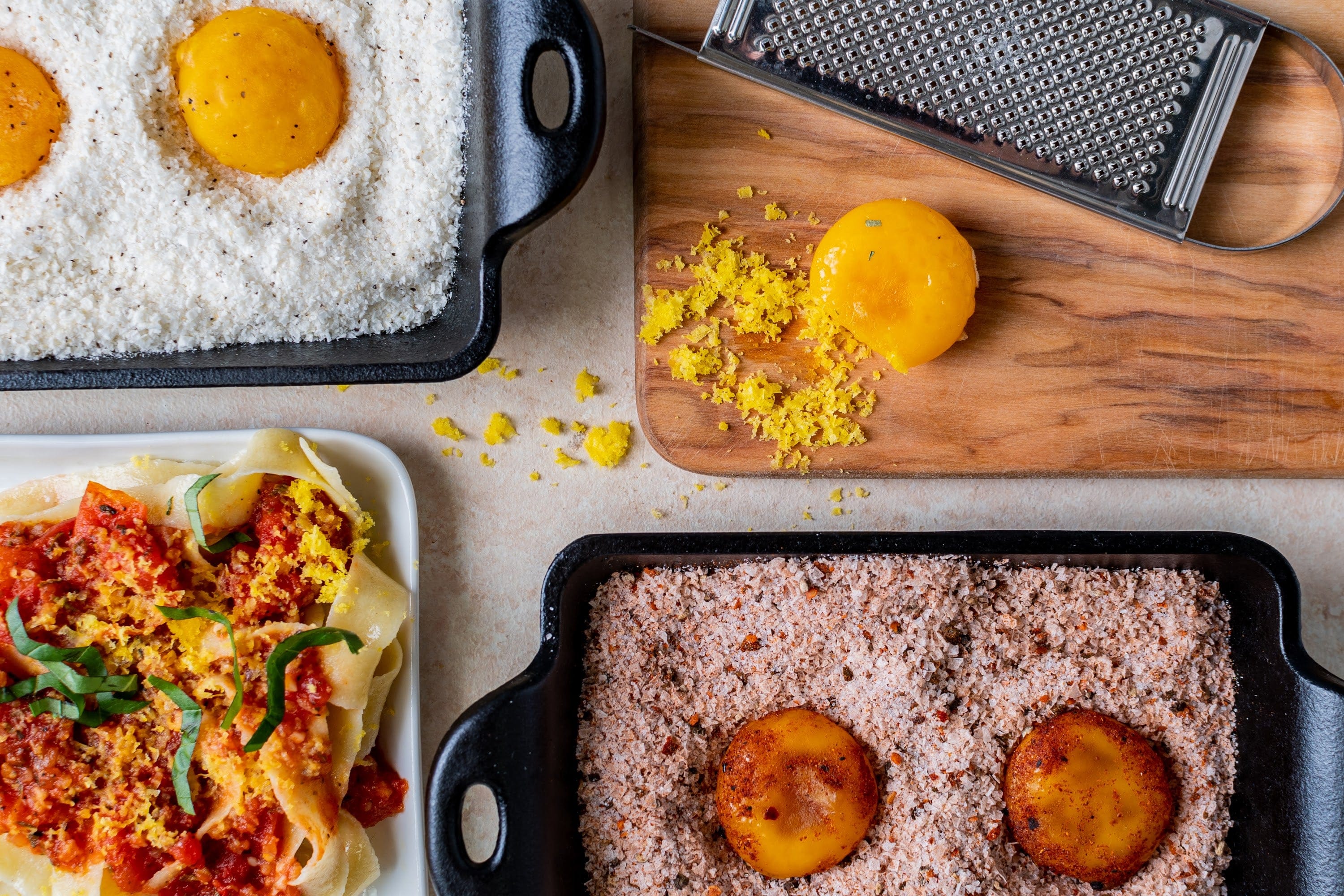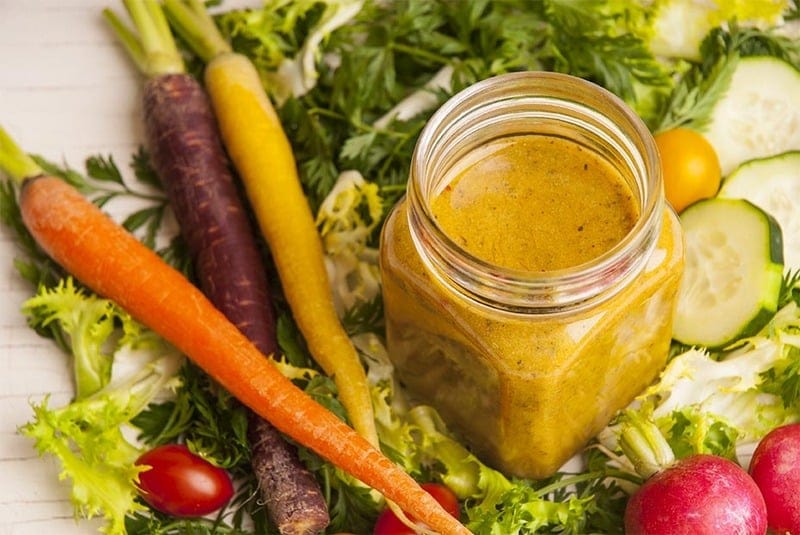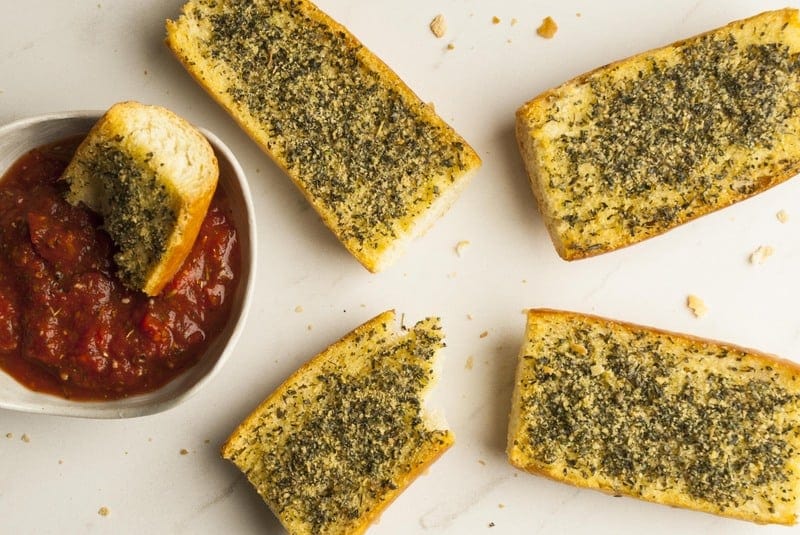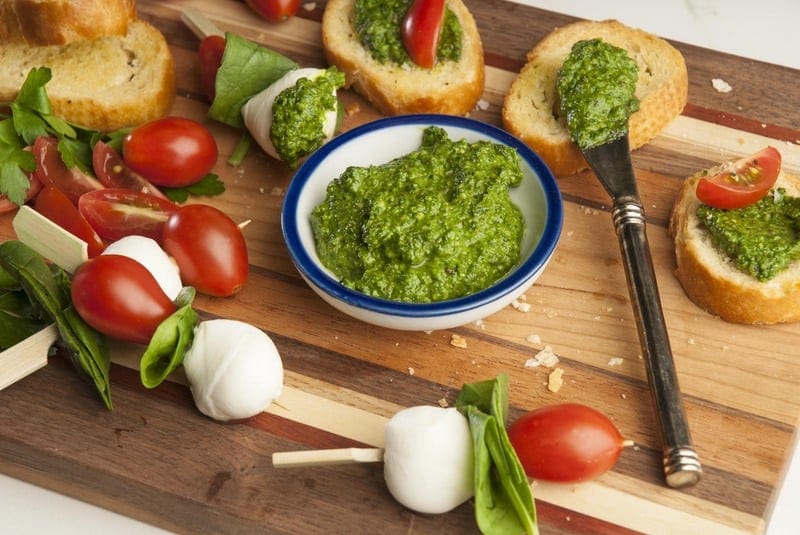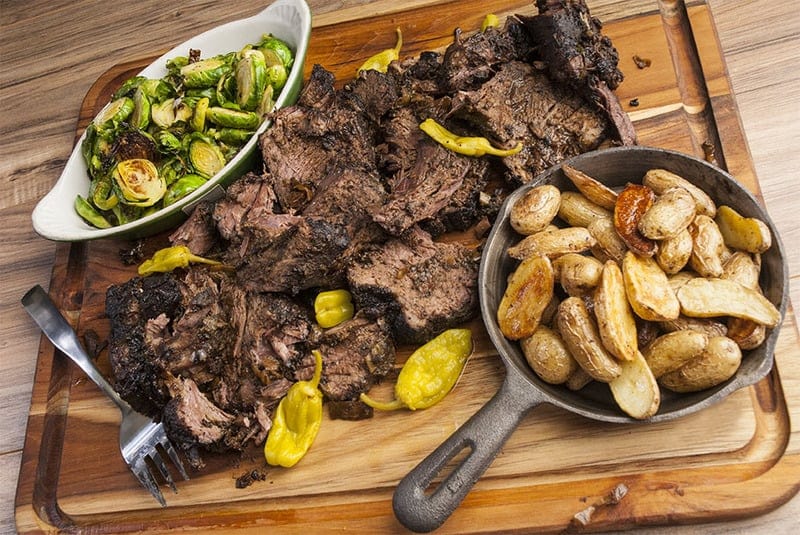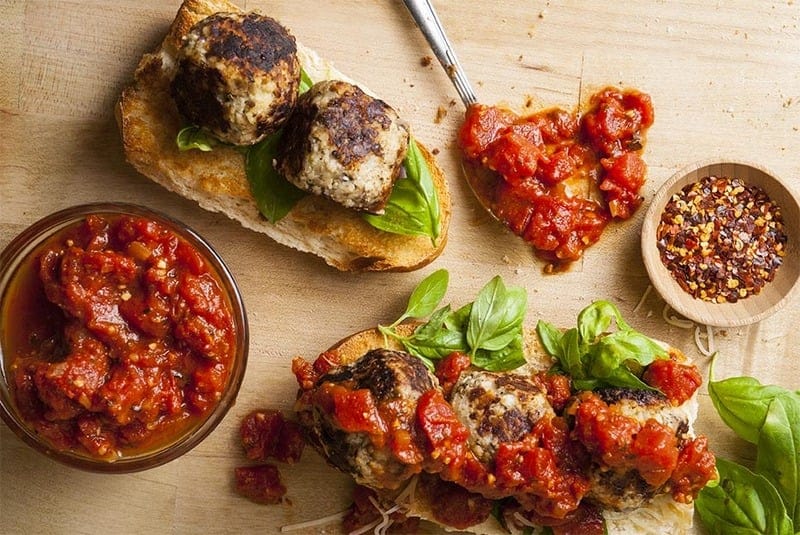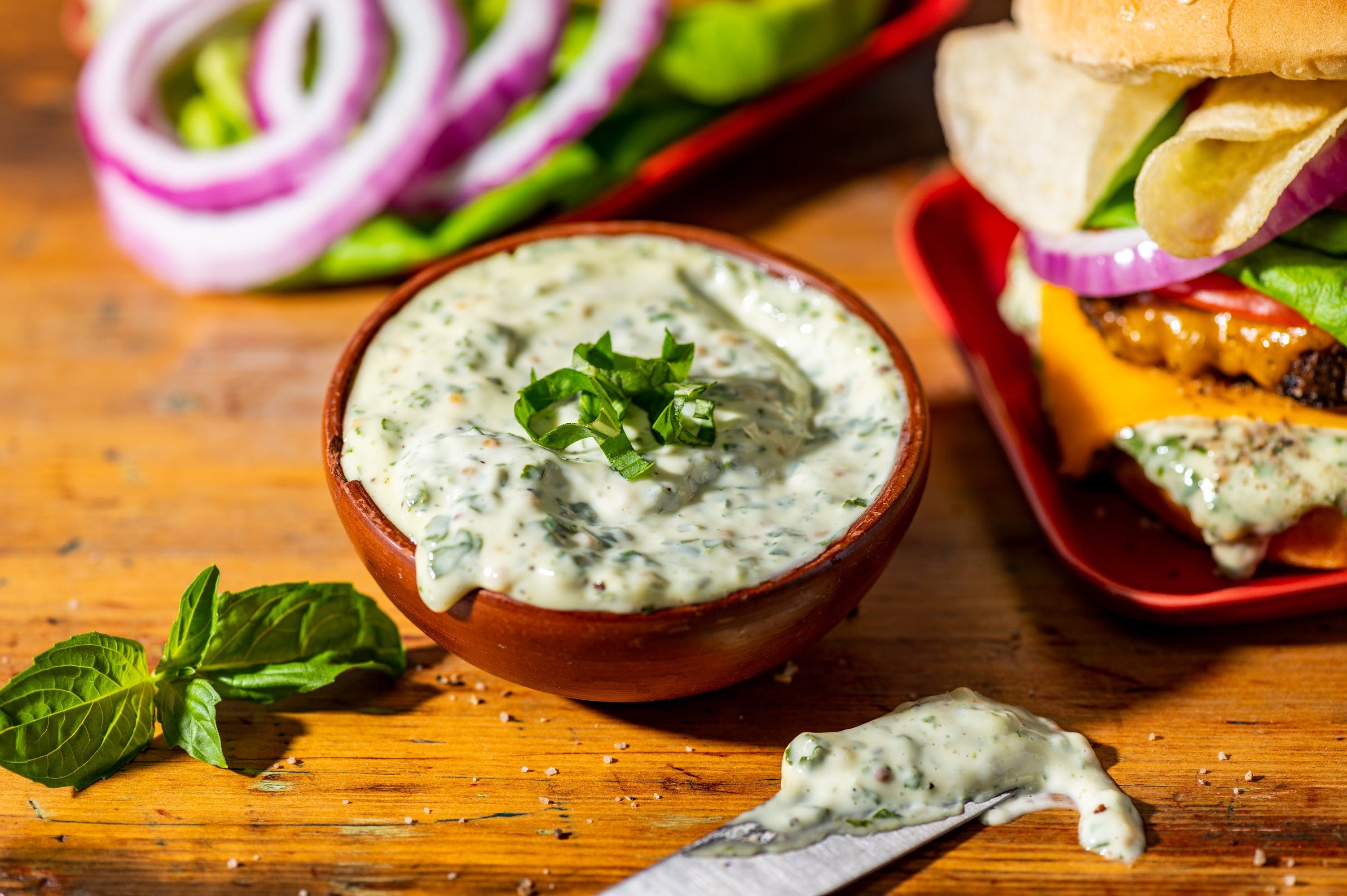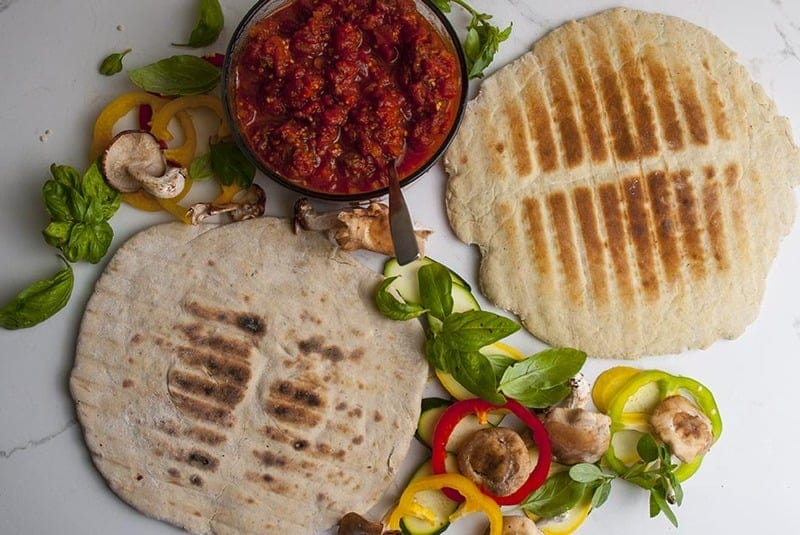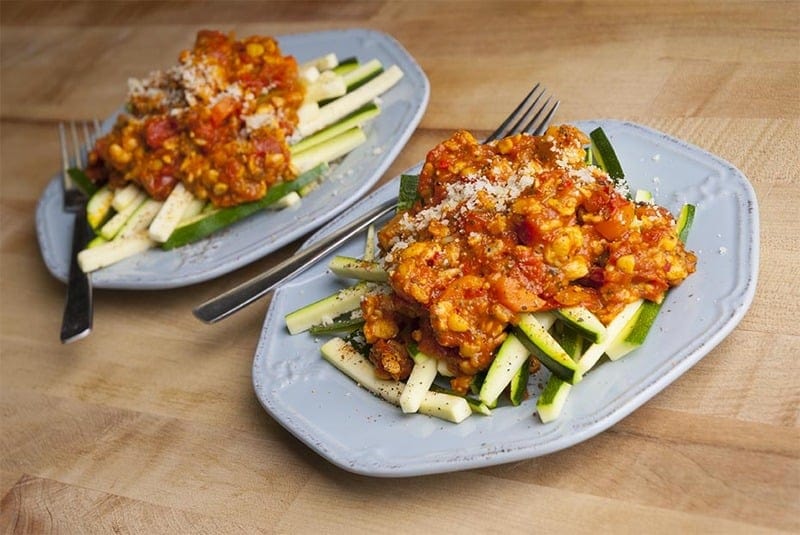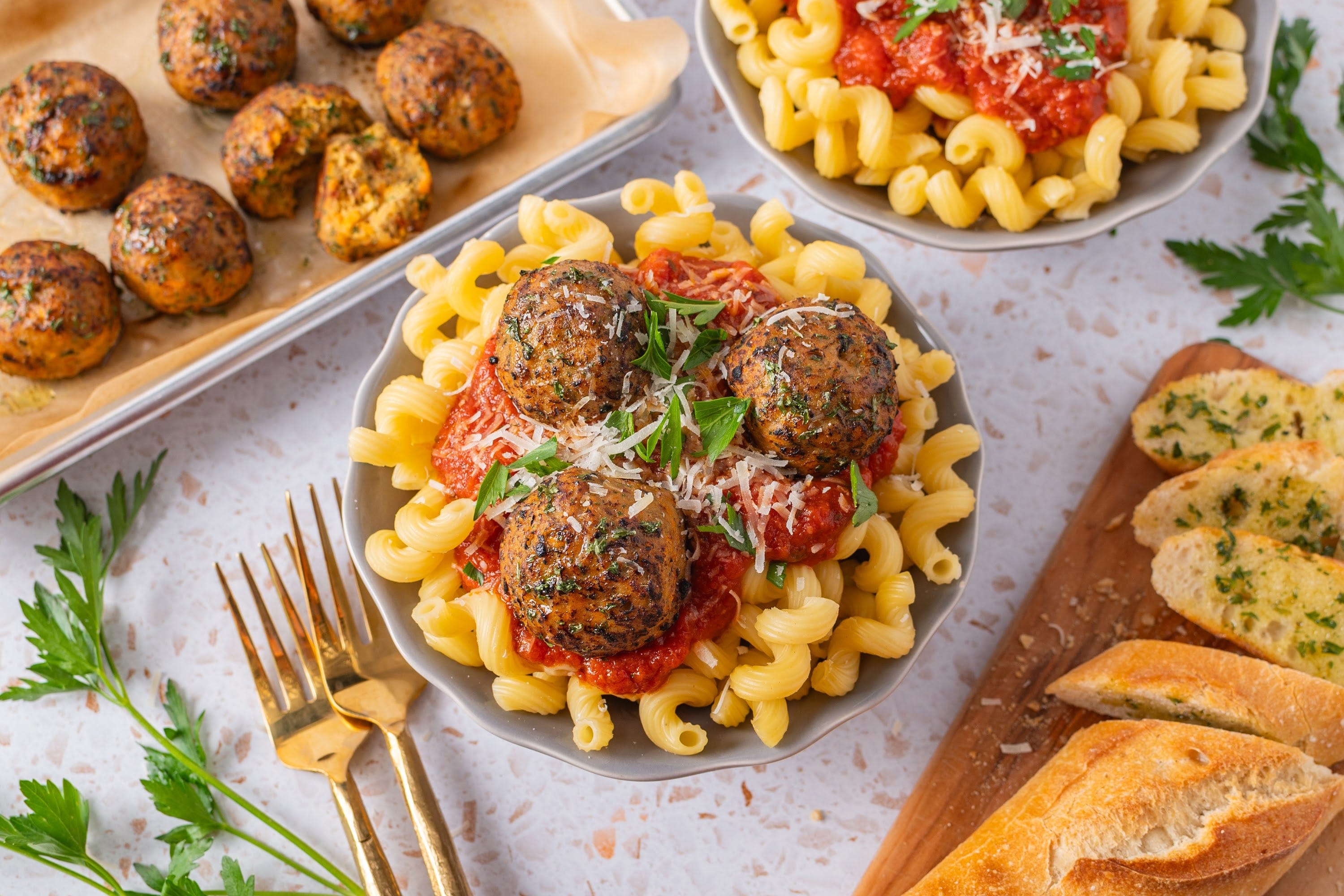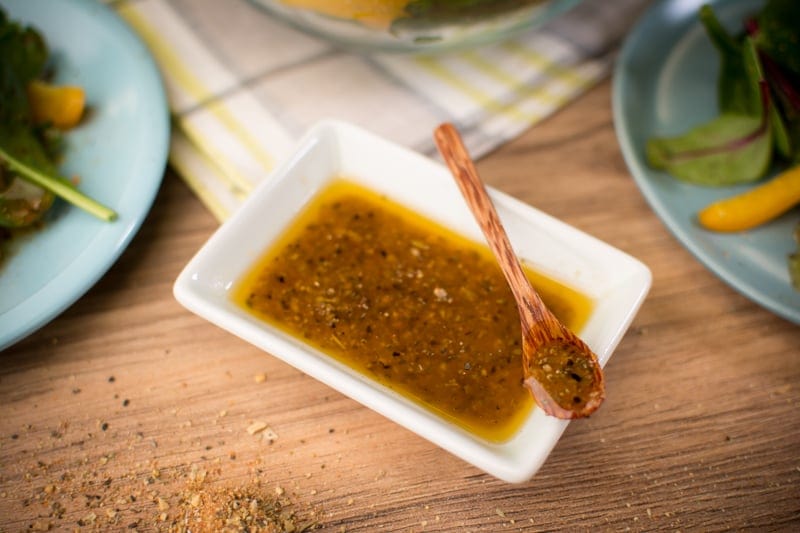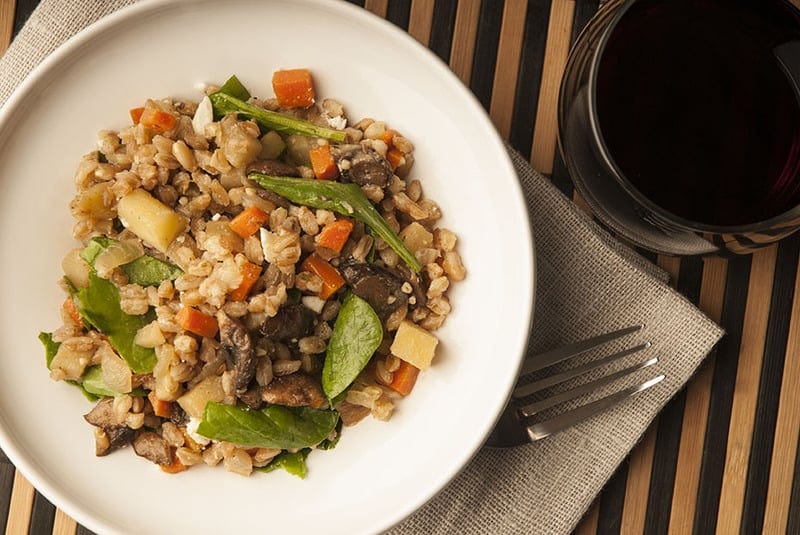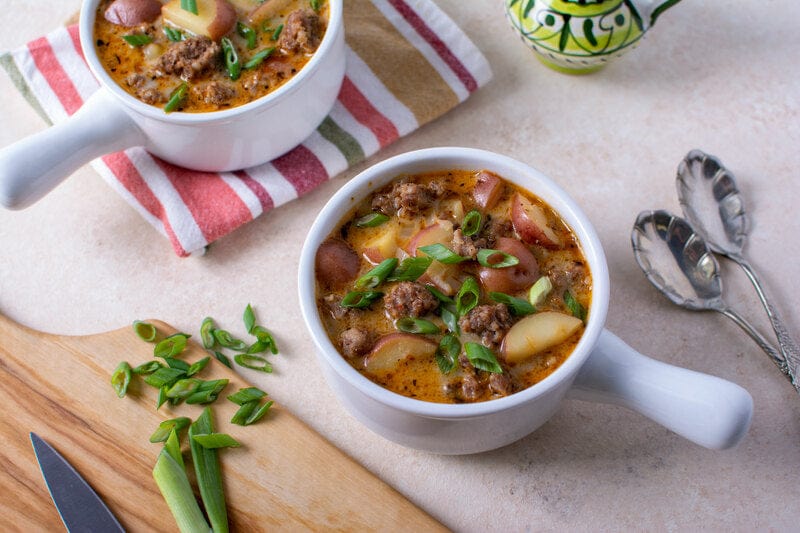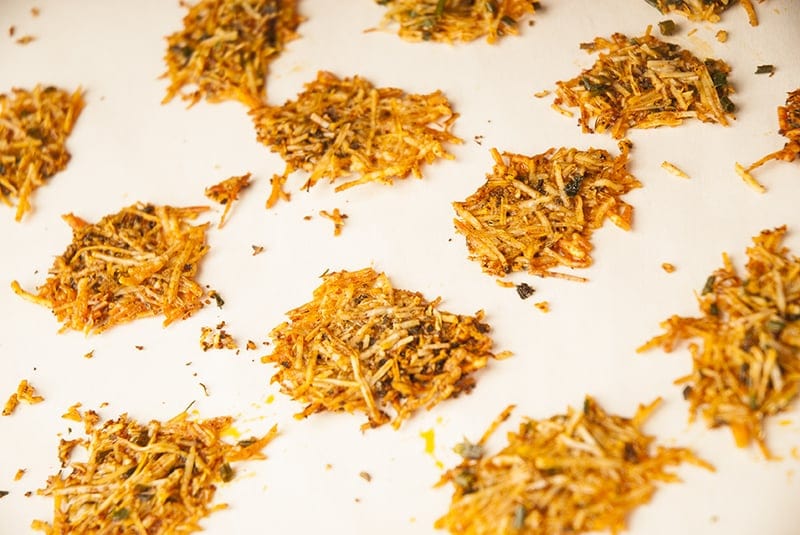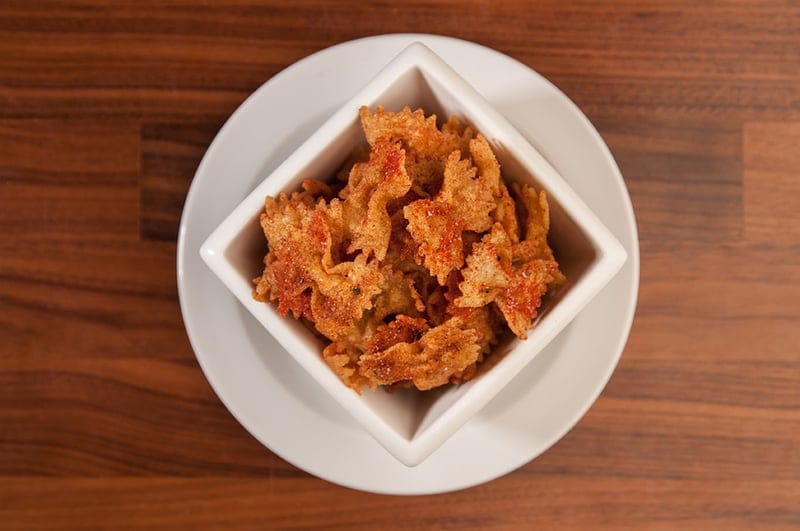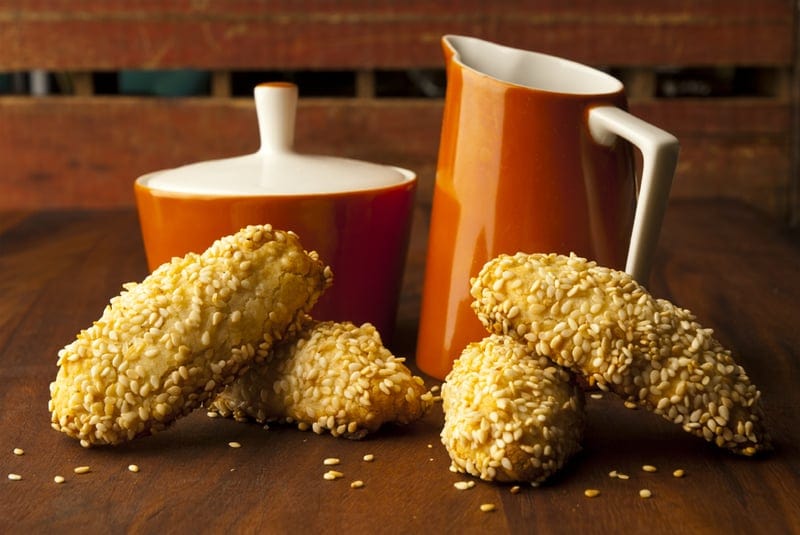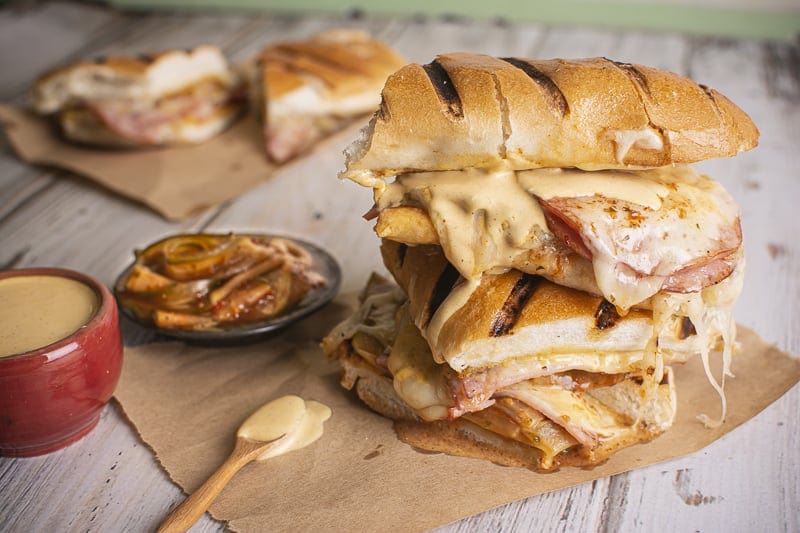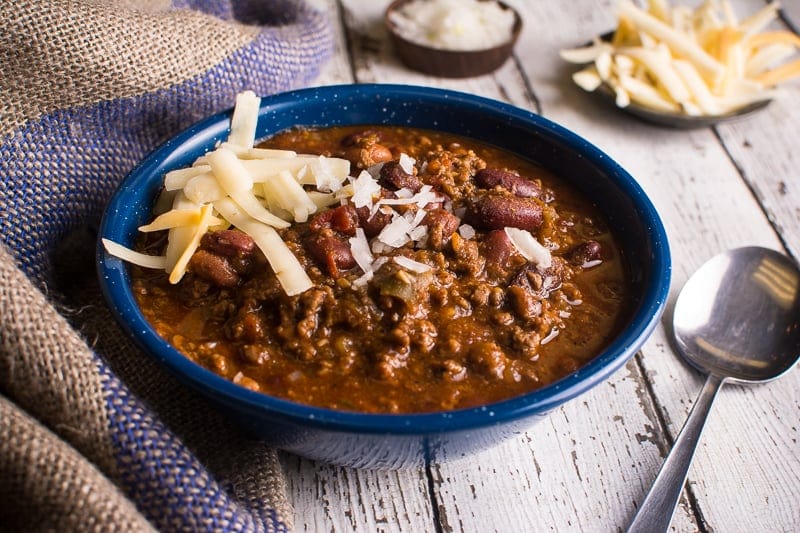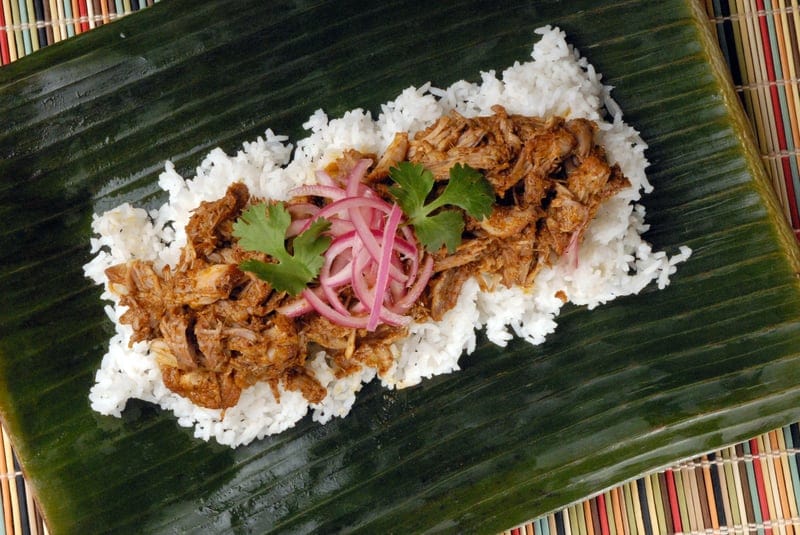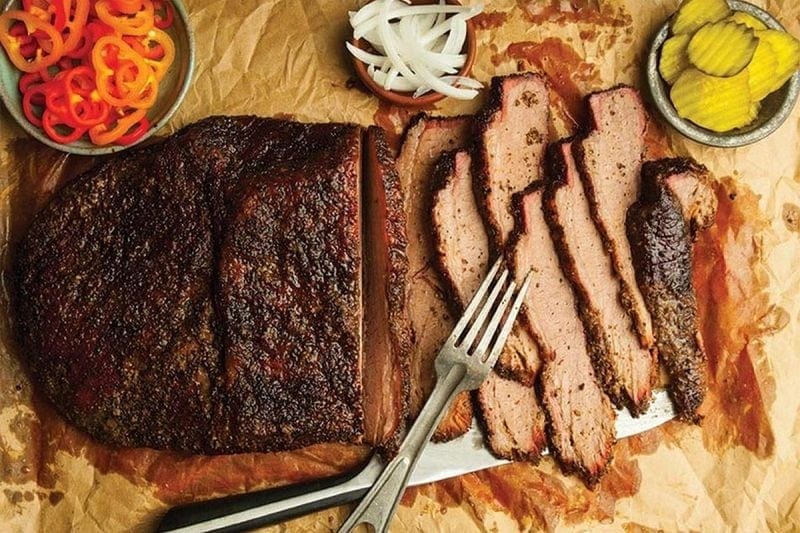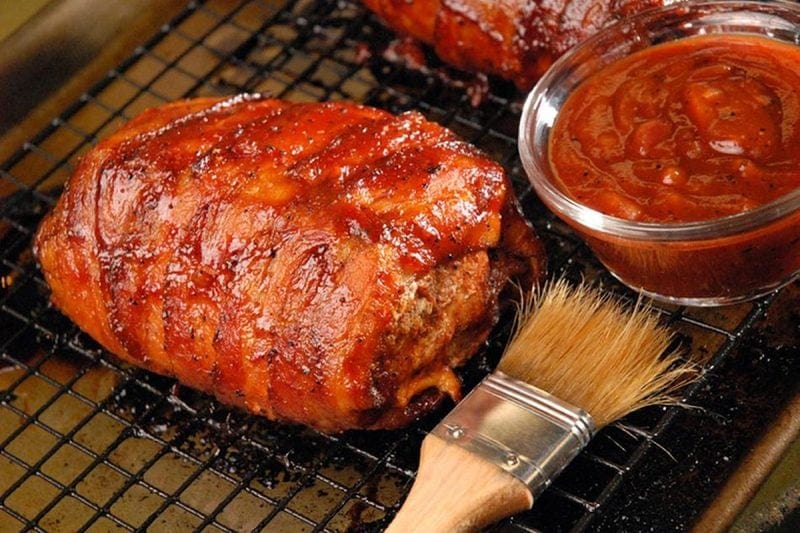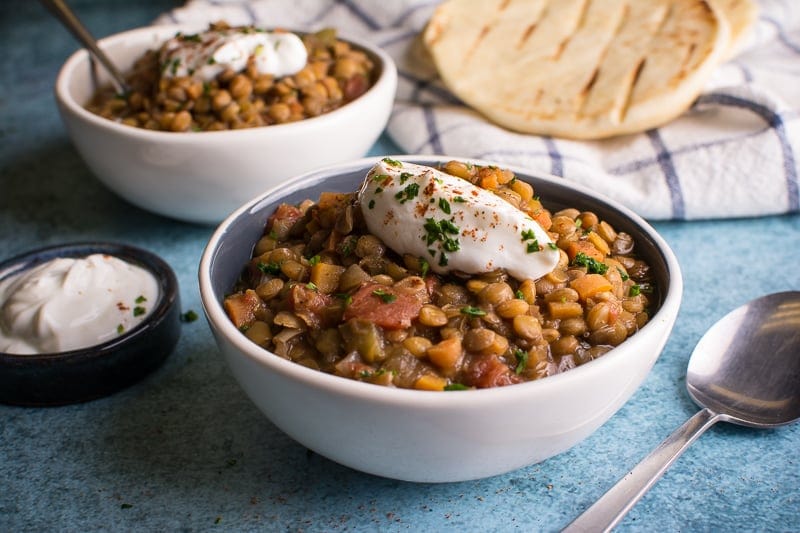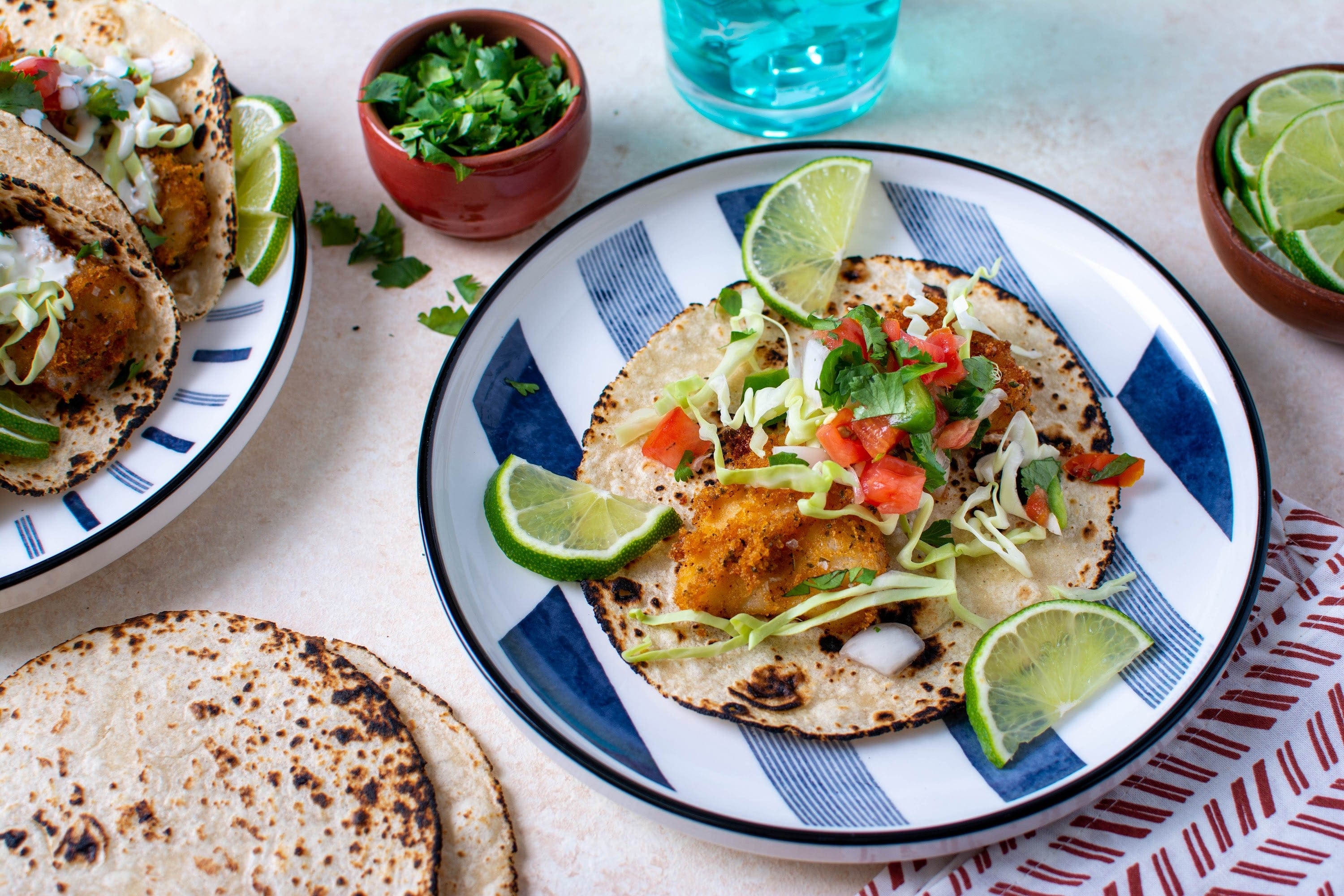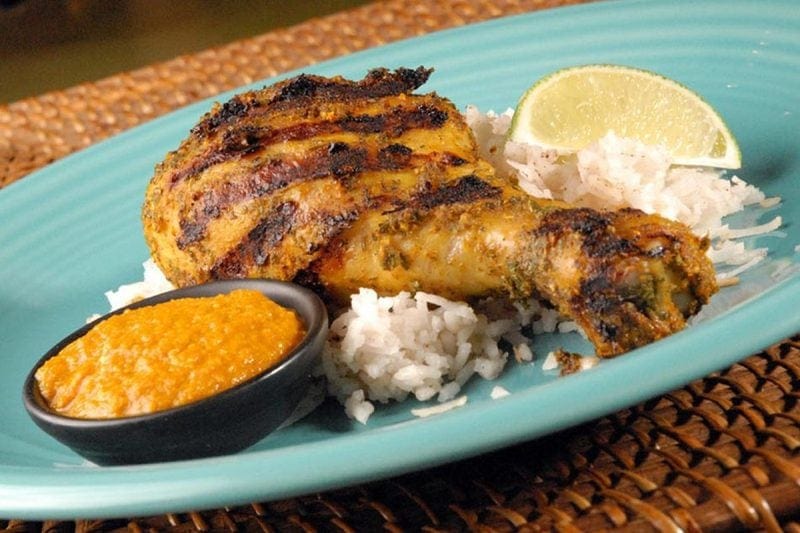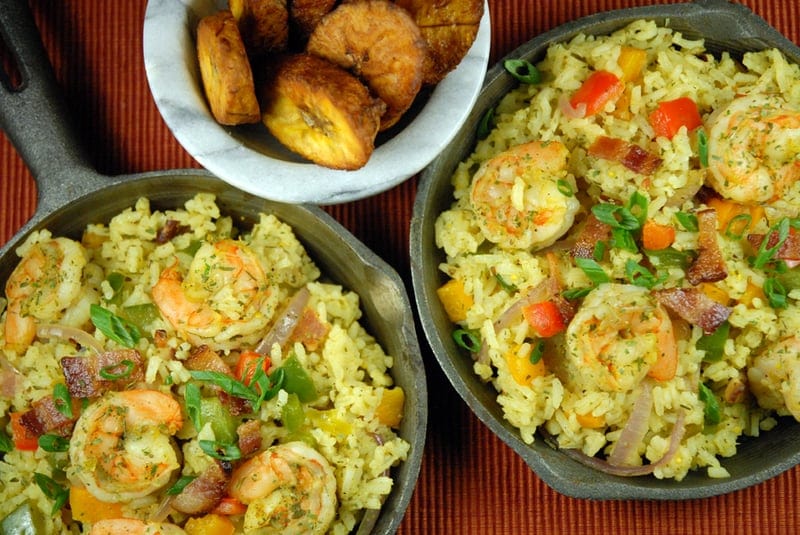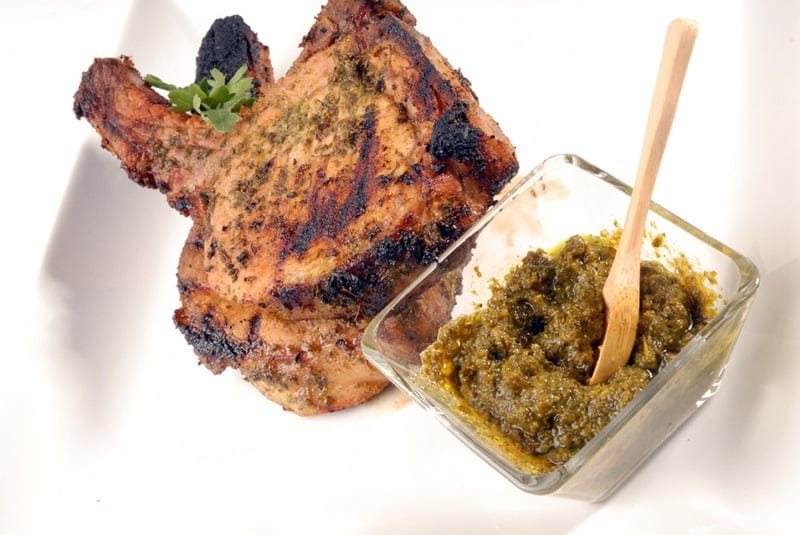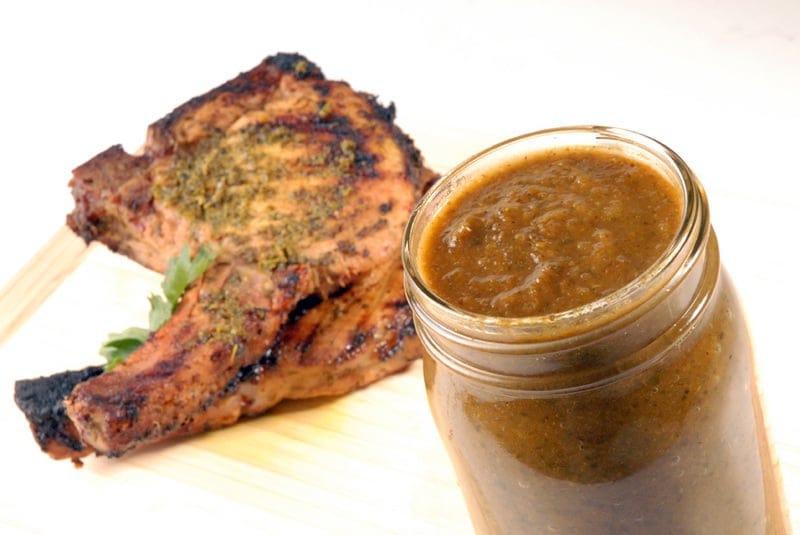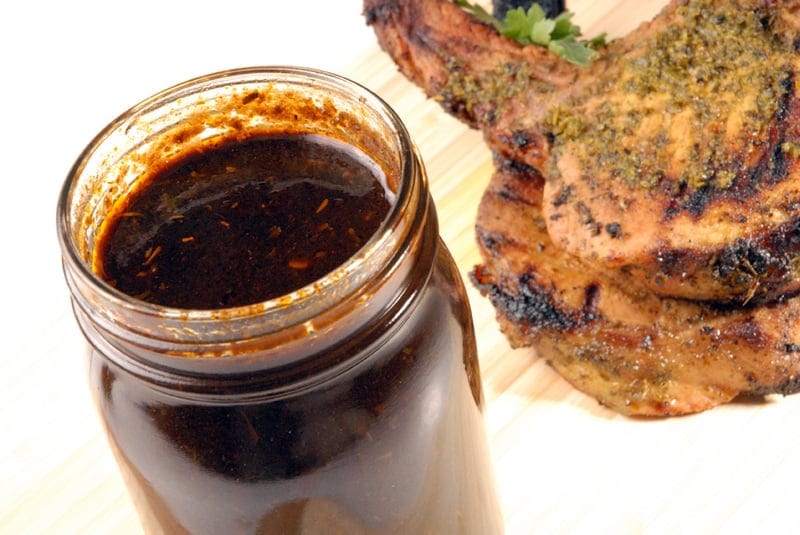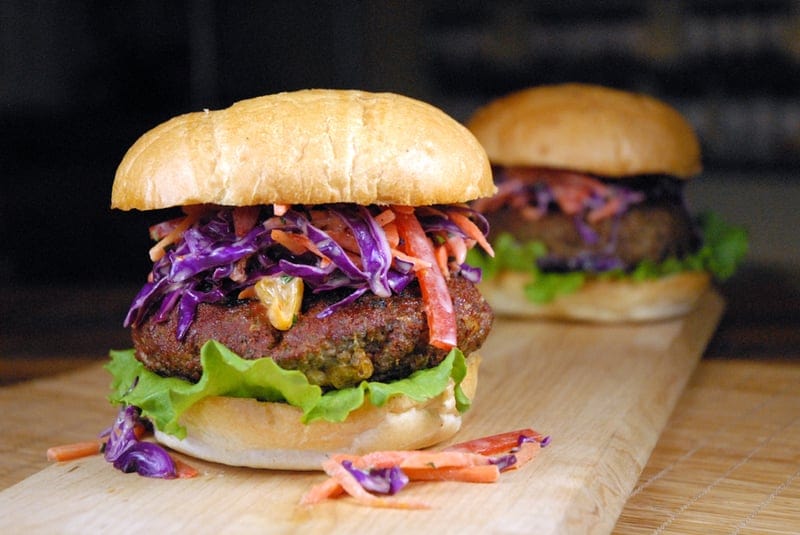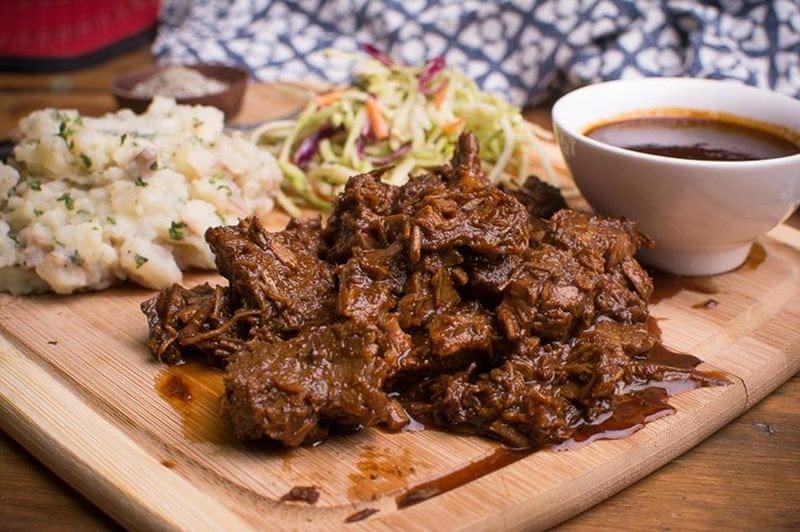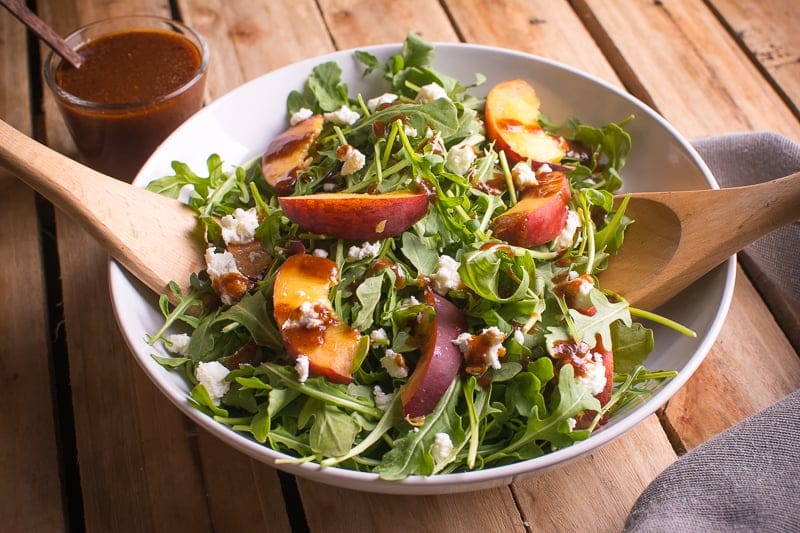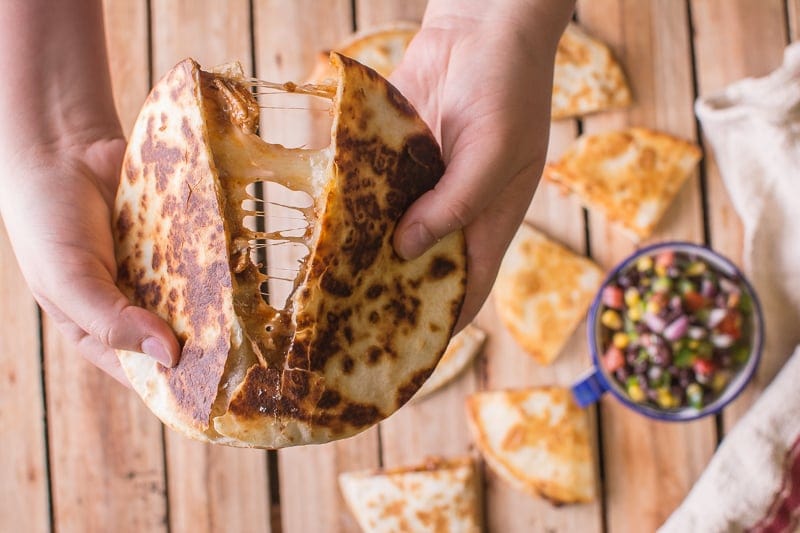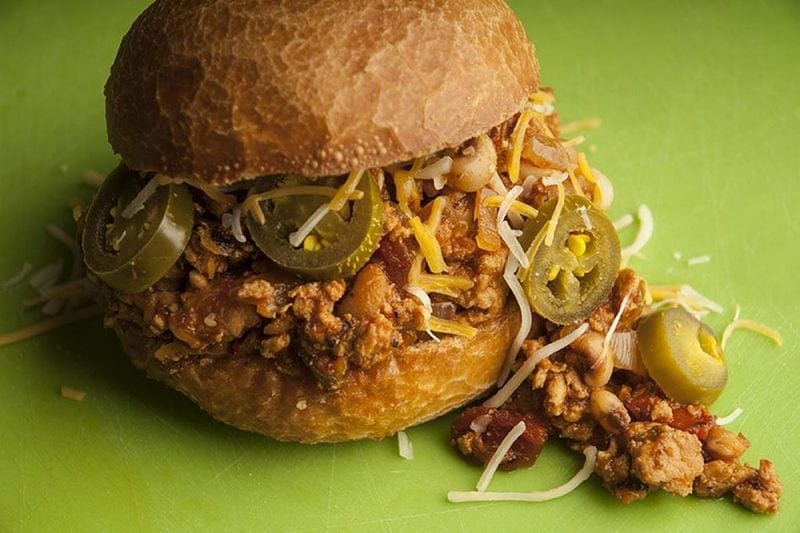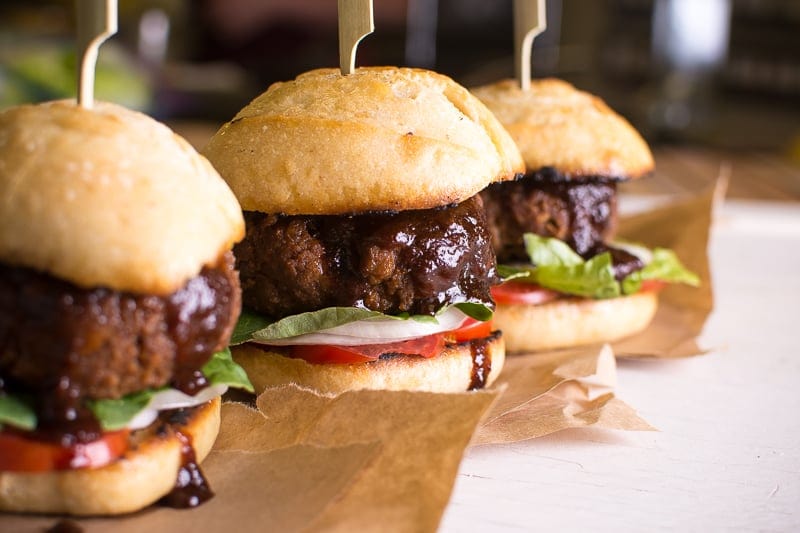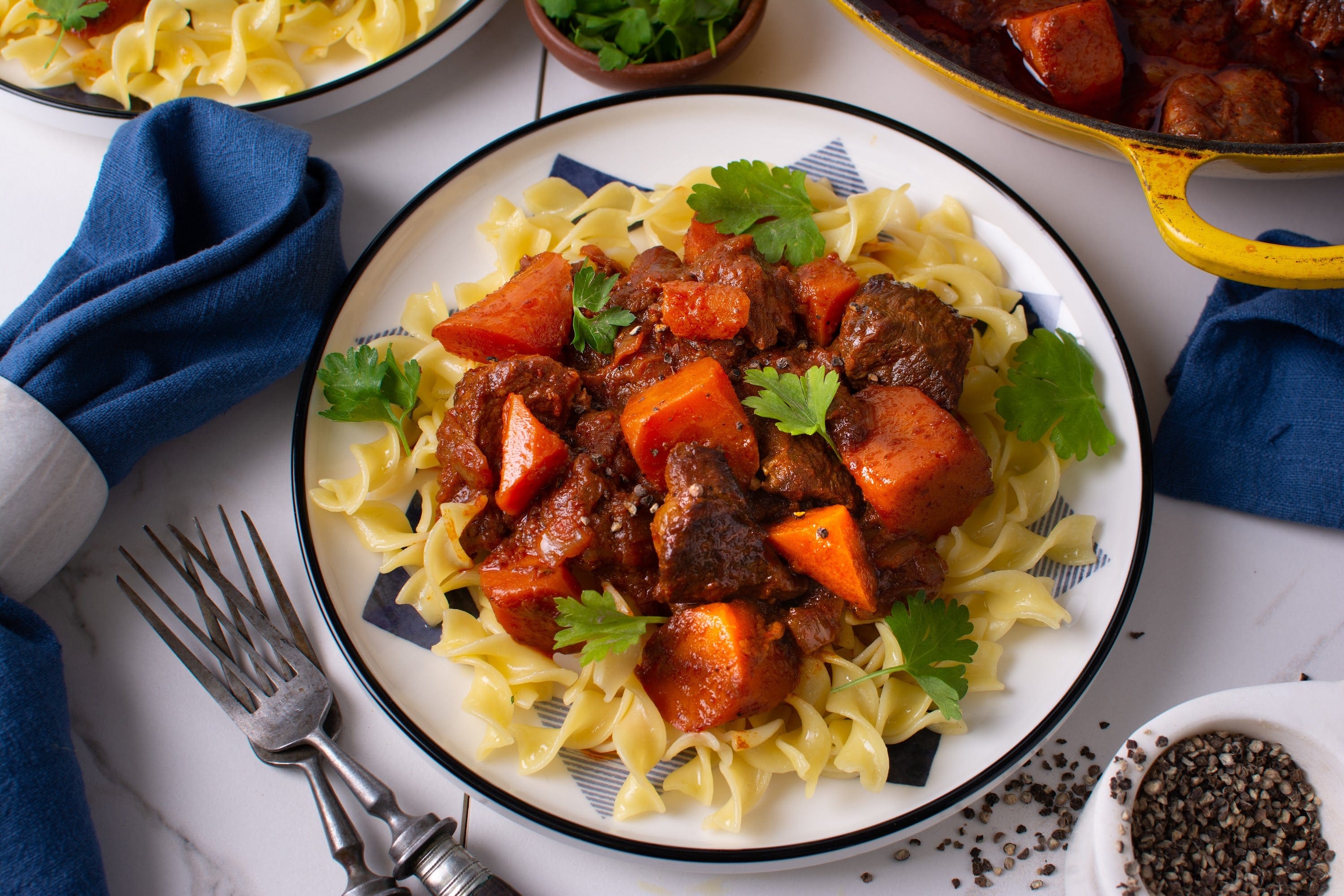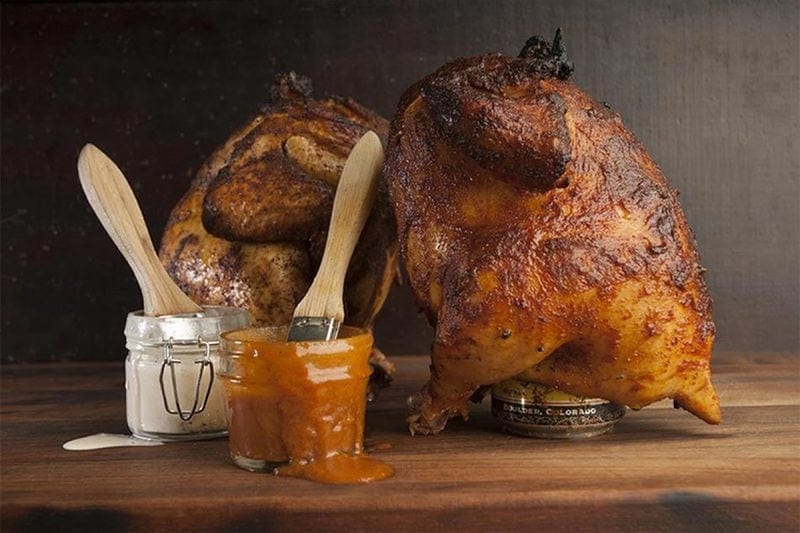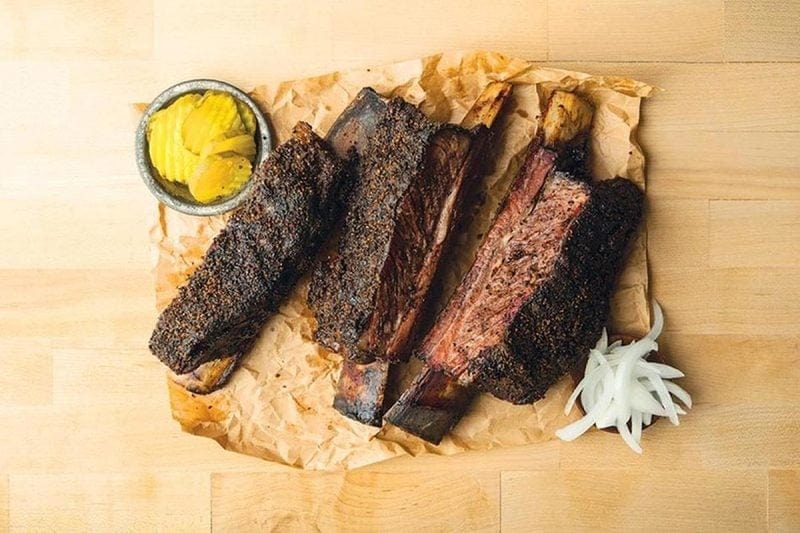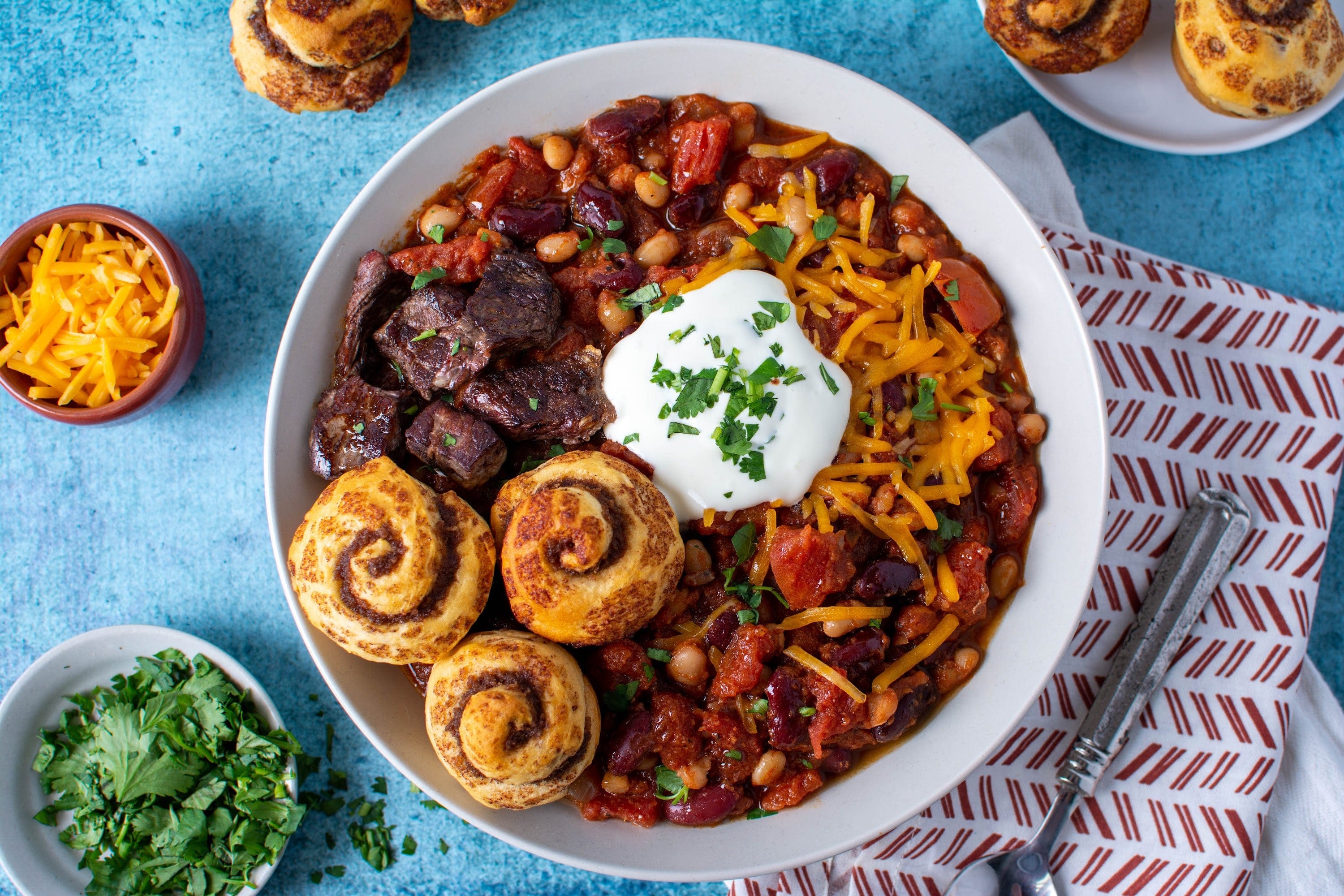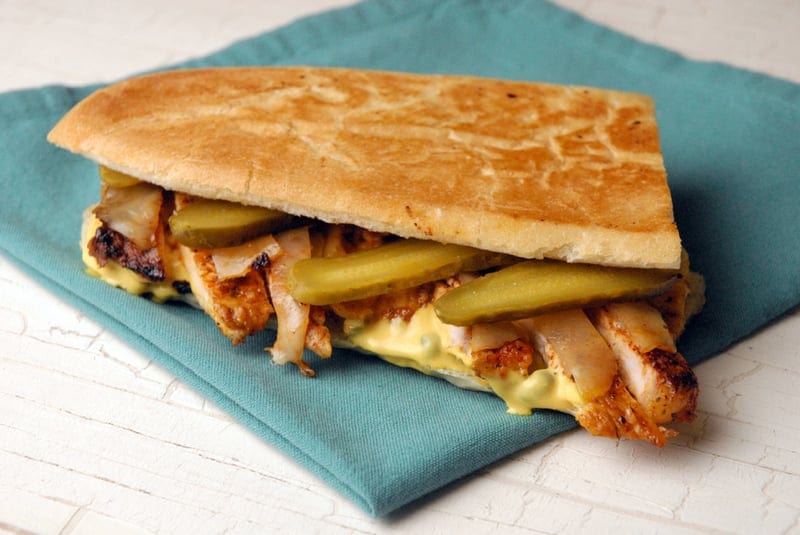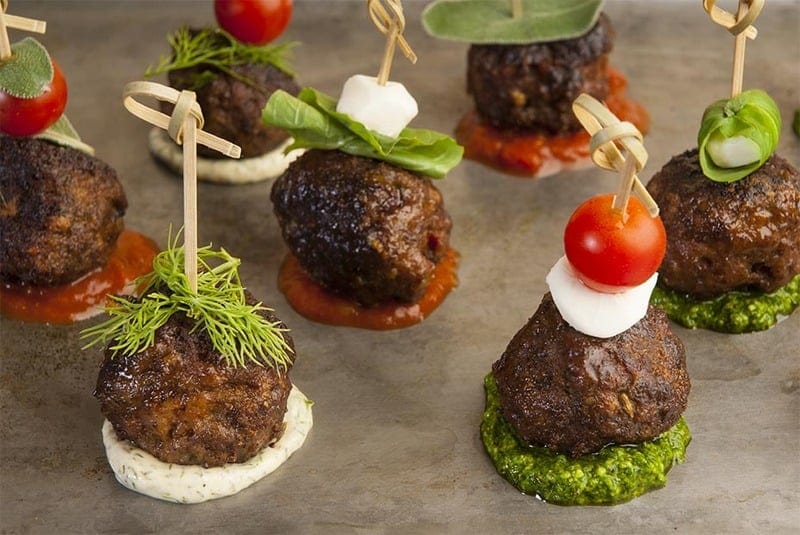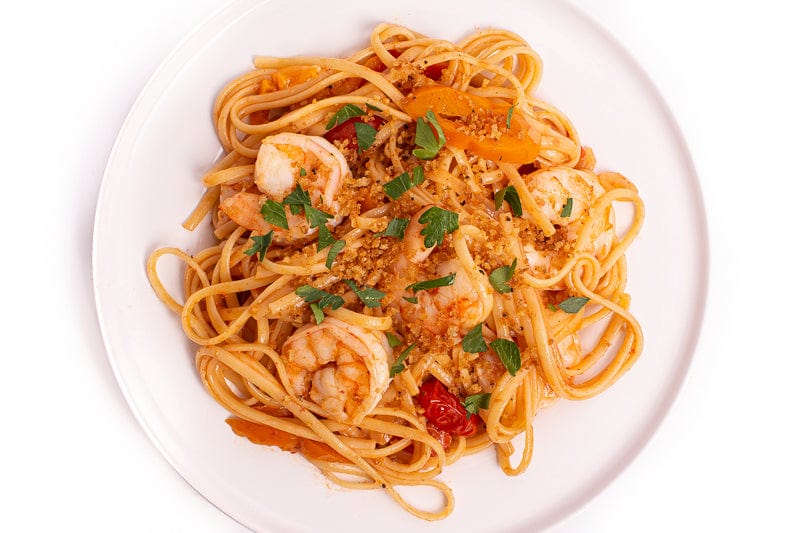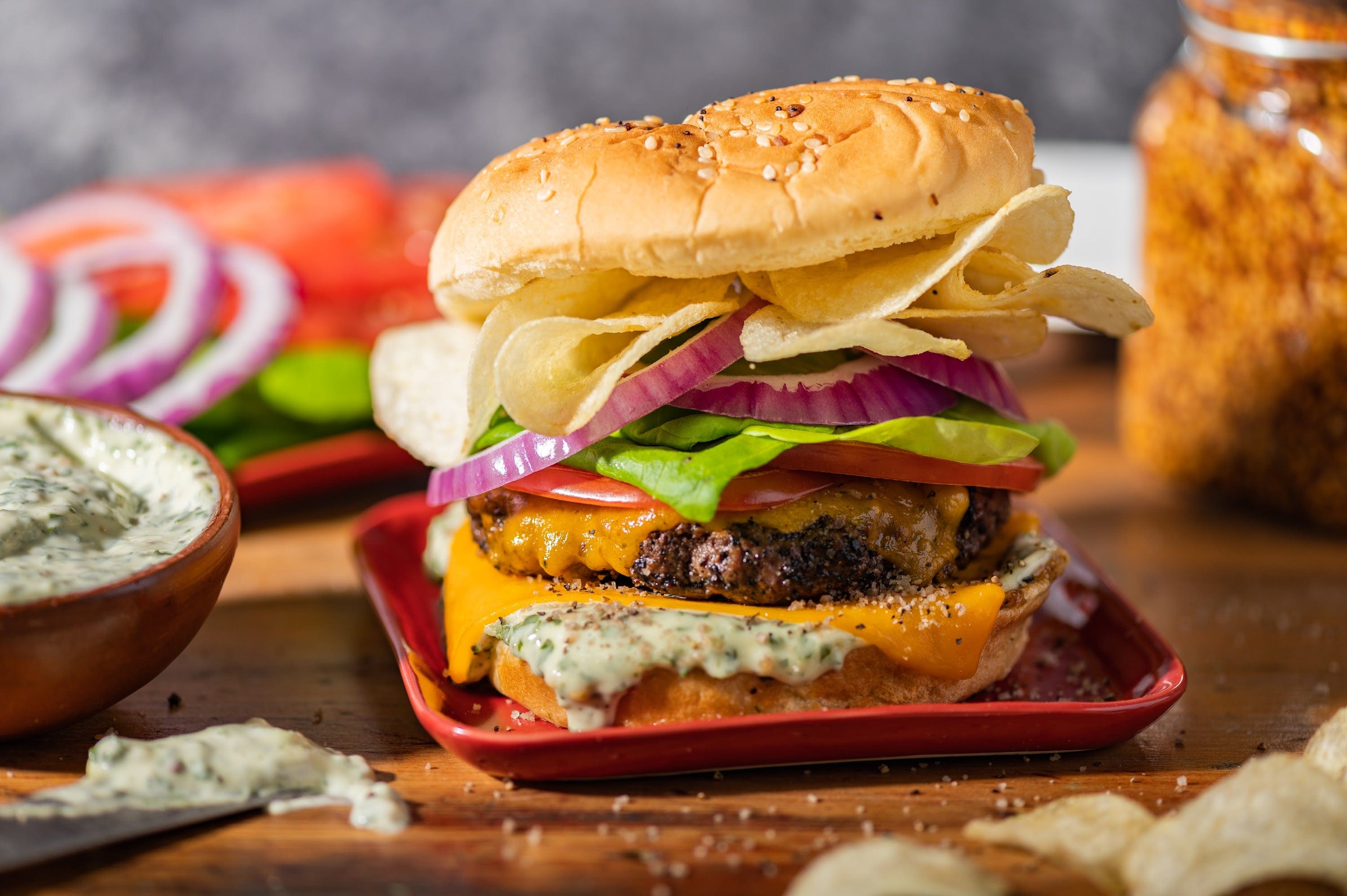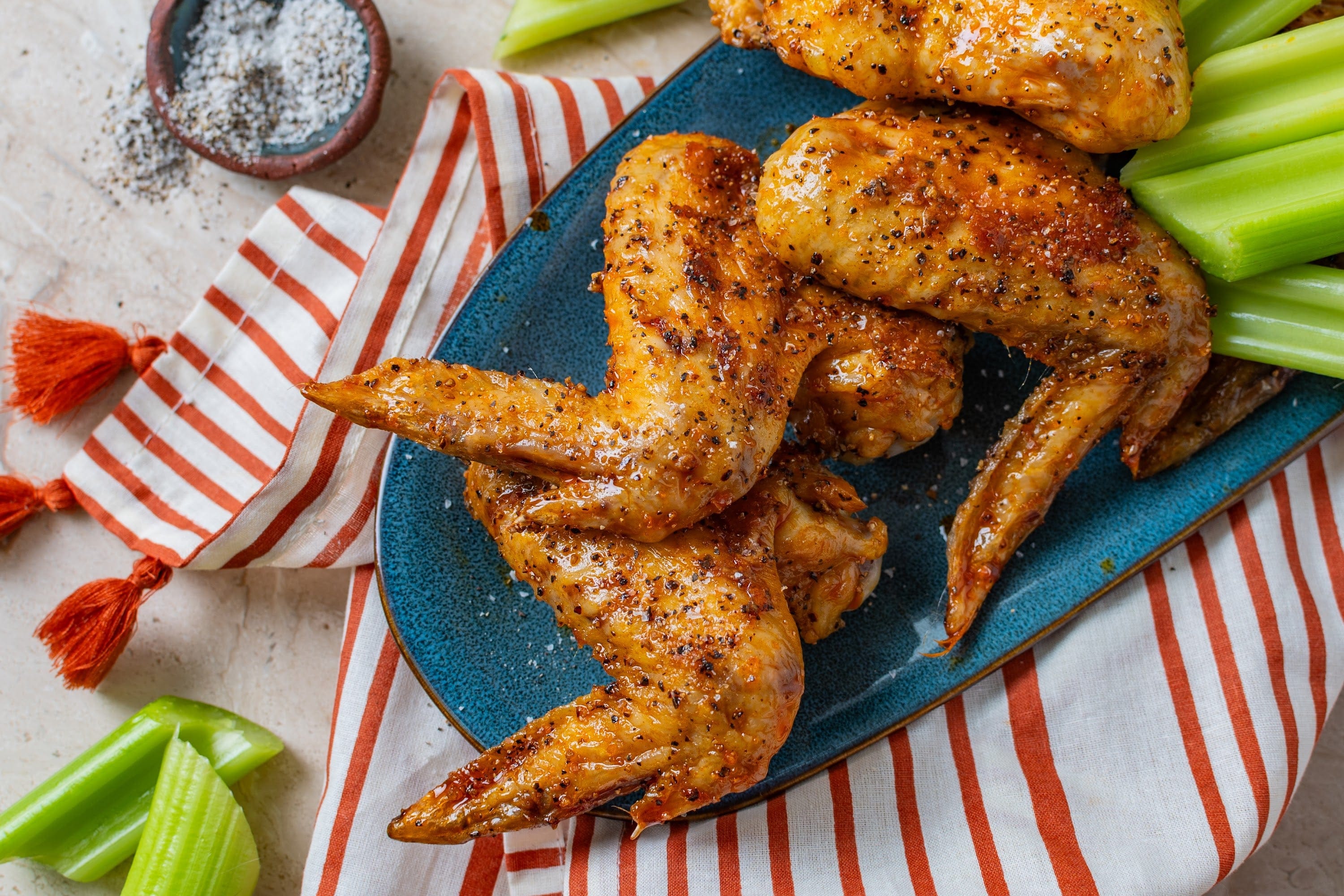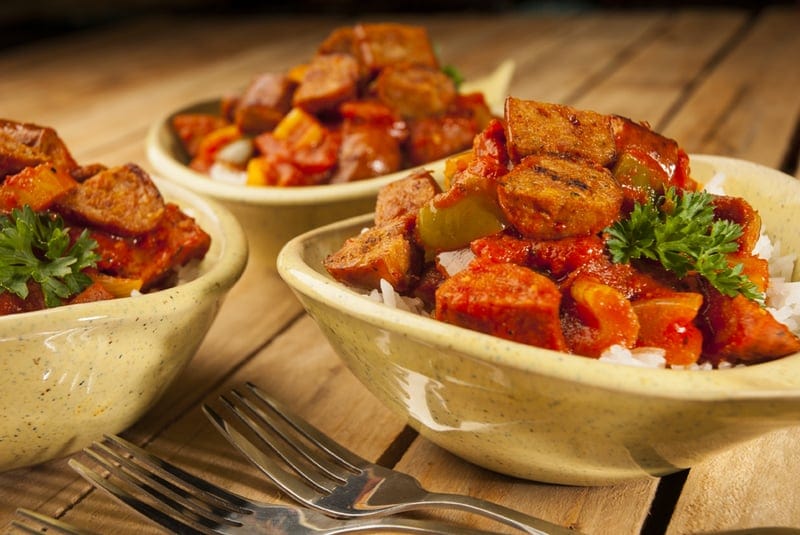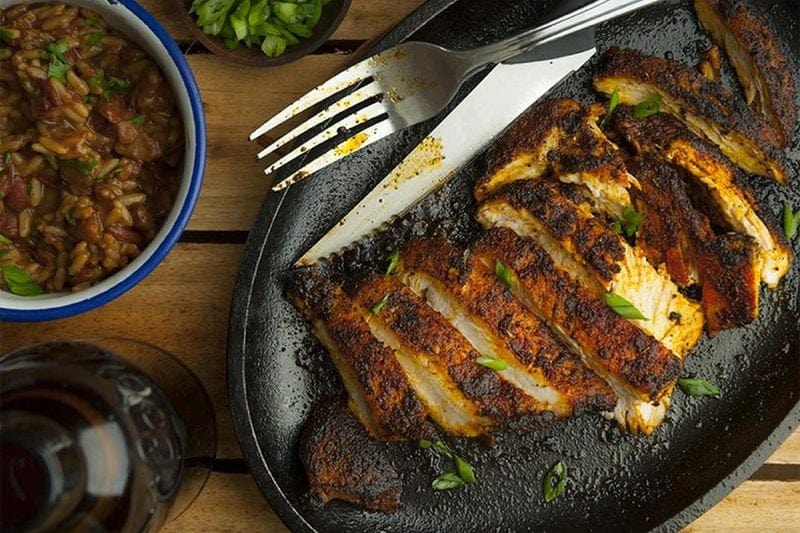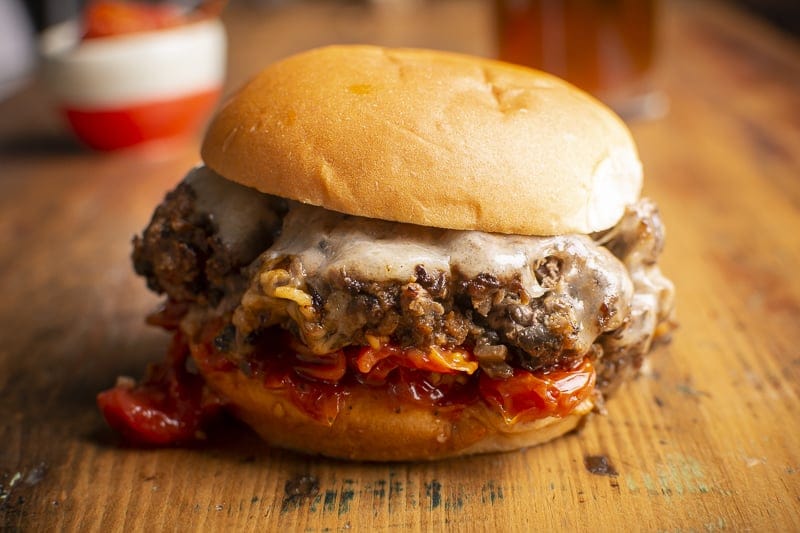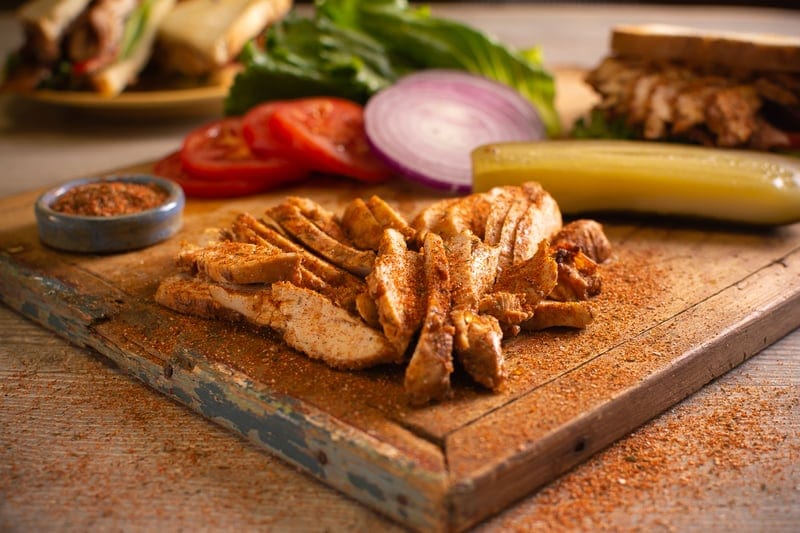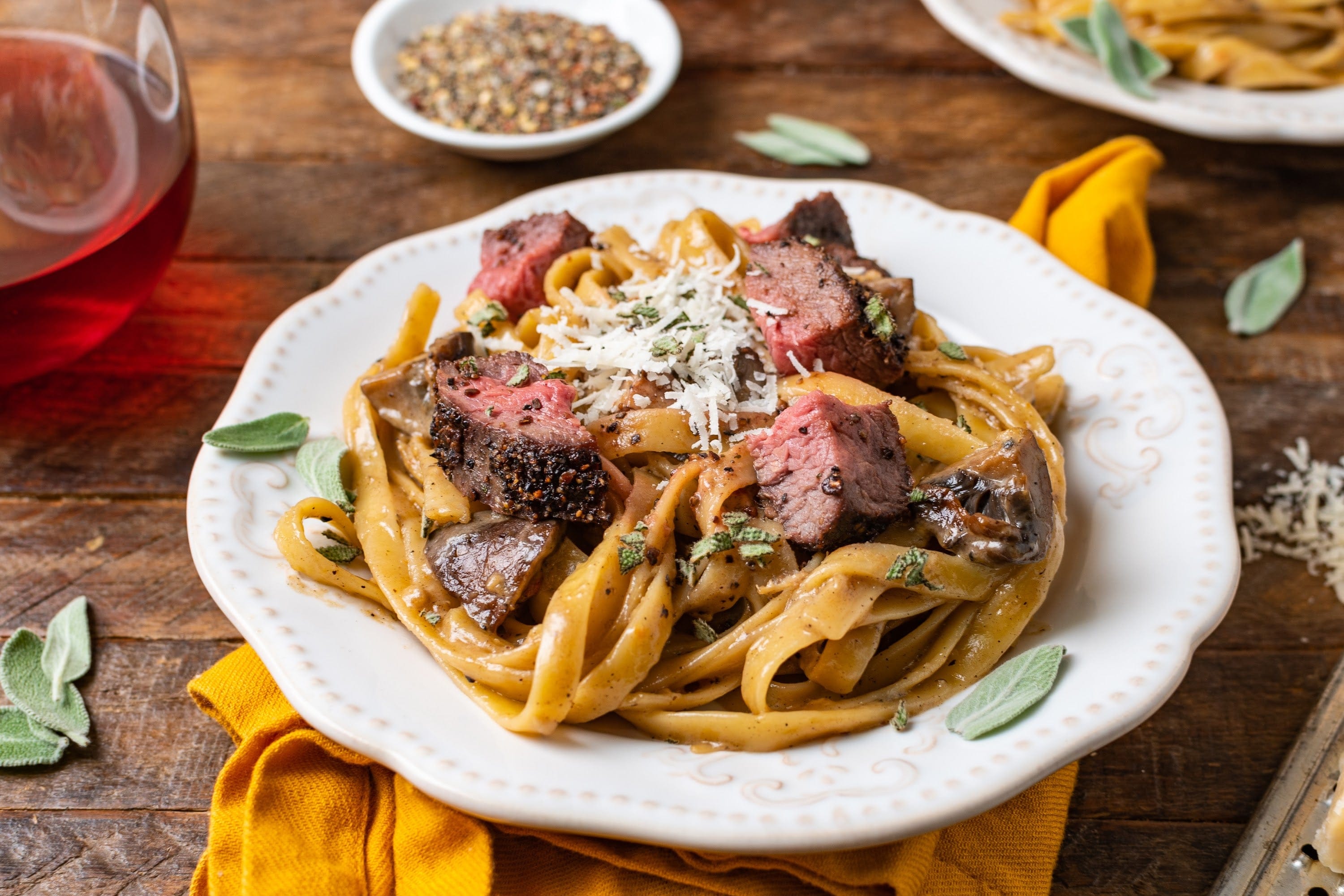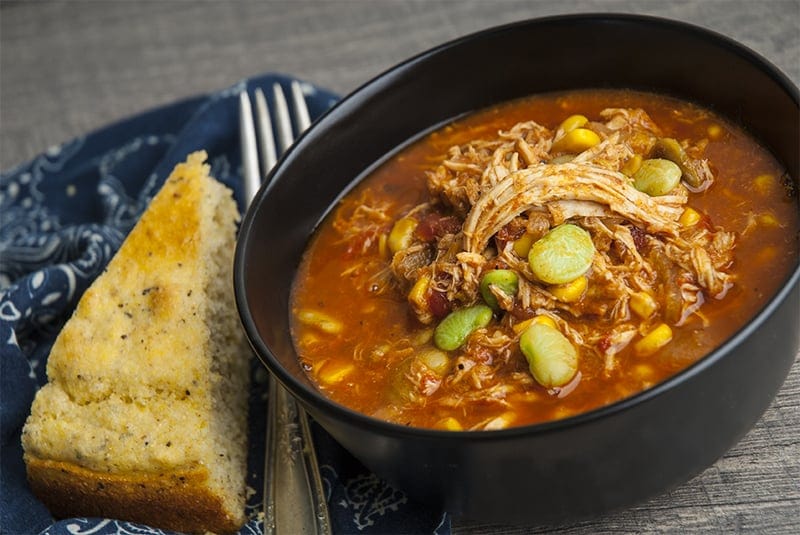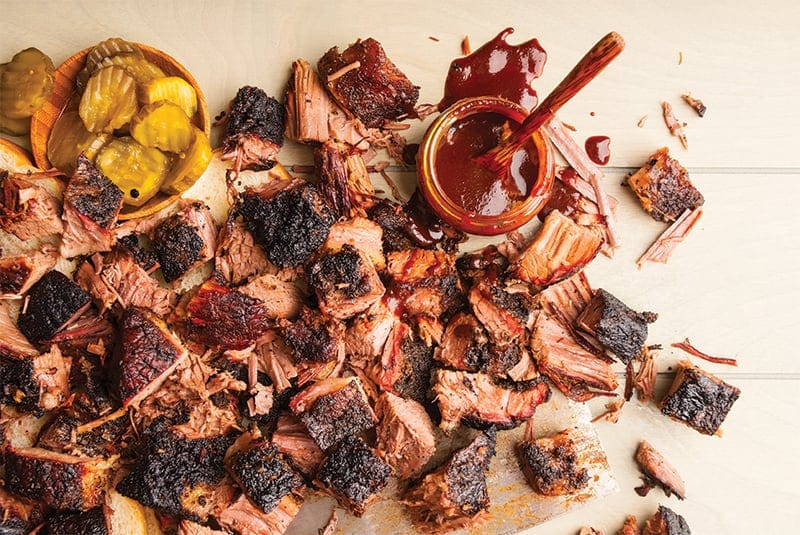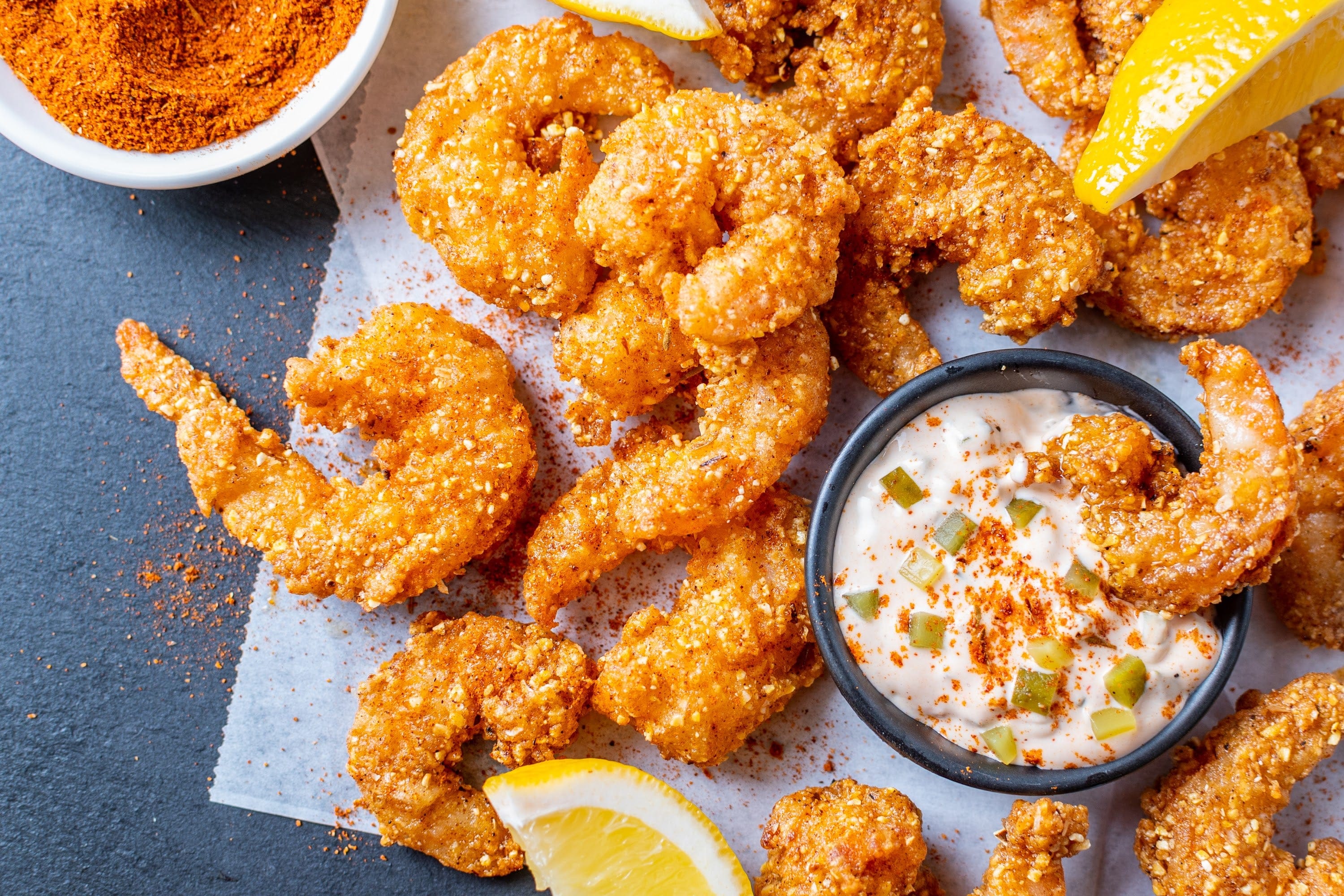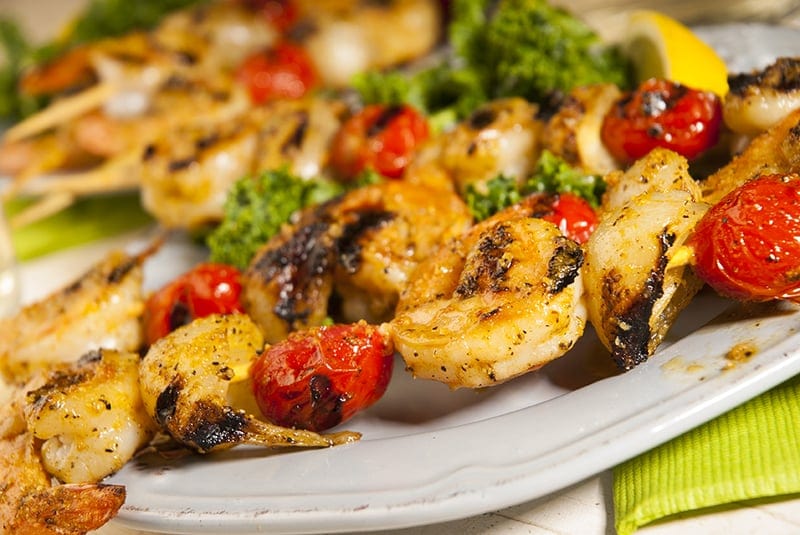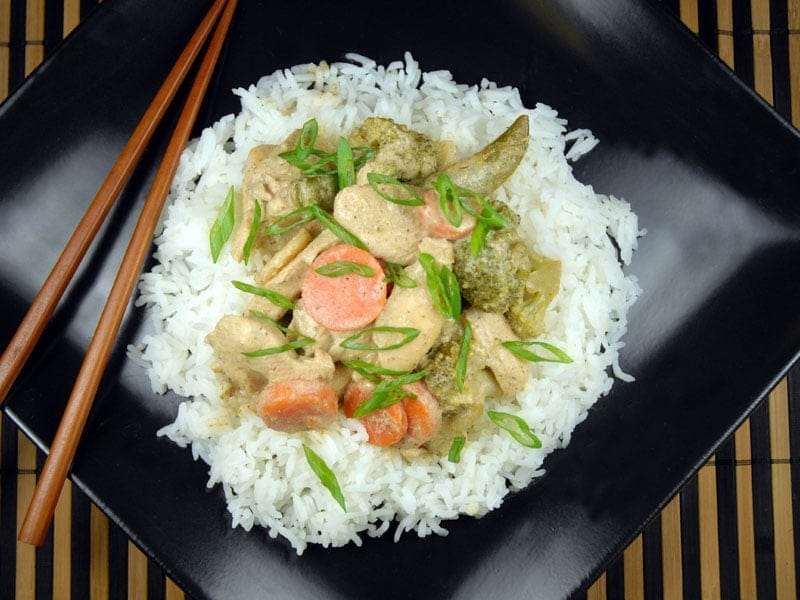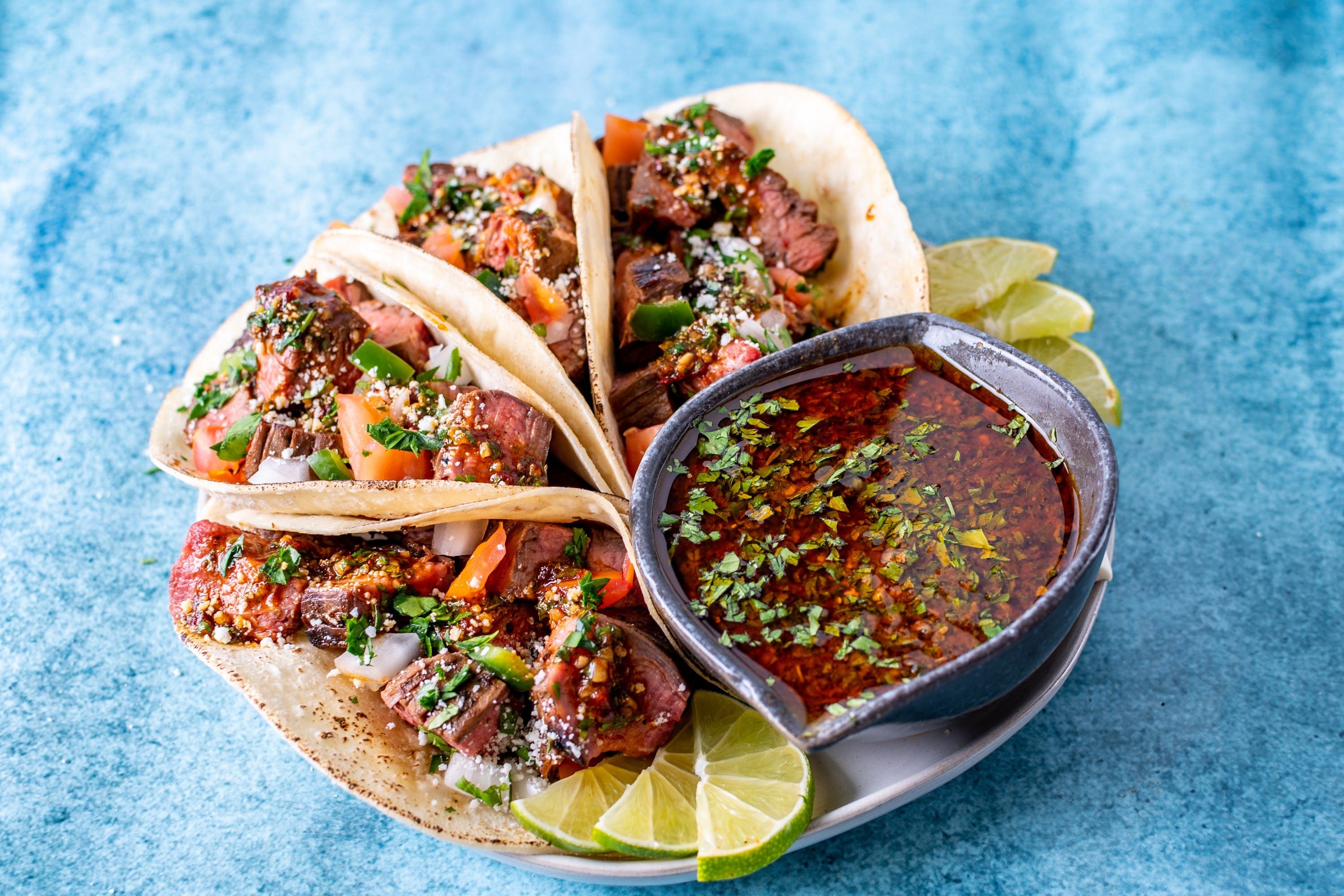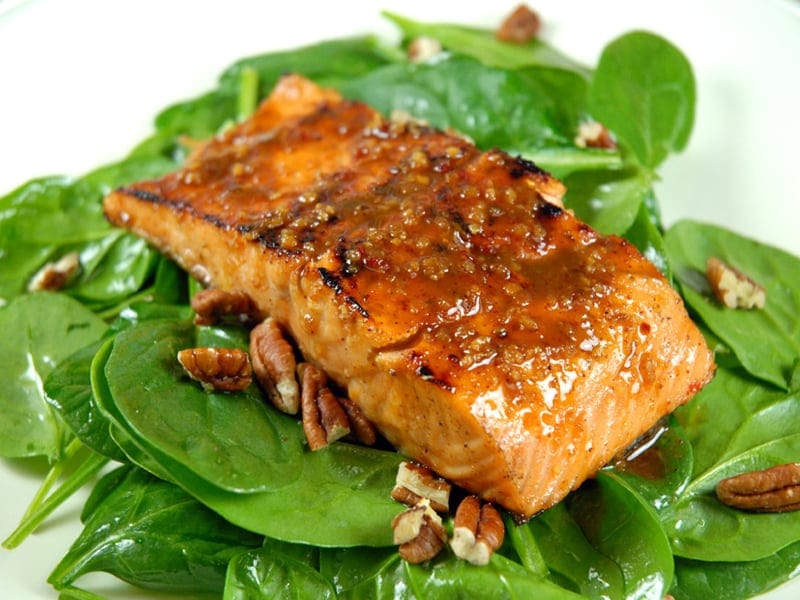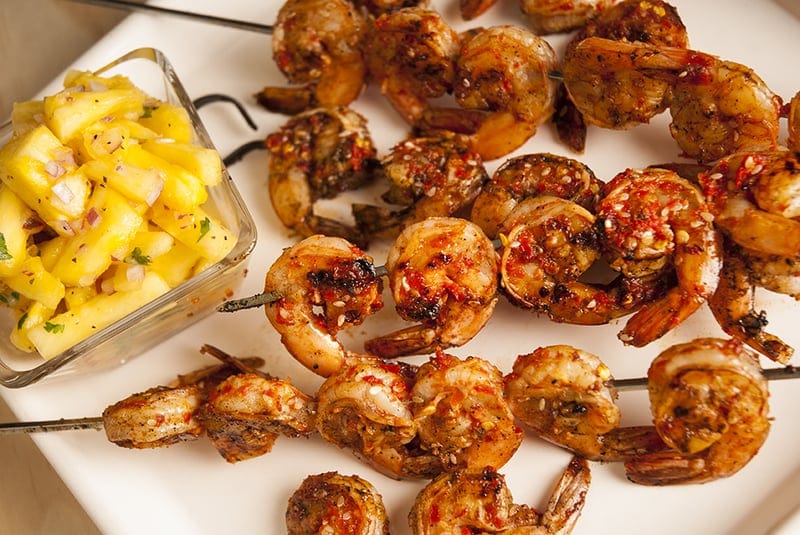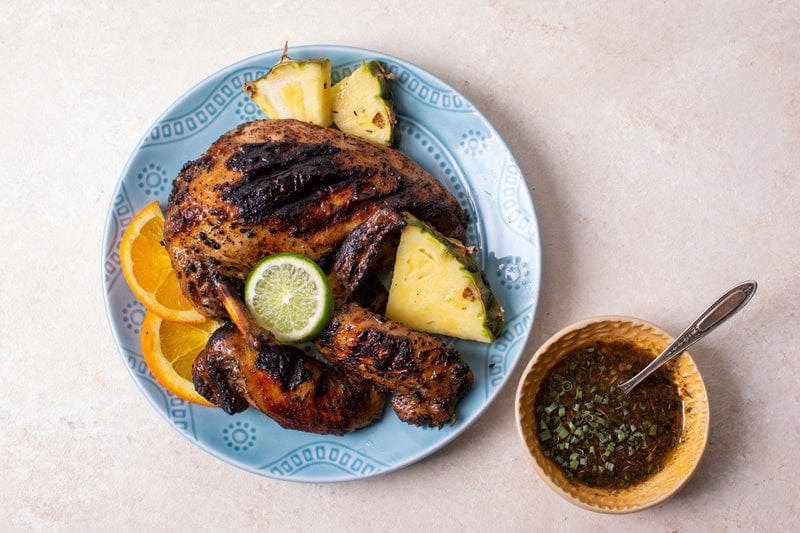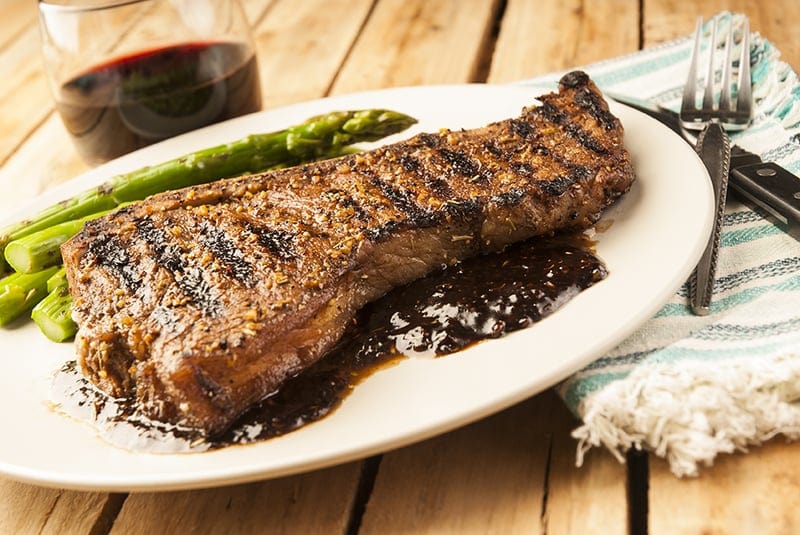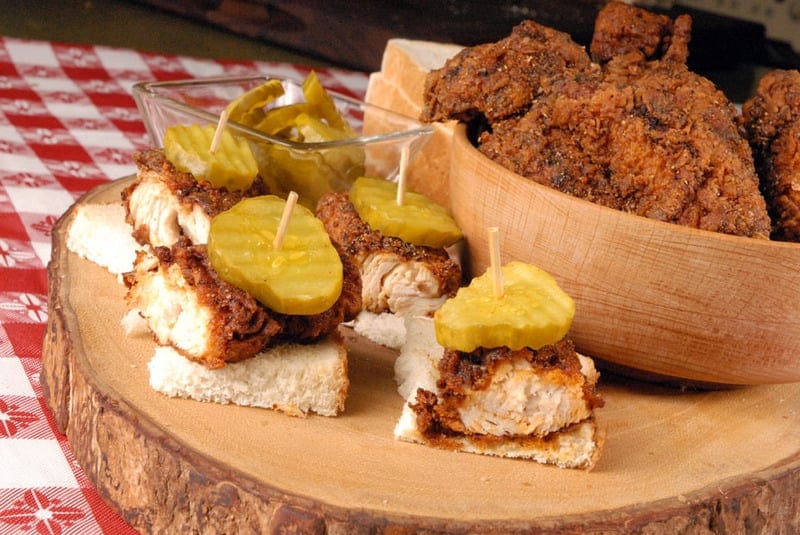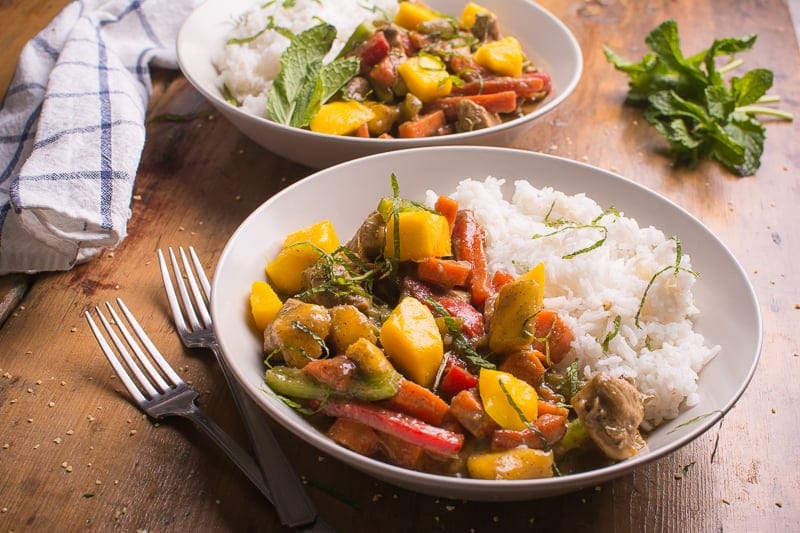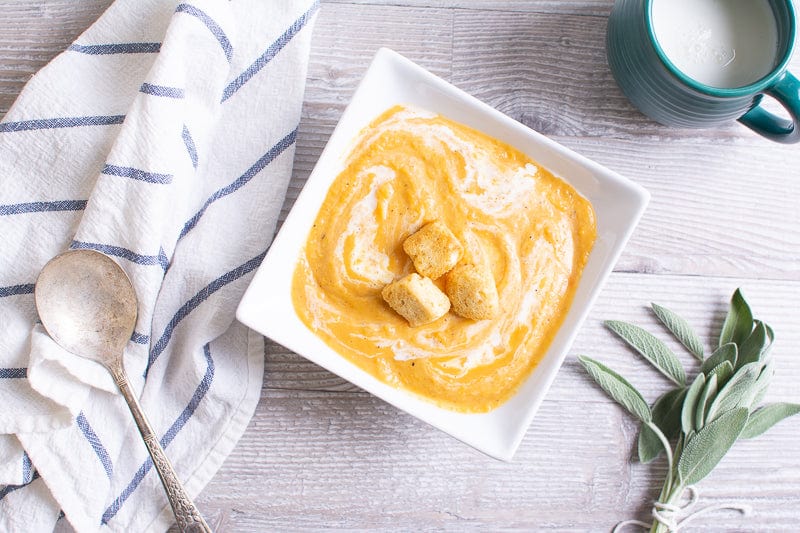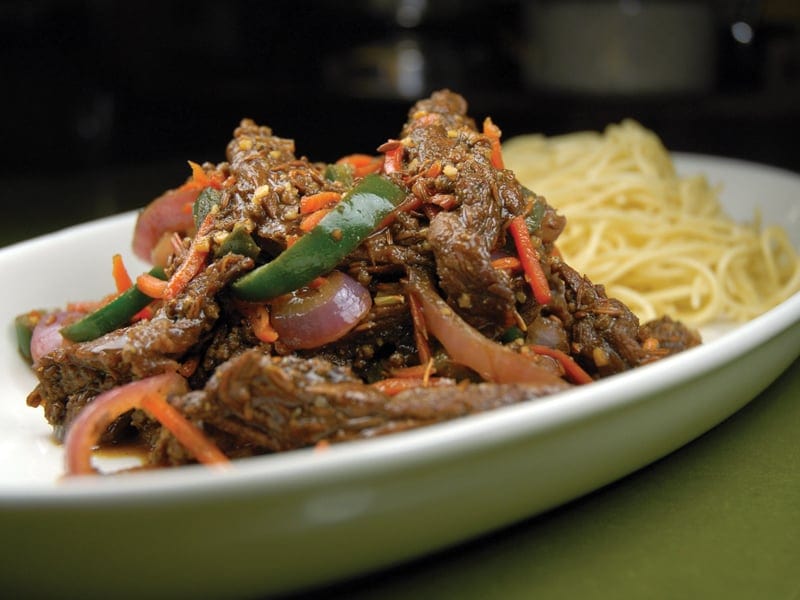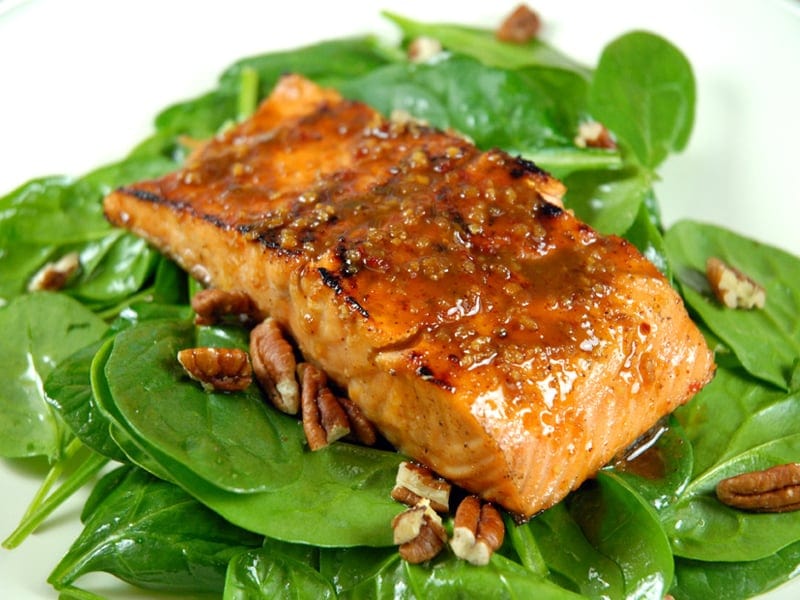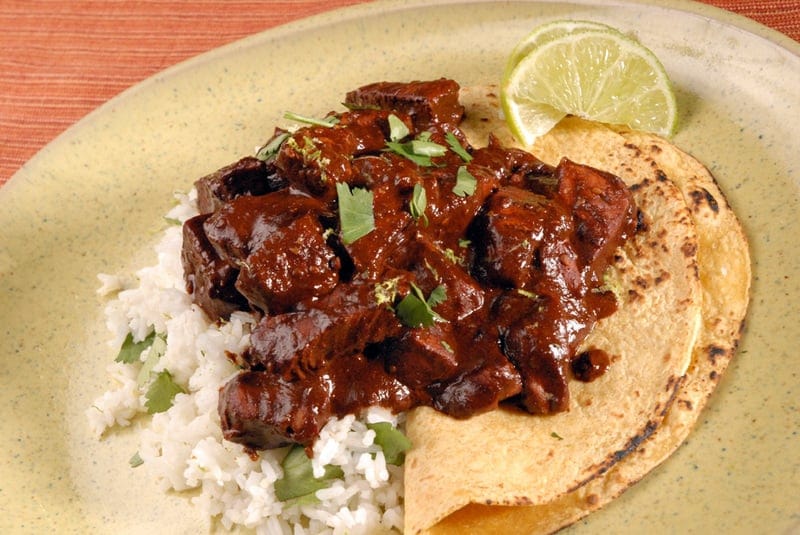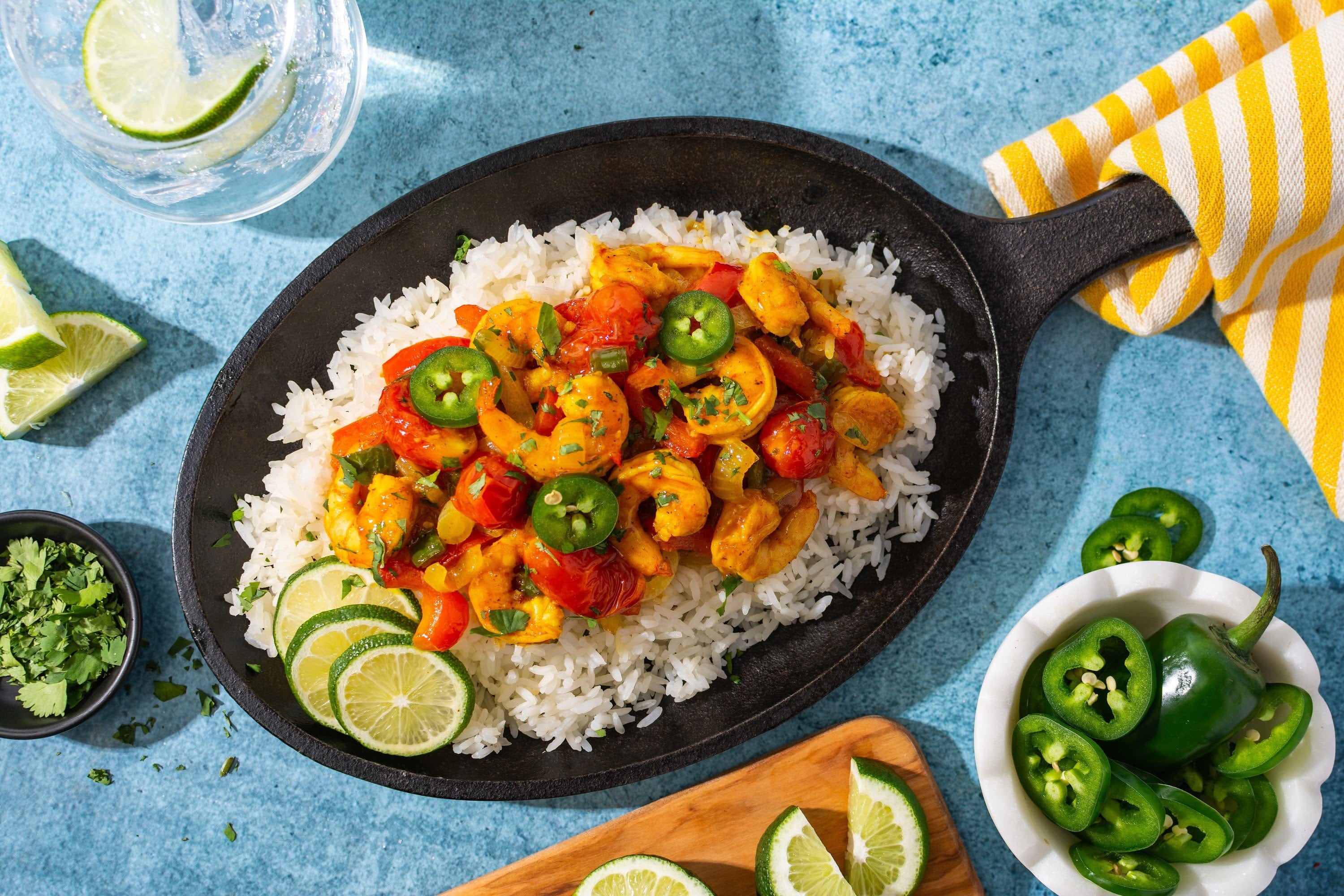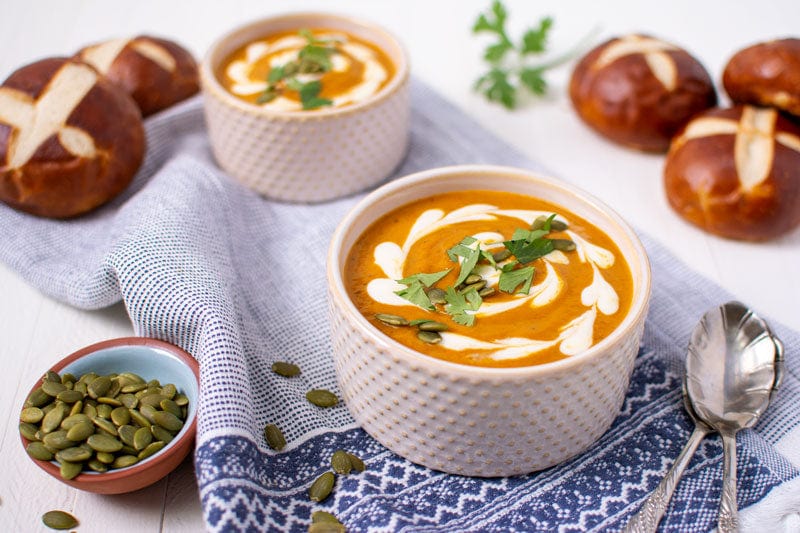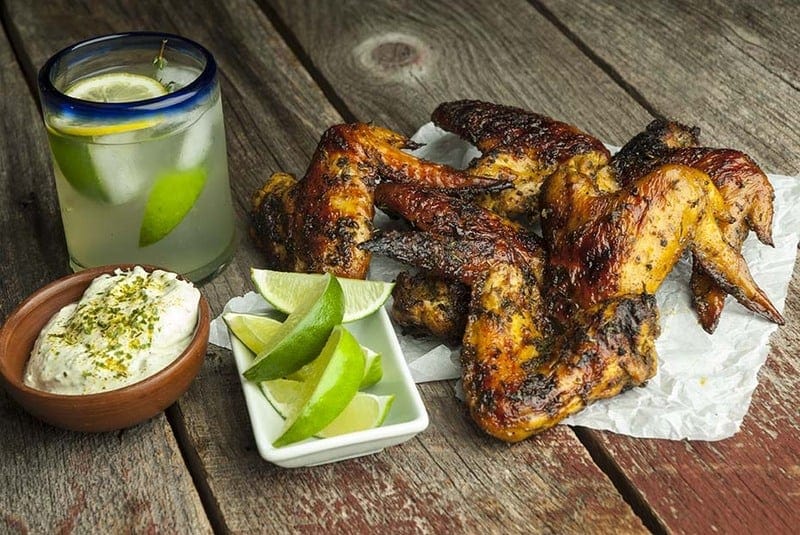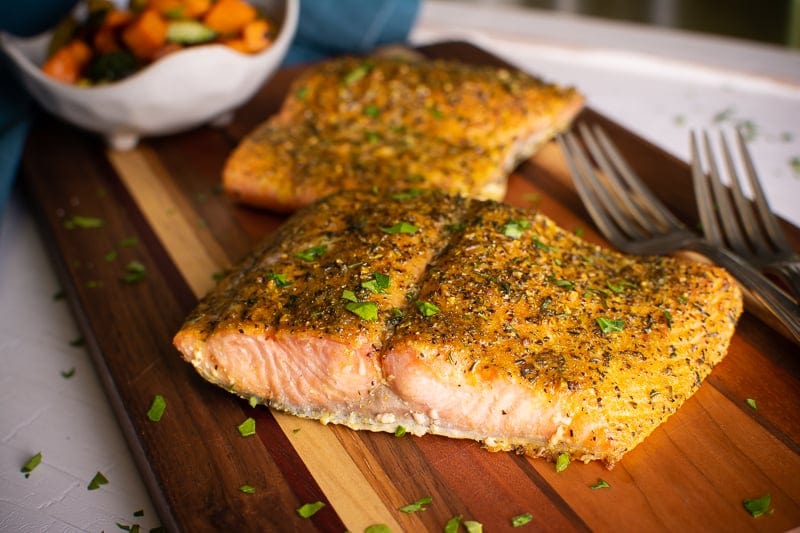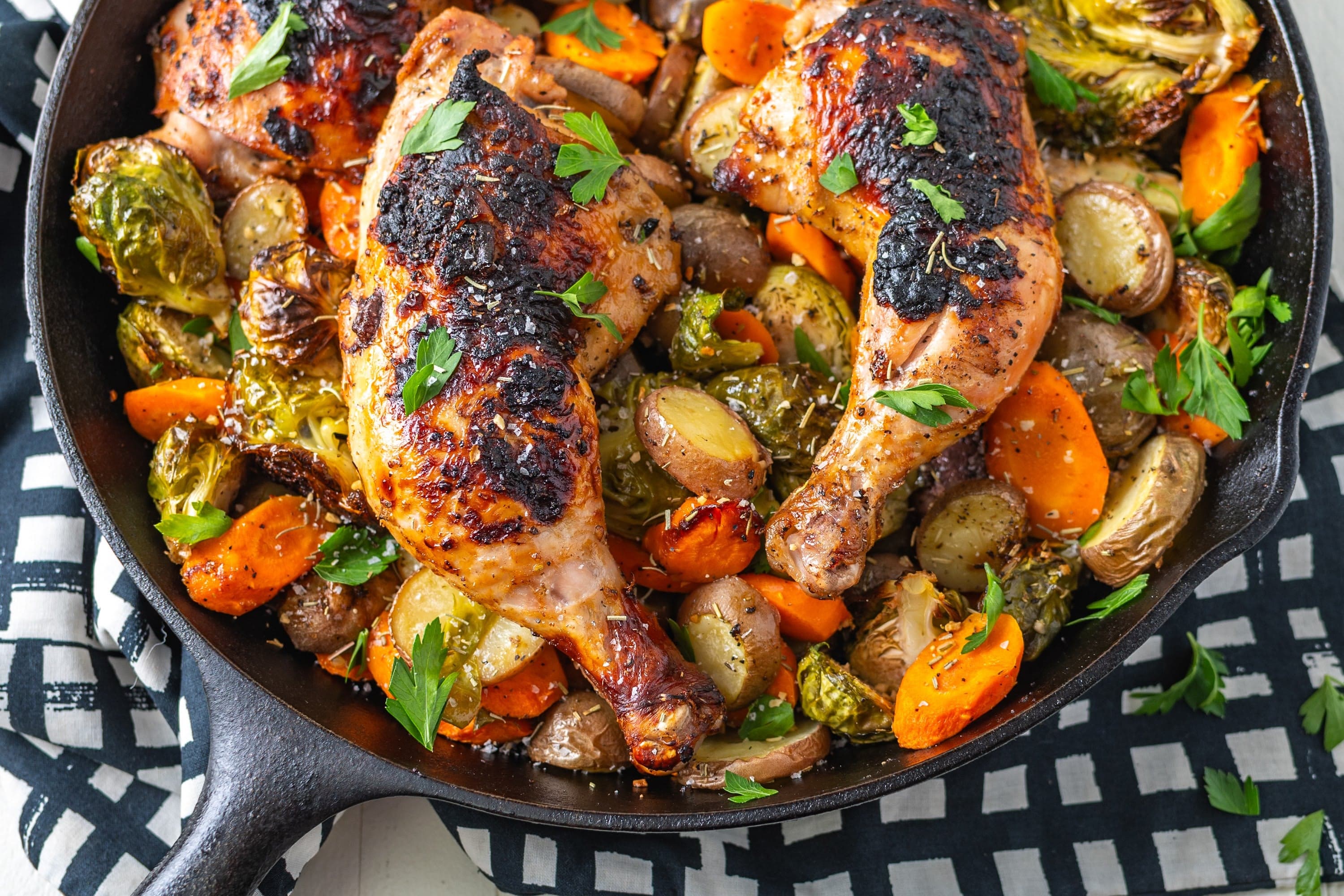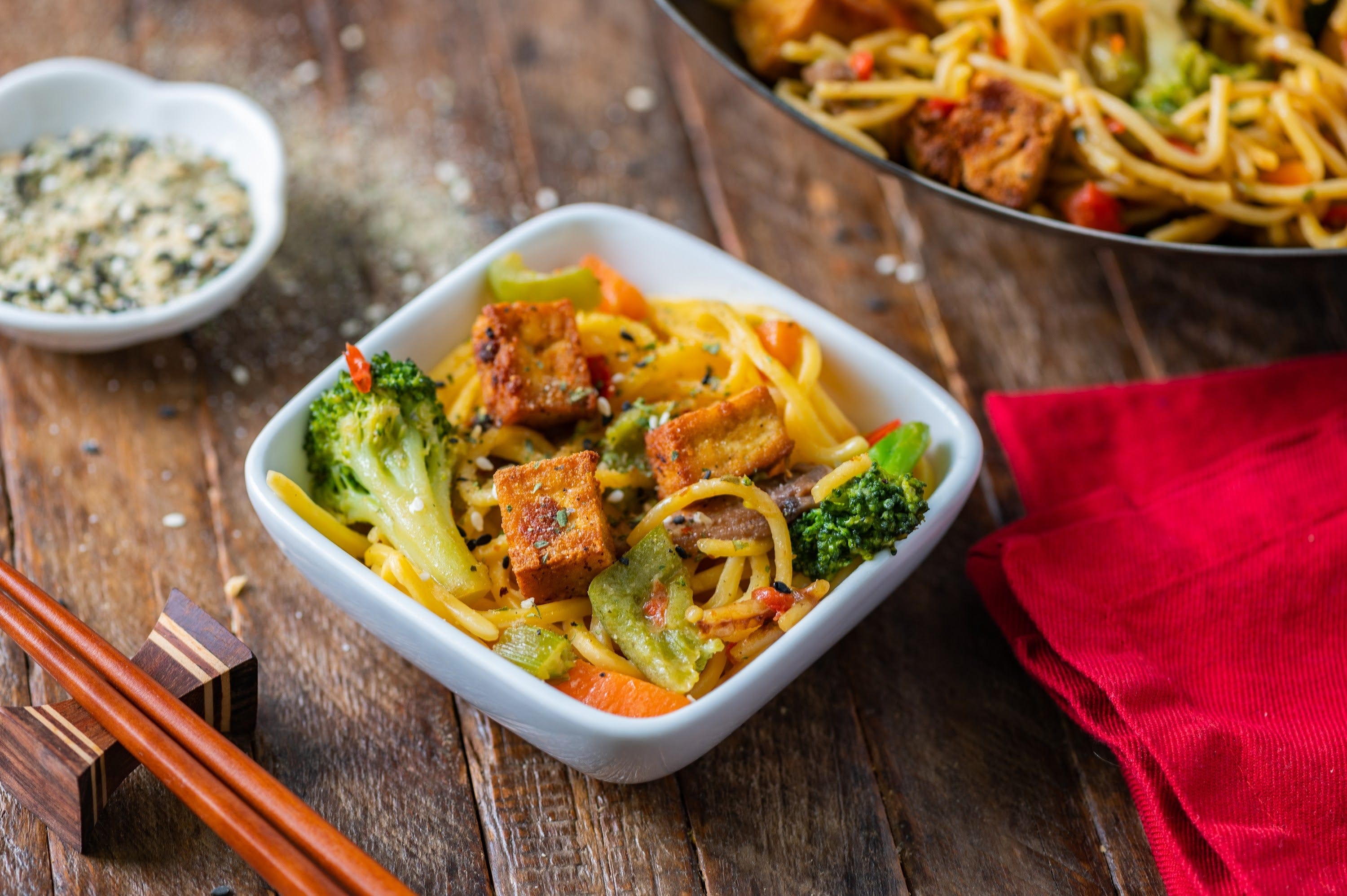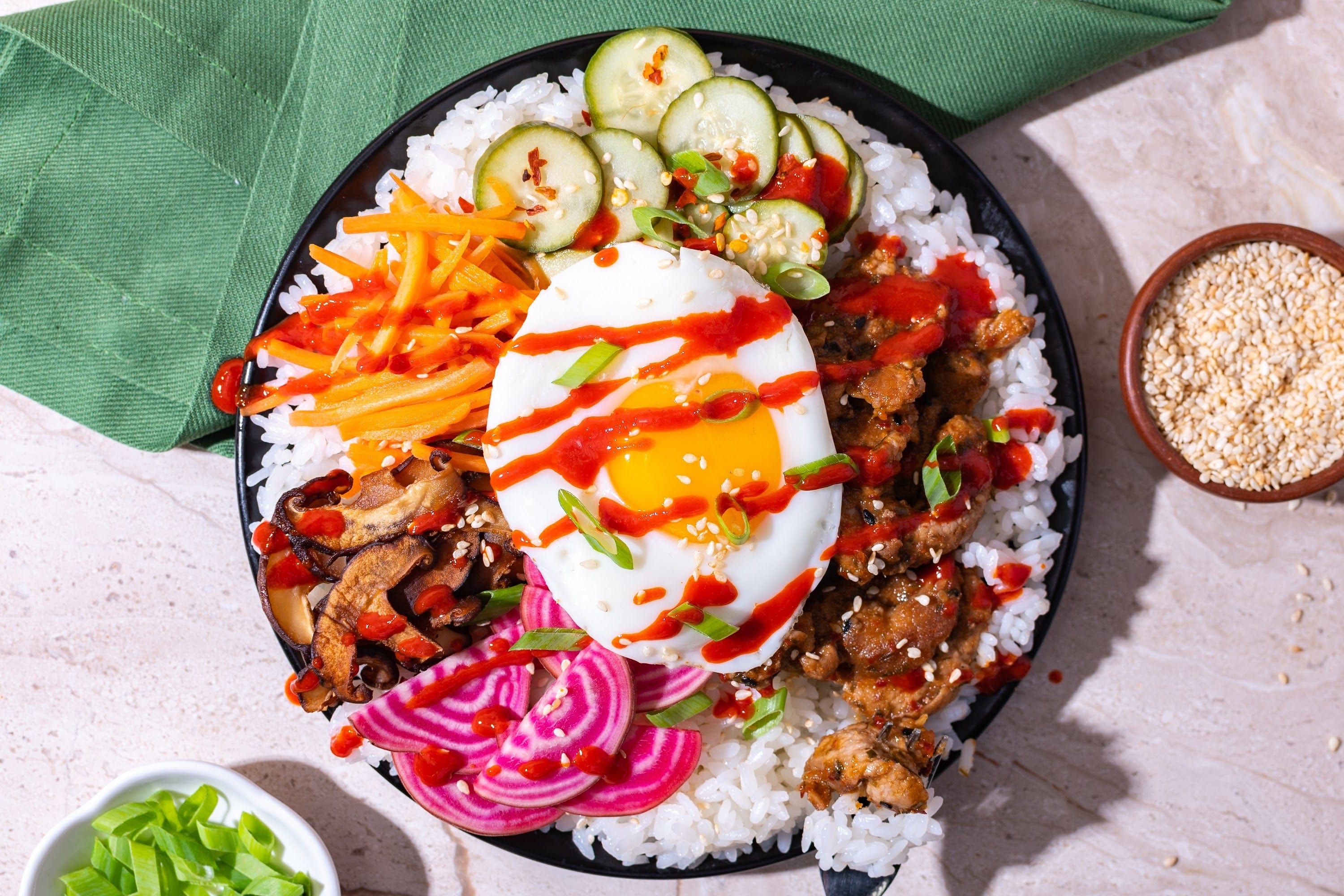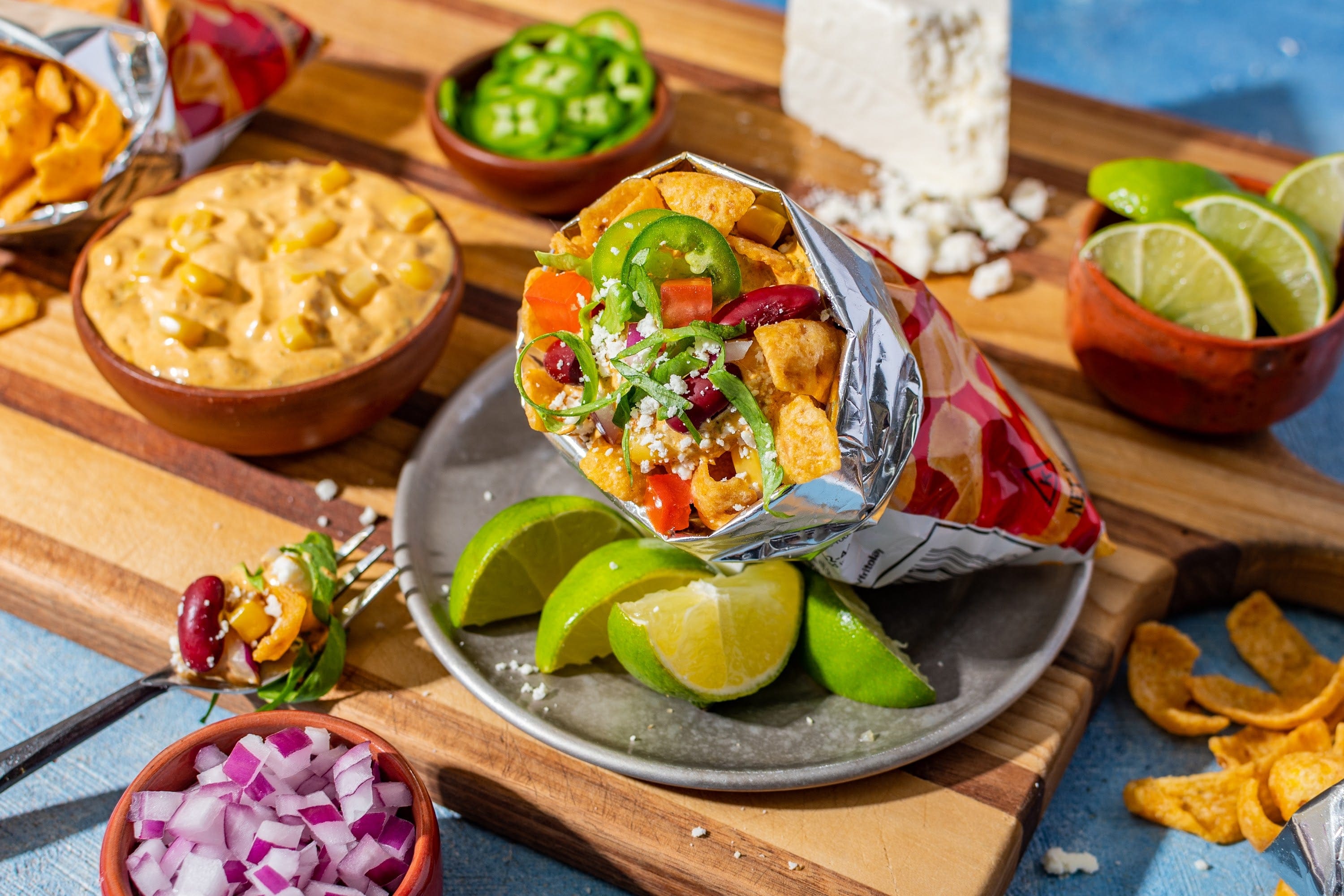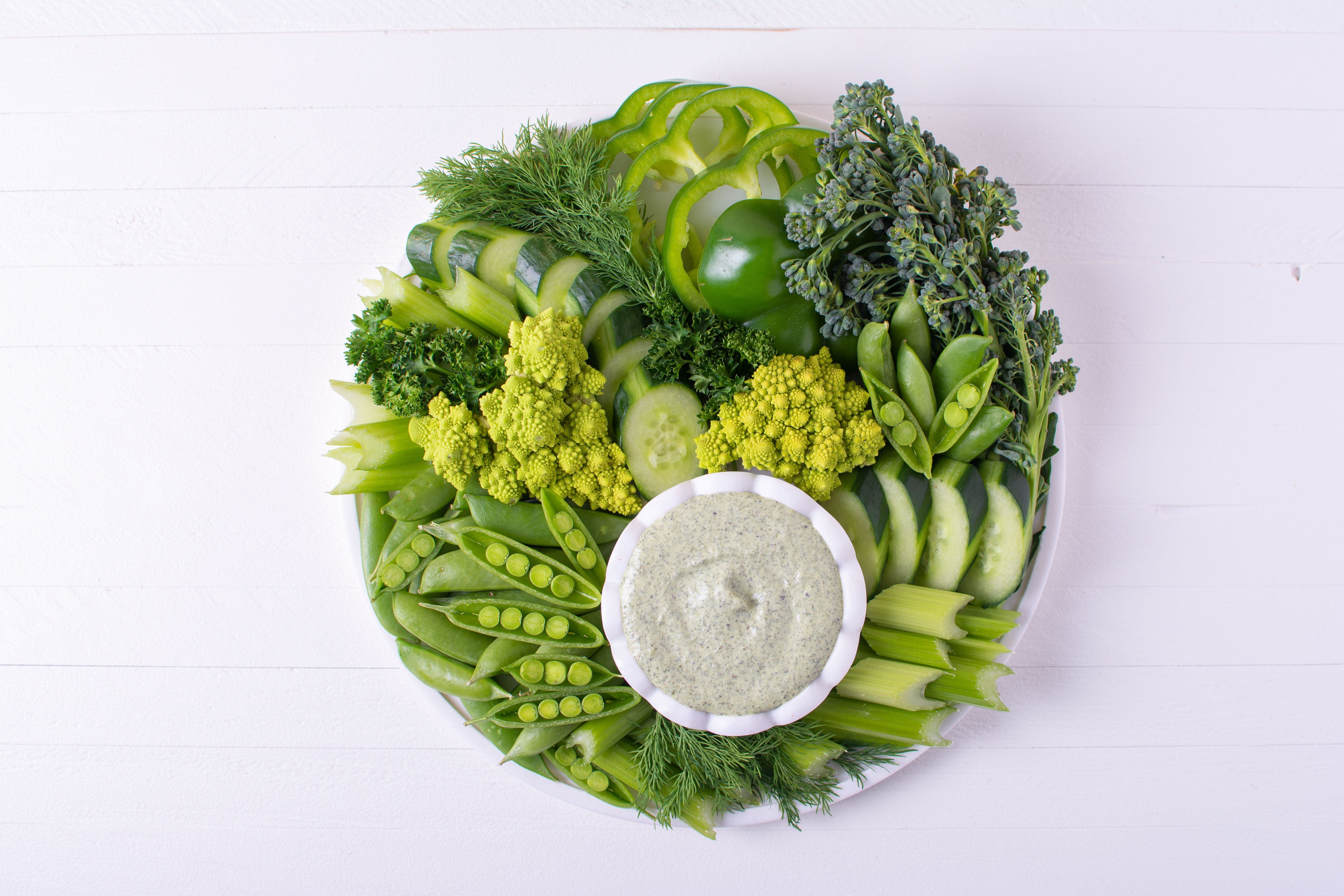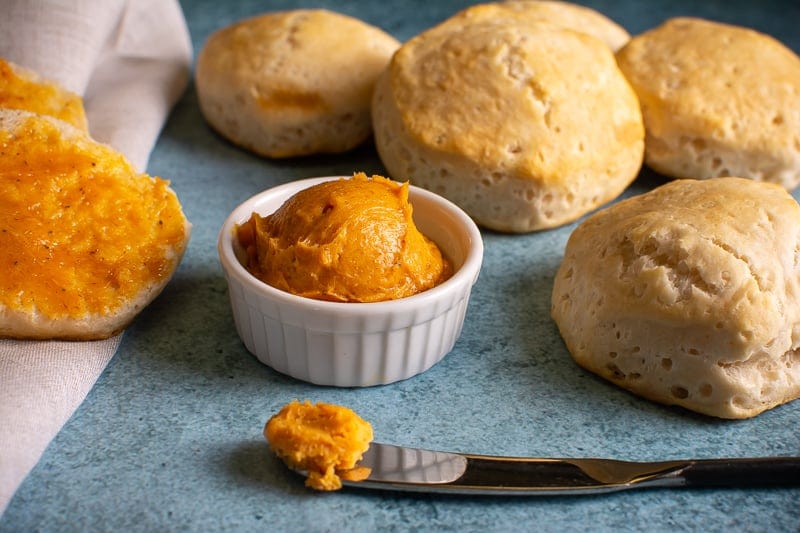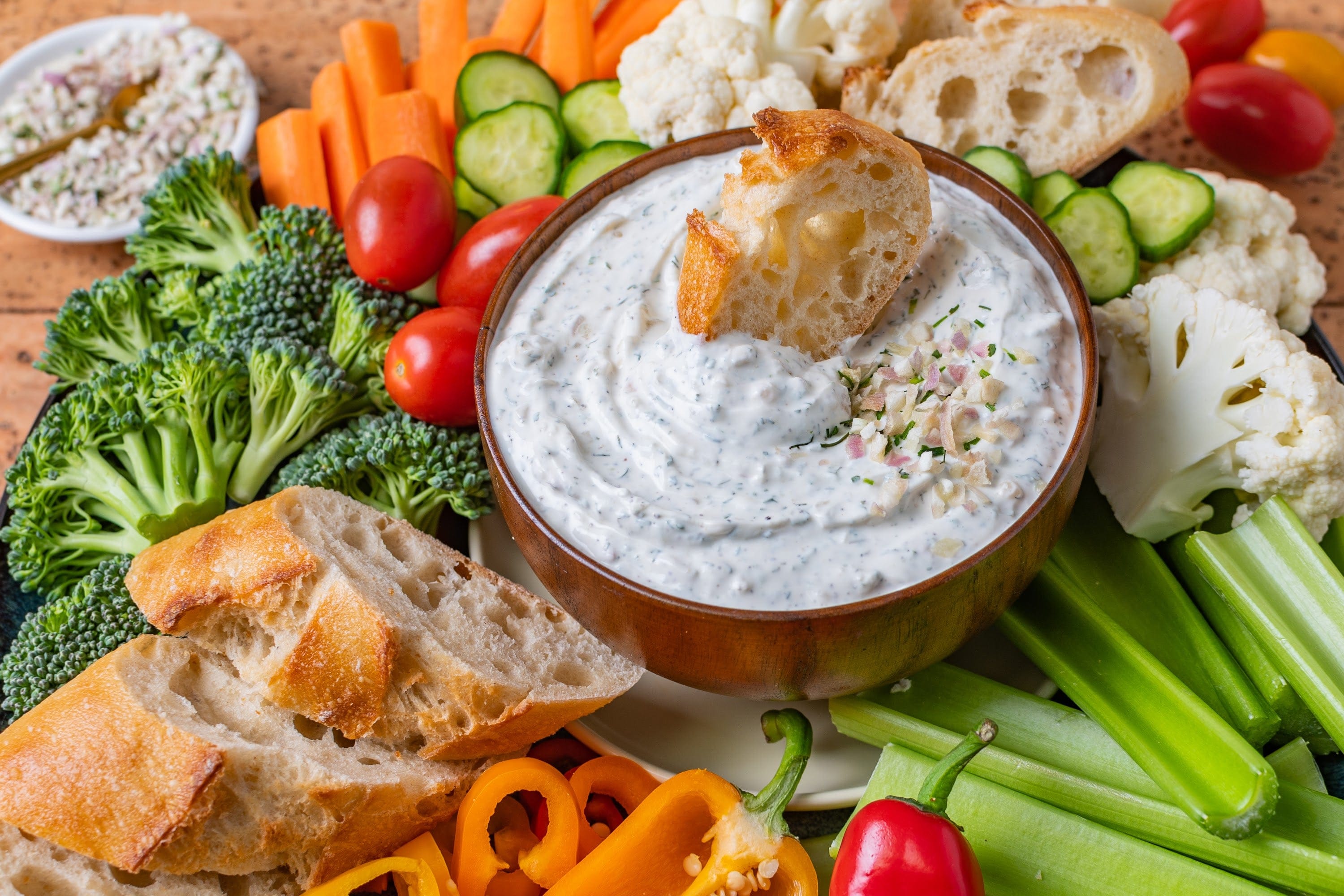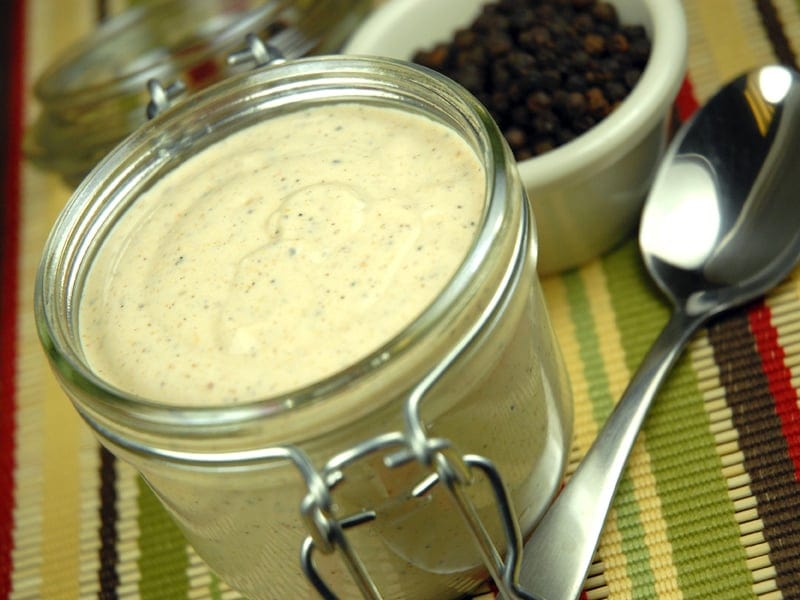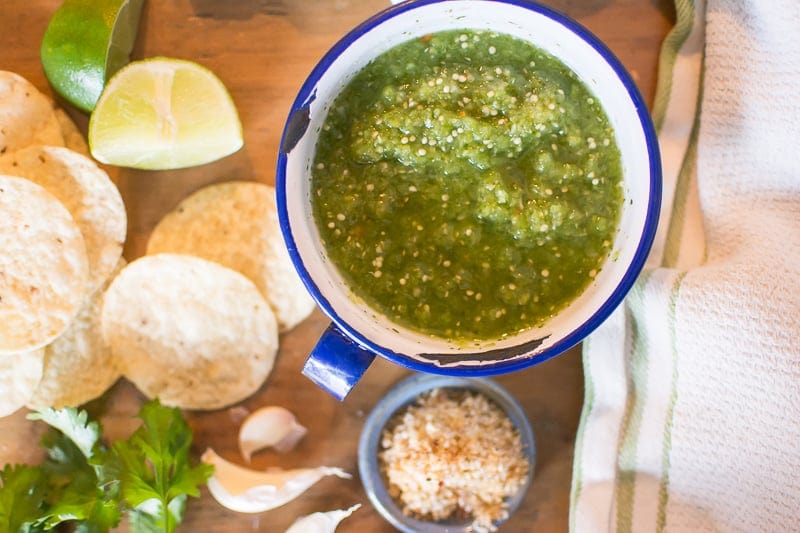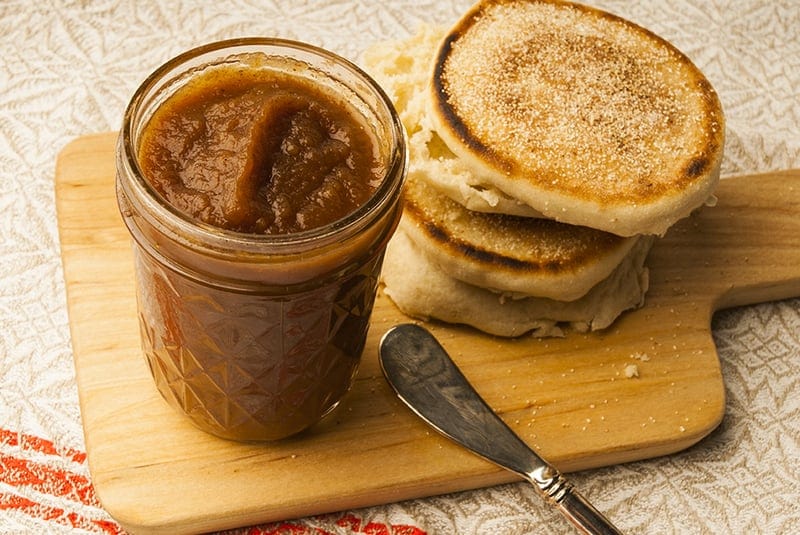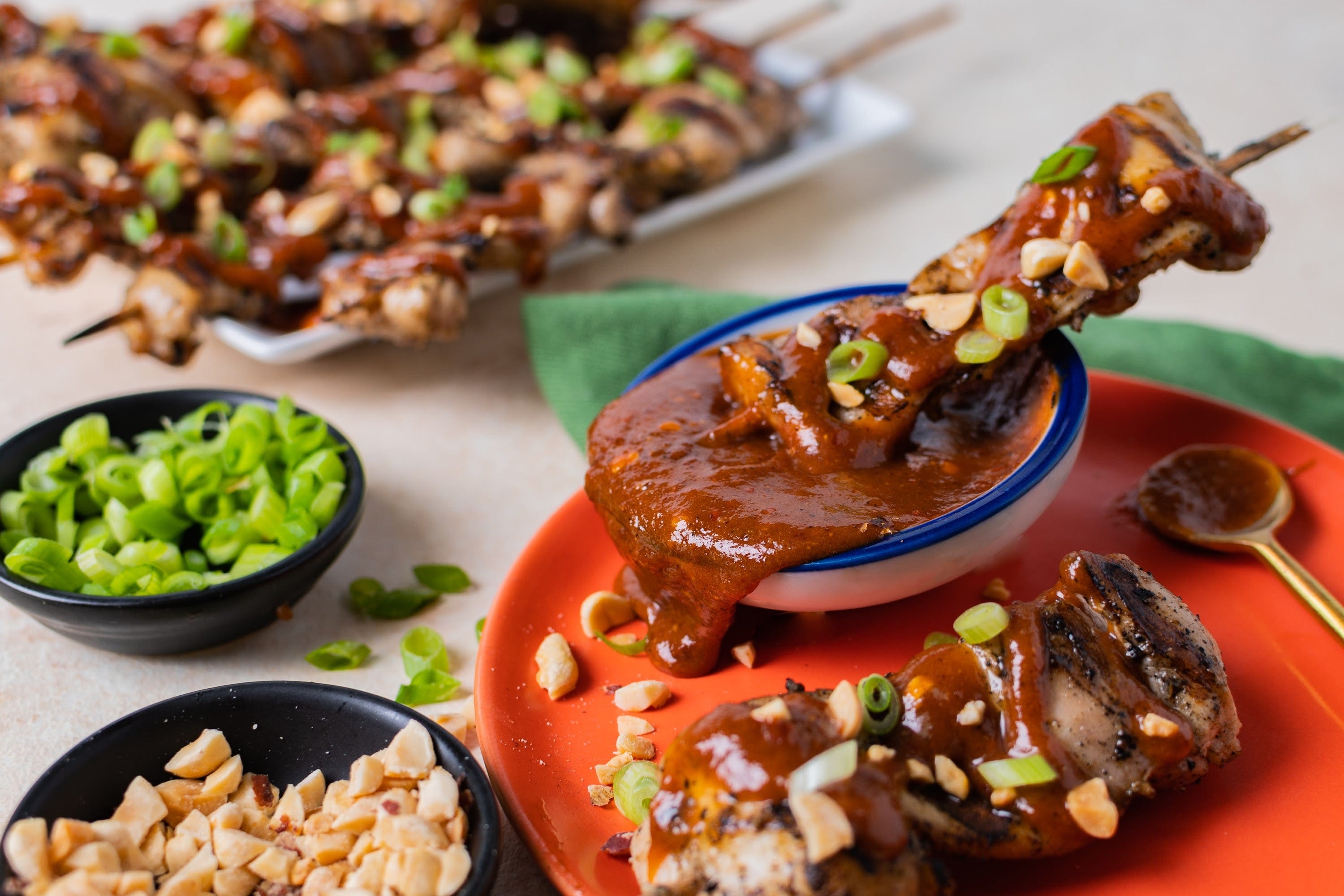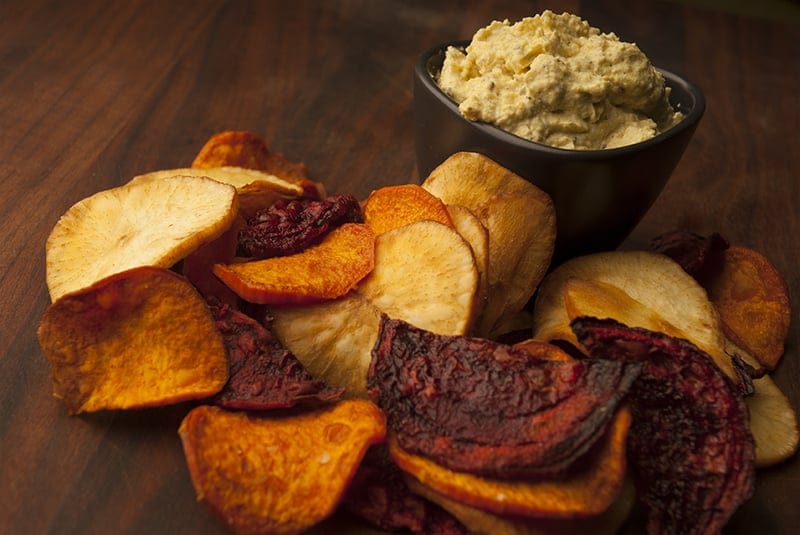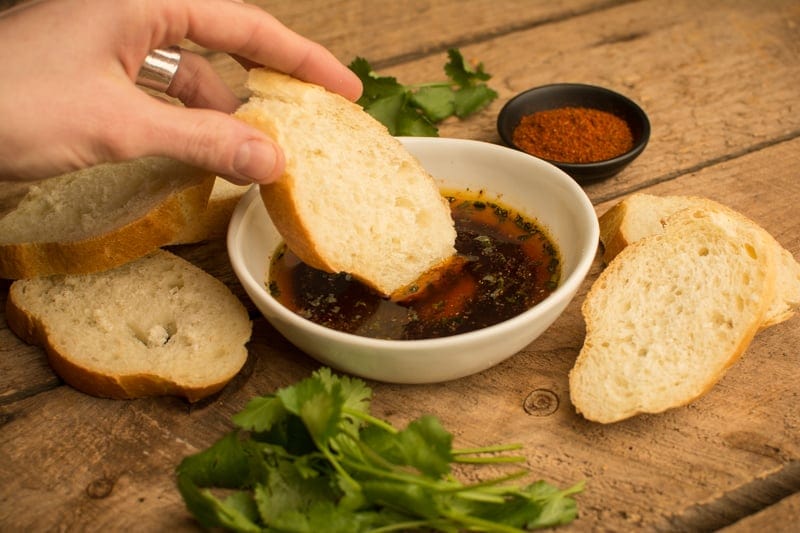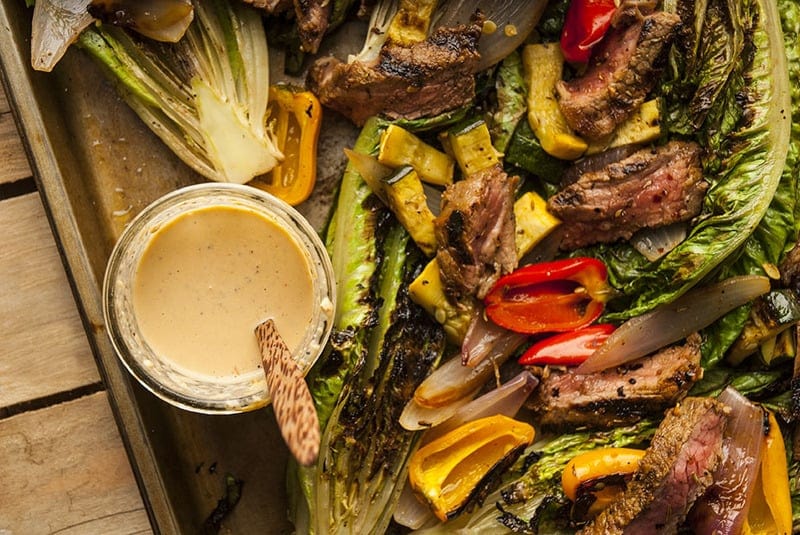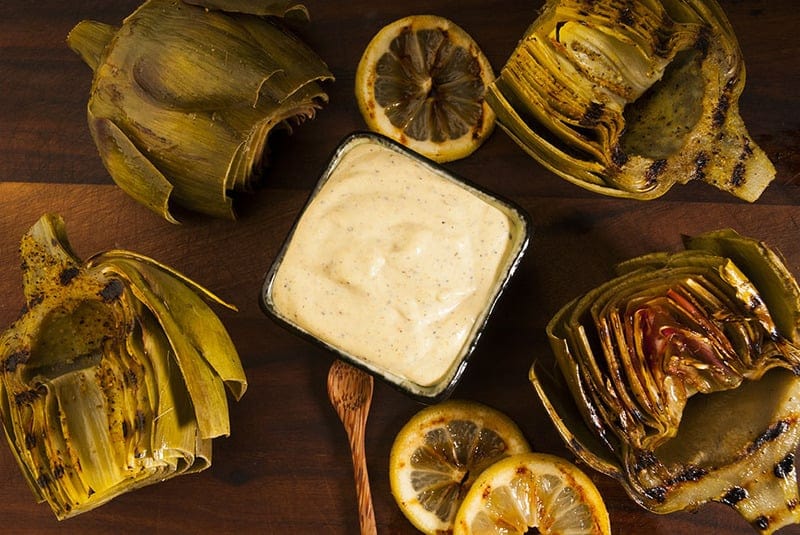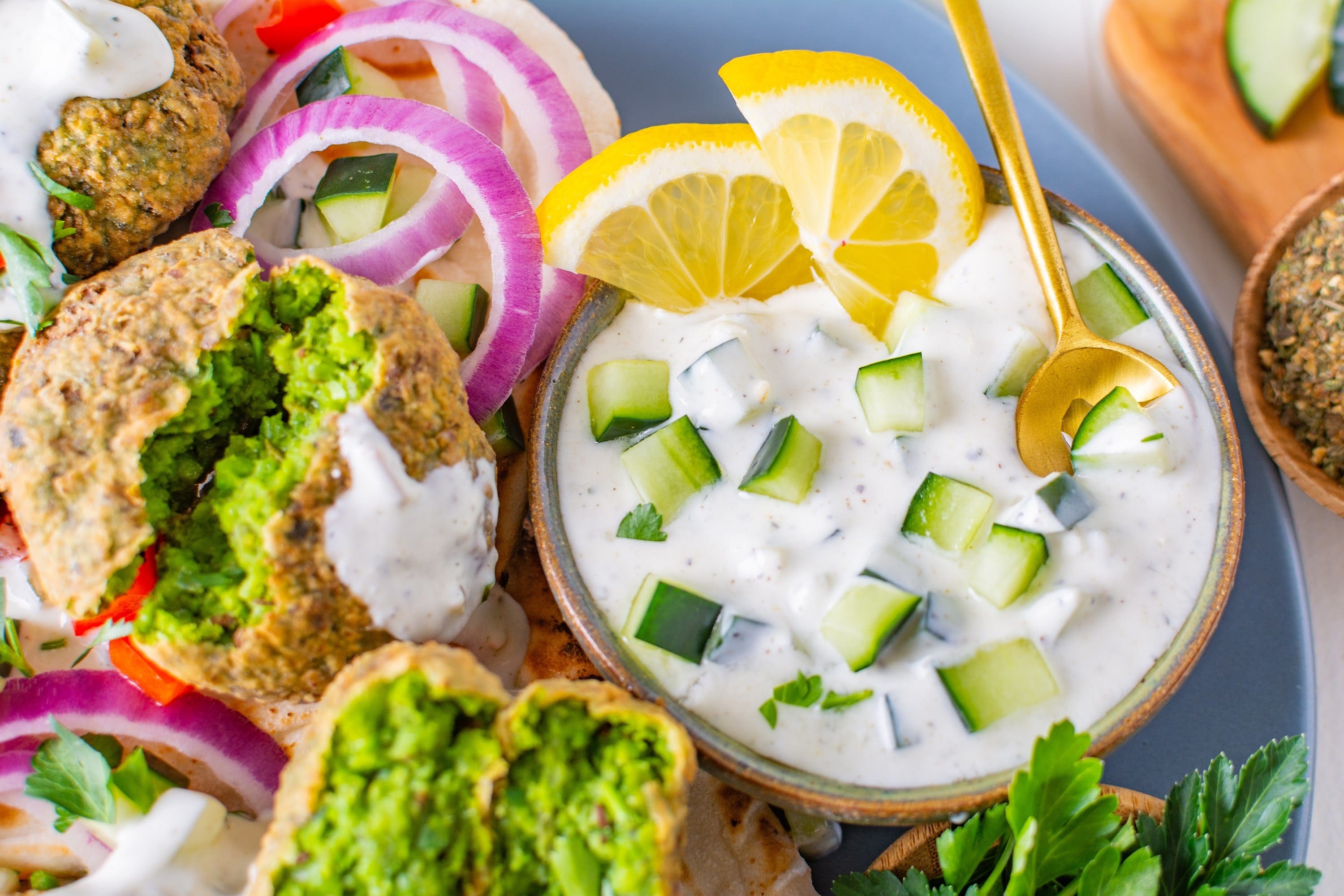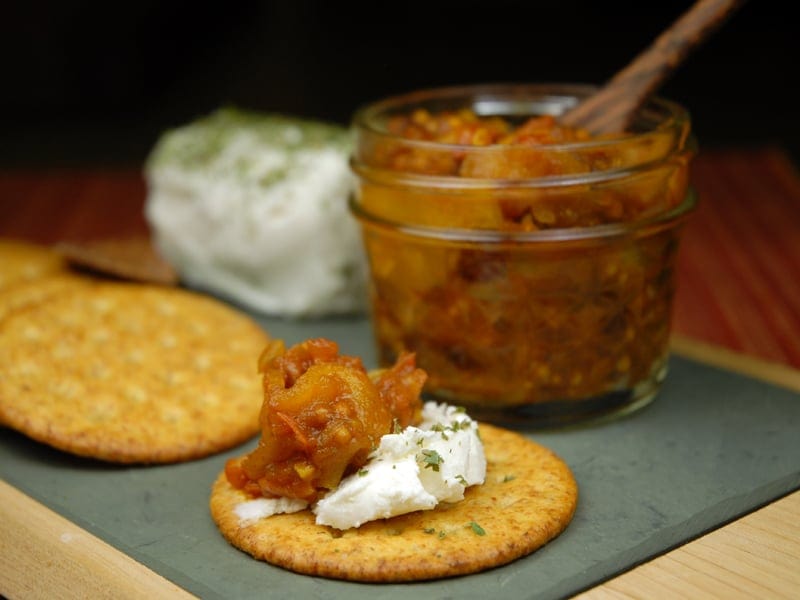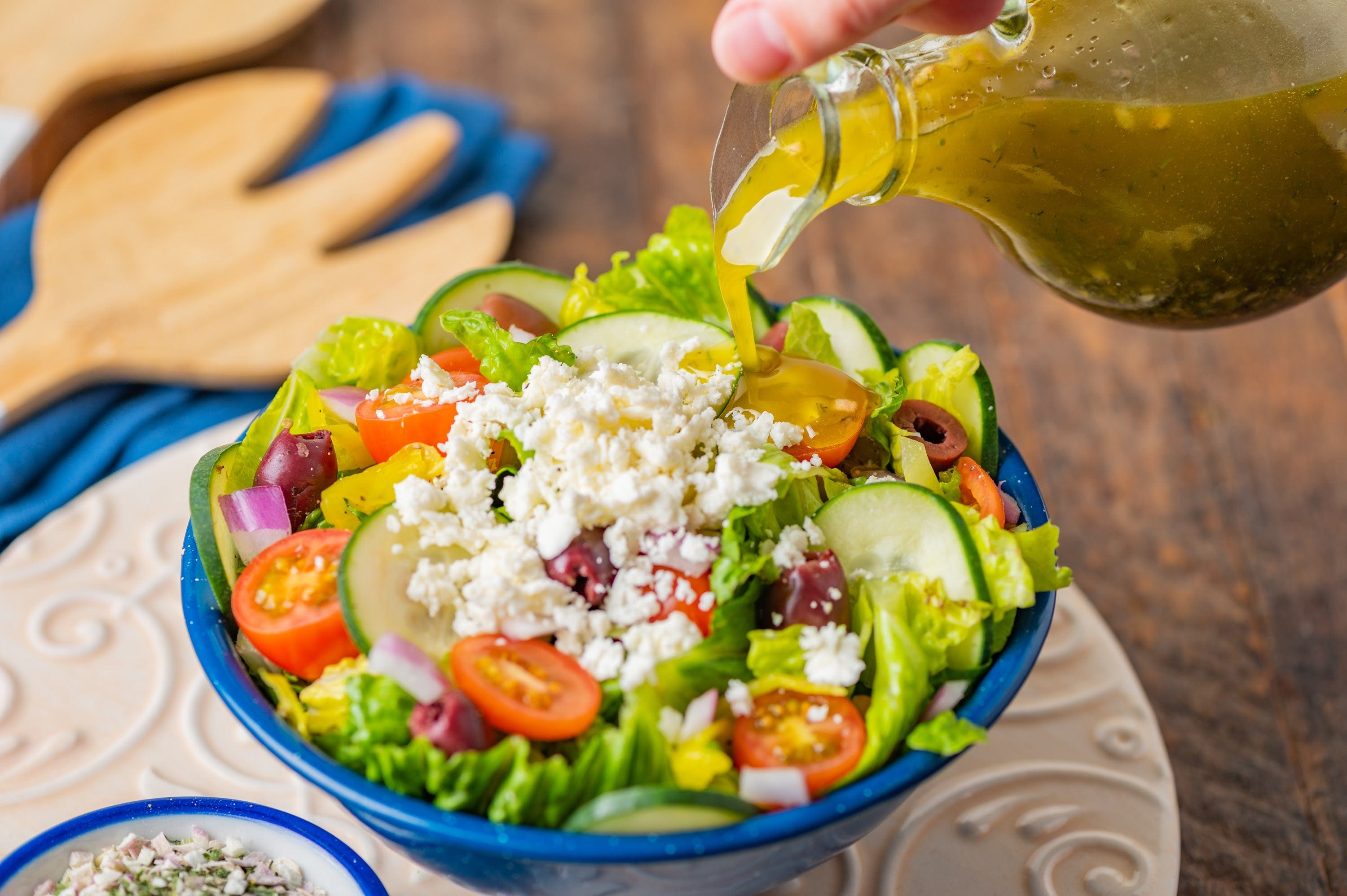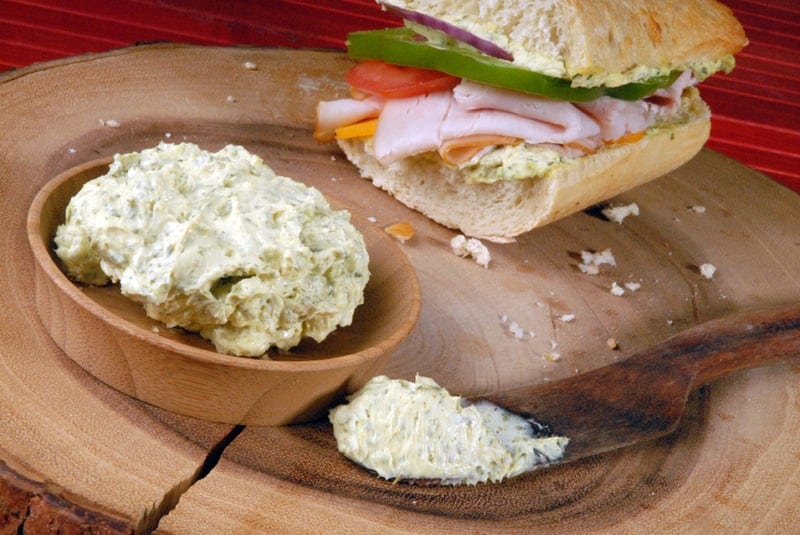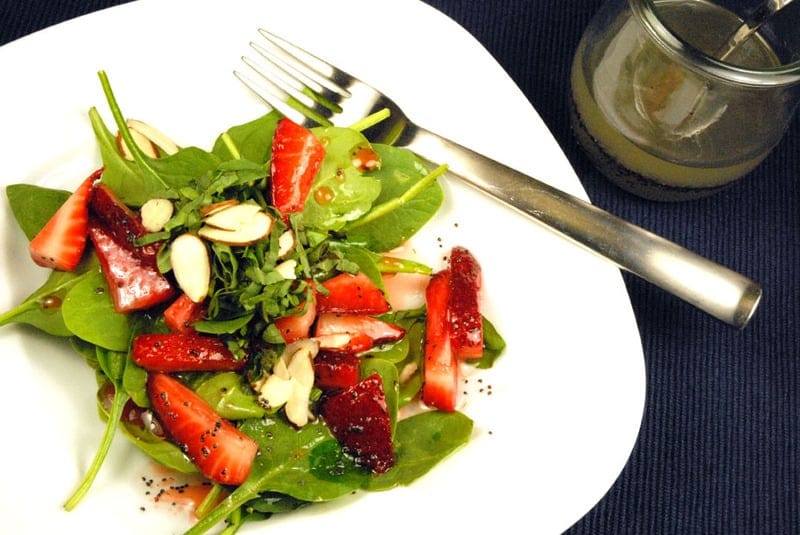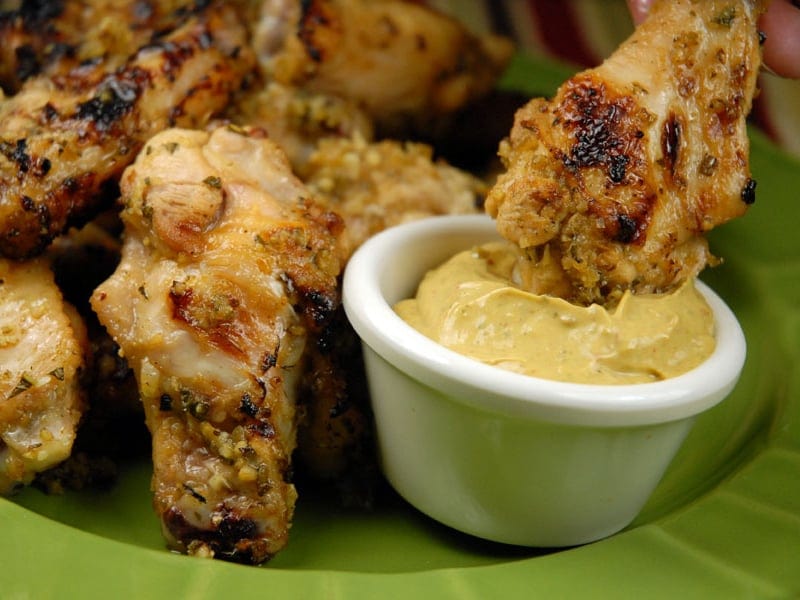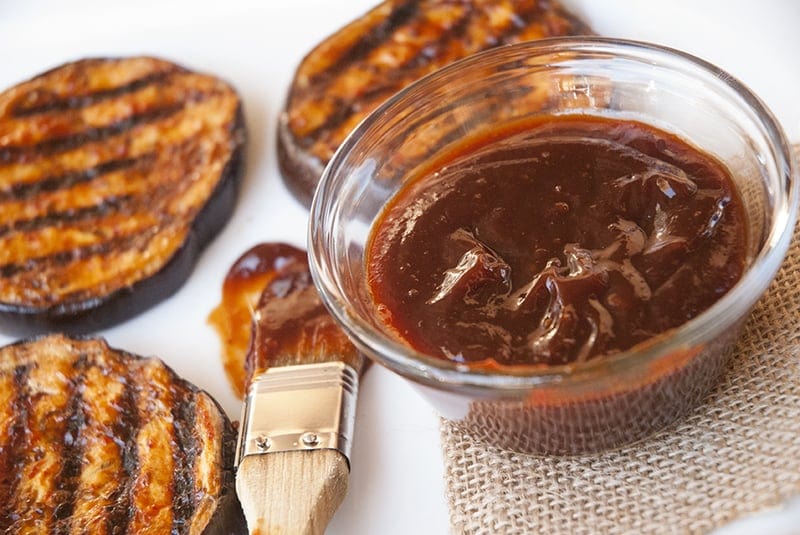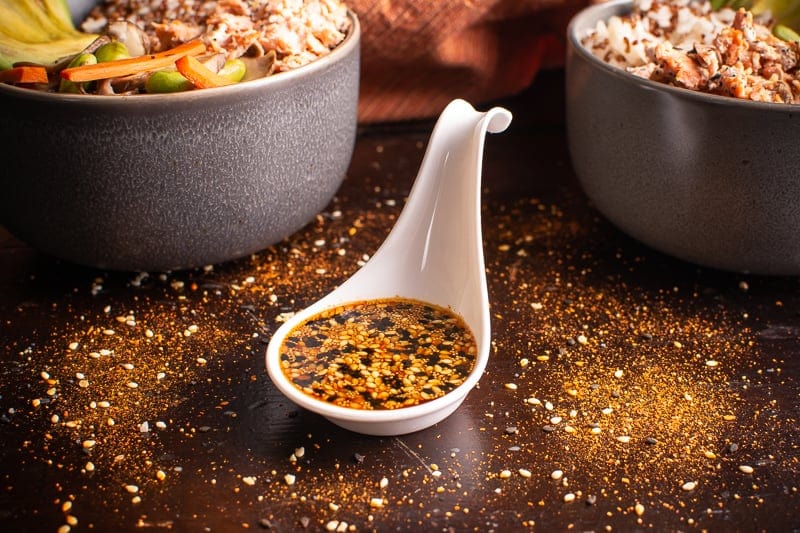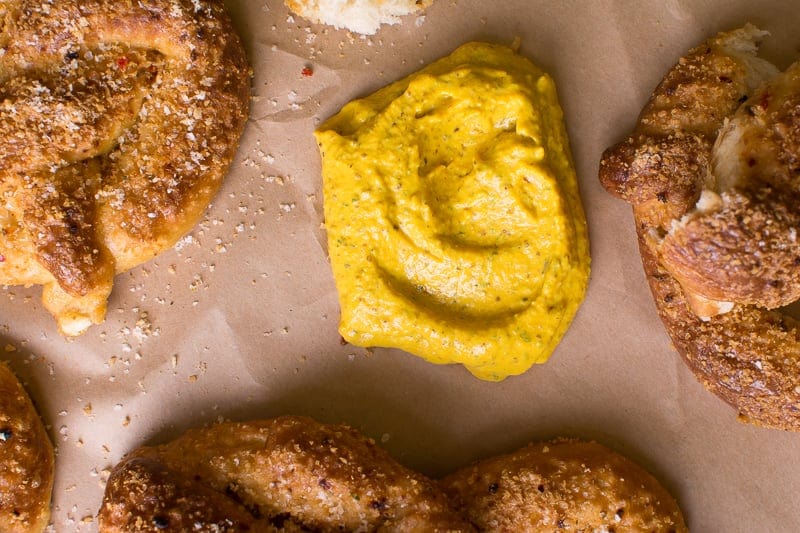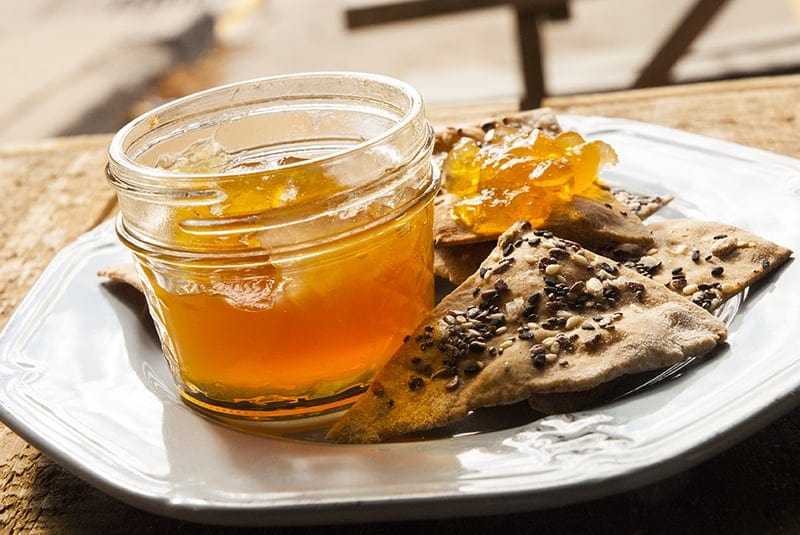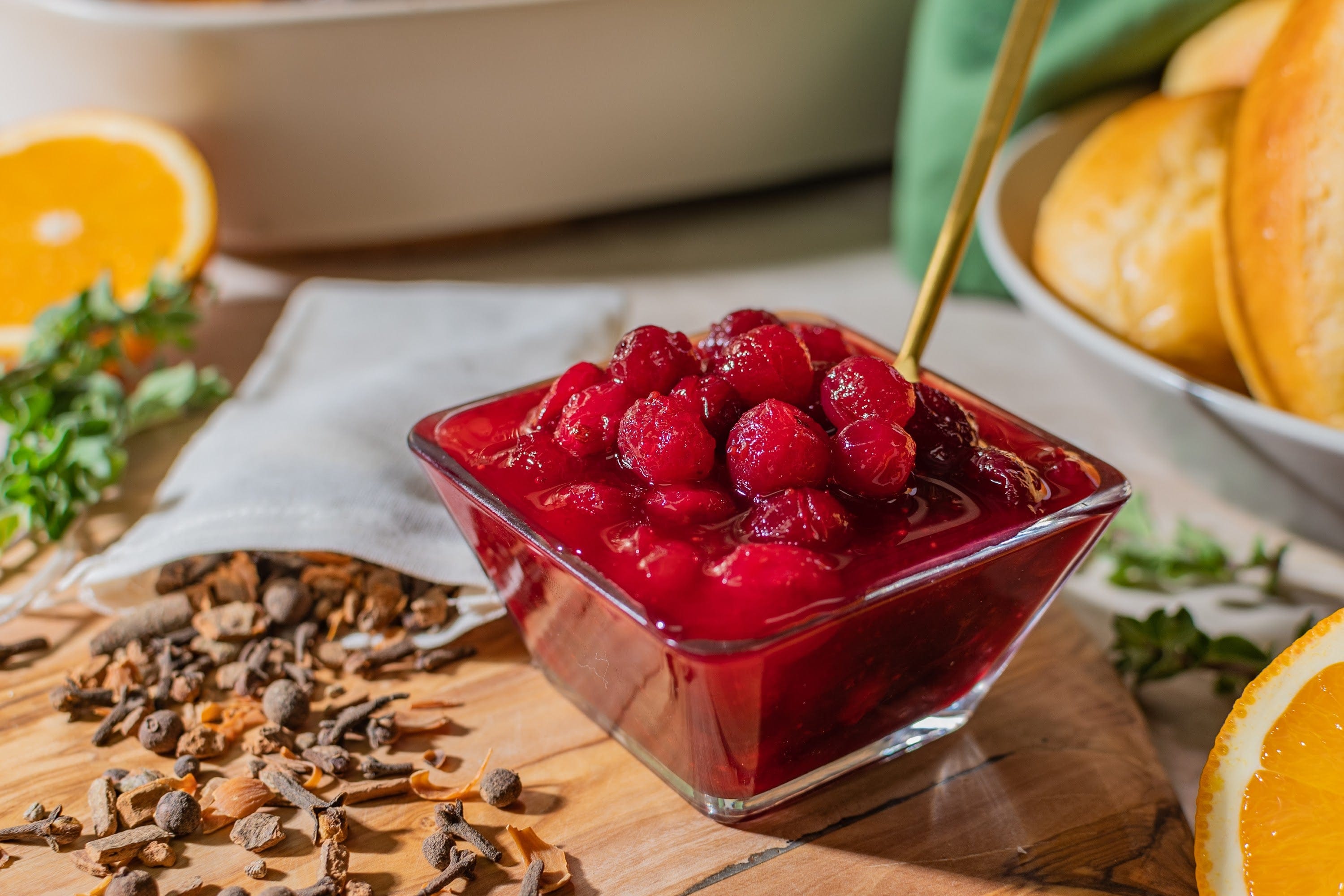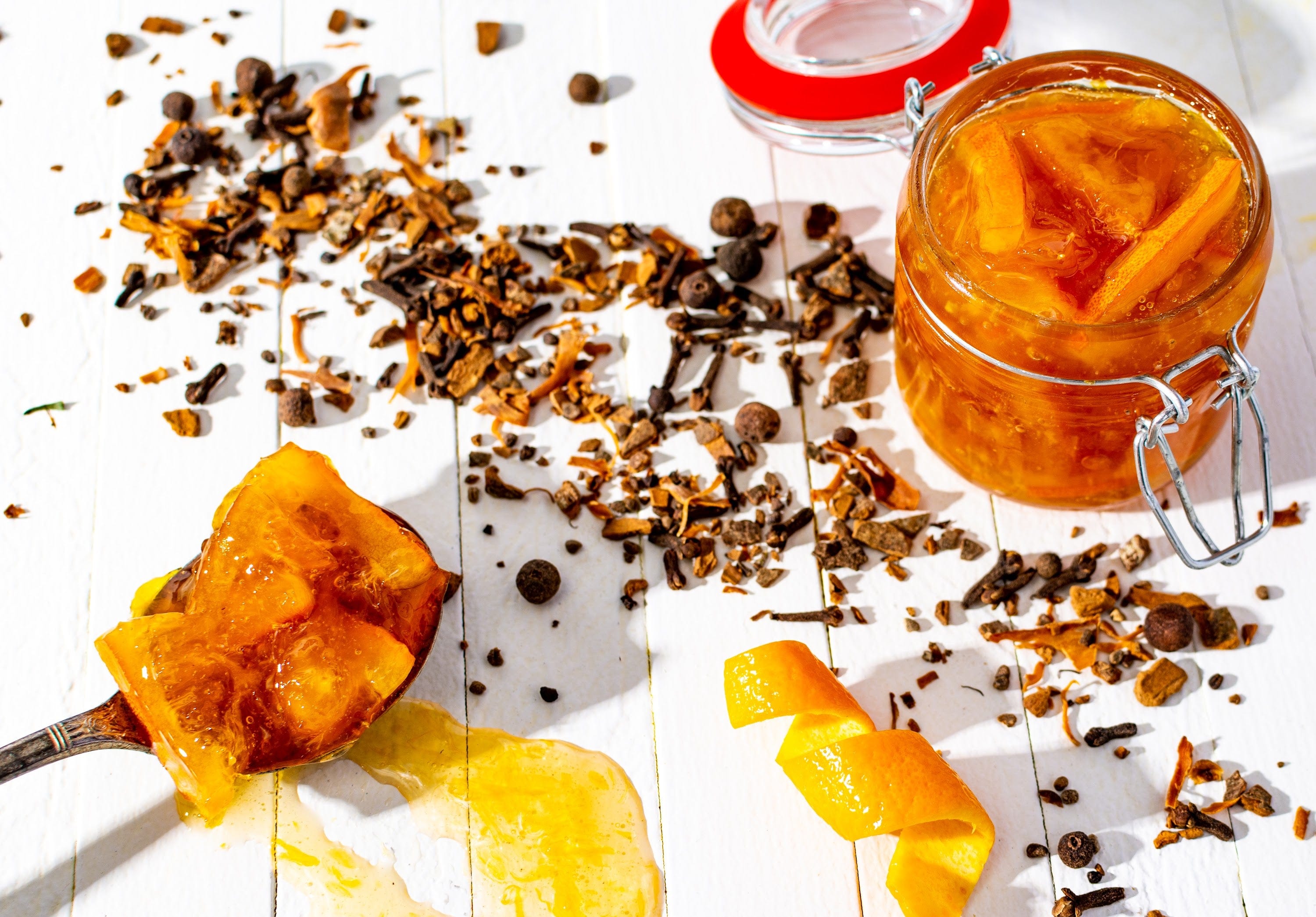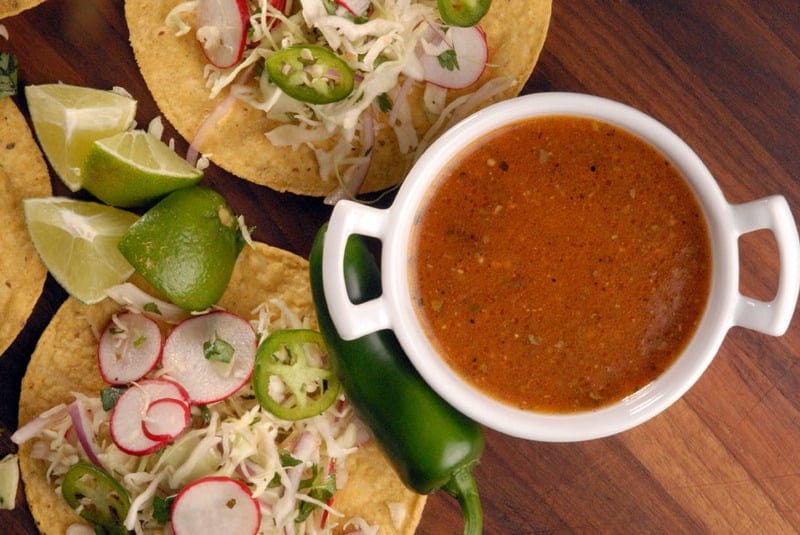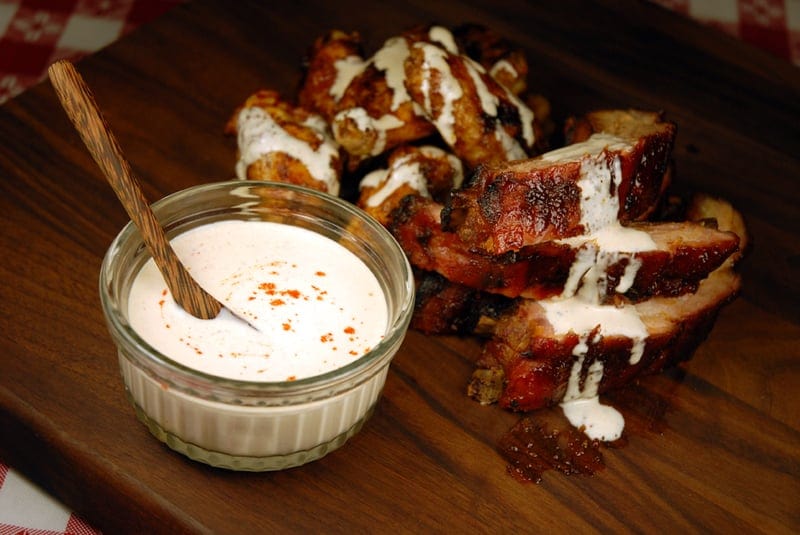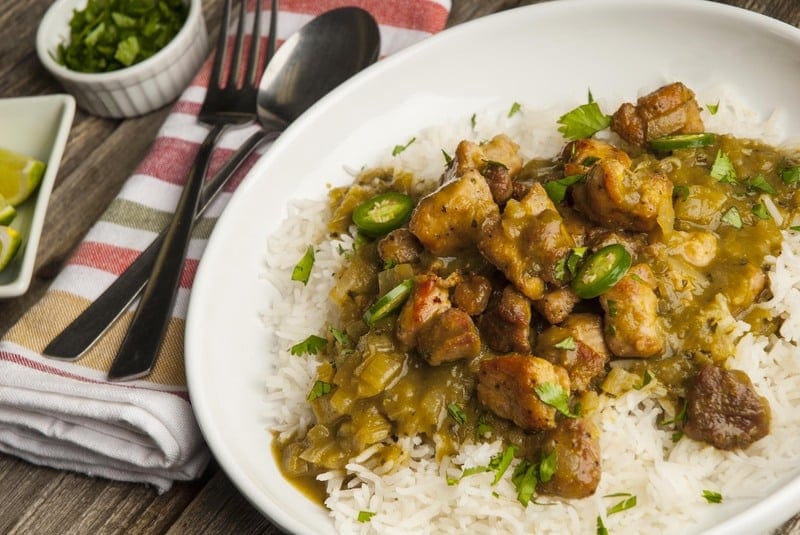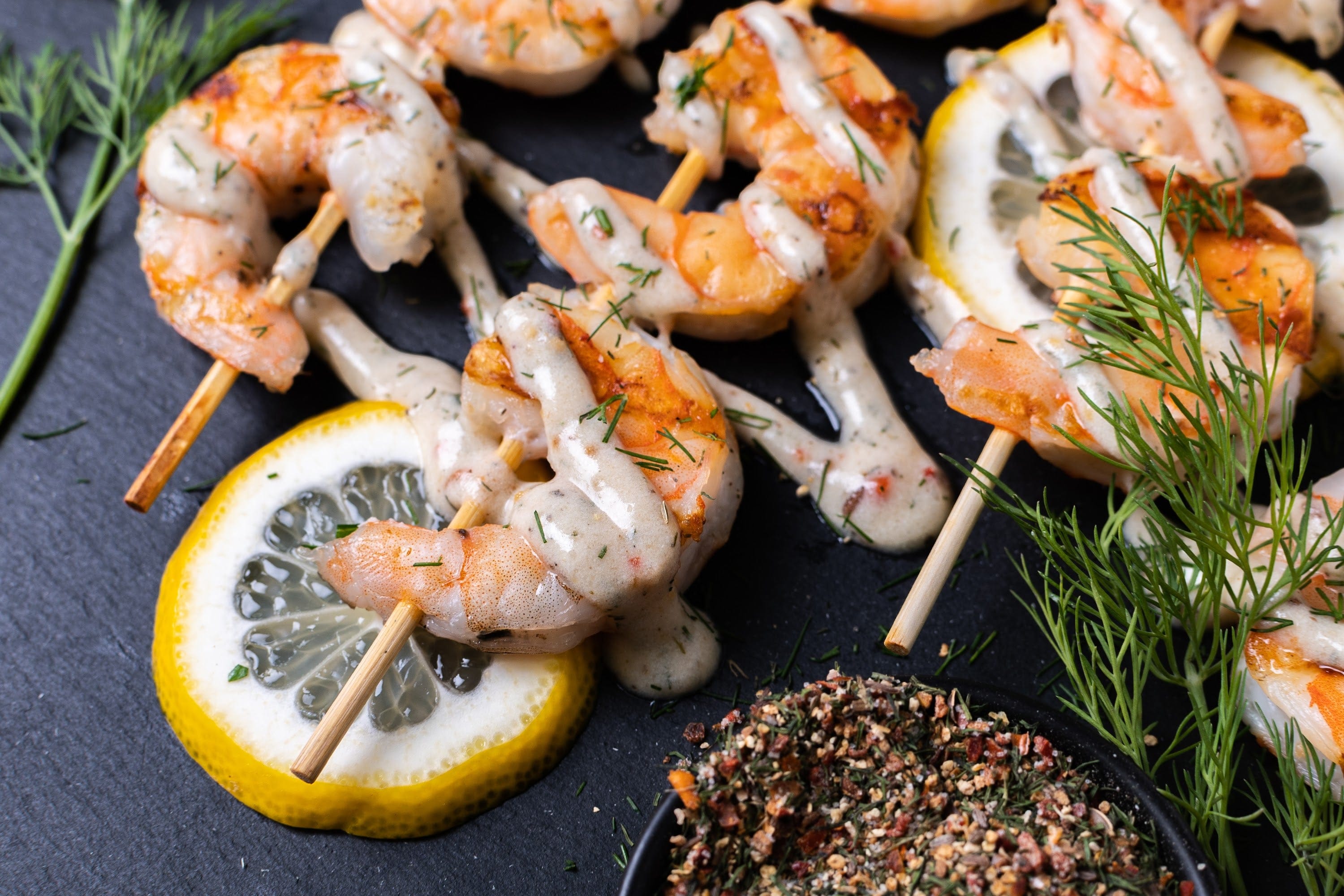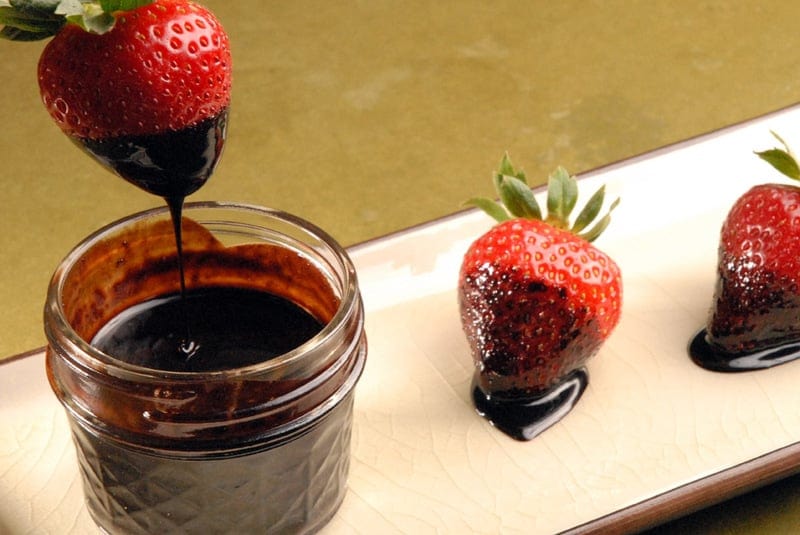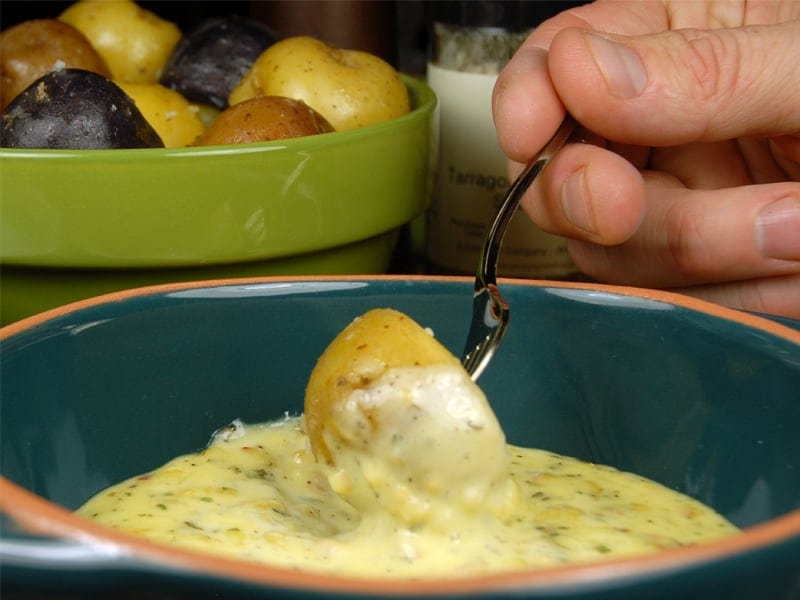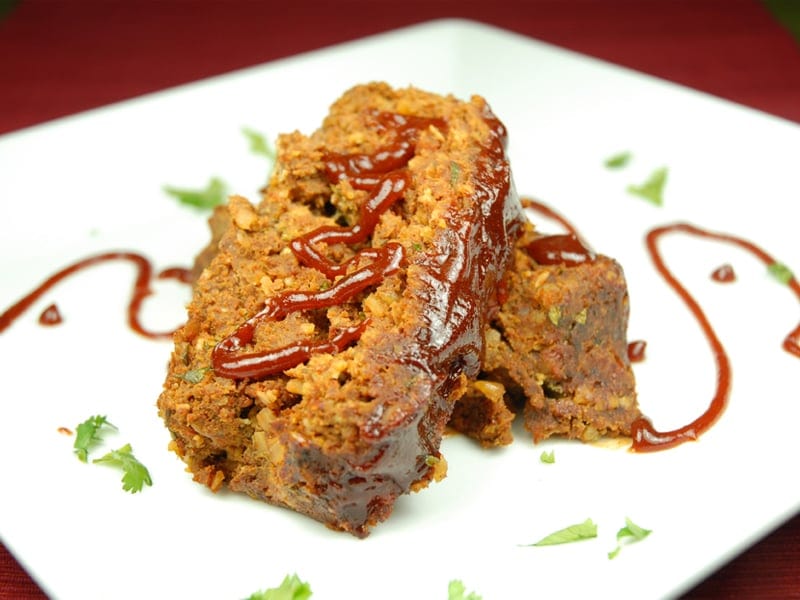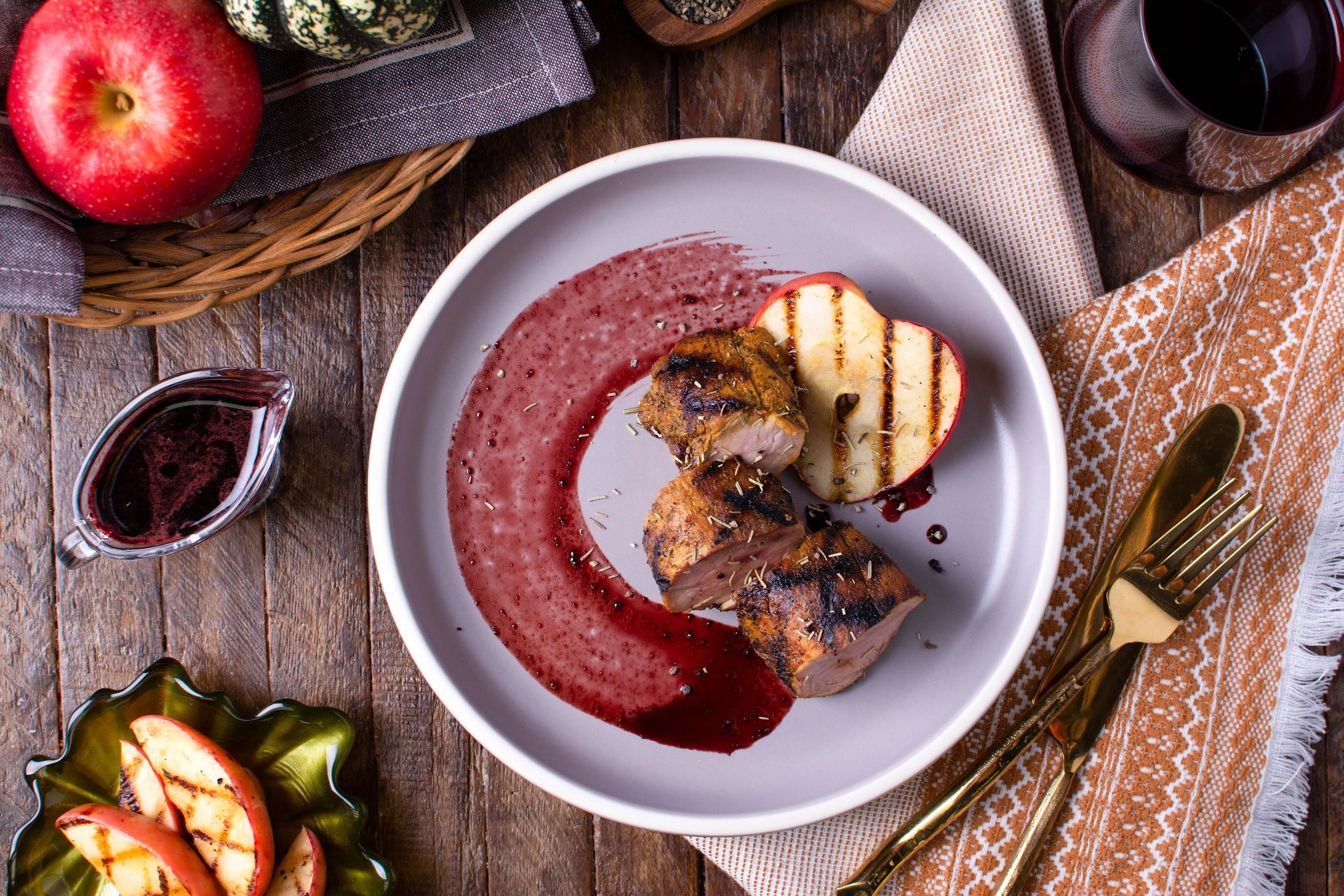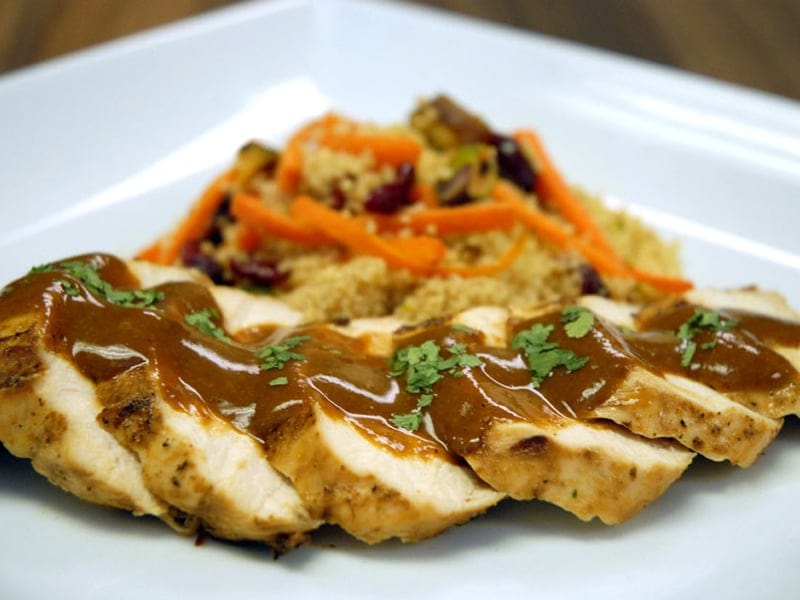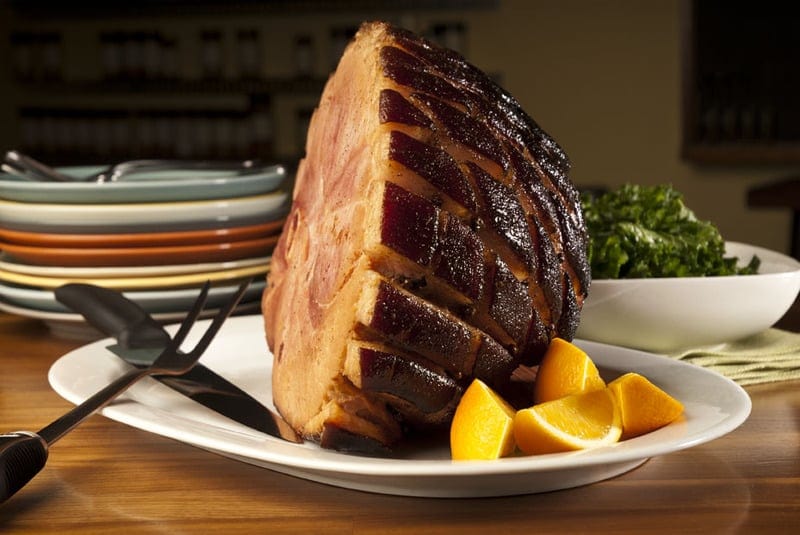Transform your favorite salad into an easy and delicious meal. Made fresh with baked chicken, crispy lettuce, and a creamy Caesar sauce, this wrap is perfect for busy days when you need a quick and satisfying lunch.
This quick and easy viral snack recipe will satisfy your sweet tooth with frozen layers of crunchy chocolate, sticky peanut butter, sweet strawberries, and creamy bananas. A sprinkle of your favorite flaky salt creates the perfect balance of flavor to take snack time to the next level.
Strawberries dipped in a chocolate coating, ready for a sprinkling of your favorite salt or sugar to garnish!
An impressive, festive bread for any occasion that's secretly simple to make. Pure Orange Extract and sweet Cinnamon Sugar give it layers of nostalgic flavor and a finishing sprinkle of powdered sugar gives it a seasonal, snow-kissed look.
Known as haldi doodh in hindi, our spin on this vivid, comforting, restorative Indian drink combines our chai spice seasoning with turmeric, ginger, and black pepper for a well-rounded, sweet-spiced beverage that can be enjoyed any time of year.
This warm, comforting, family-friendly classic is elevated with a sprinkle of our Black Truffle Parmesan seasoning. Use your favorite bread, cheese, and apple varieties to customize fall's favorite sandwich.
Everyone's favorite lunchbox treat turned fall! Classic crispy rice treats come together quickly and get a fall makeover with pumpkin puree and Pumpkin Pie Spice.
A deliciously moist cake topped with a nutty crumble. Best enjoyed with hot tea on a cool Autumn evening.
Sweet and tangy sauerkraut is a versatile condiment for sausages, sandwiches, and so much more. Mustard, Coriander, and Poppy Seeds add bold flavor and texture to this fun and easy-to-make fermented cabbage.
Limnos Lamb Rub brings warm, robust spices and cool, refreshing spearmint into this traditional Mexican meatball soup, resulting in a crisp yet cozy dish perfect for autumn evenings.
This crowd-pleasing plate couldn't be easier to put together. Hot, salty fries seasoned with Italian black truffles and topped with fresh Parmesan go with just about anything. Serve as a side for burgers or BLTs, or eat a basket on its own.
Quick, easy, and packed full of black truffle flavor, this truffle pesto recipe is the perfect way to celebrate all that fresh basil available in the summer. Try as a sauce for pasta, chicken, or fish, or as a dressing for a simple salad.
Deliciously cheesy and delightfully truffle-y, this recipe elevates classic and comforting homemade mac & cheese without any extra work. Our Black Truffle Parmesan Seasoning adds layers of umami, cheesy goodness to both the cheese sauce and the breadcrumb topping.
While this spice blend is no longer available to purchase online, this recipe lets you recreate it at home! Perfect for making sauces for any protein, this intensely spicy blend is licoricey and aromatic.
While this spice blend is no longer available to purchase online, this recipe lets you recreate it at home! Perfect for seasoning game meats or any protein, this blend is piney, citrusy, and aromatic.
While this spice blend is no longer available to purchase online, this recipe lets you recreate it at home! Perfect for seasoning ham, this blend is peppery, earthy, and sweet-spiced. Add 1 Tbsp. per pound of ham for a perfectly seasoned holiday meal.
While this spice blend is no longer available to purchase online, this recipe lets you recreate it at home! Perfect for seasoning just about anything, this blend is earthy, aromatic, and peppery. Use 1 to 2 tsp. per pound for meats, or add 1 to 2 tsp. per cup for stews or soups.
While this spice blend is no longer available to purchase online, this recipe lets you recreate it at home! Perfect for seasoning hamburgers, steaks, and pork chops, this blend is salty, oniony, and earthy. Add 3 to 4 tsp. to sour cream for a zesty veggie dip.
This hearty, garlicky potato omelet is quintessential to Spanish cuisine. Super tender potatoes and onions combined with Siesta Key Spanish Sazon-seasoned eggs create a creamy dish perfect as a meal or a snack, any time of day.
Crispy, craggly bites of juicy chicken seasoned with popcorn seasonings make a doubly popcorn-ed chicken delight. Choose your popcorn seasoning adventure for a flavor profile fit for anyone: cheesy and creamy with Creamy Mac & Cheese Popcorn Seasoning, herby and tangy with Garlic Dill Pickle Popcorn Seasoning, or sweet and salty with Frosted Cinnamon Bun Popcorn Seasoning (we promise it's great).
Celebrate juicy summer tomatoes with this simple caprese salad recipe. Layered with slices of fresh mozzarella and basil and dressed with olive oil and balsamic glaze, customize this classic flavor combination with your favorite seasoning salt.
A quick sauce doubles as a wet rub to smother chicken with tangy, citrusy Mexican Street Corn Seasoning and encourage grill marks that'll impress all your dinner guests. Serve topped with pico de gallo, or sliced on top of a summer salad.
A lighter take on classic burgers, this black bean burger is perfect for summer grilling. Seasoned with Mexican Street Corn Seasoning and topped with a simple corn salsa and cotija, you'll get all the notes of elote in a hearty main dish. Top your burger with any of your favorite toppings, or grill up these patties ahead of time for topping salads or veggie and grain bowls.
This sweet and spicy BBQ sauce is used as a marinade and basting sauce for our
Char Siu recipe. Inspired by traditional Cantonese flavors, use this sauce anywhere you'd use barbecue sauce for a Chinese-inspired take on your favorite dishes. Use with any cut of roasted meat, as a tableside condiment for dipping, or stirred into mac 'n cheese or baked beans.
Char siu, a Chinese BBQ pork dish, has traveled from the southeast Guangdong region to become a favorite across the world. Our version comes together with a sweet and spicy marinade that doubles as a sauce brushed on the pork as it roasts. Serve sliced in bao buns or as a topping for
lo mein or rice.
A classic companion to Chinese takeout meals, this lightly sauced noodle dish delivers on tender but crunchy vegetables, perfectly chewy noodles, and slightly spicy sauce. Our vegetable lo mein recipe doesn't call for meat, but feel free to top with chicken, beef, or shrimp as desired. Serve as a side or as a main--it's so good that you'll keep coming back for more.
Shake up your weeknight steak dinner with saucy chimichurri skewers. Cubes of sweet and tart pineapple perfectly compliment juicy ribeye and a drizzle of tangy and smoky chimichurri sauce. Serve with rice,
Beachside Fruit Cup, and
Brazilian-Style Cheese Buns for a full churrasco experience.
Look no further for your go-to steak method. This simple pan-sear with a butter baste results in perfectly tender and juicy steak cooked to your ideal level. Flipping the steak frequently ensures even cooking, and giving the steak and seasoning the chance to hang out in the fridge overnight results in perfectly seasoned bites all the way through.
What's better than a bowl of hot French fries? A bowl of hot French fries seasoned with Carne Asada Spice 'n Easy mix and topped with grilled steak, cheese, and guacamole! This dish is perfect for serving up on game day or on a lazy Saturday afternoon. Switch up the toppings however you want, and be prepared with dips: we like to dip our fries in
Smoky Ketchup or
Homemade Sriracha.
This protein-packed veggie and grain salad topped with crispy, air fried black bean fritters makes a perfect lunch meal prep for the week. Switch it up with whatever veggies and grains you have on hand, and top with any of your favorite toppings, like cheeses, herbs, and nuts.
Cool down from the summer heat with a cool, refreshing bowl of fresh fruit seasoned with chiles and lime. This fruit cup recipe is endlessly customizable, from the medley of fruits to the chiles they're seasoned with.
While this spice blend is no longer available to purchase online, this recipe lets you recreate it at home! Perfect for seasoning sausage, this blend is salty, aromatic, and slightly spicy. Add 1 Tbsp. per pound of meat to sausage patties or cased sausage.
While this spice blend is no longer available to purchase online, this recipe lets you recreate it at home! Perfect for seasoning sausage, this blend is salty, herby, and slightly sweet. Add 1 Tbsp. per pound of meat to sausage patties or cased sausage.
Homemade croutons are so easy to make and so much better than store-bought. Deliciously crunchy with a delicate soft center, these Caesar croutons are seasoned perfectly with olive oil and our Caesar Seasoning. Serve on top of any salad or soup, but we're especially fond of our
Strawberry Caesar Salad.
Creamy, tangy, and lemony, this vegan Caesar dressing comes together quickly and is the perfect addition to your salad dressing line-up. Drizzle over your favorite salad (we're particularly fond of our
Strawberry Caesar Salad), or serve as an aioli dip for veggies and crudités.
Perfectly baked smashed potatoes reveal all the best parts of a potato: crispy skin, crunchy edges, and a soft center. Roasting potatoes in the air fryer after a quick boil leads to perfectly cooked delights that are ready in half the time. Seasoned with bright, umami-forward Caesar Seasoning, these smashed potatoes are the perfect weeknight side dish.
Turn any baking project into a masterpiece with this customizable Swiss buttercream recipe. It will quickly become your go-to recipe for smooth, fluffy frosting for cakes, cupcakes, cake pops, cookies, tarts, pastries, and more. Add a splash of any extract for a never-ending array of flavor possibilities!
Caesar isn't just for salad! This quick baked salmon packs all the flavor of a Caesar salad. Serve with greens and a drizzle of dressing for a full Caesar experience.
A fun twist on a classic Caesar salad, this plant-based Caesar pasta salad is perfect to wow the crowd at your next potluck, or to whip up in bulk for a week's meal prep.
This slightly spicy take on a classic Indian dinner is a quick way to add flavor and flair to your weeknight chicken repertoire. Add more Vindaloo to up the heat to your taste, or tame the heat with a dollop of yogurt. Don't skip out on the Asafetida--it adds an aromatic, uniquely Indian flavor that will remind you of your favorite takeout.
We took the smoky, warm-spiced flavors of shawarma and distilled it into a barbecue sauce. Perfect for pork, beef, chicken, or
roasted cauliflower, this sauce comes together quickly and will liven up any barbecue.
This plant-based take on a classic shawarma pita wrap is tangy from our
Shawarma BBQ Sauce and roasted to tender perfection. Serve with any diced-up veggies you have on hand and a dollop of tzatziki or hummus for a light but hearty dinner option.
Grill up Middle Eastern-inspired kofta kebabs for a fun layer of flavor on your next cookout. Serve kebabs with pita, red onions, and tzatziki to make wraps, or with side dishes like couscous, tomato salad, and grilled veggies.
Saffron shines beside sweet roasted butternut squash in this silky risotto that's sure to satisfy.
A versatile recipe perfect for using up whatever winter veggies you can get your hands on. Season with a variety of blends for a hearty, comforting weeknight meal.
Golden and saffron-infused rice create a base for shrimp and salmon coated in a glossy and creamy sauce. Enjoy the flavors and experience of a fine-dining sushi restaurant at home.
Level up your weekend brunch with this sweet, golden French toast casserole. Serve with fresh fruit and whipped cream for a fine dining brunch experience at home.
Don't overlook seasoning your taco shell--add layers of flavor and spice up taco night with this quick and easy seasoned taco shell.
Classic holiday gingerbread cookies get a Savory Spice twist with a hint of cardamom for a cookie that's perfectly sweet-spiced and ready for Santa.
No reason to pick up the packaged stuff at the grocery store when this homemade dressing is so simple to make.
Spicy Calabrian Hot Pepper Paste is balanced by creamy hummus and makes this a great accompaniment to fresh vegetables, sandwiches, and wraps.
While this spice blend is no longer available to purchase online, this recipe lets you recreate it at home! Perfect for seasoning sausage, this blend is salty, aromatic, and slightly spicy. Add 1 Tbsp. per pound of meat to sausage patties or cased sausage.
Quick, easy, and packed full of black truffle flavor, this truffle pesto recipe is the perfect way to celebrate all that fresh basil available in the summer. Try as a sauce for pasta, chicken, or fish, or as a dressing for a simple salad.
Deliciously cheesy and delightfully truffle-y, this recipe elevates classic and comforting homemade mac & cheese without any extra work. Our Black Truffle Parmesan Seasoning adds layers of umami, cheesy goodness to both the cheese sauce and the breadcrumb topping.
Celebrate juicy summer tomatoes with this simple caprese salad recipe. Layered with slices of fresh mozzarella and basil and dressed with olive oil and balsamic glaze, customize this classic flavor combination with your favorite seasoning salt.
A fun twist on a classic Caesar salad, this plant-based Caesar pasta salad is perfect to wow the crowd at your next potluck, or to whip up in bulk for a week's meal prep.
Saffron shines beside sweet roasted butternut squash in this silky risotto that's sure to satisfy.
Can't choose between tiramisu and cannoli for dessert? Neither could we. So we combined them into one!
Pure Espresso Powder and a little rum in a mascarpone filling give classic tiramisu flavor to a simple cannoli filling. Dipped in melted chocolate and dusted with Dutch Cocoa powder to finish, you'll never say "ciao" to this cannoli recipe.
Saffron shines in this sunny, silky risotto that's sure to brighten your day!
We fused two cuisines for an exciting marriage of flavors. We took a classic Italian eggplant parmesan and gave it a twist by adding queso enchilado and familiar Mexican flavors from our Chiles & Paprikas collection. The result: a vegetarian dish that has crunchy fried eggplant, melted cheese, and garlicky tomato sauce. ¡Buen apetito!
This colorful focaccia shines with sunny, sumac-based Za'atar Seasoning and sweet tomatoes.
This viral pasta bake recipe is made even simpler with our Classic Marinara Sauce Spice & Easy mix.
Put an Italian twist on steak night by grilling your filets with mozzarella and tomatoes. Balsamic vinegar in the marinade completes the caprese flavor for this salad-and-protein mashup.
We think you'll love this Lemon Chicken Cacciatore recipe. It features our
Pyramid Peak Lemon Pepper which is sure to make it stand out! Don't forget to share with friends.
"Spagliato" might mean "mistaken" in Italian, but adding a fruity, floral splash of Orange Flower Water to this chic cocktail is definitely the right move.
The secret is in the sauce. Save the rinds from your Parmesan cheese to make a rich, full-bodied sauce, superbly spiced with citrus-forward Roman Pepper Steak Seasoning.
Rainbow peppercorns add a spectrum of color and flavor to this simple dish that translates to "cheese and pepper".
Making fresh, hand-rolled noodles, speckled with chives and dill, is simpler than you think. Pair them with a creamy sauce flavored with sweet tarragon, shallots, and lemon zest for the perfect springtime pasta.
As one of the classic French mother sauces, this tomato sauce is easily adaptable for a variety of dishes. Add your spin to this Sauce Tomat recipe make it your own!
Using the oven as a proofing box makes for a speedy and flavorful focaccia recipe that can be completed in less than an hour.
This creamy traditional Italian dessert pairs exquisitely with a sprinkle of Saffron Salt and your favorite fruit.
From the author: "This is an amazingly fast and easy fall dinner. Perfect for a busy weeknight meal."
An easy pasta salad that's great for a picnic or a potluck.
A homemade pizza dough that's quick enough to make for any weeknight dinner, enhanced with toasted onion flavor.
A cheesy Hatch polenta that's the perfect side for grilled or blackened meats.
Risotto is incredible, but these little golden rice balls are pure magic. Crunchy, creamy, and flavorful, these make super impressive party snacks for any get-together.
A rustic European-inspired pork tenderloin recipe with roasted potatoes, sauteed onions and apples, and succulent pork tenderloin. This pork tenderloin recipe is perfect for any season and will surely be a family favorite!
Make a weeknight meal feel extra special with this alfredo pasta topped with juicy steak and sauteed veggies.
Sweet cherry tomatoes, fresh mozzarella, and bright basil compliment the robust heat of Calabrian hot peppers.
Salt cured egg yolks are perfect grated over fresh pasta, soups, or salads. This simple garnish adds a unique savory flavor to anything it touches. Choose your favorite of three seasoning blends: Béarnaise, Caesarm or Smoky Chile. The flavor combination possibilities are endless!
A not-too-sweet, oh-so-smooth buttercream with a strong espresso flavor that left our tasters in the Test Kitchen raving!
This delicious dressing is super easy and quick to whip up. Try it with your favorite mix of dark greens!
Meet your pasta dinner's new best friend. Simply brush, sprinkle, and toast a large baguette for a tasty alternative to garlic bread.
This is a great recipe to use up leftover spinach and parsley. Whiz up the bright greens with our Parmesan Pesto Sprinkle cheese and herb blend and you'll end up with a sauce that's perfect for a crostini app or pasta main.
Easy to put together and delicious, this roast is a version of the popular Mississippi Roast recipe made with pepperoncini peppers and chuck roast. Let us know what you think of our Savory Style Mississippi Roast recipe.
Deliciously funny meal that is perfect for kids who want to get involved!
Our vegetarian eggplant "meatballs" give a unique take on the classic hoagie!
Who knew livening up your mayonnaise could be this simple? We did! This basil mayo recipe uses ingredients you probably have on hand to create an herby, citrusy mayonnaise perfect for any burger or sandwich, or as a dip for fries. Loosen with a little extra lemon juice and vegetable oil for a super-simple salad dressing.
Pizza is one of the most classic, crowd-pleasing meals of all time. Fire up your grill and make this pizza your own!
A traditional bolognese sauce gets a twist with a sofrito-inspired seasoning and crumbled tempeh; the tempeh is a great flavor carrier for the sauce. Instead of a traditional pasta dish, we offer an easy-to-prep method for making zucchini noodles—you don’t even need a spiralizer.
A weeknight meatball recipe with complex herby flavor from Herbes de Provence.
When you want a no-fuss weeknight meal, make this easy pizza.
A quick, simple vinaigrette that can be used to dress greens or roasted/grilled veggies.
This is an easy, comforting weeknight meal that can be adapted for the season by swapping out some of the veggies.
A soup so quick, easy, and delicious that it just might become your new weeknight favorite.
Create different flavor profiles for this easy recipe by using your favorite curry, BBQ, or chile spice blends.
This an easy and flavorful way to snack on leftover pasta. Plus, it can work with any of your favorite seasonings.
From the recipe author: Biscotti di Regina translates as The Queen’s Cookies...but I have no idea which queen favored them! We called them Jujulayna (phonetic spelling of sorts) at home. They are a not-to-sweet butter cookie with great flavor. I hope you enjoy them!
'Cue Glue adds the traditional mustard flavor to this cheesy sandwich while chimichurri goes from being a sauce on the sidelines to MVP (most valuable pickle).
The winning recipe from our Portland-Sellwood shop's 6th annual chili cook-off in 2018.
You might think twice about ordering out for Chinese when you see how easy and delicious this weeknight meal is to make.
The pepper factor is amplified in this twist on a traditional Mayan-style puerco (or cochinita) pebil, a flavorful, slow-roasted pork dish.
A smoked brisket takes a bit of time, but it's a worthwhile weekend project. This backyard method via Bon Appetit is approved by Aaron Franklin of Franklin Barbecue in Austin, Texas.
This delectable brunch dish can be prepped in no time, especially if you opt for using a store-bought pie dough. The recipe makes 2 quiches so it's perfect for serving a small crowd.
Pork wrapped in pork? Yes, please! Smoky barbecue rubs, like our customer-favorite Red Rocks Hickory Smoke Seasoning, can add a smoky barbecue flavor to proteins and sauces when you don't have access to a smoker or a grill.
Lahmacun translates to "meat and dough" in English. This is our version of this traditional Turkish flatbread recipe with spiced ground meat.
Baharat delivers well rounded Middle Eastern flavors and mild heat to this easy and delicious lentil stew. Explore more of our great soup, stew, & chili recipes.
A quick and easy tempura batter gives these bright and fresh fish tacos the crispy, golden coating you crave. Try these fresh, tasty Baja Fish Tacos and let us know what you think!
A spicy Caribbean-style chicken that is quick to prepare.
Bright flavors of the Caribbean infuse this one-pot meal inspired by the traditional lowcountry cuisine of the American South. Ingredients can be easily substituted to cater to seafood, meat, and veggie lovers alike.
A bold marinade that is equally tasty as a sauce.
A sweet, tangy barbecue sauce perfect served warm with any fruit, vegetable or protein marinated and grilled with our
Bajan marinade.
This aromatic, herby barbecue sauce is perfect served up with any protein.
This burger will take you to the tropics with the classic Bajan flavors of Barbados.
Incredibly simple pot roast, flavored with the classic Midwestern Sweet Barbecue Sauce.
A super simple salad, perfect for a late summer lunch. The sweet and smoky dressing is made from our Midwestern Sweet Barbecue Sauce.
This is an easy classic that comes together for a weeknight meal or a weekend game day get-together.
Incredibly yummy quesadilla that you can make in minutes!
These sloppy joes have a BBQ twist and can be adapted to your family's tastes: make it mild or hot, smoky or not, use your favorite BBQ sauce, or top with garnish of choice. Explore our other popular main course recipes.
A deliciously unique little slider that is super easy to make and guaranteed to be a family favorite. Our BBQ Meatloaf Slider recipe is sure to be a new staple in your recipe book.
Our Sweet Sesame Stir-Fry Veggie Shaker packs this stir-fry full of flavor without tons of time or effort!
This plant-based take on a classic shawarma pita wrap is tangy from our
Shawarma BBQ Sauce and roasted to tender perfection. Serve with any diced-up veggies you have on hand and a dollop of tzatziki or hummus for a light but hearty dinner option.
Paprika is the perfect partner for this hearty Beef Paprikash recipe (also called Hungarian Goulash). The dish has a rich sweetness to it and makes a cozy meal for a cold, damp day. Just as delicious for leftovers, you can't go wrong with this Hungarian beef stew. This is a hit in our home. Your friends will be asking for your 'secret' Beef Paprikash (Hungarian Goulash) recipe.
This beer can chicken recipe is one of the easiest ways to grill a whole chicken. It just requires a can of beer (or cola!), your favorite BBQ rub, and a little patience. Pair with our Creamy Stovetop Mac & Cheese recipe for a delicious meal combo.
Everything's bigger in Texas...especially the beef ribs. Get the biggest short ribs you can find, lather them with yellow mustard and pickle juice, rub them with your favorite beef rub plus a ton of pepper and salt, and smoke ‘em. They’re delicious.
Cinnamon and Homestead Seasoning give a standard chili base a sweet & spicy twist. Served with cinnamon rolls like they do in Nebraska, this recipe is sure to become a weekday winter go-to.
This is our twist on a traditional Cuban sandwich and a great way to get to know our Cuban Island Spice.
Sweet black garlic adds a new dimension of flavor to meatballs in this easy recipe for a weeknight meal or customizable, crowd-pleasing appetizer!
Replacing garlic with Black Garlic Salt in this buttery pasta dish gives it a slightly sweeter, more complex flavor profile.
A simple, flavor-packed burger recipe featuring our Black Label Reserve Smoked Salt & Pepper. Layer your burger with all your favorite toppings--try our Basil Mayo and Pickled Mustard Seeds; stay classic with tomatoes and American cheese; or add some crunch with potato chips.
Black Label Reserve Smoked Salt & Pepper adds smoky flavor to these burger patties without requiring a smoker or charcoal grill. Enjoy fine-dining steakhouse quality at home without toiling for hours over a hot smoker!
Create the wings of your dreams at home with this customizable recipe. These juicy, flavor-packed wings are perfect whether you're enjoying them with friends on game day, for an easy family meal, or all to yourself.
This is a great weeknight recipe. It easily doubles to feed a crowd. It was created by the Savory Spice Shop in Santa Rosa, CA for the Kendall Jackson Tomato Festival.
Blackening isn’t about burning the chicken surface to a crisp, but rather about creating a charred crust of spices. We coat chicken with butter, and as it heats up it “glues” the spice crust to the chicken and help keep it moist inside—even though you’re cooking it over a very high heat.
This deliciously savory mushroom & beef burger is balanced with the mustard-and-dill tang of 'Cue Glue. Serve with a generous spread of sweet, slow-roasted tomatoes.
The bright and bold flavors of a Bloody Mary come out in this easy-to-make chicken recipe.
Elevate a quick weeknight pasta meal with a well-marbled steak from Frontière Natural Meats. Searing off a tender and juicy cut of steak, like this elk ribeye, creates a flavorful base for a mushroom and cream sauce seasoned with peppery and garlicky Pikes Peak Butcher's Rub.
Colorado-based Frontière Natural Meats now carries a variety of Savory Spice staples that pair perfectly with their premium cuts of beef, bison, elk, chicken, and pork. Shop their bundles like the Ultimate Steak Sampler (which includes the rub showcased here) and score some spices to take your year-round grilling from grate to great!
This southern Brunswick stew recipe may have originated in the town of Brunswick, Georgia, in 1898. Or it may have been created in 1828 in Brunswick County, Virginia. Wherever it was born, its still a popular dish on BBQ menus across the South today. Each region has its own version of a recipe, most featuring corn, lima beans, tomatoes, and whatever leftover BBQ protein happens to be on hand.
Traditionally, the “burnt ends” of a brisket were cut off each end because they weren't considered suitable to serve as brisket. Instead, they were given out as samples while people were waiting in line to order at BBQ joints. These flavorful, chewy, tender, bark-encrusted pieces ended up being desirable and eventually made it onto barbecue menus. To yield a lot of burnt ends, simply trim the outer 1 inch or so of the entire brisket and cut it into 1-inch cubes.
The buttermilk marinade makes all the difference in this recipe to end up with a tender and succulent wing. Our Buffalo Wing Dry Sauce simply dissolves into a tangy glazed sauce that coats the wings.
Rainbow peppercorns add a spectrum of color and flavor to this simple dish that translates to "cheese and pepper".
Caesar isn't just for salad! This quick baked salmon packs all the flavor of a Caesar salad. Serve with greens and a drizzle of dressing for a full Caesar experience.
Everything's better deep-fried, including shrimp. We elevated fried shrimp with our Cajun Blackening seasoning, an earthy, aromatic blend reminiscent of the flavors of the south. Enjoy these crispy bites loaded in a taco, layered over fresh pasta, or dipped in mayonnaise and eaten solo.
This delicious Cajun-inspired po' boy is the perfect choice to spice up your dinner routine.
This easy and refreshing marinade works for any of your favorite proteins or veggies.
An easy Southeast Asian dish that balances spicy curry with creamy coconut milk.
Street taco-style carne asada tacos get a lift of bold, citrusy flavor with a quick sauce. Marinate your steak and load up the table with as many toppings as you can think of for a fun and flavorful taco night experience!
This is a great glaze to use on grilled chicken, fish or red meat.
This is the perfect summer meal on the grill. The kick of heat from the chile glazed shrimp is cooled down by the refreshing salsa. If you have any leftovers, toss the shrimp and salsa together and serve over cold rice or crisp greens for a tangy summer salad. Explore other popular main course recipes.
'Cue Glue adds the traditional mustard flavor to this cheesy sandwich while chimichurri goes from being a sauce on the sidelines to MVP (most valuable pickle).
Bring island heat and flavor to your chicken, ribs, pork, shrimp and steak.
This hearty marinade features cracked coriander and caraway seeds as well as rosemary and thyme. It's hearty enough for beef but adds great flavor to chicken or pork as well.
A slightly simplified version of Nashville Hot Fried Chicken that is still packed with flavor.
This aromatic, herby barbecue sauce is perfect served up with any protein.
Bright and lemony curried chicken with vegetables to serve over rice.
A deliciously sweet and spicy curried chicken with mango and vegetables.
Our classic Poultry Seasoning adds a familiar flavor to this sweet-spiced, creamy soup.
This dish is short on time but not on flavor--toasted whole spices add an aromatic nuttiness that elevates this stir fry to the next level.
Salmon with a perfectly balanced sweet and sour glaze that is great for an elevated weeknight meal.
Warm spices provide heat and sweetness to this classic Mexican mole dish.
This is a customer and staff favorite. It's an easy way to exploring Indian cooking at home.
An easy Southeast Asian dish that balances spicy curry with creamy coconut milk.
This quick and spicy shrimp curry recipe is perfect for any weeknight meal. Bright bell peppers, spicy jalapeños, and citrusy Barrier Reef Caribbean Mix create a dynamic flavor that's sure to impress. Switch up the protein to chicken for a different Caribbean curry shrimp experience.
Smoky, creamy, and sweet-spiced, this seasonal soup hits the spot every time.
Pick your favorite Caribbean spice blend to season these honey and lime glazed grilled chicken wings.
A slightly sweet take on cozy, classic Chinese dumplings.
This deliciously savory mushroom & beef burger is balanced with the mustard-and-dill tang of 'Cue Glue. Serve with a generous spread of sweet, slow-roasted tomatoes.
This super easy salmon recipe over-delivers on flavor.
Waffles, meet your new best friend. Maple fried chicken has just a hint of sweetness that balances the traditionally warm and savory flavors of a southern favorite.
Baharat delivers well rounded Middle Eastern flavors and mild heat to this easy and delicious lentil stew. Explore more of our great soup, stew, & chili recipes.
Our Sweet Sesame Stir-Fry Veggie Shaker packs this stir-fry full of flavor without tons of time or effort!
Transform your favorite salad into an easy and delicious meal. Made fresh with baked chicken, crispy lettuce, and a creamy Caesar sauce, this wrap is perfect for busy days when you need a quick and satisfying lunch.
This warm, comforting, family-friendly classic is elevated with a sprinkle of our Black Truffle Parmesan seasoning. Use your favorite bread, cheese, and apple varieties to customize fall's favorite sandwich.
Limnos Lamb Rub brings warm, robust spices and cool, refreshing spearmint into this traditional Mexican meatball soup, resulting in a crisp yet cozy dish perfect for autumn evenings.
Deliciously cheesy and delightfully truffle-y, this recipe elevates classic and comforting homemade mac & cheese without any extra work. Our Black Truffle Parmesan Seasoning adds layers of umami, cheesy goodness to both the cheese sauce and the breadcrumb topping.
This hearty, garlicky potato omelet is quintessential to Spanish cuisine. Super tender potatoes and onions combined with Siesta Key Spanish Sazon-seasoned eggs create a creamy dish perfect as a meal or a snack, any time of day.
Crispy, craggly bites of juicy chicken seasoned with popcorn seasonings make a doubly popcorn-ed chicken delight. Choose your popcorn seasoning adventure for a flavor profile fit for anyone: cheesy and creamy with Creamy Mac & Cheese Popcorn Seasoning, herby and tangy with Garlic Dill Pickle Popcorn Seasoning, or sweet and salty with Frosted Cinnamon Bun Popcorn Seasoning (we promise it's great).
A quick sauce doubles as a wet rub to smother chicken with tangy, citrusy Mexican Street Corn Seasoning and encourage grill marks that'll impress all your dinner guests. Serve topped with pico de gallo, or sliced on top of a summer salad.
A lighter take on classic burgers, this black bean burger is perfect for summer grilling. Seasoned with Mexican Street Corn Seasoning and topped with a simple corn salsa and cotija, you'll get all the notes of elote in a hearty main dish. Top your burger with any of your favorite toppings, or grill up these patties ahead of time for topping salads or veggie and grain bowls.
Char siu, a Chinese BBQ pork dish, has traveled from the southeast Guangdong region to become a favorite across the world. Our version comes together with a sweet and spicy marinade that doubles as a sauce brushed on the pork as it roasts. Serve sliced in bao buns or as a topping for
lo mein or rice.
A classic companion to Chinese takeout meals, this lightly sauced noodle dish delivers on tender but crunchy vegetables, perfectly chewy noodles, and slightly spicy sauce. Our vegetable lo mein recipe doesn't call for meat, but feel free to top with chicken, beef, or shrimp as desired. Serve as a side or as a main--it's so good that you'll keep coming back for more.
Shake up your weeknight steak dinner with saucy chimichurri skewers. Cubes of sweet and tart pineapple perfectly compliment juicy ribeye and a drizzle of tangy and smoky chimichurri sauce. Serve with rice,
Beachside Fruit Cup, and
Brazilian-Style Cheese Buns for a full churrasco experience.
Look no further for your go-to steak method. This simple pan-sear with a butter baste results in perfectly tender and juicy steak cooked to your ideal level. Flipping the steak frequently ensures even cooking, and giving the steak and seasoning the chance to hang out in the fridge overnight results in perfectly seasoned bites all the way through.
This protein-packed veggie and grain salad topped with crispy, air fried black bean fritters makes a perfect lunch meal prep for the week. Switch it up with whatever veggies and grains you have on hand, and top with any of your favorite toppings, like cheeses, herbs, and nuts.
Caesar isn't just for salad! This quick baked salmon packs all the flavor of a Caesar salad. Serve with greens and a drizzle of dressing for a full Caesar experience.
This slightly spicy take on a classic Indian dinner is a quick way to add flavor and flair to your weeknight chicken repertoire. Add more Vindaloo to up the heat to your taste, or tame the heat with a dollop of yogurt. Don't skip out on the Asafetida--it adds an aromatic, uniquely Indian flavor that will remind you of your favorite takeout.
This plant-based take on a classic shawarma pita wrap is tangy from our
Shawarma BBQ Sauce and roasted to tender perfection. Serve with any diced-up veggies you have on hand and a dollop of tzatziki or hummus for a light but hearty dinner option.
Grill up Middle Eastern-inspired kofta kebabs for a fun layer of flavor on your next cookout. Serve kebabs with pita, red onions, and tzatziki to make wraps, or with side dishes like couscous, tomato salad, and grilled veggies.
Saffron shines beside sweet roasted butternut squash in this silky risotto that's sure to satisfy.
Golden and saffron-infused rice create a base for shrimp and salmon coated in a glossy and creamy sauce. Enjoy the flavors and experience of a fine-dining sushi restaurant at home.
Don't overlook seasoning your taco shell--add layers of flavor and spice up taco night with this quick and easy seasoned taco shell.
Elevate a quick weeknight pasta meal with a well-marbled steak from Frontière Natural Meats. Searing off a tender and juicy cut of steak, like this elk ribeye, creates a flavorful base for a mushroom and cream sauce seasoned with peppery and garlicky Pikes Peak Butcher's Rub.
Colorado-based Frontière Natural Meats now carries a variety of Savory Spice staples that pair perfectly with their premium cuts of beef, bison, elk, chicken, and pork. Shop their bundles like the Ultimate Steak Sampler (which includes the rub showcased here) and score some spices to take your year-round grilling from grate to great!
Here’s proof that beef spice isn’t just for beef! Hudson Bay Beef Spice is just as delicious as a marinade and sauce for this roast chicken chock full of seasonal root veggies. It’s easy for a weeknight meal but also special enough for a weekend dinner party.
Tofu stir-fry is already a quick and easy meal, but we're here to make it even easier with our Sweet Sesame Stir-Fry Veggie Shaker. Make it your own by using whatever fresh or frozen veggies you have on hand!
Give new life to your leftovers with bibimbap, a Korean rice and vegetable dish. Our bibimbap recipe features our Korean BBQ Pork Spice 'n Easy for even more easy flavor!
Bibimbap is endlessly customizable. Use whatever leftover veggies you have on hand, whether roasted, pickled, or sautéed. We topped ours with a simple fried egg and a drizzle of our Homemade Sriracha.
In true Savory Spice fashion, we took a classic American concession stand staple and spiced it up, this time with our Mexican Street Corn Dip Spice 'n Easy. Our walking taco recipe combines the classic flavors of walking tacos and elotes, also known as Mexican Street Corn. Pile your mobile taco high with any toppings you can imagine for a fully customizable experience!
Dips are the easiest way to turn a gathering into a party! This is a crowd fave that pairs well with bread or with a fish entree.
Street taco-style carne asada tacos get a lift of bold, citrusy flavor with a quick sauce. Marinate your steak and load up the table with as many toppings as you can think of for a fun and flavorful taco night experience!
You'll want to keep this butter close by for pancakes & waffles, veggies, and every piece of toast.
This really is the easiest dip recipe ever. Change it up each time for your audience: tailgating, backyard barbecue, book club, holiday potluck, etc. Perfect for a fresh batch of farmer's market veggies, chips, crackers, or anything you're ready to dip.
This is a great glaze to use on grilled chicken, fish or red meat.
Pan roasting the spices and then freshly grinding them accentuates the unique and smoky flavor of this twist on a classic ranch.
An extremely quick and simple salsa verde that can be served with chips or any of your favorite Mexican-style dishes.
This apple butter is great for morning toast and breakfast biscuits. It's something the whole family can enjoy!
Inspired by classically peanut buttery Indonesian satay sauce, this peanut butter BBQ sauce recipe is creamy, sweet & slightly spicy, and perfect for chicken skewers. Our Cantonese BBQ Pork Rub gives layers of flavor with ginger, crushed red pepper, and Chinese Five Spice.
Gorgeous homemade tri-colored chips with a creamy and tangy mustard dip.
This is the perfect summer meal on the grill. The kick of heat from the chile glazed shrimp is cooled down by the refreshing salsa. If you have any leftovers, toss the shrimp and salsa together and serve over cold rice or crisp greens for a tangy summer salad. Explore other popular main course recipes.
Once you make your own mustard, you'll never go back to the storebought stuff. This mustard is creamy and flavorful, and ready for you to adjust to your liking with chiles, honey, or herbs.
Super simple and very flavorful infused oil fit for a South American-style appetizer.
While this is delicious on steak (of course) it also makes a fantastic dressing or dip for roasted or grilled veggies.
Delicious as an artichoke dip, a sauce for grilled vegetables, a spread for baked chicken, a dip for breaded chicken or fish fingers, or as an alternative to hollandaise sauce with steak or eggs.
This sauce has a strong garlic flavor that is perfect for pairing with Greek or Middle Eastern dishes.
This simple condiment adds unique flavor to a cheese and cracker plate, a holiday ham, or a grilled cheese sandwich.
A simple vinaigrette that pairs deliciously with dark greens or roasted vegetables.
Salmon with a perfectly balanced sweet and sour glaze that is great for an elevated weeknight meal.
You can convert many of our dry seasonings into sauces. This is the perfect example. Simply combine equal parts spice, oil, and water to create a delicously easy wing sauce.
This incredibly simple nacho cheese sauce recipe tastes like the real deal--the nacho cheese sauce you'd find at gas stations, movie theaters, and ballparks--only better. Easy and cheesy, our Jaybird’s Gas Station Nacho Cheese Sauce recipe is sure to bring any plate of nachos from ordinary to extraordinary.
Bring island heat and flavor to your chicken, ribs, pork, shrimp and steak.
This hearty marinade features cracked coriander and caraway seeds as well as rosemary and thyme. It's hearty enough for beef but adds great flavor to chicken or pork as well.
This aromatic, herby barbecue sauce is perfect served up with any protein.
A spreadable Caribbean condiment that brings a taste of the islands.
A super simple method to spice up your dips for wings, chips, or taco night.
This is the perfect BBQ sauce...spicy, tangy, and sweet all at the same time. The thick sauce works well with grilled veggies like eggplant and portobello mushrooms or smoked meats like chicken and ribs.
In the spirit of a Japanese ponzu, this tart, salty sauce packs a puckersome punch with a hint of heat.
An awesome sweet-and-hot sauce for egg rolls, potstickers, or stir-fry.
Make a specialty mustard just by stirring in a spice blend! Try out a couple different combinations of blends and mustards to find your favorite mix.
This is a quick and easy jelly you can make any time of year since it's made with apple juice or cider instead of fresh apples. It's great for glazing meats; the sage really complements roast turkey or pork.
Quick, easy, and packed full of black truffle flavor, this truffle pesto recipe is the perfect way to celebrate all that fresh basil available in the summer. Try as a sauce for pasta, chicken, or fish, or as a dressing for a simple salad.
This sweet and spicy BBQ sauce is used as a marinade and basting sauce for our
Char Siu recipe. Inspired by traditional Cantonese flavors, use this sauce anywhere you'd use barbecue sauce for a Chinese-inspired take on your favorite dishes. Use with any cut of roasted meat, as a tableside condiment for dipping, or stirred into mac 'n cheese or baked beans.
Creamy, tangy, and lemony, this vegan Caesar dressing comes together quickly and is the perfect addition to your salad dressing line-up. Drizzle over your favorite salad (we're particularly fond of our
Strawberry Caesar Salad), or serve as an aioli dip for veggies and crudités.
This slightly spicy take on a classic Indian dinner is a quick way to add flavor and flair to your weeknight chicken repertoire. Add more Vindaloo to up the heat to your taste, or tame the heat with a dollop of yogurt. Don't skip out on the Asafetida--it adds an aromatic, uniquely Indian flavor that will remind you of your favorite takeout.
We took the smoky, warm-spiced flavors of shawarma and distilled it into a barbecue sauce. Perfect for pork, beef, chicken, or
roasted cauliflower, this sauce comes together quickly and will liven up any barbecue.
Mulling Spices turn this holiday side dish into the star of the Thanksgiving spread. This mulled cranberry sauce recipe comes together in less than half an hour and is sure to become your new go-to cranberry sauce recipe.
This recipe takes orange marmalade to the next level: the sweet-spiced and woody notes of Merry Mulling Spice Blend add depth to tangy, sweet oranges.
From a southwestern-style salad to a taco sauce, this tangy vinaigrette lends itself to all your favorite Mexican dishes!
A nod to the traditional white BBQ sauce of Alabama, this version has a smoky twist from our Longs Peak Pork Chop Spice. This is the perfect complement to BBQ chicken, chicken wings, ribs, or pulled pork. You can also use it as a chicken salad, potato salad, or coleslaw dressing. It goes quickly, so you might want to make a double batch!
A classic sauce that is the perfect companion to any of your favorite Mexican dishes!
This super-simple sauce is perfect on chicken, fish, or grilled veggies.
Mulled wine and chocolate? Yes, please. What a great way to use up all those mulling spices we tend to stock up on over the holidays.
A super simple roasted potato, elevated by a garlic pepper dipping aioli.
This amazingly tastes like eating a taco in meatloaf form. Yummy, easy and less messy than a taco dinner. Try this Gluten-Free Mexican Meatloaf recipe and let us know what you think!
This is a tasty, family-friendly recipe. The longer you can let the chicken marinate, the better.
Deliciously seasoned with warm spices, this is a wonderful dish for an autumn dinner.
A quick-to-prepare marinated chicken and sauce that balances chile heat and fruity sweetness.
This glazed ham is so easy, there's no need to wait for a special holiday to make it. Serve it with roasted sweet potatoes and braised kale for a warm fall meal or with cornbread and vinaigrette-dressed greens for a bright spring dish.
Transform your favorite salad into an easy and delicious meal. Made fresh with baked chicken, crispy lettuce, and a creamy Caesar sauce, this wrap is perfect for busy days when you need a quick and satisfying lunch.
This quick and easy viral snack recipe will satisfy your sweet tooth with frozen layers of crunchy chocolate, sticky peanut butter, sweet strawberries, and creamy bananas. A sprinkle of your favorite flaky salt creates the perfect balance of flavor to take snack time to the next level.
Strawberries dipped in a chocolate coating, ready for a sprinkling of your favorite salt or sugar to garnish!
An impressive, festive bread for any occasion that's secretly simple to make. Pure Orange Extract and sweet Cinnamon Sugar give it layers of nostalgic flavor and a finishing sprinkle of powdered sugar gives it a seasonal, snow-kissed look.
Known as haldi doodh in hindi, our spin on this vivid, comforting, restorative Indian drink combines our chai spice seasoning with turmeric, ginger, and black pepper for a well-rounded, sweet-spiced beverage that can be enjoyed any time of year.
This warm, comforting, family-friendly classic is elevated with a sprinkle of our Black Truffle Parmesan seasoning. Use your favorite bread, cheese, and apple varieties to customize fall's favorite sandwich.
Everyone's favorite lunchbox treat turned fall! Classic crispy rice treats come together quickly and get a fall makeover with pumpkin puree and Pumpkin Pie Spice.
A deliciously moist cake topped with a nutty crumble. Best enjoyed with hot tea on a cool Autumn evening.
Sweet and tangy sauerkraut is a versatile condiment for sausages, sandwiches, and so much more. Mustard, Coriander, and Poppy Seeds add bold flavor and texture to this fun and easy-to-make fermented cabbage.
Limnos Lamb Rub brings warm, robust spices and cool, refreshing spearmint into this traditional Mexican meatball soup, resulting in a crisp yet cozy dish perfect for autumn evenings.
This crowd-pleasing plate couldn't be easier to put together. Hot, salty fries seasoned with Italian black truffles and topped with fresh Parmesan go with just about anything. Serve as a side for burgers or BLTs, or eat a basket on its own.
Quick, easy, and packed full of black truffle flavor, this truffle pesto recipe is the perfect way to celebrate all that fresh basil available in the summer. Try as a sauce for pasta, chicken, or fish, or as a dressing for a simple salad.
Deliciously cheesy and delightfully truffle-y, this recipe elevates classic and comforting homemade mac & cheese without any extra work. Our Black Truffle Parmesan Seasoning adds layers of umami, cheesy goodness to both the cheese sauce and the breadcrumb topping.
While this spice blend is no longer available to purchase online, this recipe lets you recreate it at home! Perfect for making sauces for any protein, this intensely spicy blend is licoricey and aromatic.
While this spice blend is no longer available to purchase online, this recipe lets you recreate it at home! Perfect for seasoning game meats or any protein, this blend is piney, citrusy, and aromatic.
While this spice blend is no longer available to purchase online, this recipe lets you recreate it at home! Perfect for seasoning ham, this blend is peppery, earthy, and sweet-spiced. Add 1 Tbsp. per pound of ham for a perfectly seasoned holiday meal.
While this spice blend is no longer available to purchase online, this recipe lets you recreate it at home! Perfect for seasoning just about anything, this blend is earthy, aromatic, and peppery. Use 1 to 2 tsp. per pound for meats, or add 1 to 2 tsp. per cup for stews or soups.
While this spice blend is no longer available to purchase online, this recipe lets you recreate it at home! Perfect for seasoning hamburgers, steaks, and pork chops, this blend is salty, oniony, and earthy. Add 3 to 4 tsp. to sour cream for a zesty veggie dip.
This hearty, garlicky potato omelet is quintessential to Spanish cuisine. Super tender potatoes and onions combined with Siesta Key Spanish Sazon-seasoned eggs create a creamy dish perfect as a meal or a snack, any time of day.
Crispy, craggly bites of juicy chicken seasoned with popcorn seasonings make a doubly popcorn-ed chicken delight. Choose your popcorn seasoning adventure for a flavor profile fit for anyone: cheesy and creamy with Creamy Mac & Cheese Popcorn Seasoning, herby and tangy with Garlic Dill Pickle Popcorn Seasoning, or sweet and salty with Frosted Cinnamon Bun Popcorn Seasoning (we promise it's great).
Celebrate juicy summer tomatoes with this simple caprese salad recipe. Layered with slices of fresh mozzarella and basil and dressed with olive oil and balsamic glaze, customize this classic flavor combination with your favorite seasoning salt.
A quick sauce doubles as a wet rub to smother chicken with tangy, citrusy Mexican Street Corn Seasoning and encourage grill marks that'll impress all your dinner guests. Serve topped with pico de gallo, or sliced on top of a summer salad.
A lighter take on classic burgers, this black bean burger is perfect for summer grilling. Seasoned with Mexican Street Corn Seasoning and topped with a simple corn salsa and cotija, you'll get all the notes of elote in a hearty main dish. Top your burger with any of your favorite toppings, or grill up these patties ahead of time for topping salads or veggie and grain bowls.
This sweet and spicy BBQ sauce is used as a marinade and basting sauce for our
Char Siu recipe. Inspired by traditional Cantonese flavors, use this sauce anywhere you'd use barbecue sauce for a Chinese-inspired take on your favorite dishes. Use with any cut of roasted meat, as a tableside condiment for dipping, or stirred into mac 'n cheese or baked beans.
Char siu, a Chinese BBQ pork dish, has traveled from the southeast Guangdong region to become a favorite across the world. Our version comes together with a sweet and spicy marinade that doubles as a sauce brushed on the pork as it roasts. Serve sliced in bao buns or as a topping for
lo mein or rice.
A classic companion to Chinese takeout meals, this lightly sauced noodle dish delivers on tender but crunchy vegetables, perfectly chewy noodles, and slightly spicy sauce. Our vegetable lo mein recipe doesn't call for meat, but feel free to top with chicken, beef, or shrimp as desired. Serve as a side or as a main--it's so good that you'll keep coming back for more.
Shake up your weeknight steak dinner with saucy chimichurri skewers. Cubes of sweet and tart pineapple perfectly compliment juicy ribeye and a drizzle of tangy and smoky chimichurri sauce. Serve with rice,
Beachside Fruit Cup, and
Brazilian-Style Cheese Buns for a full churrasco experience.
Look no further for your go-to steak method. This simple pan-sear with a butter baste results in perfectly tender and juicy steak cooked to your ideal level. Flipping the steak frequently ensures even cooking, and giving the steak and seasoning the chance to hang out in the fridge overnight results in perfectly seasoned bites all the way through.
What's better than a bowl of hot French fries? A bowl of hot French fries seasoned with Carne Asada Spice 'n Easy mix and topped with grilled steak, cheese, and guacamole! This dish is perfect for serving up on game day or on a lazy Saturday afternoon. Switch up the toppings however you want, and be prepared with dips: we like to dip our fries in
Smoky Ketchup or
Homemade Sriracha.
This protein-packed veggie and grain salad topped with crispy, air fried black bean fritters makes a perfect lunch meal prep for the week. Switch it up with whatever veggies and grains you have on hand, and top with any of your favorite toppings, like cheeses, herbs, and nuts.
Cool down from the summer heat with a cool, refreshing bowl of fresh fruit seasoned with chiles and lime. This fruit cup recipe is endlessly customizable, from the medley of fruits to the chiles they're seasoned with.
While this spice blend is no longer available to purchase online, this recipe lets you recreate it at home! Perfect for seasoning sausage, this blend is salty, aromatic, and slightly spicy. Add 1 Tbsp. per pound of meat to sausage patties or cased sausage.
While this spice blend is no longer available to purchase online, this recipe lets you recreate it at home! Perfect for seasoning sausage, this blend is salty, herby, and slightly sweet. Add 1 Tbsp. per pound of meat to sausage patties or cased sausage.
Homemade croutons are so easy to make and so much better than store-bought. Deliciously crunchy with a delicate soft center, these Caesar croutons are seasoned perfectly with olive oil and our Caesar Seasoning. Serve on top of any salad or soup, but we're especially fond of our
Strawberry Caesar Salad.
Creamy, tangy, and lemony, this vegan Caesar dressing comes together quickly and is the perfect addition to your salad dressing line-up. Drizzle over your favorite salad (we're particularly fond of our
Strawberry Caesar Salad), or serve as an aioli dip for veggies and crudités.
Perfectly baked smashed potatoes reveal all the best parts of a potato: crispy skin, crunchy edges, and a soft center. Roasting potatoes in the air fryer after a quick boil leads to perfectly cooked delights that are ready in half the time. Seasoned with bright, umami-forward Caesar Seasoning, these smashed potatoes are the perfect weeknight side dish.
Turn any baking project into a masterpiece with this customizable Swiss buttercream recipe. It will quickly become your go-to recipe for smooth, fluffy frosting for cakes, cupcakes, cake pops, cookies, tarts, pastries, and more. Add a splash of any extract for a never-ending array of flavor possibilities!
Caesar isn't just for salad! This quick baked salmon packs all the flavor of a Caesar salad. Serve with greens and a drizzle of dressing for a full Caesar experience.
A fun twist on a classic Caesar salad, this plant-based Caesar pasta salad is perfect to wow the crowd at your next potluck, or to whip up in bulk for a week's meal prep.
This slightly spicy take on a classic Indian dinner is a quick way to add flavor and flair to your weeknight chicken repertoire. Add more Vindaloo to up the heat to your taste, or tame the heat with a dollop of yogurt. Don't skip out on the Asafetida--it adds an aromatic, uniquely Indian flavor that will remind you of your favorite takeout.
We took the smoky, warm-spiced flavors of shawarma and distilled it into a barbecue sauce. Perfect for pork, beef, chicken, or
roasted cauliflower, this sauce comes together quickly and will liven up any barbecue.
This plant-based take on a classic shawarma pita wrap is tangy from our
Shawarma BBQ Sauce and roasted to tender perfection. Serve with any diced-up veggies you have on hand and a dollop of tzatziki or hummus for a light but hearty dinner option.
Grill up Middle Eastern-inspired kofta kebabs for a fun layer of flavor on your next cookout. Serve kebabs with pita, red onions, and tzatziki to make wraps, or with side dishes like couscous, tomato salad, and grilled veggies.
Saffron shines beside sweet roasted butternut squash in this silky risotto that's sure to satisfy.
A versatile recipe perfect for using up whatever winter veggies you can get your hands on. Season with a variety of blends for a hearty, comforting weeknight meal.
Golden and saffron-infused rice create a base for shrimp and salmon coated in a glossy and creamy sauce. Enjoy the flavors and experience of a fine-dining sushi restaurant at home.
Level up your weekend brunch with this sweet, golden French toast casserole. Serve with fresh fruit and whipped cream for a fine dining brunch experience at home.
Don't overlook seasoning your taco shell--add layers of flavor and spice up taco night with this quick and easy seasoned taco shell.
Classic holiday gingerbread cookies get a Savory Spice twist with a hint of cardamom for a cookie that's perfectly sweet-spiced and ready for Santa.
No reason to pick up the packaged stuff at the grocery store when this homemade dressing is so simple to make.
Spicy Calabrian Hot Pepper Paste is balanced by creamy hummus and makes this a great accompaniment to fresh vegetables, sandwiches, and wraps.
While this spice blend is no longer available to purchase online, this recipe lets you recreate it at home! Perfect for seasoning sausage, this blend is salty, aromatic, and slightly spicy. Add 1 Tbsp. per pound of meat to sausage patties or cased sausage.
Quick, easy, and packed full of black truffle flavor, this truffle pesto recipe is the perfect way to celebrate all that fresh basil available in the summer. Try as a sauce for pasta, chicken, or fish, or as a dressing for a simple salad.
Deliciously cheesy and delightfully truffle-y, this recipe elevates classic and comforting homemade mac & cheese without any extra work. Our Black Truffle Parmesan Seasoning adds layers of umami, cheesy goodness to both the cheese sauce and the breadcrumb topping.
Celebrate juicy summer tomatoes with this simple caprese salad recipe. Layered with slices of fresh mozzarella and basil and dressed with olive oil and balsamic glaze, customize this classic flavor combination with your favorite seasoning salt.
A fun twist on a classic Caesar salad, this plant-based Caesar pasta salad is perfect to wow the crowd at your next potluck, or to whip up in bulk for a week's meal prep.
Saffron shines beside sweet roasted butternut squash in this silky risotto that's sure to satisfy.
Can't choose between tiramisu and cannoli for dessert? Neither could we. So we combined them into one!
Pure Espresso Powder and a little rum in a mascarpone filling give classic tiramisu flavor to a simple cannoli filling. Dipped in melted chocolate and dusted with Dutch Cocoa powder to finish, you'll never say "ciao" to this cannoli recipe.
Saffron shines in this sunny, silky risotto that's sure to brighten your day!
We fused two cuisines for an exciting marriage of flavors. We took a classic Italian eggplant parmesan and gave it a twist by adding queso enchilado and familiar Mexican flavors from our Chiles & Paprikas collection. The result: a vegetarian dish that has crunchy fried eggplant, melted cheese, and garlicky tomato sauce. ¡Buen apetito!
This colorful focaccia shines with sunny, sumac-based Za'atar Seasoning and sweet tomatoes.
This viral pasta bake recipe is made even simpler with our Classic Marinara Sauce Spice & Easy mix.
Put an Italian twist on steak night by grilling your filets with mozzarella and tomatoes. Balsamic vinegar in the marinade completes the caprese flavor for this salad-and-protein mashup.
We think you'll love this Lemon Chicken Cacciatore recipe. It features our
Pyramid Peak Lemon Pepper which is sure to make it stand out! Don't forget to share with friends.
"Spagliato" might mean "mistaken" in Italian, but adding a fruity, floral splash of Orange Flower Water to this chic cocktail is definitely the right move.
The secret is in the sauce. Save the rinds from your Parmesan cheese to make a rich, full-bodied sauce, superbly spiced with citrus-forward Roman Pepper Steak Seasoning.
Rainbow peppercorns add a spectrum of color and flavor to this simple dish that translates to "cheese and pepper".
Making fresh, hand-rolled noodles, speckled with chives and dill, is simpler than you think. Pair them with a creamy sauce flavored with sweet tarragon, shallots, and lemon zest for the perfect springtime pasta.
As one of the classic French mother sauces, this tomato sauce is easily adaptable for a variety of dishes. Add your spin to this Sauce Tomat recipe make it your own!
Using the oven as a proofing box makes for a speedy and flavorful focaccia recipe that can be completed in less than an hour.
This creamy traditional Italian dessert pairs exquisitely with a sprinkle of Saffron Salt and your favorite fruit.
From the author: "This is an amazingly fast and easy fall dinner. Perfect for a busy weeknight meal."
An easy pasta salad that's great for a picnic or a potluck.
A homemade pizza dough that's quick enough to make for any weeknight dinner, enhanced with toasted onion flavor.
A cheesy Hatch polenta that's the perfect side for grilled or blackened meats.
Risotto is incredible, but these little golden rice balls are pure magic. Crunchy, creamy, and flavorful, these make super impressive party snacks for any get-together.
A rustic European-inspired pork tenderloin recipe with roasted potatoes, sauteed onions and apples, and succulent pork tenderloin. This pork tenderloin recipe is perfect for any season and will surely be a family favorite!
Make a weeknight meal feel extra special with this alfredo pasta topped with juicy steak and sauteed veggies.
Sweet cherry tomatoes, fresh mozzarella, and bright basil compliment the robust heat of Calabrian hot peppers.
Salt cured egg yolks are perfect grated over fresh pasta, soups, or salads. This simple garnish adds a unique savory flavor to anything it touches. Choose your favorite of three seasoning blends: Béarnaise, Caesarm or Smoky Chile. The flavor combination possibilities are endless!
A not-too-sweet, oh-so-smooth buttercream with a strong espresso flavor that left our tasters in the Test Kitchen raving!
This delicious dressing is super easy and quick to whip up. Try it with your favorite mix of dark greens!
Meet your pasta dinner's new best friend. Simply brush, sprinkle, and toast a large baguette for a tasty alternative to garlic bread.
This is a great recipe to use up leftover spinach and parsley. Whiz up the bright greens with our Parmesan Pesto Sprinkle cheese and herb blend and you'll end up with a sauce that's perfect for a crostini app or pasta main.
Easy to put together and delicious, this roast is a version of the popular Mississippi Roast recipe made with pepperoncini peppers and chuck roast. Let us know what you think of our Savory Style Mississippi Roast recipe.
Deliciously funny meal that is perfect for kids who want to get involved!
Our vegetarian eggplant "meatballs" give a unique take on the classic hoagie!
Who knew livening up your mayonnaise could be this simple? We did! This basil mayo recipe uses ingredients you probably have on hand to create an herby, citrusy mayonnaise perfect for any burger or sandwich, or as a dip for fries. Loosen with a little extra lemon juice and vegetable oil for a super-simple salad dressing.
Pizza is one of the most classic, crowd-pleasing meals of all time. Fire up your grill and make this pizza your own!
A traditional bolognese sauce gets a twist with a sofrito-inspired seasoning and crumbled tempeh; the tempeh is a great flavor carrier for the sauce. Instead of a traditional pasta dish, we offer an easy-to-prep method for making zucchini noodles—you don’t even need a spiralizer.
A weeknight meatball recipe with complex herby flavor from Herbes de Provence.
When you want a no-fuss weeknight meal, make this easy pizza.
A quick, simple vinaigrette that can be used to dress greens or roasted/grilled veggies.
This is an easy, comforting weeknight meal that can be adapted for the season by swapping out some of the veggies.
A soup so quick, easy, and delicious that it just might become your new weeknight favorite.
Create different flavor profiles for this easy recipe by using your favorite curry, BBQ, or chile spice blends.
This an easy and flavorful way to snack on leftover pasta. Plus, it can work with any of your favorite seasonings.
From the recipe author: Biscotti di Regina translates as The Queen’s Cookies...but I have no idea which queen favored them! We called them Jujulayna (phonetic spelling of sorts) at home. They are a not-to-sweet butter cookie with great flavor. I hope you enjoy them!
'Cue Glue adds the traditional mustard flavor to this cheesy sandwich while chimichurri goes from being a sauce on the sidelines to MVP (most valuable pickle).
The winning recipe from our Portland-Sellwood shop's 6th annual chili cook-off in 2018.
You might think twice about ordering out for Chinese when you see how easy and delicious this weeknight meal is to make.
The pepper factor is amplified in this twist on a traditional Mayan-style puerco (or cochinita) pebil, a flavorful, slow-roasted pork dish.
A smoked brisket takes a bit of time, but it's a worthwhile weekend project. This backyard method via Bon Appetit is approved by Aaron Franklin of Franklin Barbecue in Austin, Texas.
This delectable brunch dish can be prepped in no time, especially if you opt for using a store-bought pie dough. The recipe makes 2 quiches so it's perfect for serving a small crowd.
Pork wrapped in pork? Yes, please! Smoky barbecue rubs, like our customer-favorite Red Rocks Hickory Smoke Seasoning, can add a smoky barbecue flavor to proteins and sauces when you don't have access to a smoker or a grill.
Lahmacun translates to "meat and dough" in English. This is our version of this traditional Turkish flatbread recipe with spiced ground meat.
Baharat delivers well rounded Middle Eastern flavors and mild heat to this easy and delicious lentil stew. Explore more of our great soup, stew, & chili recipes.
A quick and easy tempura batter gives these bright and fresh fish tacos the crispy, golden coating you crave. Try these fresh, tasty Baja Fish Tacos and let us know what you think!
A spicy Caribbean-style chicken that is quick to prepare.
Bright flavors of the Caribbean infuse this one-pot meal inspired by the traditional lowcountry cuisine of the American South. Ingredients can be easily substituted to cater to seafood, meat, and veggie lovers alike.
A bold marinade that is equally tasty as a sauce.
A sweet, tangy barbecue sauce perfect served warm with any fruit, vegetable or protein marinated and grilled with our
Bajan marinade.
This aromatic, herby barbecue sauce is perfect served up with any protein.
This burger will take you to the tropics with the classic Bajan flavors of Barbados.
Incredibly simple pot roast, flavored with the classic Midwestern Sweet Barbecue Sauce.
A super simple salad, perfect for a late summer lunch. The sweet and smoky dressing is made from our Midwestern Sweet Barbecue Sauce.
This is an easy classic that comes together for a weeknight meal or a weekend game day get-together.
Incredibly yummy quesadilla that you can make in minutes!
These sloppy joes have a BBQ twist and can be adapted to your family's tastes: make it mild or hot, smoky or not, use your favorite BBQ sauce, or top with garnish of choice. Explore our other popular main course recipes.
A deliciously unique little slider that is super easy to make and guaranteed to be a family favorite. Our BBQ Meatloaf Slider recipe is sure to be a new staple in your recipe book.
Our Sweet Sesame Stir-Fry Veggie Shaker packs this stir-fry full of flavor without tons of time or effort!
This plant-based take on a classic shawarma pita wrap is tangy from our
Shawarma BBQ Sauce and roasted to tender perfection. Serve with any diced-up veggies you have on hand and a dollop of tzatziki or hummus for a light but hearty dinner option.
Paprika is the perfect partner for this hearty Beef Paprikash recipe (also called Hungarian Goulash). The dish has a rich sweetness to it and makes a cozy meal for a cold, damp day. Just as delicious for leftovers, you can't go wrong with this Hungarian beef stew. This is a hit in our home. Your friends will be asking for your 'secret' Beef Paprikash (Hungarian Goulash) recipe.
This beer can chicken recipe is one of the easiest ways to grill a whole chicken. It just requires a can of beer (or cola!), your favorite BBQ rub, and a little patience. Pair with our Creamy Stovetop Mac & Cheese recipe for a delicious meal combo.
Everything's bigger in Texas...especially the beef ribs. Get the biggest short ribs you can find, lather them with yellow mustard and pickle juice, rub them with your favorite beef rub plus a ton of pepper and salt, and smoke ‘em. They’re delicious.
Cinnamon and Homestead Seasoning give a standard chili base a sweet & spicy twist. Served with cinnamon rolls like they do in Nebraska, this recipe is sure to become a weekday winter go-to.
This is our twist on a traditional Cuban sandwich and a great way to get to know our Cuban Island Spice.
Sweet black garlic adds a new dimension of flavor to meatballs in this easy recipe for a weeknight meal or customizable, crowd-pleasing appetizer!
Replacing garlic with Black Garlic Salt in this buttery pasta dish gives it a slightly sweeter, more complex flavor profile.
A simple, flavor-packed burger recipe featuring our Black Label Reserve Smoked Salt & Pepper. Layer your burger with all your favorite toppings--try our Basil Mayo and Pickled Mustard Seeds; stay classic with tomatoes and American cheese; or add some crunch with potato chips.
Black Label Reserve Smoked Salt & Pepper adds smoky flavor to these burger patties without requiring a smoker or charcoal grill. Enjoy fine-dining steakhouse quality at home without toiling for hours over a hot smoker!
Create the wings of your dreams at home with this customizable recipe. These juicy, flavor-packed wings are perfect whether you're enjoying them with friends on game day, for an easy family meal, or all to yourself.
This is a great weeknight recipe. It easily doubles to feed a crowd. It was created by the Savory Spice Shop in Santa Rosa, CA for the Kendall Jackson Tomato Festival.
Blackening isn’t about burning the chicken surface to a crisp, but rather about creating a charred crust of spices. We coat chicken with butter, and as it heats up it “glues” the spice crust to the chicken and help keep it moist inside—even though you’re cooking it over a very high heat.
This deliciously savory mushroom & beef burger is balanced with the mustard-and-dill tang of 'Cue Glue. Serve with a generous spread of sweet, slow-roasted tomatoes.
The bright and bold flavors of a Bloody Mary come out in this easy-to-make chicken recipe.
Elevate a quick weeknight pasta meal with a well-marbled steak from Frontière Natural Meats. Searing off a tender and juicy cut of steak, like this elk ribeye, creates a flavorful base for a mushroom and cream sauce seasoned with peppery and garlicky Pikes Peak Butcher's Rub.
Colorado-based Frontière Natural Meats now carries a variety of Savory Spice staples that pair perfectly with their premium cuts of beef, bison, elk, chicken, and pork. Shop their bundles like the Ultimate Steak Sampler (which includes the rub showcased here) and score some spices to take your year-round grilling from grate to great!
This southern Brunswick stew recipe may have originated in the town of Brunswick, Georgia, in 1898. Or it may have been created in 1828 in Brunswick County, Virginia. Wherever it was born, its still a popular dish on BBQ menus across the South today. Each region has its own version of a recipe, most featuring corn, lima beans, tomatoes, and whatever leftover BBQ protein happens to be on hand.
Traditionally, the “burnt ends” of a brisket were cut off each end because they weren't considered suitable to serve as brisket. Instead, they were given out as samples while people were waiting in line to order at BBQ joints. These flavorful, chewy, tender, bark-encrusted pieces ended up being desirable and eventually made it onto barbecue menus. To yield a lot of burnt ends, simply trim the outer 1 inch or so of the entire brisket and cut it into 1-inch cubes.
The buttermilk marinade makes all the difference in this recipe to end up with a tender and succulent wing. Our Buffalo Wing Dry Sauce simply dissolves into a tangy glazed sauce that coats the wings.
Rainbow peppercorns add a spectrum of color and flavor to this simple dish that translates to "cheese and pepper".
Caesar isn't just for salad! This quick baked salmon packs all the flavor of a Caesar salad. Serve with greens and a drizzle of dressing for a full Caesar experience.
Everything's better deep-fried, including shrimp. We elevated fried shrimp with our Cajun Blackening seasoning, an earthy, aromatic blend reminiscent of the flavors of the south. Enjoy these crispy bites loaded in a taco, layered over fresh pasta, or dipped in mayonnaise and eaten solo.
This delicious Cajun-inspired po' boy is the perfect choice to spice up your dinner routine.
This easy and refreshing marinade works for any of your favorite proteins or veggies.
An easy Southeast Asian dish that balances spicy curry with creamy coconut milk.
Street taco-style carne asada tacos get a lift of bold, citrusy flavor with a quick sauce. Marinate your steak and load up the table with as many toppings as you can think of for a fun and flavorful taco night experience!
This is a great glaze to use on grilled chicken, fish or red meat.
This is the perfect summer meal on the grill. The kick of heat from the chile glazed shrimp is cooled down by the refreshing salsa. If you have any leftovers, toss the shrimp and salsa together and serve over cold rice or crisp greens for a tangy summer salad. Explore other popular main course recipes.
'Cue Glue adds the traditional mustard flavor to this cheesy sandwich while chimichurri goes from being a sauce on the sidelines to MVP (most valuable pickle).
Bring island heat and flavor to your chicken, ribs, pork, shrimp and steak.
This hearty marinade features cracked coriander and caraway seeds as well as rosemary and thyme. It's hearty enough for beef but adds great flavor to chicken or pork as well.
A slightly simplified version of Nashville Hot Fried Chicken that is still packed with flavor.
This aromatic, herby barbecue sauce is perfect served up with any protein.
Bright and lemony curried chicken with vegetables to serve over rice.
A deliciously sweet and spicy curried chicken with mango and vegetables.
Our classic Poultry Seasoning adds a familiar flavor to this sweet-spiced, creamy soup.
This dish is short on time but not on flavor--toasted whole spices add an aromatic nuttiness that elevates this stir fry to the next level.
Salmon with a perfectly balanced sweet and sour glaze that is great for an elevated weeknight meal.
Warm spices provide heat and sweetness to this classic Mexican mole dish.
This is a customer and staff favorite. It's an easy way to exploring Indian cooking at home.
An easy Southeast Asian dish that balances spicy curry with creamy coconut milk.
This quick and spicy shrimp curry recipe is perfect for any weeknight meal. Bright bell peppers, spicy jalapeños, and citrusy Barrier Reef Caribbean Mix create a dynamic flavor that's sure to impress. Switch up the protein to chicken for a different Caribbean curry shrimp experience.
Smoky, creamy, and sweet-spiced, this seasonal soup hits the spot every time.
Pick your favorite Caribbean spice blend to season these honey and lime glazed grilled chicken wings.
A slightly sweet take on cozy, classic Chinese dumplings.
This deliciously savory mushroom & beef burger is balanced with the mustard-and-dill tang of 'Cue Glue. Serve with a generous spread of sweet, slow-roasted tomatoes.
This super easy salmon recipe over-delivers on flavor.
Waffles, meet your new best friend. Maple fried chicken has just a hint of sweetness that balances the traditionally warm and savory flavors of a southern favorite.
Baharat delivers well rounded Middle Eastern flavors and mild heat to this easy and delicious lentil stew. Explore more of our great soup, stew, & chili recipes.
Our Sweet Sesame Stir-Fry Veggie Shaker packs this stir-fry full of flavor without tons of time or effort!
Transform your favorite salad into an easy and delicious meal. Made fresh with baked chicken, crispy lettuce, and a creamy Caesar sauce, this wrap is perfect for busy days when you need a quick and satisfying lunch.
This warm, comforting, family-friendly classic is elevated with a sprinkle of our Black Truffle Parmesan seasoning. Use your favorite bread, cheese, and apple varieties to customize fall's favorite sandwich.
Limnos Lamb Rub brings warm, robust spices and cool, refreshing spearmint into this traditional Mexican meatball soup, resulting in a crisp yet cozy dish perfect for autumn evenings.
Deliciously cheesy and delightfully truffle-y, this recipe elevates classic and comforting homemade mac & cheese without any extra work. Our Black Truffle Parmesan Seasoning adds layers of umami, cheesy goodness to both the cheese sauce and the breadcrumb topping.
This hearty, garlicky potato omelet is quintessential to Spanish cuisine. Super tender potatoes and onions combined with Siesta Key Spanish Sazon-seasoned eggs create a creamy dish perfect as a meal or a snack, any time of day.
Crispy, craggly bites of juicy chicken seasoned with popcorn seasonings make a doubly popcorn-ed chicken delight. Choose your popcorn seasoning adventure for a flavor profile fit for anyone: cheesy and creamy with Creamy Mac & Cheese Popcorn Seasoning, herby and tangy with Garlic Dill Pickle Popcorn Seasoning, or sweet and salty with Frosted Cinnamon Bun Popcorn Seasoning (we promise it's great).
A quick sauce doubles as a wet rub to smother chicken with tangy, citrusy Mexican Street Corn Seasoning and encourage grill marks that'll impress all your dinner guests. Serve topped with pico de gallo, or sliced on top of a summer salad.
A lighter take on classic burgers, this black bean burger is perfect for summer grilling. Seasoned with Mexican Street Corn Seasoning and topped with a simple corn salsa and cotija, you'll get all the notes of elote in a hearty main dish. Top your burger with any of your favorite toppings, or grill up these patties ahead of time for topping salads or veggie and grain bowls.
Char siu, a Chinese BBQ pork dish, has traveled from the southeast Guangdong region to become a favorite across the world. Our version comes together with a sweet and spicy marinade that doubles as a sauce brushed on the pork as it roasts. Serve sliced in bao buns or as a topping for
lo mein or rice.
A classic companion to Chinese takeout meals, this lightly sauced noodle dish delivers on tender but crunchy vegetables, perfectly chewy noodles, and slightly spicy sauce. Our vegetable lo mein recipe doesn't call for meat, but feel free to top with chicken, beef, or shrimp as desired. Serve as a side or as a main--it's so good that you'll keep coming back for more.
Shake up your weeknight steak dinner with saucy chimichurri skewers. Cubes of sweet and tart pineapple perfectly compliment juicy ribeye and a drizzle of tangy and smoky chimichurri sauce. Serve with rice,
Beachside Fruit Cup, and
Brazilian-Style Cheese Buns for a full churrasco experience.
Look no further for your go-to steak method. This simple pan-sear with a butter baste results in perfectly tender and juicy steak cooked to your ideal level. Flipping the steak frequently ensures even cooking, and giving the steak and seasoning the chance to hang out in the fridge overnight results in perfectly seasoned bites all the way through.
This protein-packed veggie and grain salad topped with crispy, air fried black bean fritters makes a perfect lunch meal prep for the week. Switch it up with whatever veggies and grains you have on hand, and top with any of your favorite toppings, like cheeses, herbs, and nuts.
Caesar isn't just for salad! This quick baked salmon packs all the flavor of a Caesar salad. Serve with greens and a drizzle of dressing for a full Caesar experience.
This slightly spicy take on a classic Indian dinner is a quick way to add flavor and flair to your weeknight chicken repertoire. Add more Vindaloo to up the heat to your taste, or tame the heat with a dollop of yogurt. Don't skip out on the Asafetida--it adds an aromatic, uniquely Indian flavor that will remind you of your favorite takeout.
This plant-based take on a classic shawarma pita wrap is tangy from our
Shawarma BBQ Sauce and roasted to tender perfection. Serve with any diced-up veggies you have on hand and a dollop of tzatziki or hummus for a light but hearty dinner option.
Grill up Middle Eastern-inspired kofta kebabs for a fun layer of flavor on your next cookout. Serve kebabs with pita, red onions, and tzatziki to make wraps, or with side dishes like couscous, tomato salad, and grilled veggies.
Saffron shines beside sweet roasted butternut squash in this silky risotto that's sure to satisfy.
Golden and saffron-infused rice create a base for shrimp and salmon coated in a glossy and creamy sauce. Enjoy the flavors and experience of a fine-dining sushi restaurant at home.
Don't overlook seasoning your taco shell--add layers of flavor and spice up taco night with this quick and easy seasoned taco shell.
Elevate a quick weeknight pasta meal with a well-marbled steak from Frontière Natural Meats. Searing off a tender and juicy cut of steak, like this elk ribeye, creates a flavorful base for a mushroom and cream sauce seasoned with peppery and garlicky Pikes Peak Butcher's Rub.
Colorado-based Frontière Natural Meats now carries a variety of Savory Spice staples that pair perfectly with their premium cuts of beef, bison, elk, chicken, and pork. Shop their bundles like the Ultimate Steak Sampler (which includes the rub showcased here) and score some spices to take your year-round grilling from grate to great!
Here’s proof that beef spice isn’t just for beef! Hudson Bay Beef Spice is just as delicious as a marinade and sauce for this roast chicken chock full of seasonal root veggies. It’s easy for a weeknight meal but also special enough for a weekend dinner party.
Tofu stir-fry is already a quick and easy meal, but we're here to make it even easier with our Sweet Sesame Stir-Fry Veggie Shaker. Make it your own by using whatever fresh or frozen veggies you have on hand!
Give new life to your leftovers with bibimbap, a Korean rice and vegetable dish. Our bibimbap recipe features our Korean BBQ Pork Spice 'n Easy for even more easy flavor!
Bibimbap is endlessly customizable. Use whatever leftover veggies you have on hand, whether roasted, pickled, or sautéed. We topped ours with a simple fried egg and a drizzle of our Homemade Sriracha.
In true Savory Spice fashion, we took a classic American concession stand staple and spiced it up, this time with our Mexican Street Corn Dip Spice 'n Easy. Our walking taco recipe combines the classic flavors of walking tacos and elotes, also known as Mexican Street Corn. Pile your mobile taco high with any toppings you can imagine for a fully customizable experience!
Dips are the easiest way to turn a gathering into a party! This is a crowd fave that pairs well with bread or with a fish entree.
Street taco-style carne asada tacos get a lift of bold, citrusy flavor with a quick sauce. Marinate your steak and load up the table with as many toppings as you can think of for a fun and flavorful taco night experience!
You'll want to keep this butter close by for pancakes & waffles, veggies, and every piece of toast.
This really is the easiest dip recipe ever. Change it up each time for your audience: tailgating, backyard barbecue, book club, holiday potluck, etc. Perfect for a fresh batch of farmer's market veggies, chips, crackers, or anything you're ready to dip.
This is a great glaze to use on grilled chicken, fish or red meat.
Pan roasting the spices and then freshly grinding them accentuates the unique and smoky flavor of this twist on a classic ranch.
An extremely quick and simple salsa verde that can be served with chips or any of your favorite Mexican-style dishes.
This apple butter is great for morning toast and breakfast biscuits. It's something the whole family can enjoy!
Inspired by classically peanut buttery Indonesian satay sauce, this peanut butter BBQ sauce recipe is creamy, sweet & slightly spicy, and perfect for chicken skewers. Our Cantonese BBQ Pork Rub gives layers of flavor with ginger, crushed red pepper, and Chinese Five Spice.
Gorgeous homemade tri-colored chips with a creamy and tangy mustard dip.
This is the perfect summer meal on the grill. The kick of heat from the chile glazed shrimp is cooled down by the refreshing salsa. If you have any leftovers, toss the shrimp and salsa together and serve over cold rice or crisp greens for a tangy summer salad. Explore other popular main course recipes.
Once you make your own mustard, you'll never go back to the storebought stuff. This mustard is creamy and flavorful, and ready for you to adjust to your liking with chiles, honey, or herbs.
Super simple and very flavorful infused oil fit for a South American-style appetizer.
While this is delicious on steak (of course) it also makes a fantastic dressing or dip for roasted or grilled veggies.
Delicious as an artichoke dip, a sauce for grilled vegetables, a spread for baked chicken, a dip for breaded chicken or fish fingers, or as an alternative to hollandaise sauce with steak or eggs.
This sauce has a strong garlic flavor that is perfect for pairing with Greek or Middle Eastern dishes.
This simple condiment adds unique flavor to a cheese and cracker plate, a holiday ham, or a grilled cheese sandwich.
A simple vinaigrette that pairs deliciously with dark greens or roasted vegetables.
Salmon with a perfectly balanced sweet and sour glaze that is great for an elevated weeknight meal.
You can convert many of our dry seasonings into sauces. This is the perfect example. Simply combine equal parts spice, oil, and water to create a delicously easy wing sauce.
This incredibly simple nacho cheese sauce recipe tastes like the real deal--the nacho cheese sauce you'd find at gas stations, movie theaters, and ballparks--only better. Easy and cheesy, our Jaybird’s Gas Station Nacho Cheese Sauce recipe is sure to bring any plate of nachos from ordinary to extraordinary.
Bring island heat and flavor to your chicken, ribs, pork, shrimp and steak.
This hearty marinade features cracked coriander and caraway seeds as well as rosemary and thyme. It's hearty enough for beef but adds great flavor to chicken or pork as well.
This aromatic, herby barbecue sauce is perfect served up with any protein.
A spreadable Caribbean condiment that brings a taste of the islands.
A super simple method to spice up your dips for wings, chips, or taco night.
This is the perfect BBQ sauce...spicy, tangy, and sweet all at the same time. The thick sauce works well with grilled veggies like eggplant and portobello mushrooms or smoked meats like chicken and ribs.
In the spirit of a Japanese ponzu, this tart, salty sauce packs a puckersome punch with a hint of heat.
An awesome sweet-and-hot sauce for egg rolls, potstickers, or stir-fry.
Make a specialty mustard just by stirring in a spice blend! Try out a couple different combinations of blends and mustards to find your favorite mix.
This is a quick and easy jelly you can make any time of year since it's made with apple juice or cider instead of fresh apples. It's great for glazing meats; the sage really complements roast turkey or pork.
Quick, easy, and packed full of black truffle flavor, this truffle pesto recipe is the perfect way to celebrate all that fresh basil available in the summer. Try as a sauce for pasta, chicken, or fish, or as a dressing for a simple salad.
This sweet and spicy BBQ sauce is used as a marinade and basting sauce for our
Char Siu recipe. Inspired by traditional Cantonese flavors, use this sauce anywhere you'd use barbecue sauce for a Chinese-inspired take on your favorite dishes. Use with any cut of roasted meat, as a tableside condiment for dipping, or stirred into mac 'n cheese or baked beans.
Creamy, tangy, and lemony, this vegan Caesar dressing comes together quickly and is the perfect addition to your salad dressing line-up. Drizzle over your favorite salad (we're particularly fond of our
Strawberry Caesar Salad), or serve as an aioli dip for veggies and crudités.
This slightly spicy take on a classic Indian dinner is a quick way to add flavor and flair to your weeknight chicken repertoire. Add more Vindaloo to up the heat to your taste, or tame the heat with a dollop of yogurt. Don't skip out on the Asafetida--it adds an aromatic, uniquely Indian flavor that will remind you of your favorite takeout.
We took the smoky, warm-spiced flavors of shawarma and distilled it into a barbecue sauce. Perfect for pork, beef, chicken, or
roasted cauliflower, this sauce comes together quickly and will liven up any barbecue.
Mulling Spices turn this holiday side dish into the star of the Thanksgiving spread. This mulled cranberry sauce recipe comes together in less than half an hour and is sure to become your new go-to cranberry sauce recipe.
This recipe takes orange marmalade to the next level: the sweet-spiced and woody notes of Merry Mulling Spice Blend add depth to tangy, sweet oranges.
From a southwestern-style salad to a taco sauce, this tangy vinaigrette lends itself to all your favorite Mexican dishes!
A nod to the traditional white BBQ sauce of Alabama, this version has a smoky twist from our Longs Peak Pork Chop Spice. This is the perfect complement to BBQ chicken, chicken wings, ribs, or pulled pork. You can also use it as a chicken salad, potato salad, or coleslaw dressing. It goes quickly, so you might want to make a double batch!
A classic sauce that is the perfect companion to any of your favorite Mexican dishes!
This super-simple sauce is perfect on chicken, fish, or grilled veggies.
Mulled wine and chocolate? Yes, please. What a great way to use up all those mulling spices we tend to stock up on over the holidays.
A super simple roasted potato, elevated by a garlic pepper dipping aioli.
This amazingly tastes like eating a taco in meatloaf form. Yummy, easy and less messy than a taco dinner. Try this Gluten-Free Mexican Meatloaf recipe and let us know what you think!
This is a tasty, family-friendly recipe. The longer you can let the chicken marinate, the better.
Deliciously seasoned with warm spices, this is a wonderful dish for an autumn dinner.
A quick-to-prepare marinated chicken and sauce that balances chile heat and fruity sweetness.
This glazed ham is so easy, there's no need to wait for a special holiday to make it. Serve it with roasted sweet potatoes and braised kale for a warm fall meal or with cornbread and vinaigrette-dressed greens for a bright spring dish.
